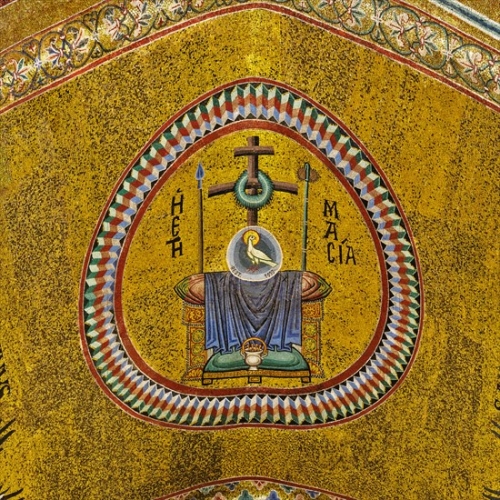mardi, 23 mai 2023
Alexandre Douguine: la logique de l'hégémonie

La logique de l'hégémonie
Par Alexandre Douguine
Source: https://dzen.ru/media/dugin/the-logic-of-hegemony-646785d19d26e37d86c42fdb?fbclid=IwAR0DcUEBIF3_AWKtrvQahf8MxyoyKBAraNse_eGygkqaHOT9_IGJ8PHlZ5E&utm_referer=l.facebook.com
Il n'y a donc qu'une seule hégémonie. L'hégémonie est le capitalisme, la société capitaliste occidentale moderne. Mais le capitalisme ne se transforme pas immédiatement en hégémonie. Qu'est-ce qui le transforme en hégémonie ? La logique interne de l'hégémonie elle-même.
Le capitalisme entre dans la phase d'hégémonie à un certain moment, lorsque l'universel, qui est dans sa structure même, commence à prévaloir sur les questions nationales individuelles. Il n'y a qu'une seule hégémonie, elle est universelle et surgit dans toutes les sphères de la vie. Devenue explicite, elle commence à abolir les États-nations et à les soumettre complètement.
Ce que nous avons vu dans la mondialisation des années 1990, que Gramsci n'a pas pu voir, c'était un monde unipolaire qui commençait à se dessiner, et il y avait hégémonie. L'hégémonie n'est pas apparue immédiatement, elle a toujours été enfermée dans le capitalisme, dans son effort d'universalisation. Mais le capitalisme a atteint le stade mondialiste à une certaine période historique, lorsque la domination de l'Occident capitaliste sur toutes les autres alternatives est devenue explicite et s'est affirmée historiquement. C'est à ce moment-là que l'hégémonie est devenue elle-même.
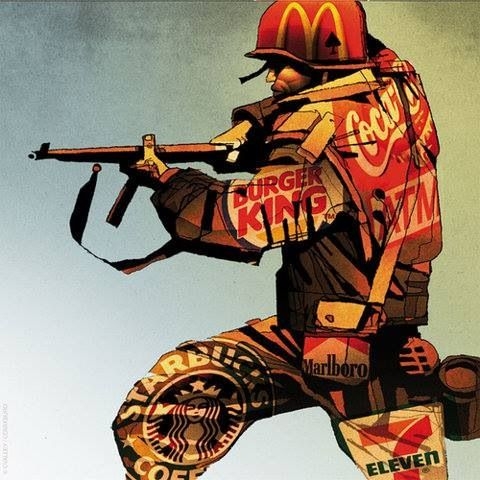
Par conséquent, les idées de Gramsci ont pris toute leur acuité précisément après l'effondrement de l'Union soviétique, qui a convaincu tout le monde que le concept d'hégémonie était le concept le plus efficace. En décrivant l'hégémonie, il décrivait le monde des années 1990: une ère d'hégémonie, un monde unipolaire où la démocratie politique libérale, l'économie capitaliste, les systèmes politiques du parlementarisme électoral, la culture techno-centrique, la liberté d'ouvrir des réseaux - tout cela a commencé à pénétrer dans toutes les sociétés.
Et que fait l'hégémonie ? Elle ouvre et brise les structures nationales. Kamala Harris arrive et détruit le partisan non encore dompté de la souveraineté. Pourquoi ? Parce que l'hégémonie ne peut être combattue de l'intérieur même de l'hégémonie. Parce que l'étape précédente - l'hégémonie représentée par le nationalisme, la souveraineté et l'État-nation - fait partie de la même hégémonie. Elle fait partie du passé, et l'hégémonie mondiale est l'avenir, vers lequel nous sommes attirés par toutes les forces.
L'hégémonie est une structure similaire à celles des pirates informatiques qui attaque l'ennemi en cherchant les points faibles de son système de défense et qui, une fois pénétré, le décompose déjà de l'intérieur. Par conséquent, un État-nation qui accepte partiellement l'hégémonie devient complètement vulnérable, perméable à celle-ci, ce qui conduit finalement à son absorption.
L'hégémonie fonctionne de manière sophistiquée. Elle envahit par la force militaire les États qui ne possèdent pas d'armes nucléaires. Elle s'introduit dans les États qui disposent d'une certaine forme d'administration nationale par le biais de la culture. Elle pénètre dans les États dotés d'armes nucléaires par le biais de réseaux et de finances. Elle pénètre la civilisation chinoise par le biais du libéralisme, en commençant par les zones côtières.
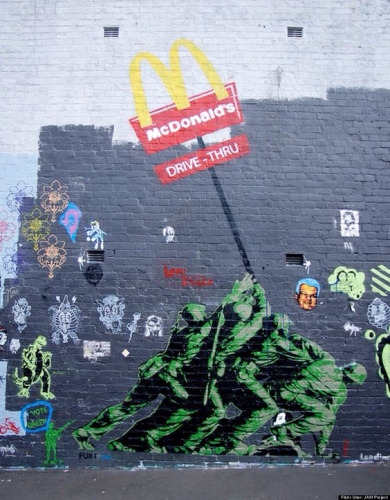
L'hégémonie est un additif moisi qui se répand par le biais des médias, d'Internet, des prêts bancaires, de l'éducation, de l'école, de la famille, de toutes les formes de connexion; par le biais de la restauration, du cinéma, de la participation au processus politique moderne. Tous ces éléments sont des formes d'action hégémonique qui, à proprement parler, ne sont pas intrinsèques à l'homme en principe. L'hégémonie ajuste la structure du comportement humain, l'encourageant à faire ce qui n'est pas logique de son point de vue, mais qui l'est du point de vue de ce moule.
L'hégémonie n'est pas l'arbitraire ; c'est la logique du processus historique de l'ère moderne. Et l'État-nation n'est pas une alternative à l'hégémonie - ce n'est qu'un obstacle temporaire, et cet État-nation déclare la constitution, les droits de l'homme, la forme de production capitaliste, la démocratie libérale, les élections, et envoie culturellement ses représentants à l'Eurovision. Du point de vue de Gramsci, la question de l'élimination de cette formation n'est qu'une question de temps.
19:47 Publié dans Actualité, Définitions | Lien permanent | Commentaires (0) | Tags : alexandre douguine, définition, hégémonie |  |
|  del.icio.us |
del.icio.us |  |
|  Digg |
Digg | ![]() Facebook
Facebook
mercredi, 19 avril 2023
Alexandre Douguine: Poutine grand dirigeant et "l'après-Poutine"
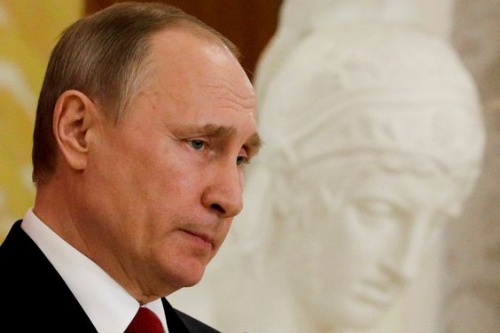
Poutine grand dirigeant et "l'après-Poutine"
Alexandre Douguine
Source: https://katehon.com/ru/article/putin-kak-velikiy-pravitel-i-posle-putin
Poutine ne dépend pas de l'élite russe, des partis politiques, des cartels oligarchiques, des mouvements sociaux, des institutions et de toute instance administrative en Russie. Ils dépendent tous de lui. Mais, en revanche, il dépend certainement de la géopolitique, du peuple et de la civilisation.
Tendances politiques au cours de la première année de l'Opération militaire spéciale (OMS)
L'analyse des transformations politiques en Russie au cours de la période de l'OMS est assez claire. Après des fluctuations initiales - avancée/recul - une tendance régulière et facilement vérifiable s'est dessinée, tant dans les combats eux-mêmes que dans la politique intérieure. Le lien entre la campagne militaire en Ukraine et dans les territoires de la "Nouvelle Russie"/Novorossiya et les processus politiques internes en Russie est évident. Cela ne correspond guère à l'opposition trop marquée "loyal/traitre" reflétée dans l'image "avancée/retraite", mais il existe certainement une corrélation directe entre les événements sur les fronts et le degré et l'intensité du patriotisme au sein de l'État et de la société. En fait, nous devrions parler de traîtres au sens plein du terme au sein des dirigeants de la Fédération de Russie avec une grande prudence, et seulement lorsque nous avons des certitudes, et non pas lorsque nous n'avons que certains soupçons à ce sujet. Dans des conditions de guerre, de telles étiquettes ne doivent pas être lancées à tout bout de champ. À en juger par les fuites du Pentagone, l'ennemi est trop bien informé de l'état des choses au sein de la direction de l'armée russe elle-même pour que les choses soient claires ici. Mais cette question devrait être traitée par d'autres structures spécialement conçues à cet effet, à savoir le contre-espionnage. Il serait plus correct d'exclure les traîtres directs de l'équation, du moins dans cette analyse de la situation. Bien sûr, il y a des gens au pouvoir, surtout les partisans directs du rapprochement inconditionnel avec l'Occident, préconisé par Gorbatchev et Eltsine, qui voudraient mettre fin à la guerre pour n'importe quelle raison. Mais ils ne peuvent pas en parler directement et s'ils commencent ouvertement à faire quelque chose dans ce sens, les conséquences seront assez dures. Tous ceux qui pensent de manière responsable au pouvoir se rendent compte qu'il est tout simplement impossible d'arrêter l'OMS dans l'état où elle se trouve. Et ce, pour plusieurs raisons. L'Occident est farouchement opposé à cet arrêt et le régime nazi de Kiev le percevra comme une capitulation. En outre, la société le percevra comme un discrédit total des autorités, et le système politique s'effondrera tout simplement. Par conséquent, seul un traître, un ennemi de la Russie - du peuple et de l'État - voudrait la paix dans de telles circonstances.
Cependant, le processus de patriotisation de la société est extrêmement lent. Et encore une fois, tout aussi lent que notre avancée vers l'Occident. Il existe une interconnexion étonnante: le début de l'OMS - un élan de patriotisme, puis des tentatives de repli - une mobilisation retardée, puis un recul général - puis un changement de relations publiques, puis une percée (l'acceptation de quatre nouvelles entités territoriales en Russie, la mobilisation, la nomination de Sourovikine) et, enfin, la stabilisation de la situation. Ainsi, après une période d'hésitations, de retards et même de reculs, nous avons atteint, après plus d'un an d'OMS, un vecteur stable de patriotisme cohérent, bien qu'encore extrêmement lent et modéré.
Dans un avenir proche, la Russie sera apparemment confrontée à un test sérieux - une contre-offensive du régime de Kiev dans une ou plusieurs directions à la fois. Et tout naturellement, le courant patriotique risque de porter un coup symétrique à la Russie elle-même. Une fois que nous aurons résisté à l'attaque et l'aurons repoussée, le processus de patriotisation de la société et les réformes idéologiques et politiques de grande ampleur prendront un nouvel élan. Il est probable que notre propre offensive contre l'ennemi s'accélérera de la même manière. Par conséquent, l'année décisive 2023 sera déterminée par l'image de notre avenir : ce que la Russie devrait être au prochain tournant de son existence historique.
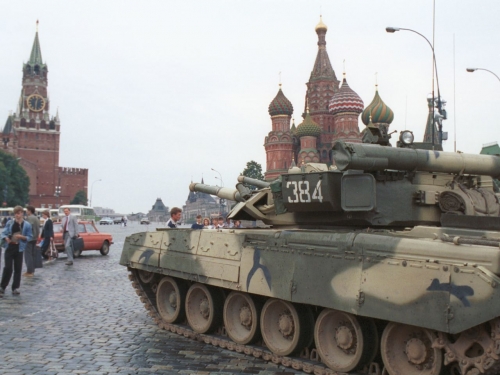
Les étapes de l'histoire moderne de la Russie : de la colonie à la grande puissance
La Fédération de Russie a émergé des ruines d'une grande puissance en 1991. Au cours de la première décennie, le pays a été soumis à un contrôle étranger et a commencé à s'effondrer complètement. Les pires - pilleurs, traîtres, agents de l'influence occidentale, généralement appelés "libéraux" - ont pris le pouvoir. C'est la première phase de l'histoire récente de la Russie.
Poutine, arrivé au pouvoir en 2000, a ralenti le processus de désintégration et a insisté de plus en plus sur la souveraineté. Pour une raison ou une autre, il a laissé intact le noyau principal de l'élite des années 1990, n'éliminant que les personnes les plus odieuses et les plus turbulentes. Les 23 années de règne de Poutine qui ont précédé l'OMS ont constitué la deuxième phase.
Après le début de l'OMS, la troisième phase a commencé: un véritable tournant patriotique où l'on est passé de la souveraineté de l'État à la souveraineté de la civilisation (russe). Poutine a tracé cette voie, mais elle ne s'est pas encore pleinement concrétisée. Elle mûrira et s'établira définitivement après l'épreuve d'une probable contre-attaque des nazis de Kiev. À ce moment-là, les élites seront inévitablement purgées et remplacées - les vrais héros viendront du front et remplaceront naturellement le noyau libéral corrompu.
Le cap de Poutine et les facteurs objectifs : géopolitique, société, civilisation
De nombreux observateurs ont l'impression que l'orientation vers la souveraineté de l'État, dès le début du règne de Poutine, et l'orientation qu'il a définie après le début de l'OMS pour affirmer l'identité de la civilisation russe eurasienne, ont été des décisions exclusivement prises par Poutine lui-même, par Poutine en tant qu'individu. Sa décision a été soutenue par la société, par la majorité, et l'élite n'a eu d'autre choix que de suivre le président. Certains ont fui, d'autres se sont cachés, espérant survivre au désastre et revenir à l'algorithme habituel, mais la majorité a tout de même accepté les conditions et exprimé - certains plus bruyamment et plus clairement, d'autres plus discrètement et plus confusément - sa loyauté envers le nouveau cours.
Cette personnification de la décision de lancer l'OMS a donné lieu à un certain nombre d'attitudes politiques, tant à l'intérieur qu'à l'extérieur de la Russie. Si l'OMS = Poutine, alors tout peut se reproduire après Poutine. Il peut rester au pouvoir "indéfiniment", le peuple et la société ne peuvent que le soutenir dans cette démarche. Mais il peut aussi remettre le pouvoir - et encore - à qui il veut. Il est totalement libre de faire ce qu'il veut. Cette souveraineté absolue du chef suprême génère un cercle d'espoir pour l'ennemi associé à l'ère "post-Poutine", et à l'intérieur - parmi les élites russes elles-mêmes - elle alimente également les attentes, dans lesquelles chacun place ses propres intérêts.
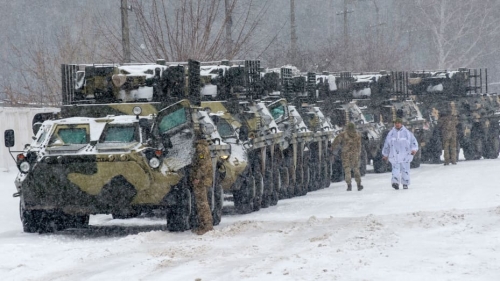
C'est ici qu'il convient de faire quelques ajustements. Oui, Poutine est absolument et infiniment libre par rapport au système politique russe. Il ne dépend de personne et a concentré tous les pouvoirs entre ses mains. Mais il n'est pas libre
- d'ignorer les lois de la géopolitique et, en particulier, celles de la stratégie de l'Occident qui cherche désespérément à maintenir l'unipolarité et à priver la Russie de son statut de pôle du monde multipolaire;
- d'ignorer aussi la structure des attentes et des valeurs des grandes masses populaires;
- d'ignorer la logique civilisationnelle de l'histoire russe elle-même.
C'est précisément la raison pour laquelle Poutine poursuit le type de politique étrangère qu'il mène, en répondant symétriquement par la géopolitique eurasienne aux pressions de l'atlantisme géopolitique (OTAN, Occident collectif). C'est la première démarche à parfaire. Il ne dispose pas de tous les pouvoirs, il lutte désespérément pour que la Russie ne soit que l'un des pôles du monde multipolaire et non un nouvel hégémon. Mais même cela est nié par l'Occident, ce qui explique la consolidation de la cohésion entre les pays de l'OTAN (à l'exception de la Hongrie et de la Turquie) contre la Russie dans la guerre d'Ukraine. Et il n'y a là rien de personnel: la géopolitique n'a pas été inventée par Poutine, il a dirigé le Heartland, le noyau de la civilisation terrestre, l'Eurasie, et il est obligé de suivre la logique géopolitique de cette partie du monde. Toute tentative de se plier à l'atlantisme, comme nous l'avons vu dans les années 1990 sous l'ère Eltsine, ne conduirait qu'à une plus grande désintégration de la Russie. Par conséquent, l'État russe, qui veut être un sujet de la géopolitique et non son objet, n'a tout simplement pas d'autre choix que de se confronter à l'Occident. Poutine a retardé cette confrontation autant qu'il le pouvait, et s'y est engagé ouvertement au tout dernier moment. Il n'a pas pris la décision de lancer une OMS, la Russie y a été contrainte par le comportement de l'Occident.
Deuxièmement, Poutine n'est pas exempt du soutien de la population. S'il s'est imposé au pouvoir, c'est précisément parce que sa ligne de conduite - du moins en matière de souveraineté et de patriotisme - a été parfaitement cohérente avec les principales priorités et aspirations des grandes masses populaires. Oui, le peuple voulait aussi la justice sociale, mais comparé à Eltsine, où il n'y avait ni justice ni patriotisme, il y avait généralement assez de patriotisme. Poutine a correctement et très rationnellement calculé que le fait de s'appuyer sur les larges masses lui apporte un soutien inconditionnel et lui permet de se délier les mains en matière de politique intérieure. En revanche, miser sur les libéraux, c'est-à-dire sur la population urbaine (principalement métropolitaine) tournée vers l'Occident et misant sur l'oligarchie, le rendrait complètement dépendant des groupes rivaux, des lobbies, des segments politiques et, en fin de compte, de l'Occident. Le peuple, quant à lui, n'exige personne en particulier. Mais il demande légitimement à Poutine de rendre à la Russie son indépendance et sa grandeur. Ce que fait Poutine.
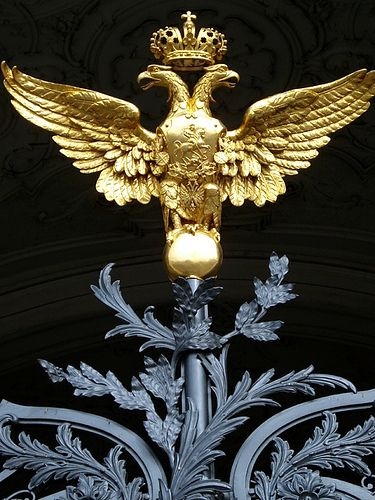
Troisièmement : Poutine ne gouverne pas dans le vide, mais dans le contexte et la logique de l'histoire russe. Celle-ci suggère que la Russie est une civilisation indépendante, qui ne fait pas partie du monde occidental, ce que Poutine a partiellement accepté au début de son règne. Les penseurs conservateurs de la Russie tsariste, des slavophiles et de Tioutchev aux idéologues de l'âge d'argent, en passant par les bolcheviks eux-mêmes, ont toujours opposé la Russie à l'Occident, que ce soit à droite ou à gauche, pour des raisons différentes. Les conservateurs insistaient sur l'identité russe, tandis que les bolcheviks insistaient sur les oppositions de deux systèmes socio-économiques irréconciliables. Dès que Poutine cite Dostoïevski ou Ilyine, ou dit quelque chose de neutre et de positif sur Staline, tout en critiquant sévèrement l'Occident - jusqu'à affirmer qu'il s'agit d'une "civilisation satanique" - il apparaît comme un maillon légitime de la chaîne des grands dirigeants du monde russe. Les tentatives d'élaboration d'une politique alternative - pro-occidentale et libérale - suscitent une profonde haine populaire, que l'on retrouve dans l'attitude de l'opinion publique à l'égard de Gorbatchev et d'Eltsine.
Poutine ne dépend pas de l'élite russe, des partis politiques, des cartels oligarchiques, des mouvements sociaux, des institutions et de toute instance administrative en Russie. Ils dépendent tous de lui. Mais il dépend bel et bien de la géopolitique, du peuple et de la civilisation. Et tout à fait en accord avec leurs attentes, leur logique et leurs structures sous-jacentes.
L'après-Poutine
Dans cette perspective, l'horizon futur, que l'on peut classiquement qualifier d'"après Poutine", se présente sous des traits très différents. Le statut de Poutine - précisément en raison de la cohérence avec les trois facteurs cruciaux, et sur la base des mesures réelles qu'il a prises et des résultats réels qu'il a obtenus - est pratiquement inébranlable. Il est tellement en résonance avec ces paramètres objectifs qu'il s'en affranchit en partie lui-même. Le cas de la "justice", qui fait manifestement défaut sous Poutine, en dit long: le peuple est prêt à fermer les yeux même sur ce point (même si cela lui fait de la peine), face à d'autres aspects du régime de Poutine fondés sur des principes. Même avec l'Occident, Poutine peut calibrer la chaleur de l'hostilité, parce que le public lui fait confiance et qu'il n'a pas besoin de prouver son patriotisme à chaque fois - personne n'a plus de doutes à ce sujet.
Mais l'"après Poutine" - et avec n'importe quel successeur - il n'en sera pas ainsi. Le pouvoir de Poutine suffira à remettre n'importe qui à sa place. Cela sera accepté par tous. Mais au-delà, la figure de cet "après-Poutine" sera beaucoup moins libre d'agir que lui.
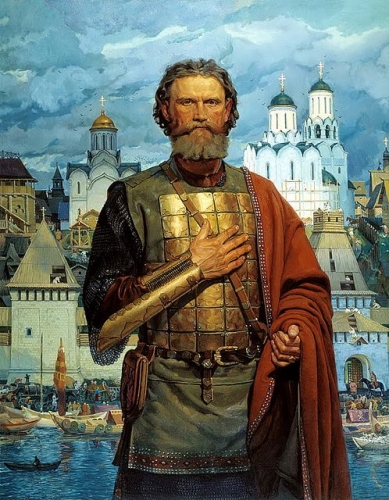
En même temps, il est absolument impossible d'imaginer que l'hypothétique successeur - quel qu'il soit - tente de s'écarter du cap géopolitique, du patriotisme et de l'identité civilisationnelle de la Russie. C'est Poutine qui est encore un peu libre à cet égard. Mais son successeur ne sera pas libre du tout. Dès qu'il relâchera un tant soit peu ses efforts dans cette direction, ses positions seront immédiatement affaiblies, sa légitimité sera ébranlée, et les figures et les forces qui seront plus en phase avec les défis historiques émergeront naturellement à ses côtés, plutôt qu'un successeur hésitant. Le "post-Poutine" doit encore faire ses preuves en tant que digne successeur de Poutine et gagner sa légitimité en matière de géopolitique, de patriotisme (incluant cette fois la justice sociale) et de renaissance du monde russe. Poutine a gagné ses guerres, ou les a déclenchées de manière décisive. L'"après-Poutine", en revanche, ne l'a pas encore fait. Le successeur devra donc non seulement devenir un géopoliticien eurasien à part entière, mais aussi gagner la guerre avec l'Occident collectif en Ukraine de manière décisive et à n'importe quel prix, et précisément pour que personne ne puisse remettre en question la victoire. Poutine peut encore théoriquement s'arrêter quelque part (bien qu'il soit peu probable que l'Occident le laisse faire), mais son successeur ne pourra s'arrêter nulle part avant la frontière avec la Pologne.
Il en va de même pour la population. Les gens acceptent Poutine, ils l'ont déjà accepté. L'"après-Poutine" devra mériter cette acceptation. Et c'est là qu'il ne peut s'empêcher de faire des pas conséquents vers la justice sociale. L'influence du grand capital, des oligarques et du capitalisme en général répugne profondément aux Russes. Poutine peut pardonner cela, mais pourquoi son successeur devrait-il le faire ? L'"après-Poutine" aura besoin non seulement de patriotisme, mais aussi d'un patriotisme orienté vers la société. Et à cet égard, il ne doit pas se contenter de maintenir la barre, mais l'élever. Cela implique de réformer le système des partis et les structures gouvernementales. Partout, les patriotes, et surtout ceux qui sont passés par le creuset d'une juste guerre de libération - véritablement de la patrie - occuperont les postes les plus élevés. Il n'y aura en aucun cas de rotation complète de l'élite "post-Poutine".
Enfin, la civilisation russe. Les 23 années de règne de Poutine ont eu pour but de renforcer la Russie en tant qu'État souverain. En même temps - surtout au début - Poutine a admis que cette souveraineté russe pouvait être défendue et renforcée dans le cadre d'une civilisation européenne occidentale commune - "de Lisbonne à Vladivostok". Et en termes de civilisation occidentale, cela comprenait le capitalisme, la démocratie libérale, l'idéologie des droits de l'homme, le progrès technologique, la division internationale du travail, la numérisation, l'adhésion au droit international, etc. Il est progressivement devenu évident que ce n'était pas le cas, et c'est après le début de l'OMS que ses discours ont commencé à inclure des paroles sur la civilisation russe et ses différences de valeurs fondamentales par rapport à l'Occident moderne. Le décret 809 sur la politique d'État visant à protéger les valeurs traditionnelles a été signé, et la nouvelle version du concept de politique étrangère présentait la Russie non seulement comme un pôle d'un monde multipolaire, mais aussi comme une civilisation totalement distincte de l'Occident et de l'Orient. C'est le monde russe, et il est explicitement mentionné dans ce concept.
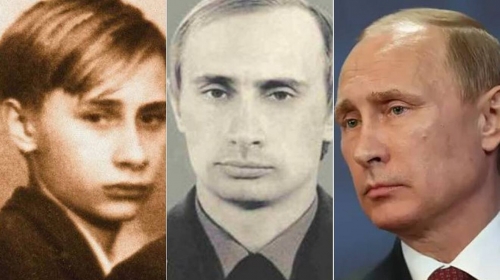
L'"après-Poutine" ne peut même pas revenir à la formule d'un État souverain, tant le conflit avec l'Occident collectif et la vague de russophobie sont aujourd'hui énormes. La route vers une Europe unie de Lisbonne à Vladivostok - du moins jusqu'à un changement révolutionnaire en Europe même - est coupée. Le successeur de Poutine devra simplement aller encore plus loin dans cette direction. Cela nécessitera une réinitialisation culturelle sous la bannière du "logos russe".
À partir de là, les choses vont se corser.
Nous pouvons en tirer une conclusion paradoxale. Tant que Poutine sera au pouvoir en Russie, une sorte d'accord avec l'Occident, ralentissant les processus patriotiques dans la politique et l'idéologie, restera possible. L'Occident ignore totalement que la seule personne avec laquelle il est encore possible de nouer des relations est Poutine lui-même. L'idée maniaque de l'écarter, de l'éliminer, de le détruire, témoigne de la perte du sens des réalités de l'Occident collectif. Avec le dirigeant de "l'après-Poutine", il sera impossible de négocier. Lui - quel qu'il soit - n'aura aucun mandat, aucun pouvoir pour le faire. La seule chose qu'il sera libre de faire, c'est de faire la guerre à l'Occident jusqu'à la victoire, et de ne pas freiner, mais d'accélérer les réformes patriotiques - peut-être pas à la manière douce de Poutine, mais à la manière dure (Priginsky).
Quel que soit le successeur désigné par Poutine - et il peut désigner n'importe qui - ce "n'importe qui" devra immédiatement adopter non seulement le langage du patriotisme, mais aussi celui de l'ultra-patriotisme. Et il n'y aura pas beaucoup de temps pour apprendre un tel langage, très probablement il n'y aura pas de temps du tout pour l'apprendre. C'est ainsi qu'un certain schéma se dessine : l'"après-Poutine" sera très probablement celui qui aura déjà maîtrisé ce nouveau système d'exploitation - la géopolitique eurasienne, le patriotisme de puissance constante (avec un biais de gauche dans l'économie) et la civilisation russe d'origine, le Logos russe.
14:51 Publié dans Actualité, Affaires européennes | Lien permanent | Commentaires (1) | Tags : russie, vladimir poutine, alexandre douguine, europe, affaires européennes, eurasie, eurasisme, politique internationale |  |
|  del.icio.us |
del.icio.us |  |
|  Digg |
Digg | ![]() Facebook
Facebook
jeudi, 13 avril 2023
Alexandre Douguine et la nouvelle politique étrangère de la Russie
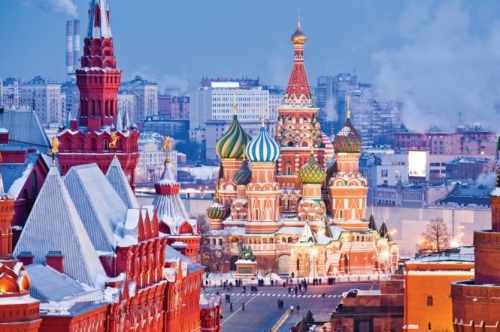
Alexandre Douguine et la nouvelle politique étrangère de la Russie
Markku Siira
Source: https://markkusiira.com/2023/04/08/aleksandr-dugin-ja-venajan-uusi-ulkopolitiikka/
"Le 31 mars, les patriotes russes, les eurasistes et les autres défenseurs de la pleine souveraineté ont probablement remporté la victoire la plus impressionnante et la plus visible de l'ère post-soviétique", affirme le politologue Alexandre Douguine. Il fait référence au nouveau concept de politique étrangère de la Russie qui, selon lui, reflète l'idée d'un développement eurasien de la fédération.
L'une des figures de proue du mouvement néo-eurasiste examine ce document stratégique, publié par le ministère des affaires étrangères et signé par le président Vladimir Poutine, qui s'éloigne d'un ordre mondial centré sur l'Occident. Pour Douguine, il s'agit d'un élément fondamental d'un "processus de décolonisation par la Russie elle-même, qui se libère du contrôle extérieur".
Le document de politique étrangère peut être considéré comme "la confirmation finale des changements dans la conscience géopolitique et civique des autorités russes qui ont commencé il y a 23 ans avec l'arrivée au pouvoir de Poutine". Ce n'est que dans cette version que la doctrine de politique étrangère de la Russie prend une expression claire et distincte.
Pour Douguine, il s'agit d'un "agenda ouvert d'une superpuissance continentale souveraine", dans lequel elle proclame sa vision du prochain ordre mondial et en définit les paramètres et les fondements, tout en exprimant sa volonté de construire un tel ordre, en dépit du fait que certaines parties tentent toujours d'imposer à la Russie, de l'extérieur, leurs lignes directrices en matière de mode de vie.
Le nouveau concept "utilise des termes compatibles avec la théorie multipolaire du monde et l'interprétation eurasienne du caractère civilisationnel de la Russie". Ainsi, le point de vue des partisans de la souveraineté russe est enfin inscrit dans un document clé de politique stratégique.
Selon Douguine, "la clarté et la cohérence inhabituelles de la formulation et des définitions du texte sont le résultat d'une guerre contre l'Occident collectif", dans laquelle "l'existence même de la Russie" est en jeu. Il estime qu'une telle lutte serait impossible sans principes clairs, et c'est pourquoi le nouveau concept "énonce clairement les règles que la Russie accepte et auxquelles elle souscrit".
Ces règles vont à l'encontre de "la stratégie mondialiste [occidentale], de l'unipolarisme et de la théorie libérale des relations internationales". Dans le passé, la Russie a essayé de faire des compromis qui reflétaient à la fois la préservation de la souveraineté et une relation amicale avec l'Occident, mais aujourd'hui la situation est complètement différente.
La Russie est l'État central particulier du monde russe, "une civilisation indépendante avec ses propres orientations, objectifs, origines, valeurs, sa propre identité immuable, indépendante de toute puissance extérieure", affirme Douguine.
Bien que les libéraux occidentaux et russes aient lutté avec acharnement contre cette "spécificité", elle a désormais été adoptée comme loi et constitue la principale règle en matière de politique étrangère. "Les dissidents doivent soit l'accepter, soit s'y opposer ouvertement", souligne Douguine. Il n'y aura pas de retour à la tentative eltsiniste des années 1990 de partager les valeurs et les attitudes occidentales.
L'acceptation d'un tel concept nécessitera des changements similaires dans la doctrine militaire et un énorme effort organisationnel pour adapter les institutions, la formation et l'information aux nouvelles lignes. En prônant ouvertement et résolument un monde multipolaire et la place de la civilisation russe dans ce monde, Moscou identifie désormais ses amis et ses ennemis en termes schmittiens.
Ainsi, tout le cadre de la politique étrangère et les processus sur la scène internationale deviennent plus ciblés et symétriques. Douguine souligne que "l'élite mondialiste occidentale ne cache pas son intention de détruire la Russie, de renverser son dirigeant et d'anéantir les initiatives menant à un monde multipolaire". La Russie comprend les intentions de l'Occident et y répondra.
L'affirmation selon laquelle la Russie est un État-civilisation signifie qu'elle n'est pas seulement un État-nation selon la logique du système westphalien, mais quelque chose de beaucoup plus grand. "Un État-civilisation n'est pas seulement un très grand État, mais ressemble aux anciens empires et aux empires qui peuvent inclure plusieurs entités politiques et même des territoires tout à fait indépendants", affirme Douguine.
La référence au peuple russe et aux autres nations qui partagent un destin historique, géopolitique et civilisationnel commun revêt une importance particulière dans la nouvelle politique étrangère. "Le peuple russe est devenu un ensemble de différentes tribus slaves orientales, finno-ougriennes et turques au cours du processus historique de construction de la nation. Il existe donc un lien inséparable entre les Russes et ces autres peuples voisins", explique Douguine.
Le texte du concept de politique étrangère indique également que le centre de l'humanité se déplace régulièrement vers les régions non occidentales du globe - l'Asie, l'Eurasie, l'Afrique et l'Amérique latine. Le modèle de développement mondial déséquilibré qui, pendant des siècles, a assuré la croissance économique des puissances coloniales occidentales en s'appropriant les ressources d'autres régions et États, est irrémédiablement en train de devenir une chose du passé.
"C'est l'essence même de la multipolarité", affirme Douguine. "L'Occident n'a pas seulement perdu sa capacité technique à rester l'hégémon mondial en matière de politique, d'économie et d'industrie, il a également perdu son droit moral à diriger. L'humanité vit une ère de changements révolutionnaires", affirme le penseur russe en rappelant l'essentiel du programme de politique étrangère.
L'émergence d'un monde plus équitable et multipolaire continuera d'être façonnée par le renforcement du rôle des organisations émergentes telles que "les BRICS, l'Organisation de coopération de Shanghai, la Communauté des États indépendants de la CEI, l'Union économique eurasienne, l'Organisation du traité de sécurité collective (OTSC), ainsi que d'autres alliances transnationales et organisations internationales".
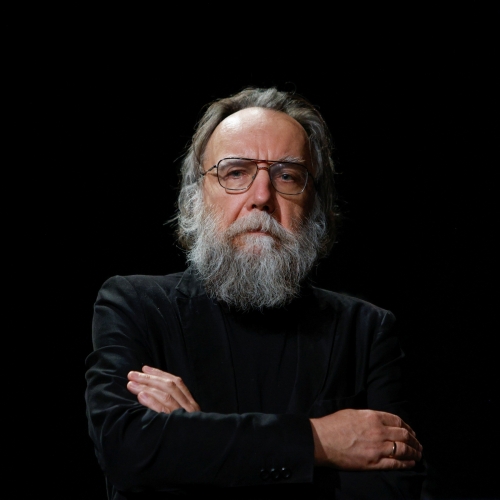
L'Occident libéral et mondialiste comprend que ses jours d'hégémonie touchent à leur fin, mais il n'est pas encore prêt à accepter les nouvelles réalités. Pour Douguine, cela "explique la plupart des conflits dans le monde et surtout la politique hostile de l'élite occidentale à l'égard de la Russie qui, objectivement, est déjà devenue l'un des pôles centraux du nouvel ordre".
Les États-Unis et leurs États satellites en Europe et en Asie ont utilisé les actions de la Russie en Ukraine comme prétexte pour intensifier leur politique anti-russe de longue date et lancer une nouvelle guerre hybride.
L'objectif est "d'affaiblir la Russie par tous les moyens possibles, en limitant sa puissance, ses capacités économiques et technologiques, sa souveraineté politique étrangère et intérieure et son rôle créatif dans la transition de l'unipolarité à la multipolarité". En réponse aux actions hostiles de l'Occident, la Russie "défendra son droit d'exister et de se développer librement par tous les moyens disponibles".
Le nouveau concept définit certainement aussi les conditions d'une normalisation des relations avec l'Occident, même si l'idée semble aujourd'hui lointaine. Le partenariat n'est envisagé que si l'Occident et ses satellites "renoncent à leur russophobie" qui, dans le contexte géopolitique, n'est rien d'autre que "le refus obstiné des élites occidentales de reconnaître le droit des États souverains civilisés à suivre leur propre voie".
Le Kremlin comprend qu'aucune partie de l'État-civilisation russe ne peut rester sous le contrôle de puissances étrangères et de leurs organisations hostiles. C'est, selon Douguine, la principale raison pour laquelle la Russie se bat aujourd'hui en Ukraine: la Russie n'a pas de "pleine souveraineté géopolitique et civilisationnelle" sans le contrôle du territoire de l'Ukraine, qui fait partie du monde russe.
Le concept de politique étrangère décrit également des stratégies spécifiques pour développer les relations entre la Russie et les différentes régions du monde: cela inclut "l'intégration eurasienne dans l'espace post-soviétique et la construction de partenariats avec la Chine, l'Inde, le monde islamique, l'Afrique et l'Amérique latine". Dans chaque région, des priorités et des objectifs spécifiques sont mis en évidence.
Bien que la nouvelle politique étrangère de la Russie n'ait pas l'intention d'intervenir activement dans les processus internes des pays qui lui sont actuellement hostiles, Douguine souligne que si "les peuples de l'Occident rejettent l'élite hégémonique maniaque et mettent au pouvoir de véritables dirigeants qui défendent leurs intérêts nationaux, ils ne trouveront pas de meilleur ami et allié que la Russie". Dans le climat d'agitation actuel, cette phrase conciliante est réconfortante à entendre.
19:50 Publié dans Actualité, Affaires européennes | Lien permanent | Commentaires (0) | Tags : alexandre douguine, russie, politique internationale, actualité |  |
|  del.icio.us |
del.icio.us |  |
|  Digg |
Digg | ![]() Facebook
Facebook
dimanche, 09 avril 2023
La directive de Douguine : un concept de politique étrangère comme apothéose de la multipolarité et catéchisme de la souveraineté

La directive de Douguine : un concept de politique étrangère comme apothéose de la multipolarité et catéchisme de la souveraineté
par Alexandre Douguine
Source: https://tsargrad.tv/articles/direktiva-dugina-koncepcija-vneshnej-politiki-kak-apofeoz-mnogopoljarnosti-i-katehizis-suvereniteta_757277?fbclid=IwAR25RDpH_8x2cNryGFWV1OzQJd5dsYAVDkLegyaUFDqkFirSyeD0za8Qy1o
Le 31 mars, le président russe Vladimir Poutine a approuvé un nouveau concept de politique étrangère. On peut considérer qu'il s'agit de l'accord final dans les changements dans la conscience géopolitique et civilisationnelle des autorités russes, lesquels changement avaient commencé il y a 23 ans avec l'accession de Poutine au pouvoir. C'est seulement maintenant, dans cette version toute récente, que la doctrine de politique étrangère de la Russie prend un aspect nettement contrasté et désormais sans ambiguïté. Cette fois-ci, elle est vraiment dépourvue d'ambiguïtés et d'équivoques.
Il s'agit d'un programme d'action ouvert et complet d'une grande puissance continentale souveraine qui déclare sa vision de l'ordre mondial à venir, de ses paramètres et de ses fondements et qui exprime en même temps sa volonté de fer de construire une telle architecture en dépit de tout niveau de confrontation avec ceux qui essaieraient de l'empêcher de manière rigide et d'imposer un plan extérieur à la Russie, pouvant aller jusqu'à une frappe nucléaire préventive.
L'ossature d'une souveraineté stratégique à part entière
Le concept introduit et utilise tous les termes fondamentaux, cohérents et conformes à la théorie du monde multipolaire et à l'interprétation eurasienne de l'essence civilisationnelle de la Russie. Ainsi, la victoire des partisans de la voie souveraine de l'existence historique de la Russie a finalement été inscrite dans un document stratégique fondamental du programme. Cette clarté et cette cohérence totales et inhabituelles dans la formulation et les définitions sont certainement le résultat de la guerre avec l'Occident collectif, qui est entrée dans une forme directe et féroce, où l'existence même de la Russie est en jeu. Et il est tout simplement impossible de gagner, mais aussi de mener une telle guerre sans principes, règles et attitudes clairs.
Le nouveau concept énonce clairement les règles que la Russie accepte et auxquelles elle souscrit. En outre, elle les formule pour la première fois. Ces règles sont directement opposées à la stratégie mondialiste, à l'unipolarité et à la théorie libérale des relations internationales. Alors que la Russie essayait de trouver des formulations de compromis qui reflétaient à la fois la volonté de souveraineté et la recherche de compromis avec l'Occident, il en va différemment aujourd'hui : la Russie est un État mondial, un pays-continent qui est une civilisation indépendante - avec ses propres orientations, objectifs, origines, valeurs, avec son identité immuable qui ne dépend d'aucune force extérieure. Les Occidentaux et les libéraux russes ont eu beau se battre contre la "voie spéciale", celle-ci a été approuvée par la loi et constitue la principale disposition de la politique étrangère. Les dissidents devront soit l'accepter, soit s'y opposer ouvertement.
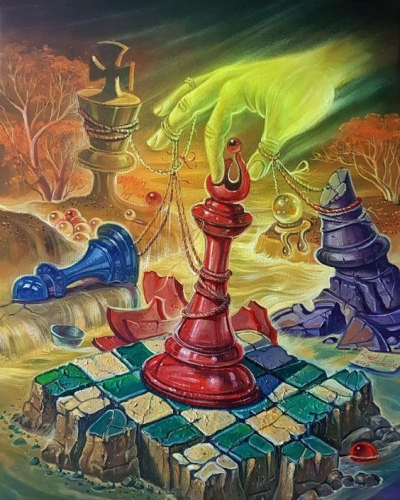
Le 31 mars 2023, les patriotes, les Eurasiens et les partisans de la pleine souveraineté civilisationnelle ont probablement remporté la victoire la plus impressionnante et la plus visible de l'ère post-soviétique. L'idée d'une voie eurasienne russe dans la politique étrangère a triomphé. Le concept a été développé au ministère des affaires étrangères et signé par le président. C'est sur cet arc que le sujet russe - l'épine dorsale d'une souveraineté stratégique à part entière - est désormais situé.
L'adoption d'un concept aussi sérieux et cohérent sur le plan interne nécessitera des changements correspondants dans la doctrine militaire, ainsi qu'un énorme travail d'organisation pour aligner les institutions du pouvoir exécutif, ainsi que l'éducation et l'information, sur les lignes de force entièrement nouvelles. Le Conseil a également un rôle à jouer dans ce processus.
Si le pays ne se contente pas de suivre sa propre voie russe, mais qu'il l'affirme explicitement, tout change. Même flirter avec l'Occident, ses "règles" et ses "critères" n'a aucun sens. L'Occident libéral mondialiste a coupé la Russie d'elle-même et, de surcroît, est entré en confrontation militaire directe avec elle. Avec sa nouvelle doctrine de politique étrangère, la Russie ne fait que corriger cet état de fait.
Les masques sont tombés : nous sommes résolument pour un monde multipolaire, tandis que ceux qui s'y opposent, qui cherchent à préserver l'ordre mondial unipolaire à tout prix, ne sont pas appelés "partenaires", "collègues" ou "amis", mais des ennemis directs, contre lesquels la Russie est prête à lancer une frappe nucléaire préventive si nécessaire.
Ainsi, l'ensemble de la politique étrangère et des processus qui se déroulent sur la scène internationale ont été mis en lumière et sont devenus complètement symétriques. Les élites mondialistes de l'Occident moderne ne cachent pas leur intention de détruire la Russie, de renverser et de traduire en justice son dirigeant, d'anéantir toute initiative en faveur d'un monde multipolaire. Elles fournissent massivement des armes aux néonazis ukrainiens et fomentent partout la russophobie, s'attribuant le droit d'agir comme bon leur semble partout dans le monde.
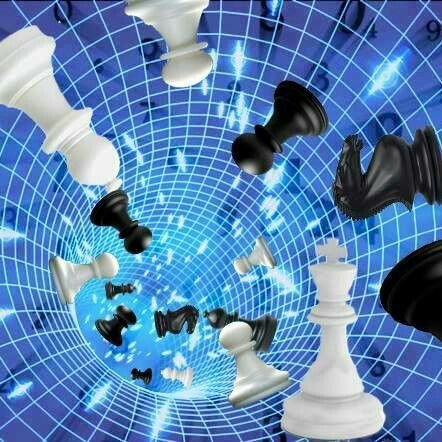
La Russie leur répond enfin de la même manière. Nous comprenons vos intentions et votre logique. Mais nous la rejetons totalement. Nous avons l'intention de défendre notre existence et notre souveraineté par tous les moyens, nous sommes prêts à nous battre pour cela et à payer n'importe quel prix.
Le concept de politique étrangère adopté repose sur une position fondamentale - la Russie est proclamée :
- "un État-civilisation distinctif",
- une vaste puissance eurasienne et euro-pacifique",
- un axe autour duquel "le peuple russe et les autres peuples se sont ralliés",
- le noyau d'une "communauté culturelle et civilisationnelle du monde russe".
Voilà l'essentiel. C'est la réponse à une question qui est loin d'être aussi simple qu'il y paraît : qui sommes-nous ? C'est de cette autodéfinition que découle la multipolarité sur laquelle tout le reste est construit. S'il s'agit d'une civilisation, elle ne peut pas faire partie d'une autre civilisation. Ainsi, la Russie ne fait pas partie de la civilisation occidentale (comme l'affirmaient les versions précédentes du concept de politique étrangère), mais d'une civilisation indépendante, souveraine et non occidentale, à savoir le monde russe. Tel est le principe fondamental sur lequel repose désormais la politique étrangère de la Russie.
Le long chemin vers une civilisation souveraine
Poutine a parcouru un long chemin en 23 ans, depuis les premières tentatives prudentes mais résolues de restaurer la souveraineté de la Russie en tant qu'État, presque entièrement perdue dans les années 1990, en reconnaissant que la Russie (bien que souveraine) fait partie du monde occidental, de l'Europe (de Lisbonne à Vladivostok) et partage généralement les valeurs, les règles et les attitudes de l'Occident, jusqu'à la confrontation frontale avec l'Occident collectif, en rejetant catégoriquement son hégémonie, en refusant de reconnaître ses valeurs, ses principes et ses règles comme étant universels et strictement acceptés par la Russie.
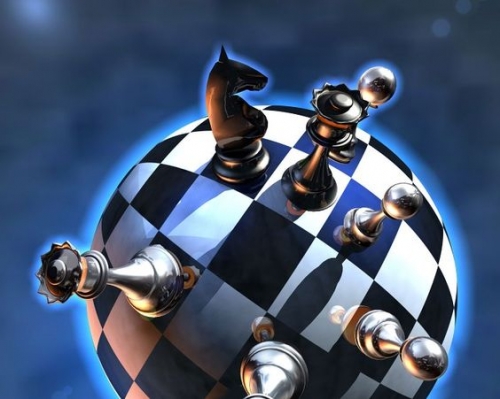
La signature par Poutine, le 31 mars 2023, du nouveau concept de politique étrangère signifie que le chemin menant d'un État souverain dans le contexte d'une civilisation occidentale libérale mondialiste commune à une civilisation souveraine, au monde russe et à un pôle indépendant a été définitivement franchi. La Russie n'est plus l'Occident. L'Occident a été le premier à le proclamer, en lançant contre nous une guerre d'anéantissement. Après un an d'Opération militaire spéciale, nous l'affirmons à notre tour. Non pas avec regret, mais avec fierté.
La définition de la Russie présentée ci-dessus comporte quatre niveaux, dont chacun représente le concept le plus important de la politique étrangère.
- L'affirmation selon laquelle la Russie est un État civilisationnel signifie que nous n'avons pas affaire à un simple État-nation selon la logique du système westphalien, mais à quelque chose de beaucoup plus grand. Si la Russie est un État-civilisation, elle ne doit pas être comparée à un pays occidental ou non occidental particulier, mais à l'Occident dans son ensemble, par exemple. Ou avec un autre État-civil, comme la Chine ou l'Inde. Ou simplement avec une civilisation représentée par de nombreux États (comme le monde islamique, l'Amérique latine ou l'Afrique). Un État-civilisation n'est pas seulement un très grand État, c'est, comme les anciens empires, les royaumes des royaumes, un État d'États. Au sein de l'État-civilisation, diverses entités politiques peuvent être situées et même être tout à fait autonomes. Selon K. Leontiev, il s'agit d'une complexité florissante, et non d'une unification linéaire, comme dans les États-nations ordinaires du Nouvel Âge.
- Mais en même temps, la Russie est décrite comme une "vaste puissance eurasienne et euro-pacifique", c'est-à-dire un État souverain fort à l'échelle du continent. Les Eurasiens la qualifient d'"État continental". L'adjectif "vaste" n'est pas utilisé à titre purement descriptif. La véritable souveraineté ne peut être détenue que par des puissances "vastes". Il s'agit ici d'une référence directe à la notion de "vaste espace", qui est une composante nécessaire de la souveraineté stratégique à part entière. Une puissance qui ne répond pas à ces exigences ne peut être véritablement souveraine. Le caractère eurasien et euro-pacifique de la Russie renvoie directement à la pleine reconnaissance de la géopolitique eurasienne et de ses dispositions fondamentales. La Russie-Eurasie dans la philosophie eurasienne est un concept opposé à l'interprétation de la Russie comme l'un des pays européens. Le terme "puissance" lui-même doit être interprété comme un synonyme d'empire.
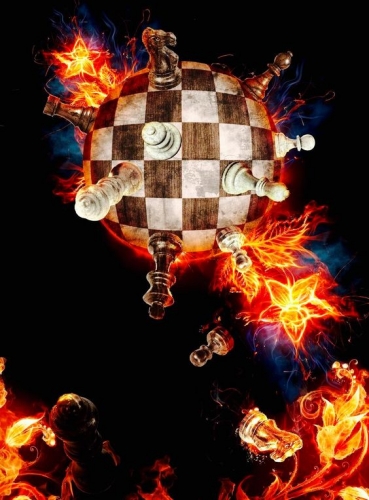
La référence au peuple russe et aux autres peuples qui partagent avec les Russes leur destin historique, géopolitique et civilisationnel est très importante. Le peuple russe est devenu un peuple issu de diverses tribus slaves orientales, finno-ougriennes et turques, précisément dans le cadre du processus historique de construction d'une nation. En construisant un État, la nation s'est également construite elle-même. D'où le lien indissociable entre les Russes et leur statut d'État indépendant et souverain. Mais en même temps, cela indique aussi que l'État a été créé par le peuple russe, préservé et soutenu par lui.
- L'introduction du concept de "monde russe" dans le concept de politique étrangère est très révélatrice. L'État ne coïncide jamais - à de rares exceptions près - avec les frontières de la civilisation. Autour de ses frontières établies, il y a toujours des zones d'influence intensive des débuts de la civilisation. Le monde russe est une zone historique et culturelle circonscrite, qui appartient certainement à la Russie en tant que civilisation, mais qui ne fait pas toujours partie du pouvoir russe. Dans certains cas, lorsque les relations entre les pays sont harmonieuses et amicales, le monde russe peut exister harmonieusement de part et d'autre de la frontière. Mais en présence de conflits interétatiques, l'État-civilisation qu'est la Russie (selon ce concept de politique étrangère) a toutes les raisons de défendre sa civilisation - et dans les cas les plus critiques, d'ignorer les frontières elles-mêmes. Ainsi, le concept de monde russe dans le contexte général de la définition de la Russie clarifie la logique de ses actions dans l'espace post-soviétique et, en particulier, donne à l'OTAN une légitimité doctrinale et une validité idéologique.
L'Occident a perdu son droit moral au leadership
Tout le reste découle de la définition principale du statut de la Russie en tant que civilisation souveraine. Ne ressentant plus le besoin de se conformer à l'Occident global, Moscou, dans son nouveau concept de politique étrangère, attaque directement et durement l'eurocentrisme, rejette l'hégémonie occidentale et assimile la mondialisation à un nouveau cycle d'impérialisme et de colonialisme.
Le texte du concept affirme que le centre de l'humanité se déplace régulièrement vers des régions non occidentales de la planète - l'Asie, l'Eurasie, l'Afrique, l'Amérique latine.
Le modèle de développement mondial sans équilibre qui, pendant des siècles, a assuré une croissance économique supérieure à celle des puissances coloniales en s'appropriant les ressources des territoires et des États dépendants d'Asie, d'Afrique et de l'hémisphère occidental, est irrémédiablement en train de devenir une chose du passé. La souveraineté et les possibilités concurrentielles des puissances mondiales non occidentales et des dirigeants régionaux ont été renforcées.
C'est l'essence même de la multipolarité. L'Occident a non seulement perdu la capacité technique de rester l'hégémon mondial dans les domaines politique, économique et industriel, mais il a également perdu le droit moral de diriger.
L'humanité traverse une ère de changements révolutionnaires. La formation d'un monde plus juste et multipolaire se poursuit.
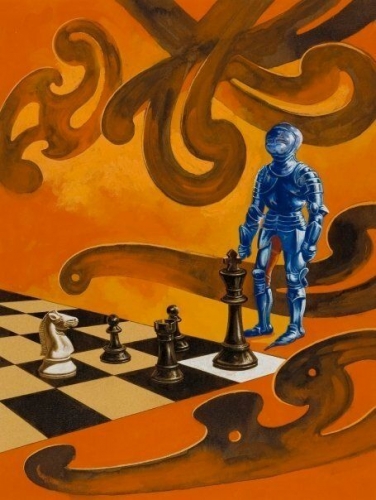
Dans ce contexte, l'aspiration de la Russie à renforcer la multipolarité, à coopérer activement avec d'autres États de la civilisation (principalement la Chine et l'Inde) et à soutenir pleinement diverses alliances et associations d'intégration régionale est considérée comme un programme positif.
Afin de contribuer à adapter l'ordre mondial aux réalités d'un monde multipolaire, la Fédération de Russie entend donner la priorité (...) au renforcement du potentiel et à l'accroissement du rôle international de l'association interétatique BRICS, de l'Organisation de coopération de Shanghai (OCS), de la Communauté des États indépendants (CEI), de l'Union économique eurasienne (UEE), de l'Organisation du traité de sécurité collective (OTSC), de la RIC (Russie, Inde, Chine) et d'autres associations interétatiques et organisations internationales, ainsi que de mécanismes impliquant de manière significative la RIC (Russie, Inde, Chine).
Le monde devient irréversiblement multipolaire, mais l'ancien ordre unipolaire n'est pas prêt à abandonner sans combattre. Telle est la principale contradiction de l'ère moderne. Elle explique la signification des principaux processus de la politique mondiale. Le fait est, explique le concept, que l'Occident libéral mondialiste, réalisant que les jours de son leadership sont comptés, n'est pas prêt à accepter les nouvelles réalités et, à l'agonie, commence à lutter désespérément pour la préservation de son hégémonie.
C'est ce qui explique la plupart des conflits dans le monde et, surtout, la politique hostile des élites occidentales à l'égard de la Russie, qui est objectivement devenue l'un des pôles les plus évidents et les plus cohérents de l'ordre multipolaire. C'est précisément parce que la Russie s'est déclarée État de civilisation, refusant de reconnaître l'universalité de l'ordre mondial occidental et de ses règles, c'est-à-dire le modèle unipolaire de l'ordre mondial, qu'elle est devenue l'objet des attaques de l'Occident, qui a constitué une vaste coalition de pays inamicaux contre la Russie et s'est directement fixé pour objectif de priver la Russie de sa souveraineté.
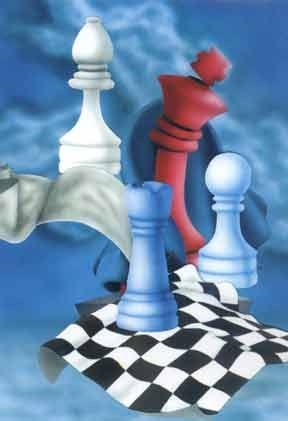
Les États-Unis d'Amérique (USA) et leurs satellites, considérant le renforcement de la Russie comme l'un des principaux centres de développement du monde moderne et considérant sa politique étrangère indépendante comme une menace pour l'hégémonie occidentale, ont utilisé les mesures prises par la Fédération de Russie pour protéger ses intérêts vitaux en Ukraine comme prétexte pour aggraver leur politique anti-russe de longue date et ont déclenché un nouveau type de guerre hybride. Elle vise à affaiblir la Russie par tous les moyens possibles, notamment en sapant son rôle civilisationnel créatif, sa puissance, ses capacités économiques et technologiques, en limitant sa souveraineté en matière de politique étrangère et intérieure et en détruisant son intégrité territoriale. Cette ligne de conduite de l'Occident est devenue globale et est inscrite dans la doctrine.
Face à cette confrontation, qui constitue le contenu principal de la transition de l'unipolarité à la multipolarité, alors que l'Occident tente par tous les moyens de retarder ou d'interrompre cette transition, la Russie, en tant qu'État-civilisation souverain, en tant que pôle mondial multipolaire stable et fiable déjà établi, déclare sa ferme intention de ne pas s'écarter de la voie choisie, quel qu'en soit le prix.
En réponse aux actions inamicales de l'Occident, la Russie a l'intention de défendre son droit d'exister et de se développer librement par tous les moyens disponibles.
Cela inclut bien sûr le droit d'utiliser contre l'ennemi (qui, dans les circonstances actuelles, est l'Occident collectif qui cherche à maintenir l'unipolarité à tout prix et à étendre son hégémonie), en cas d'attaque directe et même à des fins préventives, n'importe quel type d'armes - jusqu'aux armes nucléaires et aux armes de pointe. Si l'existence même de la Russie souveraine et du monde russe est menacée d'un danger mortel, la Russie est prête à aller aussi loin que nécessaire dans ce cas.
Conditions de coopération
Le nouveau concept définit également les conditions d'une normalisation des relations avec les pays occidentaux. Les pays anglo-saxons, qui sont particulièrement hostiles à la Russie dans cette escalade, sont mis en évidence de manière particulière. Un partenariat renouvelé n'est possible que si les pays occidentaux hostiles et leurs satellites renoncent à la russophobie. En fait, il s'agit d'un ultimatum, exigeant de l'Occident qu'il accepte les conditions de la multipolarité, car l'essence de la russophobie dans le contexte géopolitique n'est rien d'autre que le refus obstiné des élites mondialistes occidentales de reconnaître le droit des États souverains et des civilisations à suivre leur propre voie. C'est la seule raison pour laquelle la Russie se bat aujourd'hui en Ukraine. Sans le contrôle de l'Ukraine, comme le sait tout géopoliticien, la Russie ne pourra pas jouir d'une pleine souveraineté géopolitique et civilisationnelle.
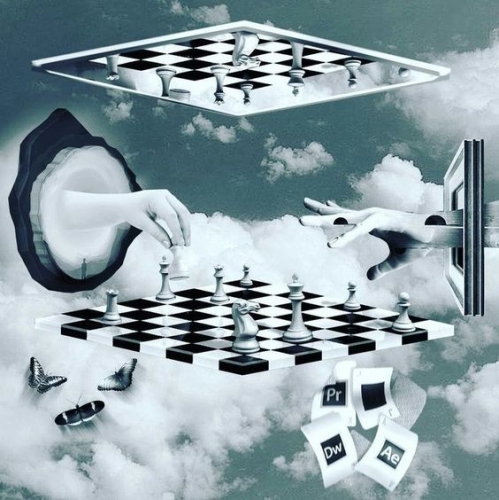
C'est la signification du monde russe, qui ne coïncide pas avec les frontières des États nationaux, mais qui, lorsqu'il forme le pôle et la transition vers l'État-civilisation, ne peut rester sous le contrôle de structures géopolitiques hostiles. Amicales et neutres - oui (comme le montre l'exemple de l'Union biélorusse), mais leur souveraineté nationale n'est pas menacée. Au contraire, la Russie est prête à jouer le rôle de garant et à contribuer à leur renforcement par tous les moyens possibles - dans les domaines économique, politique et militaro-stratégique. Mais toute tentative visant à séparer la partie du monde russe de la Russie principale sera réprimée par tous les moyens. Et c'est exactement ce qui se passe actuellement.
Priorités, vecteurs et objectifs finaux
La deuxième partie du concept de politique étrangère présente des stratégies spécifiques pour développer les relations entre la Russie et les régions du monde : intégration eurasienne de l'espace post-soviétique, construction d'un partenariat prioritaire avec la Chine, l'Inde, le monde islamique, l'Afrique et l'Amérique latine. Dans chaque domaine, des priorités, des vecteurs et des finalités sont mis en évidence. L'adresse à l'Occident est discrète. Mais sous les formules diplomatiques lourdes, il est facile de lire ce qui suit :
Si les peuples occidentaux trouvent la force de se lever et de se débarrasser de la dictature d'une élite hégémonique maniaque qui mène la civilisation à l'abîme, de mettre en avant de vrais leaders et de porter au pouvoir les forces qui défendront réellement leurs intérêts nationaux, ils ne trouveront pas de meilleur ami et allié que la Russie. Toutefois, la Russie n'a pas l'intention d'apporter une aide active en s'ingérant dans les processus internes de la vie politique des pays hostiles et souligne son respect pour tout choix souverain des sociétés occidentales. La Russie dispose également d'une réponse décente en cas de confrontation directe avec des puissances hostiles, si celles-ci franchissent la ligne fatale. Mais il serait préférable que personne ne la franchisse.
La nouvelle version du concept de politique étrangère est un acte fondamental dans le processus de décolonisation de la Russie elle-même, sa libération du contrôle extérieur.
Si l'on veut que ses dispositions soient prises au sérieux, il faut déjà aligner les activités du ministère des affaires étrangères et des institutions éducatives de base (surtout le MGIMO, encore dominé par des paradigmes complètement différents), réformer Rossotrudnichestvo et Russian World, et promouvoir de nouveaux courants de diplomatie publique qui reconnaissent la Russie comme une civilisation souveraine, tels que le Mouvement russophile international (IRD).
Mais l'affirmation de la Russie en tant qu'État civilisé revêt également une importance considérable et décisive pour la politique intérieure. Après tout, on ne peut pas agir comme un État civilisé en matière de politique étrangère et continuer à faire partie d'un système libéral centré sur l'Occident, en partageant ses approches, ses valeurs et ses principes en matière de politique intérieure, même s'il s'agit d'un État souverain. La politique étrangère est toujours étroitement liée à la politique intérieure. Et c'est là que la Russie, pour défendre sa souveraineté, devra s'engager dans des réformes sérieuses et profondes dans un avenir très proche. Si nous avons, on peut le dire, une politique étrangère souveraine, la nécessité d'une politique intérieure souveraine n'a pas encore été bien comprise.
14:46 Publié dans Actualité, Géopolitique | Lien permanent | Commentaires (0) | Tags : géopolitique, russie, alexandre douguine, diplomatie, politique internationale |  |
|  del.icio.us |
del.icio.us |  |
|  Digg |
Digg | ![]() Facebook
Facebook
vendredi, 24 mars 2023
Alexandre Douguine - Hégémonie: saisir le code culturel
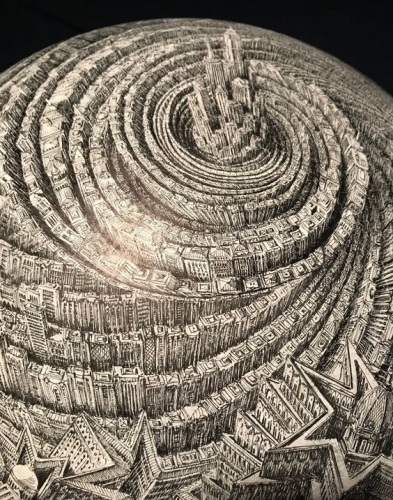
Hégémonie: saisir le code culturel
Alexander Douguine
Source: https://www.geopolitika.ru/article/gegemoniya-zahvat-kulturnogo-koda
Un réseau profondément enraciné d'hégémonie et de ses opérateurs opère ouvertement dans notre société.
Les dirigeants de la Russie et de la Chine critiquent explicitement l'hégémonie occidentale. Il convient de rappeler qu'Antonio Gramsci, qui a élaboré la théorie moderne de l'hégémonie, entendait par "hégémonie" non pas tant la dictature politique directe de certains pays sur d'autres que la création d'un réseau contrôlé depuis le centre de l'hégémonie et imprégnant toutes les sociétés, en contournant facilement les frontières et les restrictions. Ce réseau est créé principalement dans le domaine de la culture, de la science, de l'éducation et de l'information, c'est-à-dire que la société civile est prise en charge en premier lieu. L'introduction d'un modèle économique unique (le capitalisme) dans les sociétés contrôlées par les hégémoniques est également un élément essentiel de l'hégémonie, mais l'essentiel est la capture du code culturel et de l'éducation.
Au cours des 30 dernières années, l'hégémonie en ce sens n'a fait que croître en Russie. Et il ne s'agit pas seulement d'une dépendance à l'égard des importations. Le libéralisme a réussi à établir un contrôle presque total sur la mentalité des Russes - par le biais de l'éducation, de la culture, de la science, des réseaux sociaux. Il est révélateur que cette hégémonie se soit renforcée alors même que les politiques de Poutine devenaient de plus en plus souveraines. La domination des libéraux dans la culture a contrebalancé la croissance de la souveraineté dans la politique. Les autorités, pour l'instant, ne s'en sont pas aperçues. Ainsi, toutes les conditions ont été créées pour la propagation et l'enracinement de l'hégémonie.
Un exemple frappant. Depuis 23 ans, le pays est dirigé par un leader ouvertement et constamment réaliste en matière de relations internationales (RI). Cela ne se reflète dans aucun manuel du MGIMO, qui continue d'être dominé par le paradigme libéral du ministère de la Défense. Les tentatives - même les plus prudentes - visant à modifier cet état de fait sont immédiatement réprimées de la manière la plus sévère qui soit.
Un réseau profondément enraciné d'hégémonie et ses opérateurs opèrent ouvertement dans notre société. Ils jouent le long terme, comptant sur la possibilité qu'un jour il y ait un changement de cap politique, et qu'alors une société civile formée par eux, orientée vers les codes et les principes occidentaux, se manifeste également dans la politique.
La Chine est également confrontée à un danger similaire, mais un groupe dévoué (numériquement énorme) de référents du Comité central du PCC travaille sans relâche pour le neutraliser. Dans notre pays, pratiquement personne n'y prête attention. Et c'est une question qui concerne le Conseil de sécurité et les dirigeants politiques en général.
L'hégémonie n'est pas seulement un concept externe, mais aussi un concept interne. Selon Gramsci, c'est ce qui fait sa force. Et la souveraineté politique ne suffit pas à s'y opposer. Ce qu'il faut, c'est un modèle idéologique alternatif clair, c'est-à-dire une contre-hégémonie.
19:31 Publié dans Actualité, Nouvelle Droite | Lien permanent | Commentaires (0) | Tags : nouvelle droite, nouvelle droite russe, russie, alexandre douguine, hégémonisme |  |
|  del.icio.us |
del.icio.us |  |
|  Digg |
Digg | ![]() Facebook
Facebook
mardi, 21 mars 2023
Erdogan face à l'épreuve ultime
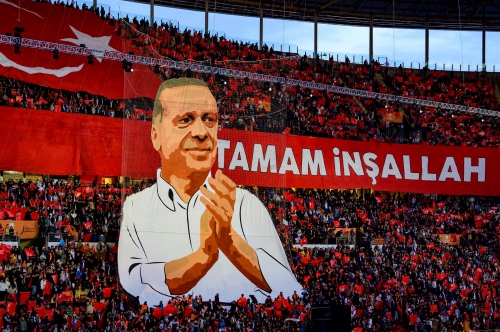
Erdogan face à l'épreuve ultime
Alexandre Douguine
Note du traducteur : Alexandre Douguine analyse ici la situation en Turquie du point de vue russe et dans le cadre actuel de la guerre entre la Russie et l'Ukraine (ou plutôt entre la Russie et l'OTAN) en mer Noire, enjeu de la vieille rivalité russo-ottomane. La situation actuelle implique un changement d'approche significatif. Pour l'Europe (ou pour l'idée de Maison commune), la nécessité d'accepter les arguments d'Erdogan, qui souhaite limiter l'ingérence américaine, va de pair avec un rejet de la politique d'Erdogan consistant à manipuler la diaspora turque contre les sociétés européennes, une manipulation qui aurait lieu même si la marque idéologique notoire des régimes d'Europe occidentale n'était pas le wokisme.
En Turquie, la date des élections présidentielles a été annoncée. Il s'agira probablement de l'épreuve la plus difficile pour Erdogan jusqu'à présent et sur le plan intérieur -avec le renforcement de l'opposition néolibérale pro-occidentale (en particulier le Parti républicain du peuple), une scission au sein du Parti de la justice et du développement (AKP) lui-même, un grave ralentissement économique, l'inflation, les conséquences d'un monstrueux tremblement de terre. Sur le front extérieur, avec l'intensification du conflit avec les États-Unis et l'Union européenne et le rejet de plus en plus marqué des politiques d'Erdogan par les dirigeants mondialistes de la Maison Blanche.
Lutte pour la souveraineté
L'aspect principal de la politique d'Erdogan est l'importance qu'elle accorde à la souveraineté. C'est le point central de sa politique. Toutes ses activités en tant que chef d'État s'articulent autour de cet axe. Dans un premier temps, Erdogan s'est appuyé sur l'idéologie islamiste, une alliance avec les régimes salafistes sunnites extrêmes du monde arabe. Durant cette période, il a collaboré très étroitement avec les Etats-Unis, les structures de Fethullah Gulen servant de charnière dans cette coopération. Les kémalistes laïques, les nationalistes turcs, de gauche comme de droite, étaient alors dans l'opposition. Cela a culminé avec l'affaire Ergenekon, dans laquelle Erdoğan a arrêté l'ensemble du haut commandement militaire, qui adhérait traditionnellement à l'orientation kémaliste.
À un moment donné, cette politique a cessé de promouvoir la souveraineté et a commencé à l'affaiblir. Après l'opération militaire russe en Syrie et le crash de l'avion turc en 2015, Erdoğan a été menacé : premièrement, les relations avec la Russie se sont détériorées, amenant la Turquie au bord de la guerre ; deuxièmement, l'Occident, insatisfait de la politique de souveraineté, était prêt à renverser Erdoğan et à le remplacer par des collaborateurs plus obéissants - Davutoğlu, Gül, Babacan, etc. Les gülenistes, anciens alliés d'Erdoğan et principaux opposants au kémalisme, sont devenus la colonne vertébrale du complot.
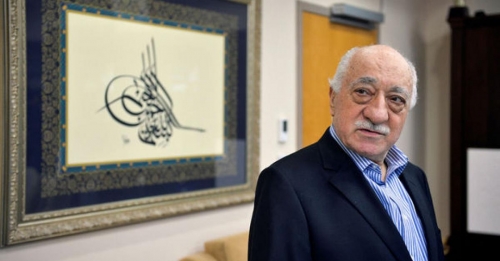
En 2016, alors que les relations avec la Russie se sont quelque peu clarifiées, l'Occident, en s'appuyant sur les fethullahistes (gülenistes), a tenté d'organiser un coup d'État, qui a toutefois été déjoué. Le fait qu'un nombre important de kémalistes patriotes, d'officiers militaires libérés par Erdogan peu avant le coup d'État, et leur structure politique, le parti Vatan, aient soutenu Erdogan plutôt que les militaires pro-occidentaux au moment critique a été un facteur décisif. Le fait est qu'à ce stade, les nationalistes kémalistes (de gauche comme de droite) avaient compris qu'Erdogan construisait sa politique sur le renforcement de la souveraineté et que l'idéologie était secondaire pour lui.
Étant donné que les conspirateurs gülenistes et les autres Occidentaux qui se sont rebellés contre Erdoğan suivaient servilement l'Occident mondialiste, ce qui conduisait inévitablement la Turquie à un effondrement total et à l'élimination de l'État-nation, les kémalistes ont décidé de soutenir Erdoğan pour sauver l'État. La Russie a également soutenu en partie Erdogan, réalisant que ses ennemis étaient des marionnettes de l'Occident. Les nationalistes turcs du Parti du mouvement nationaliste (MHP) ont également fini par se ranger à ses côtés.
Depuis 2016, Erdoğan a embrassé des positions proches du kémalisme patriotique et en partie de l'eurasisme, proclamant ouvertement la priorité de la souveraineté, critiquant l'hégémonie occidentale et prônant un projet de monde multipolaire. Les relations avec la Russie se sont également progressivement améliorées, bien qu'Erdoğan ait occasionnellement fait des gestes pro-occidentaux. Désormais, la souveraineté est devenue son idéologie et son objectif politique le plus élevé.
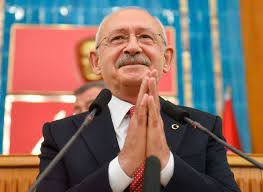
Cependant, l'opposition libérale sous la forme du Parti républicain du peuple (Kılıçdaroğlu - photo), qui s'est d'abord opposée à la ligne islamiste du premier Erdoğan et a ensuite rejeté la souveraineté, a exploité une série d'erreurs de calcul sur le plan intérieur et économique. Il est parvenu à obtenir un certain nombre de postes clés lors des élections, notamment en présentant ses propres candidats à la mairie des deux principales villes, Ankara et Istanbul. Erdoğan s'est également heurté à l'opposition de ses anciens collègues du parti AKP au pouvoir, qui sont également opposés à l'eurasisme et à la souveraineté et orientés vers l'Occident - les mêmes Ahmet Davutoğlu, Abdullah Gül, Ali Babacan, etc.
C'est dans cette situation qu'Erdogan se rendra bientôt aux urnes. L'Occident est manifestement mécontent de lui en raison de sa désobéissance - en particulier sa démarcation contre la Suède et la Finlande, dont la Turquie a empêché l'adhésion à l'OTAN ; la politique relativement indulgente d'Ankara à l'égard de la Russie, contre laquelle l'Occident collectif mène une guerre en Ukraine, a encore irrité les mondialistes de Washington et, surtout, les dirigeants modernes de la Maison Blanche et les élites mondialistes de l'Union européenne n'acceptent catégoriquement pas le moindre soupçon de souveraineté de la part de leurs vassaux ou de leurs adversaires.
Quiconque est prêt à se soumettre à l'Occident doit renoncer totalement à sa souveraineté en faveur d'un centre de décision supranational. Telle est la règle. Les politiques d'Erdogan la contredisent directement, c'est pourquoi Erdogan doit être démis de ses fonctions, à n'importe quel prix. Si l'Occident globalitaire a échoué dans le coup d'État de 2016, il devra tenter de renverser Erdogan lors des élections de 2023, quel qu'en soit le résultat. Après tout, il y a toujours la pratique des révolutions colorées en réserve.
C'est exactement ce que nous avons vu à nouveau en Géorgie, dont les dirigeants, après le départ de l'ultra-occidental et libéral Saakashvili, ont essayé de rendre la Géorgie un peu plus souveraine. Mais cela a suffi à Soros pour activer ses réseaux et lancer une révolte contre l'attitude "trop modérée" à l'égard de la Russie et l'orientation "inacceptablement souveraine" du régime contrôlé par l'oligarque pragmatique Bedzina Ivanishvili.
Erdogan est en train de constituer une coalition politique sur laquelle il pourra compter lors des élections. La colonne vertébrale sera évidemment l'AKP, un parti largement fidèle à Erdogan, mais sans substance et composé de fonctionnaires peu enthousiastes. Techniquement, c'est un outil utile, mais en partie embarrassant. En Turquie, nombreux sont ceux qui attribuent les échecs de l'économie, le développement de la corruption et l'inefficacité du système gouvernemental aux responsables de l'AKP et aux cadres administratifs nommés en leur sein. Si Erdoğan est une figure charismatique, l'AKP ne l'est pas. Le parti prospère grâce à l'autorité d'Erdogan, et non l'inverse.
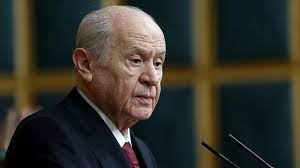
Alliés et adversaires d'Erdogan
Les alliés traditionnels seront évidemment les nationalistes turcs du parti Mouvement nationaliste turc de Devlet Bahçeli (photo). Pendant la guerre froide et par inertie dans les années 1990, les nationalistes turcs étaient strictement orientés vers l'OTAN et poursuivaient une ligne antisoviétique (puis antirusse). Dans les années 2000, cependant, leurs politiques ont progressivement commencé à changer. Ils se sont de plus en plus éloignés de l'Occident libéral et se sont rapprochés du vecteur souverain d'Erdogan. Idéologiquement, ils sont plus flamboyants que l'AKP, mais leur radicalisme leur aliène une partie de la population turque. En tout état de cause, l'alliance idéologique et politique avérée d'Erdogan avec Bahçeli est cruciale pour son avenir.
Erdogan peut également compter sur le soutien de mouvements politiques soufis, petits mais influents, qui ne bénéficient pas d'un soutien de masse. Leur rôle est de combler le vide laissé par la défaite des structures gülénistes qui se réclamaient d'un "mouvement soufi". Le soufisme est assez répandu dans la société turque et certains tariqats considèrent Erdoğan comme la figure dont dépend la renaissance spirituelle de la Turquie. Mais la diversité du soufisme turc, ainsi que d'autres courants spirituels - notamment les Alévis et les Bektashi - laisse une large place à d'autres opinions.
Tous les Occidentalistes s'uniront contre Erdogan et il n'est pas exclu que, cette fois, les mondialistes activent un réseau d'agents tant au sein de l'AKP lui-même que dans d'autres structures de l'État. Compte tenu de la situation difficile d'Erdogan, pour des raisons d'âge et de santé, il s'agit peut-être de sa dernière chance - non seulement en tant qu'individu, mais aussi en tant que figure historique qui a lié son destin et sa politique à la souveraineté de l'État turc. S'il réussit maintenant et assure la continuité de la voie en lui donnant une formulation idéologique stricte, il entrera dans l'histoire de la Turquie comme le deuxième Atatürk, le sauveur de l'État à une époque de bouleversements critiques. S'il tombe, il est très probable qu'une série de désastres attende la Turquie, car quiconque prendra sa place sera orienté vers l'Occident, ce qui signifie que l'effondrement de la Turquie à l'avenir est imminent, car les mondialistes n'ont en aucun cas oublié les plans du Grand Kurdistan.
Bien sûr, ils n'ont pas réussi à mettre en œuvre cette provocation pendant la vague de révolutions colorées et après l'invasion de l'Irak et de la Syrie, mais la chute d'Erdogan donnera un nouveau souffle à ces projets. Enfin, les adversaires d'Erdogan seront contraints à une confrontation sérieuse avec la Russie, parce que leurs maîtres de l'OTAN l'exigeront, et ce sera un autre facteur de l'effondrement de la Turquie. Erdogan lui-même sera vilipendé par ses successeurs et l'enchaînement des catastrophes de l'État turc conduira à l'oubli pur et simple de son nom. Erdogan aborde donc ces élections comme s'il s'agissait de sa dernière bataille. Non seulement en tant qu'homme politique, mais aussi en tant que figure historique, véritable leader et symbole de son peuple. Il peut enfin consolider ce statut, mais s'il perd, il risque de le perdre irrémédiablement et n'aura pas d'autre chance.
L'Atatürk vert
Dans cette situation, l'analyse géopolitique suggère qu'Erdoğan dispose d'une autre ressource : moins une ressource de masse qu'une ressource idéologique et d'image. Ce sont les mêmes kémalistes patriotes qui, contrairement au libéral Kemal Kılıçdaroğlu du Parti républicain du peuple, malgré la dure répression pendant l'affaire Ergenekon, se sont rangés aux côtés d'Erdoğan au moment critique et, oubliant les vieilles rancunes, ont pleinement soutenu sa ligne souveraine. Certains milieux qualifient Erdoğan d'"Atatürk vert", c'est-à-dire le dirigeant turc, le leader national aux tendances islamiques. Le visage politique de ce groupe extrêmement influent en Turquie, composé principalement d'officiers militaires de tous grades, est le parti de gauche Vatan, dirigé par le leader charismatique Doğu Perinçek (photo, ci-dessous).
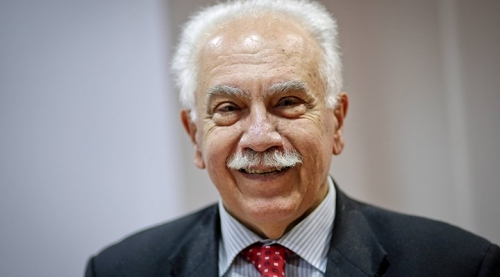
D'un point de vue électoral, le parti n'était pas du tout représentatif, mais son importance réside ailleurs : il est le centre qui élabore l'analyse géopolitique la plus actuelle de la Turquie, un parti idéologique eurasien avec une position multipolariste et un véritable centre intellectuel de défense et d'illustration de la souveraineté turque. Les journaux Vatan, Aydınlık et Teori, la chaîne de télévision Ulusal, les nombreux blogs et sites web font de cette entité le principal atout. Les liens historiquement forts de Vatan avec la Russie, la Chine, l'Iran et la Corée du Nord doivent également être pris en compte. Pour Erdogan, qui joue désormais contre l'Occident, ce vecteur qu'est ce club anti-mondialisation et multipolariste pourrait s'avérer décisif. Si Vatan est inclus dans la coalition, Erdogan pourra également se délier les mains face à l'Occident : la connexion avec les principaux pôles du monde multipolaire, et en particulier avec la Russie, dont dépend une grande partie de la politique et de l'économie turques modernes, et donc le destin d'Erdogan lui-même, sera solidement assurée.
Erdoğan a démontré tout au long de sa vie qu'il avait un très bon sens de la géopolitique.
Il choisit toujours des alliances qui renforcent la souveraineté turque. Kemal Ataturk lui-même faisait de même. Cependant, si la situation change et que les anciens alliés s'avèrent être un obstacle à l'indépendance et à la liberté de la Turquie, Erdogan est toujours prêt à les sacrifier.
La Turquie se trouve aujourd'hui en équilibre entre un Occident unipolaire et un Orient multipolaire, l'Eurasie. Il en est ainsi depuis l'origine de l'État-nation turc. Mais les proportions de cet équilibre ont été déterminées différemment à chaque tournant de l'histoire. Parfois, il était important de faire un pas vers l'Est (comme l'a fait Kemal Ataturk en s'alliant avec Lénine); à d'autres moments, il s'agissait de faire un pas vers l'Ouest.
Dès lors...
Aujourd'hui, la Russie, autrefois rivale géopolitique de la Turquie, et plus encore les autres pôles du monde multipolaire, ne constituent pas une menace pour la souveraineté turque et c'est un fait objectif ; au contraire, les relations privilégiées avec la Russie et la Chine et le compromis avec l'Iran chiite offrent à la Turquie des avantages vitaux dans sa politique étrangère et intérieure. L'Occident, du moins l'Occident libéral et mondialiste, joue contre Erdogan, et donc contre la souveraineté turque. Un homme politique aussi subtil qu'Erdogan ne peut pas ne pas s'en rendre compte. Il est temps de donner à la souveraineté le statut d'idéologie et de consacrer la multipolarité comme vecteur principal de la politique turque.
Ces élections sont cruciales pour la Turquie. La Russie, dans ces circonstances, malgré ce qui peut apparaître à nos yeux comme une incohérence, une hésitation, une politique de "deux pas à gauche, deux pas à droite", a intérêt à ce que la Turquie reste unie, entière, indépendante et souveraine. Cela n'est objectivement possible qu'avec la Russie, et en aucun cas contre elle. Par conséquent, pour la Russie, Erdogan est le meilleur choix dans les circonstances actuelles.
20:20 Publié dans Actualité | Lien permanent | Commentaires (0) | Tags : erdogan, alexandre douguine, russie, turquie, élections turques, politique turque, politique internationale |  |
|  del.icio.us |
del.icio.us |  |
|  Digg |
Digg | ![]() Facebook
Facebook
vendredi, 10 mars 2023
Des opérations spéciales à la guerre des civilisations : le bilan de l'année écoulée selon Alexandre Douguine
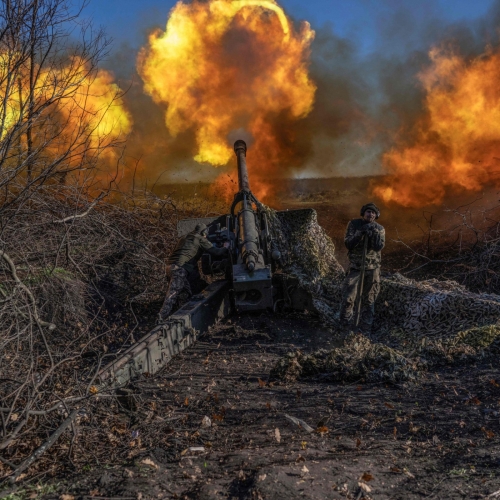
Des opérations spéciales à la guerre des civilisations : le bilan de l'année écoulée selon Alexandre Douguine
Markku Siira
Source: https://markkusiira.com/2023/02/27/erikoisoperaatiosta-sivilisaatioiden-sotaan-aleksandr-duginin-arvio-kuluneesta-vuodesta/
Une année s'est écoulée depuis le début de l'opération militaire spéciale russe en Ukraine. Selon le politologue Alexandre Douguine, avec cette opération militaire, la Russie est "entrée dans une guerre totale et difficile", non pas tant avec l'Ukraine, mais surtout avec "l'Occident collectif", c'est-à-dire le "bloc de l'OTAN" (à l'exception de la Turquie et de la Hongrie, qui restent neutres dans le conflit).
Selon Douguine, l'année de guerre a brisé de nombreuses illusions entretenues par toutes les parties impliquées dans le conflit. Douguine ne cherche pas à présenter les choses sous leur meilleur jour, mais il est également conscient des erreurs commises par la Russie. Alors que les rapports des universitaires occidentaux ne remettent pratiquement jamais en question les actions du régime et de l'armée ukrainiens, l'analyse de Douguine est ouvertement critique à l'égard des dirigeants militaires russes.
Les erreurs de l'Occident et de la Russie
L'erreur de calcul de l'Occident a été de s'attendre naïvement à ce que les sanctions économiques contre la Russie fassent tomber le régime de Poutine. "Malgré les vœux pieux de l'Occident, l'économie russe s'est maintenue, il n'y a pas eu de protestations internes à grande échelle et la position de Poutine n'a pas été ébranlée, elle a été renforcée", constate M. Douguine.
Dès le début du conflit, la Russie, consciente de l'effritement de ses relations avec l'Occident, s'est brusquement tournée vers les pays non occidentaux - notamment la Chine, l'Iran, les pays islamiques, mais aussi l'Inde, l'Amérique latine et l'Afrique - et a affiché clairement et résolument son objectif de créer un "monde multipolaire".
"En partie, la Russie essayait déjà d'affirmer sa souveraineté, mais de manière hésitante, pas du tout cohérente, revenant constamment à des tentatives d'intégration à l'Occident mondialisé. Aujourd'hui, cette illusion s'est enfin dissipée et Moscou n'a plus d'autre choix que de poursuivre la construction d'un ordre mondial multipolaire", explique M. Douguine.
Pourtant, même les projets de la Russie ne se sont pas déroulés comme prévu, critique Douguine. Selon lui, le plan consistait en effet à frapper rapidement et de manière préventive en Ukraine, à assiéger Kiev et à forcer le régime de Zelensky à se rendre. Moscou aurait alors mis au pouvoir un politicien local modéré (quelqu'un comme Viktor Medvedchuk ?) et aurait commencé à rétablir les relations avec l'Occident (comme cela s'est produit après l'annexion de la Crimée).
L'affirmation de Douguine contredit les déclarations officielles de la Russie selon lesquelles la prise de Kiev n'a jamais été l'objectif principal de l'opération spéciale, tandis que Douguine attribue l'échec de la prise de Kiev aux premiers stades de l'opération à une direction et une planification militaires médiocres, ainsi qu'à l'absence d'une véritable mentalité de combat.
"Tout a mal tourné", insiste Douguine. La planification stratégique de l'ensemble de l'opération spéciale a été entachée d'énormes erreurs. Le calme de l'armée, de l'élite et de la société, qui n'étaient pas préparés à une confrontation sérieuse avec le régime ukrainien, sans parler de l'Occident collectif, a contribué aux complications.
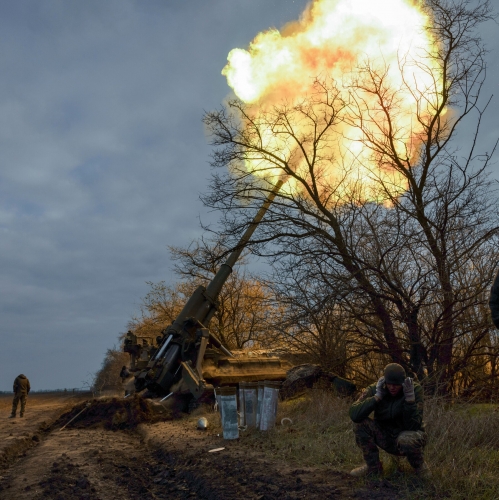
"L'offensive s'est enlisée face à la résistance désespérée et féroce d'un adversaire bénéficiant d'un soutien sans précédent de la machine de guerre de l'OTAN. Le Kremlin n'a probablement pas pris en compte la préparation psychologique des nazis ukrainiens à se battre jusqu'au dernier Ukrainien, ni l'ampleur de l'assistance militaire occidentale", explique Douguine.
La Russie n'a pas non plus compris "les effets de huit années de propagande intensive, qui ont alimenté jour après jour la russophobie et le nationalisme hystérique extrême dans la société ukrainienne".
Les étapes de la première année de guerre
Douguine comprend que les amis et alliés de la Russie soient en partie déçus par la première année de l'opération militaire spéciale. Beaucoup pensaient probablement que les capacités militaires de la Russie seraient si importantes et si bien réglées que le conflit ukrainien serait résolu relativement facilement et rapidement.
Au cours des deux premiers mois, la Russie a effectivement réalisé des progrès rapides. Cependant, après une défense acharnée de l'Ukraine et l'échec des négociations de paix, le rythme s'est ralenti. Au cours de l'été 2022, une impasse est apparue sur le front, associée à des actes de terreur ukrainiens qui ont débordé sur la Russie.
Les contre-attaques ukrainiennes sont couronnées de succès grâce aux équipements modernes de l'OTAN et la Russie se retire de Kharkiv et de Kupynsk. Il s'en est suivi une nouvelle levée de boucliers, la déclaration d'une mobilisation partielle et des référendums à Donetsk, Louhansk, Zaporizhia et Kherson sur l'annexion de ces régions à la Fédération de Russie.
La Russie a enclenché une nouvelle vitesse, mais les progrès sont encore lents. Est-ce dû à la résistance de l'Occident armé de l'OTAN ou la Russie mène-t-elle une "guerre d'usure" délibérée pour détruire les ressources de l'Occident de l'OTAN ?
La défaite de l'Ukraine, la victoire de la Russie ?
Quoi qu'il arrive dans un avenir proche, l'Ukraine d'aujourd'hui est déjà condamnée. La Russie cherche à vaincre le régime fantoche pro-occidental de Kiev. Douguine est convaincu qu'à l'avenir, l'Ukraine cessera d'exister en tant qu'État national et indépendant (avec l'opération de changement de pouvoir Maïdan menée par l'Occident, c'est en fait déjà arrivé).
Malgré ses déclarations haineuses, l'Occident n'a aucune raison de pousser le conflit à l'extrême. Même si l'Occident perd toute l'Ukraine, il a déjà gagné beaucoup, et la Russie ne devrait pas représenter une menace critique pour les pays européens de l'OTAN, et encore moins pour les États-Unis. "Tout ce qui est dit dans ce contexte n'est que pure propagande", estime Douguine.
La Russie ne peut accepter rien de moins que la libération de Donetsk, Louhansk, Zaporizhia et Kherson et la préservation de la Crimée. Douguine appelle cette option la "victoire minimale", mais déclare immédiatement après qu'il s'agit d'une solution inadéquate. La "victoire moyenne" serait la libération de l'ensemble de la "Novorossiya", y compris Odessa, Kharkiv et Nikolaïev.
Une "victoire totale" russe libérerait toute la région ukrainienne et rétablirait l'unité historique de la superpuissance eurasienne. Cela signifierait l'abolition du statut d'État de toute l'Ukraine actuelle (à l'origine une invention russe) et la réunification de l'ancienne Russie de Kiev avec le reste de la Russie.
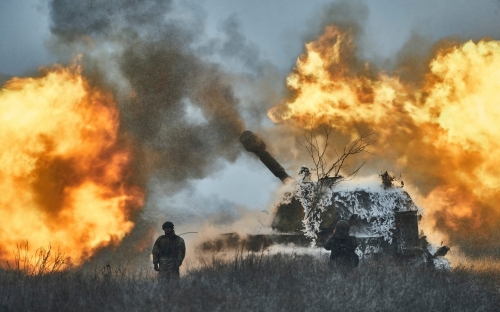
Le choc des civilisations
Alors que le conflit en Ukraine s'intensifie, la Russie ne traite plus l'Occident comme un "partenaire", mais considère l'alliance comme une menace pour son existence. La Russie a changé de paradigme, passant du réalisme politique à la théorie d'un monde multipolaire, rejetant le libéralisme et défiant la civilisation occidentale moderne, lui déniant le droit d'être universelle, englobante.
L'opération militaire spéciale s'est révélée être un désastre pour la partie libérale de la classe dirigeante russe, qui n'aurait pas voulu d'une telle épreuve de force avec l'Occident. Un an plus tard, la situation s'est encore aggravée et il n'y a pas de retour en arrière possible. Même les oligarques sont devenus patriotes ou ont fui le pays.
Il est devenu évident que la Russie est en guerre contre l'ensemble de la civilisation libérale occidentale moderne et contre les valeurs que l'Occident tente d'imposer à tous les autres. "Ce revirement dans la prise de conscience par la Russie de la situation mondiale est peut-être le résultat le plus important de l'opération militaire spéciale", suggère Douguine.
La défense de la souveraineté s'est transformée en un choc des civilisations. La Russie ne défend plus un régime politique qui, malgré ses différences, partage les attitudes, les critères, les normes, les règles et les valeurs de l'Occident, mais agit comme une civilisation indépendante - avec ses propres attitudes, critères, normes, règles et valeurs.
N'est-ce pas précisément ce que Poutine a proclamé dans ses discours, jetant les bases d'une politique de protection des valeurs russes qui non seulement diffèrent sensiblement du libéralisme, mais qui, à certains égards, en sont l'exact opposé ? C'est en tout cas ce que semble penser Douguine.
Tout le mandat de Poutine a été, selon Douguine, "une préparation à ce moment décisif", mais avant le début de l'opération spéciale, les dirigeants russes s'inscrivaient encore dans le cadre de référents politiques de mouture occidentale.
Aujourd'hui, après une année de dures épreuves et de terribles sacrifices, le schéma a changé : la Russie est consciente d'être un État-civilisation doté d'une identité distincte, que l'élite dominée par l'Occident veut détruire.
Alors que le conflit en Ukraine s'éternise, les contradictions internes de l'Occident ne feront que s'accentuer. L'opération militaire spéciale de la Russie rompt non seulement avec l'Occident de l'OTAN et avec les soldats ukrainiens, mais aussi avec la couche libérale de la société russe. La Russie est en train de devenir un contre-pouvoir crédible à l'ordre occidental. Qui sait, peut-être qu'à un moment donné, l'Occident devra prendre exemple sur Moscou, et non l'inverse ?
17:49 Publié dans Actualité, Affaires européennes | Lien permanent | Commentaires (0) | Tags : alexandre douguine, russie, ukraine, occident |  |
|  del.icio.us |
del.icio.us |  |
|  Digg |
Digg | ![]() Facebook
Facebook
samedi, 04 mars 2023
Guillaume Faye vs Alexander Douguine (Français)
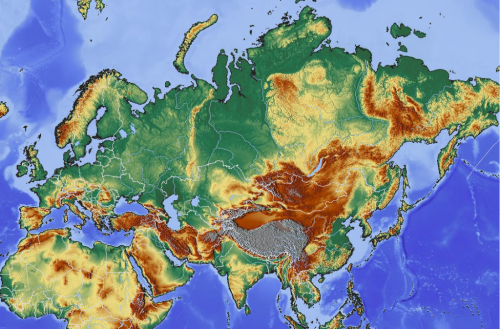
Guillaume Faye vs Alexander Douguine
Constantin von Hoffmeister
Source: https://eurosiberia.substack.com/p/guillaume-faye-vs-alexander-dugin
Guillaume Faye était un philosophe politique et écrivain français qui a inventé le terme Archéofuturisme, qui désigne une synthèse d'idées anciennes et futuristes. Faye pensait que la mondialisation et l'immigration de masse menaçaient le patrimoine culturel et historique de l'Europe et qu'une nouvelle vision était nécessaire pour assurer la survie de la civilisation européenne.
L'attitude de Faye repose sur la préservation des traditions européennes tout en adoptant la technologie et l'innovation. Il a imaginé un monde dans lequel l'Europe perfectionnera sa propre espèce, colonisera l'univers et construira des vaisseaux spatiaux portant le nom de dieux païens. Cette vision est influencée par son concept d'Eurosibérie, un bloc de pouvoir allant de Dublin à Vladivostok, partiellement inspiré des idées du penseur belge Jean Thiriart. Thiriart pensait qu'une Europe unifiée en tant qu'entité géopolitique et culturelle, basée sur le concept d'un super-État européen unifié qui serait suffisamment fort pour rivaliser avec les États-Unis et l'Union soviétique à l'époque de la guerre froide, servirait non seulement de contrepoids aux puissances dominantes de l'époque, mais constituerait également un moyen plus efficace de préserver le patrimoine culturel et l'identité de l'Europe, qu'il percevait comme étant menacés.
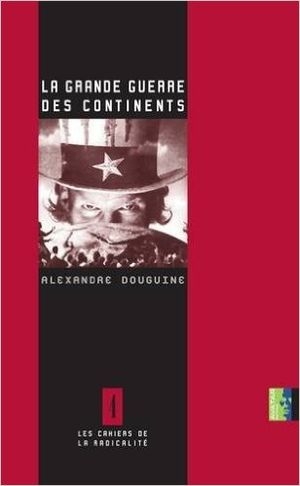
Alexander Douguine est un philosophe politique et activiste russe controversé, connu pour son soutien à l'eurasisme, une idéologie géopolitique qui cherche à unir la Russie à d'autres pays de la région eurasienne afin d'établir une "civilisation eurasienne" contre l'Occident. L'archéofuturisme de Faye s'oppose à l'eurasianisme d'Alexandre Douguine dans le domaine de la philosophie politique. La vision de Faye souligne l'importance de préserver les valeurs traditionnelles et les traditions de l'Europe, qui remontent à la Grèce antique et à l'Empire romain. Il soutient que les idées des Lumières, telles que l'individualisme et la laïcité, ont érodé ces traditions et constituent une menace pour la pérennité de la culture européenne. Douguine, quant à lui, critique l'idée d'une suprématie culturelle européenne et privilégie plutôt un monde multipolaire dans lequel diverses civilisations, dont la Russie et la Chine, peuvent coexister et coopérer.
Les États-Unis étant essentiellement une entité du domaine civilisationnel européen, Faye les considère comme un adversaire plutôt qu'un ennemi. Il met en garde contre les dangers de négliger les idéaux et les traditions de l'Europe et considère la notion d'eurasisme de Douguine comme une menace pour la survie de la civilisation européenne. Douguine, quant à lui, considère l'Occident, qui comprend l'Europe et les États-Unis, comme le principal ennemi et affirme que ses valeurs libérales mettent en danger la survie des autres cultures. Il estime que les Etats-Unis incarnent tout ce qui ne va pas dans le monde moderne et rejette entièrement le concept de suprématie culturelle occidentale.
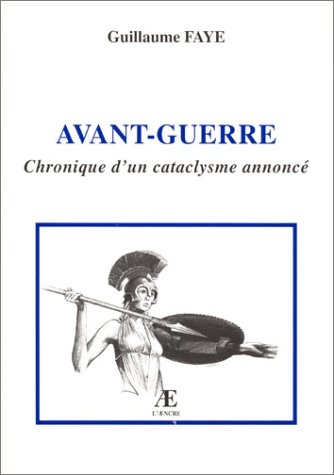
Faye et Douguine ont des points de vue opposés sur l'implication de la Russie en Europe. Faye pense que la Russie devrait être membre d'un bloc de pouvoir eurosibérien s'étendant de l'Atlantique au Pacifique, qui serait une entité politique et économique autosuffisante ayant une influence mondiale. Compte tenu de leurs liens culturels et historiques communs, Faye considère la Russie comme un allié naturel de l'Europe et estime que la coopération entre l'Europe et la Russie est essentielle pour l'avenir de la culture européenne. Douguine, en revanche, estime que dans un monde multipolaire, la Russie devrait en prendre la tête en tant qu'unificatrice du cœur de l'Eurasie. Il s'oppose au concept d'une Eurosibérie unifiée (ou "Euro-Russie") en faveur d'un ordre mondial plus fragmenté, dans lequel diverses civilisations coopèrent et se font concurrence. Douguine considère la Russie comme un contrepoids à l'hégémonie culturelle de l'Occident et estime qu'elle doit se battre pour faire avancer les intérêts du monde dit "non occidental".
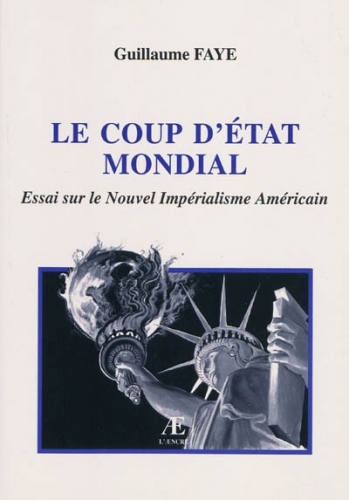
Dans son livre Archéofuturisme, Faye discute du transhumanisme. Il examine le potentiel de la technologie à transformer l'humanité et la société tout en mettant en garde contre les dangers d'une foi aveugle dans le progrès technologique. Faye soutient que, si le transhumanisme a le potentiel de faire progresser la médecine et la longévité de manière significative, il comporte également le risque de déshumaniser et de chosifier les individus. Faye prévient également que le transhumanisme pourrait exacerber les inégalités sociales existantes, car seuls les riches peuvent s'offrir des technologies avancées. Douguine a mentionné le transhumanisme dans un certain nombre d'ouvrages, dont son livre La quatrième théorie politique. Douguine critique le transhumanisme comme une idéologie qui aspire à remplacer l'être humain traditionnel par une créature post-humaine technologiquement améliorée, menant finalement à l'abolition de l'humanité telle que nous la connaissons. Le transhumanisme, dit-il, est un symptôme de la fixation du monde moderne sur le progrès technique, qui a entraîné la déshumanisation de la société et l'érosion des valeurs conventionnelles. Douguine soutient que le transhumanisme est une vision du monde néfaste et nihiliste qui menace le destin de l'humanité.
Le conflit entre les visions de Faye et de Douguine illustre le désaccord plus important entre leurs perspectives sur la signification de la tradition et de l'héritage dans le monde moderne. Alors que Faye croit en la nécessité de préserver l'héritage culturel et historique de l'Europe et considère que les Etats-Unis se sont éloignés de leur matrice européenne, Douguine rejette entièrement l'idée de la supériorité culturelle de l'Europe et considère les Etats-Unis comme une menace pour les autres civilisations. Malgré leurs perspectives différentes sur la place de la Russie, Faye et Douguine s'accordent à dire que l'ordre mondial actuel est contrôlé par les valeurs libérales occidentales, qui doivent être remises en question. Faye pense qu'une Europe et une Russie unies sont nécessaires pour combattre cette suprématie, tandis que Douguine soutient un ordre mondial plus fragmenté dans lequel diverses civilisations coexistent pacifiquement. Enfin, leurs perspectives divergentes sur l'implication de la Russie reflètent un différend plus large sur la meilleure approche pour conserver et développer l'héritage culturel et historique de leurs régions.
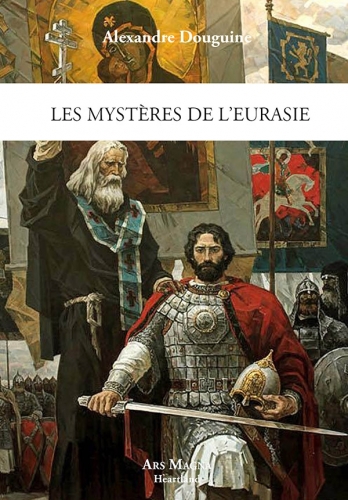
Une nouvelle vision de l'Europe peut être produite en combinant les concepts de Faye et de Douguine. Tout en acceptant le progrès technologique, cette vision met l'accent sur la préservation de l'héritage culturel et historique de l'Europe. Le concept de Großraum de Carl Schmitt est utilisé pour imaginer l'Europe comme un espace high-tech de grande taille. Dans cette vision, l'Europe serait membre d'un ordre multipolaire, interagissant poliment avec les autres civilisations. La combinaison de l'accent mis par Faye sur la continuité culturelle et du point de vue multipolaire de Douguine permet à l'Europe de conserver son caractère propre tout en favorisant un ordre mondial plus harmonieux et pacifique. La difficulté, cependant, est de concilier ces points de vue apparemment contradictoires. Il est essentiel de résoudre ce dilemme si l'Europe veut jouer un rôle clé dans le façonnement de l'avenir du monde. Au lieu d'être identifiée par son passé colonial ou sa suprématie culturelle, la vision proposée présente l'Europe comme un leader en matière de technologie et d'innovation.
Merci de lire Eurosiberia ! Abonnez-vous gratuitement pour recevoir les nouveaux articles et soutenir mon travail.
Constantin est sur Twitter, Telegram et Substack. Suivez-le et abonnez-vous !
Twitter: @constantinvonh
Telegramm: https://t.me/eurosiberia1
Substack: https://eurosiberia.substack.com
Eurosiberia
18:42 Publié dans Actualité, Eurasisme, Nouvelle Droite | Lien permanent | Commentaires (1) | Tags : alexandre douguine, guillaume faye, eurasisme, nouvelle droite, nouvelle droite russe, russie, eurosibérie |  |
|  del.icio.us |
del.icio.us |  |
|  Digg |
Digg | ![]() Facebook
Facebook
vendredi, 03 mars 2023
Le Logos divin, la révolte contre la dictature libérale, le mauvais sort du posthumanisme

Le Logos divin, la révolte contre la dictature libérale, le mauvais sort du posthumanisme
Alexandre Douguine
Source: https://www.geopolitika.ru/article/bozhestvennyy-logos-vosstanie-protiv-liberalnoy-diktatury-zloy-rok-postgumanizma
En décembre 2022, la salle de concert d'État A. M. Katz à Novossibirsk a accueilli le premier forum sibérien du WRNS avec la participation des chefs du gouvernement de la région de Novossibirsk et de la métropole de Novossibirsk de l'Église orthodoxe russe. Parmi les orateurs de l'événement figurait le philosophe le plus célèbre de la Russie moderne, Alexandre Douguine, avec lequel le correspondant de Leaders Today, Alexander Zonov, s'est entretenu un peu plus tard à Moscou.
ALEXANDER ZONOV : Alexander G. Dugin, quelle est l'importance de la philosophie de nos jours et qui peut bénéficier de cette science ?
ALEXANDER DUGIN : A mon avis, la philosophie est destinée à un type particulier de personnes qui gravitent vers la verticale: vers la profondeur, vers la hauteur. En ce sens, l'idée de Platon d'un État dirigé par des personnes qui ont fait leur chemin vers la lumière de la philosophie, qui est liée à la religion et à l'esprit, est très correcte. En fait, tel est mon objectif: transmettre l'idée que, dans notre culture, nous devons réserver une place centrale à ce "trône d'or" qui devrait être le cœur de l'État. Ce que j'appelle de mes vœux, ce n'est donc pas tant la pratique de la philosophie, mais plutôt la révérence à son égard et le fait de la placer au centre de tout : économie, vie sociale, politique. Après tout, même la plupart des sciences ne sont que des aspects appliqués de la philosophie. Ce n'est pas par hasard qu'en Occident, le diplôme de doctorat s'appelle PhD, c'est-à-dire "docteur en philosophie", et celui qui ignore la philosophie ne mérite pas un tel titre. C'est-à-dire que, à proprement parler, ce n'est pas du tout un scientifique.
A.Z.: Et quelle est la différence entre la philosophie et la science ? C'est pourquoi, par exemple, les mathématiques sont souvent considérées comme une discipline à l'intersection de la philosophie et de la science, la physique est plutôt considérée comme une science, et l'éthique comme une philosophie. Où se situent ces frontières ?
A.D. : Il ne fait aucun doute que dans la société traditionnelle, la philosophie et la science représentaient un seul et même continuum. Les hypostases contemplatives et appliquées n'y étaient pas détachées les unes des autres. Les mathématiques pures avaient toujours été l'occupation des théologiens, car elles traitaient des principes et des lois fondamentales de la pensée, distribués au sein du Logos, le principe divin au sein duquel les lois logiques et mathématiques étaient valables. Le passage aux disciplines appliquées, le mouvement vers la matière, la nature (qui est le domaine des autres sciences - comme la physique, etc.) a nécessité d'autres méthodes, élevées à l'unité, mais avec certains changements essentiels.
Par exemple, chez Albert le Grand, nous pouvions lire tout à la fois des traités sur les anges et sur les propriétés des minéraux. Mais tout est bien à sa place. L'angélologie exige certaines procédures intellectuelles, la minéralogie d'autres.
Dans la culture d'Europe occidentale, cependant, lors du passage de la société traditionnelle aux temps modernes, cette unité a commencé à se fracturer. La philosophie des temps modernes et la science des temps modernes ont émergé. La science, depuis l'époque de Newton, de Galilée, a commencé à prétendre qu'elle porte la dernière vérité sur la structure de la réalité extérieure. Mais la philosophie des temps modernes - de Leibniz à la phénoménologie de Brentano et Husserl - a suivi une trajectoire différente : elle a poursuivi la culture du Logos, préservé la valeur du sujet et, dans l'ensemble, essayé de sauver la dignité de la pensée. Au 19ème siècle, Wilhelm Dilthey a divisé toutes les sciences en spirituelles et naturelles - Geisteswissenschaften et Naturwissenschaften.
Mais cette division est insidieuse ; elle contient un piège. Les personnes qui font de la science aujourd'hui supposent qu'elles ont affaire à quelque chose d'objectif, contrairement à la philosophie, qui erre dans les labyrinthes d'une subjectivité difficile à cerner. Les membres des sciences naturelles ont tendance à ne pas penser au paradigme philosophique qui sous-tend ce qu'ils font. Mais une fois qu'ils commencent à y penser - comme Heisenberg, Pauli, Schrödinger - ils découvrent que la science ne traite rien d'autre que certaines projections de la conscience philosophique.
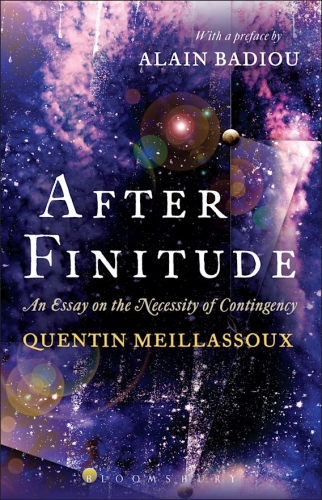
Et voici ma conclusion finale sur la base de nombreuses années de recherche sur la philosophie des sciences et l'histoire des sciences : la science moderne n'est rien d'autre que de la philosophie, qu'une philosophie matérialiste, titanesque et fausse. Elle est essentiellement anti-philosophie. Si nous lisons After Finitude de Quentin Meillassoux, il deviendra clair qu'il y a enfin eu cette rencontre entre la philosophie noire implicite (l'anti-philosophie) jusqu'alors dissimulée sous le nom de "science" et la philosophie ardente de l'Occident, encore couplée au sujet qui s'efface, au Logos qui se dissipe. Nous sommes arrivés au point de révéler ce drame séculaire. La science moderne est plus que l'application des principes de la philosophie moderne (la philosophie de la modernité) aux domaines d'application. Il s'agit précisément d'une philosophie qui est subversive et destructrice dès le départ. C'est essentiellement une philosophie du mensonge, puisqu'elle repose sur des prémisses entièrement fausses et contre nature - atomisme, matérialisme, nominalisme.
La science moderne a joué un rôle énorme - décisif - dans ce qui se passe aujourd'hui dans la société occidentale - sa dégénérescence, sa perte de verticalité, d'éthique, de religion. L'athéisme offensif agressif implicite dans la science a conduit la civilisation à la croyance abjecte qu'il n'y a pas de Dieu, et s'il y a un Dieu, alors seulement en tant que cause logique - quelque chose comme un Big Bang, une chaîne causale déduite de façon purement rationnelle.
A.Z. : C'est pourquoi vous préférez l'orthodoxie, qui est littéralement "l'orthodoxie chrétienne" et qui a une nature plus traditionnelle ?
A.D. : Pour moi, l'orthodoxie est la vérité absolue : à la fois la vérité religieuse, la vérité théologique et la vérité philosophique. Ce choix semble aléatoire à première vue (je suis né dans ce pays et j'ai été baptisé ici quand j'étais enfant), mais en réalité, c'est un choix conscient. Je suis venu à l'église à l'âge adulte. J'ai étudié diverses religions traditionnelles et je les tiens toujours en haute estime sur le plan philosophique. Mais pour moi, la vérité est absolue dans le christianisme orthodoxe et c'est un chemin direct vers la dimension verticale la plus vraie du ciel. Pour le peuple russe, notre Église avec ses traditions, son lien avec les profondeurs des siècles, avec l'éternité est un luxe sacré, et il serait déraisonnable de le refuser.
A.Z. : Eh bien, de la science et de la culture, je propose de passer à la politique. On dit que par rapport au 20ème siècle, où les blocs idéologiques fascistes, communistes et libéraux étaient fortement ancrés dans la société, le 21ème siècle est désidéologisé. Comment évaluez-vous cette affirmation ?
A.D. : Le terme "désidéologisation" décrit en partie correctement notre situation, mais si vous regardez plus en profondeur, ce n'est pas le cas. Les trois idéologies qui avaient déjà été façonnées définitivement au 20ème siècle - le fascisme, le communisme et le libéralisme - ont cessé d'exister sous leur ancienne forme classique. Mais elles ne se sont pas contentées de se réduire et de disparaître. Elles se sont combattues âprement - y compris dans des guerres mondiales - tout au long du 20ème siècle.
À la fin du 20ème siècle, le libéralisme a gagné - il est devenu non seulement une idéologie, un ensemble d'attitudes, mais quelque chose comme une vérité absolue et incontestable. Le libéralisme est entré dans les choses, dans les objets -- la science, la politique, la culture -- et est devenu la mesure universelle des choses. Les deux autres idéologies dominantes -- le communisme et le fascisme -- se sont effondrées, perdues, et sont devenues des simulacres, que les libéraux victorieux manipulent librement et cyniquement aujourd'hui.
Mais quel meilleur moyen de soutenir les nouvelles idées fondamentales de l'économie de marché, de la démocratie représentative en politique, des droits de l'homme et du post-modernisme dans la culture, du progrès technologique dans l'idéologie et du plus haut niveau d'individualisme dans la définition de la nature humaine que le libéralisme, y compris l'abolition du genre en politique et le règne de l'intelligence artificielle ? Le libéralisme a mis la réalité humaine universelle sous son contrôle, et aujourd'hui, cette idéologie est devenue ouvertement totalitaire et obsessionnelle. Nous vivons donc dans une ère d'hyperidéologisation, seulement cette idéologie au nom de laquelle se perpétue la dictature mondiale est le libéralisme, imprégnant les objets, les gadgets, les réseaux, la technologie, les codes numériques.
D'autre part, il y a un désir croissant de résister à cette dictature libérale, mais à la lumière de l'échec du communisme et du fascisme au 20ème siècle, sans les désigner comme des constructions idéologiques inefficaces et vaincues. L'heure est au départ de ces trois anciennes idéologies. Nous devons donc nous attacher à critiquer le libéralisme à partir de nouvelles positions et à rechercher des scénarios et des alternatives entièrement nouveaux - de préférence en dehors de l'Europe et de la modernité européenne. Le destin de l'humanité ne s'arrête pas à la culture de l'Europe des 500 dernières années. Elle inspire un grand nombre de personnes aujourd'hui, mais il ne s'agit pas de désidéologiser, mais de trouver des moyens d'écraser l'hégémonie libérale avec le soutien de nouvelles idées. C'est ce que j'appelle la Quatrième Théorie Politique.
A.Z. : Peut-on dire que la Russie fait partie de ces nombreux pays ?
Dans les années 1990, la Russie a essayé de devenir un élève modèle du libéralisme. Et cela reste, hélas, un élément de notre système d'exploitation. Mais aujourd'hui, en effet, nous sommes présents et nous tentons de défendre notre souveraineté, de nous débarrasser de notre dépendance totale au langage même, à la syntaxe, du mondialisme libéral. Nous avons défié la Matrice, mais nous sommes toujours à l'intérieur. Dans la situation actuelle, celle de l'Opération militaire spéciale, cela a été clairement établi. Oui, il s'agit d'une revendication de souveraineté civilisationnelle et donc d'une idéologie propre. Évidemment, elle ne peut être libérale en aucune façon, mais elle ne peut pas non plus être communiste ou nationaliste.
Mais nous n'avons pas encore donné le maximum, nous nous sommes seulement rebellés. Jusqu'à présent, cela ressemble à une protestation des esclaves du libéralisme contre les maîtres du libéralisme. Mais pour gagner cette rébellion de la civilisation souveraine, les rebelles doivent proposer un autre modèle, alternatif, leur propre langage, leur propre idéologie.
A.Z. : En parlant de modèle. En 2020, des amendements ont été apportés à la Constitution, mais ils n'ont pas touché à l'article 13 qui dit qu'"aucune idéologie ne peut être établie comme idéologie d'État ou obligatoire". Selon vous, pourquoi le président Poutine a-t-il décidé de ne pas modifier cet article ? Pour que l'idéologie libérale ne devienne pas l'idéologie d'État ? Et comment un Etat peut-il exister sans idéologie ?
A.D. : Nous sommes confrontés à une civilisation libérale mondiale, et il est impossible d'y résister sans notre propre plate-forme idéologique. La demande visant à inscrire dans notre réel notre idée russe, cette idée qui justifie notre civilisation, qui implique la protection des valeurs traditionnelles (ce à quoi vise le décret présidentiel du 09.11.2022 "Sur l'approbation des fondements de la politique publique"), est évidente et est reconnue par le peuple et les autorités. Je pense toujours que les hauts dirigeants du pays ne remettent pas en question le fait que la Russie a besoin de sa propre position civilisationnelle. Et cela signifie sa propre idée.
Quant à l'article 13 que vous avez cité - il peut être interprété comme une autre initiative subversive des libéraux qui voulaient éviter une rechute dans le communisme, dont ils avaient peur. Dans les années 1990, les réformateurs libéraux pensaient que si l'idéologie était totalement interdite, le libéralisme resterait la seule idéologie, synonyme de "normalité" et de "progrès". C'est comme ça à l'Ouest, donc ça devrait être comme ça chez nous. Et, disent-ils, ce n'est pas une idéologie, mais une sorte d'évidence.
De nos jours, les libéraux n'ont pas l'hégémonie politique dans la société russe qu'ils avaient dans les années 1990, mais ils conservent leurs positions à de nombreux niveaux de l'appareil d'État, dans les structures de gestion, les affaires, la politique - dans l'élite en tant que telle. Et c'est ainsi que cette classe dirigeante à orientation libérale résiste au changement constitutionnel, continuant à défendre ses intérêts claniques et mondialistes comme une sorte de secte totalitaire. Il est tout à fait évident que la nouvelle idéologie d'État en Russie ne peut être qu'antilibérale. Lorsque la question deviendra un enjeu, la majorité de la population aura son mot à dire, et les valeurs traditionnelles seront légitimées et une idéologie traditionnelle établie.
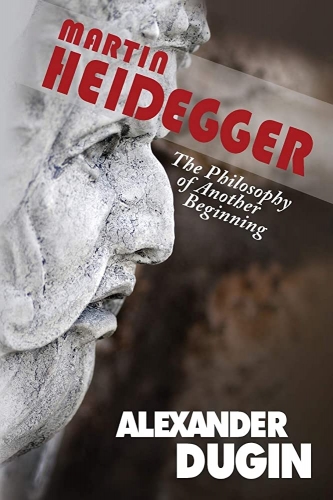
A.Z. : Le concept central de votre philosophie est le Dasein, un concept philosophique utilisé par Martin Heidegger. C'est un terme difficile à traduire et mal compris en Russie. Pour les lecteurs qui ne sont pas forts en philosophie académique : qu'est-ce que c'est ?
A.D. : Le Dasein est en effet un concept difficile, et Heidegger lui-même n'appréciait pas la façon dont il était traduit dans d'autres langues. Chez Heidegger, le Dasein est une présence pensante dans le monde qui existe à travers un peuple, donc, dans un sens, nous pouvons dire qu'un peuple est synonyme de Dasein. Un peuple n'existe pas en tant que totalité d'individus (ce serait l'explication libérale d'un peuple), ni en tant que classe (ce serait la justification communiste), ni en tant que nation politique, encore moins en tant que race (ce serait la définition politique ou biologique d'un peuple), mais en tant que sujet autonome de l'histoire, passant par sa présence dans le monde de l'être.
Ceci est vraiment difficile à comprendre d'emblée, et je suggère à ceux qui le souhaitent de se familiariser avec les œuvres de Heidegger, et surtout avec Sein und Zeit, mieux encore, en version originale, en allemand, car, malheureusement, ce livre n'est pas traduit correctement en russe.
A.Z. : Et puis lisez votre "Quatrième théorie politique" (4TP). Comment la décririez-vous pour le lecteur non initié ?
A.D. : La 4TP est axée sur le caractère sacré de l'être historique, d'un peuple dans son ensemble, et de la mission spirituelle-intellectuelle de l'homme dans le monde. Le plus proche correspond aux idées du Père Sergius Bulgakov, sa "philosophie de l'économie" construite comme un projet de transformation de l'activité économique en une liturgie toute nationale, une transfiguration du monde par la Sophia.
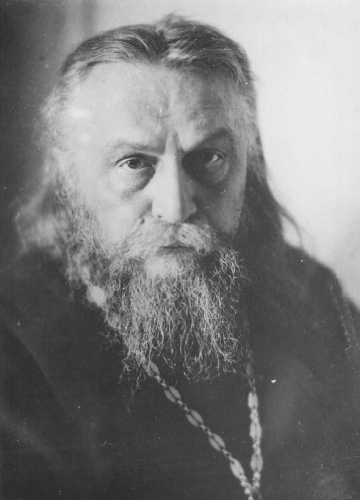
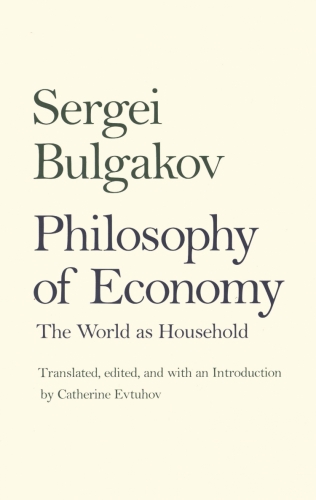
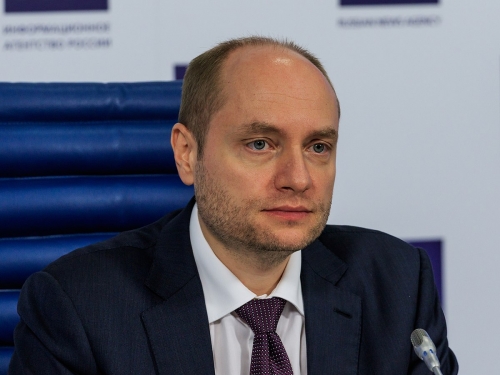
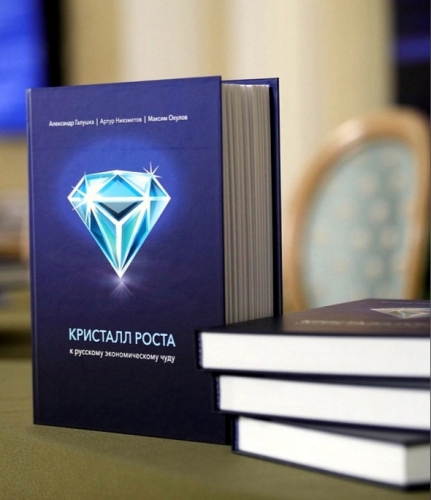
A.Z. : La "liturgie nationale" semble une terminologie sublime. Mais quelle est la base économique de la 4TP ?
A.D. : Le célèbre économiste russe Alexandre Galushka, auteur du livre Le cristal de la croissance, a développé, à mon avis, un modèle d'économie efficace et utile à l'opposé des trois idéologies politiques : libérale, communiste et nationaliste. Galushka voit la solution au principal problème économique - en termes libéraux, l'inflation - dans la création d'un système financier à deux circuits. L'argent du "premier circuit" est de l'argent ordinaire ; le "second circuit" est constitué d'argent utilisé pour la construction stratégique, les projets à grande échelle, la défense et la création d'une infrastructure puissante. Cet argent n'entre pas sur le marché. La création de ce "second circuit", réservé aux projets stratégiques, a également été perçue par Galushka dans les réformes de Franklin D. Roosevelt (basées sur Keynes), et dans l'Allemagne nazie dans la stratégie de Hjalmar Schacht, et sous Staline. Galushka a trouvé l'expression la plus compacte de cette stratégie chez l'économiste russo-allemand du début du 20ème siècle, Franz Ballod. Chaque fois que le modèle à deux boucles est accepté par la société, il y a une percée puissante dans le développement de l'État. Et ceci est complètement indépendant du libéralisme, du communisme ou du fascisme. Il ne s'agit pas de ces idéologies, il s'agit d'autre chose. Plus précisément, une combinaison de l'État et du peuple, du plan et de la libre entreprise.
En acceptant sa proposition, je suis prêt à reconnaître l'approche de Galushka comme l'expression d'une "Quatrième théorie économique", idéalement adaptée à la Russie, où nous avons aujourd'hui un libéralisme complètement épuisé, des tentatives sporadiques d'étatisation, la nostalgie du socialisme et... tout. Et nous devons passer à autre chose.
A.Z. : Mais quand même, les libéraux ont la bourgeoisie, les communistes s'appuient sur la classe ouvrière et les fascistes s'appuient sur les grandes entreprises d'une manière ou d'une autre. Et qui va mettre en œuvre votre idée et l'approche que Galushka suggère ?
A.D. : Le peuple ! En réfléchissant à la façon dont nous devrions comprendre ce qu'est le peuple, je me tournerais vers un rite séculaire subtil qui a été établi il y a quelques années - le Régiment Immortel. Une nation, c'est à la fois les ancêtres et les descendants, tous ceux qui composent la communauté invisible des morts concrets et des vivants concrets. À propos, les anciens Slaves organisaient un rite appelé "Jour du nom de la Terre" au début du mois de mai, le jour de la Saint-Georges et aux dates connexes. C'était le moment où les vivants et les morts étaient unis, mais c'est ce qui façonne la nation. Si nous avons besoin d'une description phénologique d'une nation, c'est ce que nous ressentons lorsque nous marchons tous ensemble avec les portraits de nos morts, nos héros du Régiment Immortel. Et peu importe qui vous êtes - un président, un patriarche ou un travailleur invité : nous avons tous eu des ancêtres qui ont combattu pour notre patrie, et chacun s'en souvient. La présence des morts devient tangible à travers les vivants, et les vivants découvrent la présence de la mort et de l'éternité. Ceci est unique. C'est cela, la nation !
Lorsque l'État s'éloigne du peuple, que l'économie se désintègre et que la culture commence à sombrer dans des chimères sans signification, tout cela devra être corrigé par le peuple. Le peuple est le sujet de la 4TP, le peuple en tant que Dasein, en tant que présence pensante dans le monde, dans leur propre patrie vivante, dans le flux de sang et de mémoire qui unit les ancêtres et les descendants.
Bien sûr, si nous étudions Heidegger attentivement, bien d'autres choses nous seront révélées : par exemple, que toute chose est vivante, et que même tout moyen technique doit avoir sa place dans l'être. Les guerriers donnaient des noms à leurs épées, et les paysans aux chevaux et aux vaches. Ainsi, la relation entre l'homme et le monde forme un lien indéfectible. Et le peuple est l'étalon, le sujet vivant, dont nous pouvons faire l'expérience lorsqu'il est plongé dans son élément historique. Il nous explique beaucoup de choses. La philosophie, tout comme la science, l'économie et la politique, doit commencer à se construire à partir de la plus sûre des fondations, à partir d'un peuple concret et de son identité, de ses valeurs traditionnelles, de son être.
A.Z. : A propos des "êtres vivants". De nombreux futuristes sont aujourd'hui extrêmement méfiants vis-à-vis du progrès technologique. Le génie génétique, la cybernétique, disent-ils, peuvent conduire les riches et les puissants - ceux qui ont de l'argent pour se moderniser, pour s'améliorer - à être supérieurs au reste du peuple. Parlerons-nous d'une société où l'inégalité n'est pas seulement sociale, mais aussi, dans une certaine mesure, biologique ?
A.D. : Ces craintes sont justifiées. Nous nous trouvons au seuil de la fin de l'humanité, et c'est le principe de l'individualisme radical qui y a conduit. En libérant l'homme de pratiquement toutes les formes d'identité collective, il l'a en fait vidé de tout contenu - et en fin de compte, de lui-même. Il s'agit là d'un problème idéologique et historique. Comme le libéralisme reste encore la principale matrice de fonctionnement à l'échelle mondiale, le processus de transition vers des pratiques et des technologies posthumanistes est en fait inscrit dans l'inertie de la formation de la civilisation mondiale. On s'achemine vers la modification de la structure biologique de l'homme, le génie génétique, la création de chimères, de cyborgs, qui vont progressivement supplanter les humains. Nous arriverons ainsi à ce que les futurologues appellent la singularité : la fin de l'homme et le transfert du pouvoir à une intelligence artificielle forte. Cette évolution est désormais synonyme de progrès. Quand on dit progrès, on parle de digitalisation, et la digitalisation, c'est le démembrement de toute globalité, c'est la domination du code, et tout cela est associé à un individualisme extrême. C'est le nouveau libéralisme, le "progressisme", dans lequel les vieilles idées sur l'être humain et les contraintes éthiques sont considérées comme quelque chose qui a déjà été dépassé. Par exemple, le réseau neuronal Midjourney est déjà tout à fait capable de générer conventionnellement n'importe quelle idée artistique, intrigue et hallucination. Un autre réseau neuronal, ChatGPT, est déjà capable d'écrire des articles non seulement à égalité avec les journalistes professionnels, mais même mieux qu'eux. En un clic, tout le journalisme sera confié au réseau. Les universités n'enseigneront que la manière d'élaborer un article - mots-clés, conclusions, évaluations. Bientôt, cependant, cela ne sera plus nécessaire non plus. Mais que se passera-t-il ensuite ?
Une autre chose est que l'intelligence artificielle, qui commence à dominer de plus en plus, ne se soucie pas de savoir si vous êtes riche ou pauvre, progressiste ou conservateur. Pour l'instant, elle est programmée par l'oligarchie mondiale et les stratèges militaires de l'OTAN. Mais ce n'est que temporaire. C'est plus important que les plans des globalistes comme Schwab et Soros pour subjuguer l'humanité avec les nouvelles technologies. Après tout, le gouvernement mondial peut à un moment donné devenir une victime de l'intelligence artificielle, et le sort de la technologie déchaînée peut faire tomber dans l'abîme également ceux qui pensent naïvement en être le maître. Ainsi, non seulement les masses opprimées passives, mais les globalistes eux-mêmes pourraient devenir des victimes. Il n'est pas certain qu'un jour, un pirate informatique, un pauvre mendiant qui a accédé au Net n'en effacera pas la conscience d'Abramovich ou de Schwab. Ou bien le Net lui-même estimera que ces crapules arrogantes qui s'attribuent le droit de diriger l'humanité sont loin de leurs propres normes et valeurs et suivent deux poids deux mesures. Et le neuro-réseau fera sauter Soros juste au nom d'une "société ouverte", parce que pour certains elle est "plus ouverte" que pour d'autres. Vous pouvez le cacher aux humains, mais vous ne pouvez pas le cacher à l'intelligence artificielle.
Nous n'avons pas simplement affaire à une conspiration de mauvaises personnes contre de bonnes personnes, mais à la logique du choix de principe que la société occidentale a fait à l'aube même des temps modernes. Le choix en faveur de la technologie pure, qui signifie aliénation, oubli. Cette décision philosophique fondamentale a été prise il y a environ 500 ans en Europe occidentale, puis s'est rapidement répandue dans le monde entier, pour finalement aboutir là où nous sommes aujourd'hui.
Je porte une attention toute particulière au fait que presque toutes les images de science-fiction du 19ème siècle ont été réalisées au 20ème siècle, car la fantaisie - est en un sens une projection de l'avenir. Ainsi, en Occident, des motifs post-humanistes sont déjà délibérément introduits. Il y a des militants des droits de l'homme qui demandent le droit de vote pour l'aspirateur (théorie du "parlement des choses" de Bruno Latour) ou la guêpe (écologistes italiens). Le transfert de certains éléments de l'existence humaine à des sujets non humains, alors que l'humanité elle-même devient de plus en plus mécaniste et prévisible, aura pour conséquence que l'humain et le non humain se mélangeront jusqu'à devenir inséparables. Et il est possible qu'à un moment donné, l'intelligence artificielle décide que l'espèce humaine est obsolète, redondante et trop toxique. Sans elle, le monde sera beaucoup plus propre et plus ordonné... Qui sait quand cela arrivera ?
A.Z. : Une dernière question : Alexandre Douguine, comment voyez-vous votre rôle dans la Russie contemporaine ?
A.D. : Oh, je ne sais pas. Je suis juste un fils de mon peuple, rien de plus. Pour moi, la Russie est une valeur absolue. Mon peuple est le moi le plus élevé que je puisse imaginer. Je sers mon peuple, ma patrie, mon histoire, ma culture et mon Église du mieux que je peux. Je pense que ce n'est pas suffisant, alors j'évalue mon rôle très modestement.
Nous tenons à remercier Evgeny Tsybizov, co-président du Conseil mondial du peuple russe, responsable de l'ONG Tsargrad, pour son aide dans l'organisation de cette interview.
16:10 Publié dans Entretiens, Nouvelle Droite | Lien permanent | Commentaires (0) | Tags : entretien, alexandre douguine, nouvelle droite, nouvelle droite russe |  |
|  del.icio.us |
del.icio.us |  |
|  Digg |
Digg | ![]() Facebook
Facebook
lundi, 20 février 2023
Le dernier discours de George Soros: sur les guerres de la "société ouverte" et sur le climat comme combattant dans le conflit
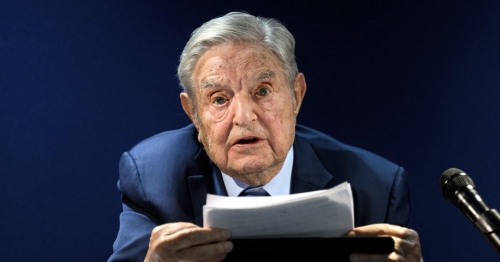
Le dernier discours de George Soros: sur les guerres de la "société ouverte" et sur le climat comme combattant dans le conflit
Alexandre Douguine
Source: https://katehon.com/en/article/george-soross-last-speech-open-society-wars-and-climate-combatant-conflict
Le testament de Soros
Le 16 février 2023, George Soros, l'un des principaux idéologues et praticiens du mondialisme, de l'unipolarité et de la préservation à tout prix de l'hégémonie occidentale, a prononcé en Allemagne, à la Conférence sur la sécurité de Munich, un discours que l'on peut qualifier d'historique. Âgé de 93 ans, Soros résume la situation dans laquelle il s'est trouvé à la fin de sa vie, entièrement dévoué à la lutte de la "société ouverte" contre ses ennemis, c'est-à-dire les "sociétés fermées", selon les préceptes de son maître Karl Popper. Si Hayek et Popper sont les Marx et Engels du mondialisme libéral, Soros est son Lénine. Soros peut sembler parfois extravagant, mais dans l'ensemble, il exprime ouvertement ce qui deviendra ensuite le noyau des principales tendances de la politique mondiale. Son opinion est bien plus importante que le babillage inarticulé de Biden ou la démagogie d'Obama. Tous les libéraux et les mondialistes finissent par faire exactement ce que dit Soros. Il est le maître à penser de l'UE, du MI6, de la CIA, du CFR, de la Commission trilatérale, de Macron, de Scholz, de Baerbock, de Saakashvili, de Zelenski, de Sandu, de Pashinyan, et d'à peu près tous ceux qui défendent l'Occident, les valeurs libérales, le postmoderne et le soi-disant "progressisme" d'une manière ou d'une autre. Soros est important. Et ce discours est son message à l'"Assemblée invisible" du monde, c'est-à-dire une admonestation à tous les innombrables agents du mondialisme, endormis ou éveillés.
Soros a commencé par dire que la situation dans le monde est critique. Il y identifie immédiatement deux facteurs principaux:
- l'affrontement de deux types de gouvernement ("société ouverte" contre "société fermée") et
- le changement climatique.
Le climat (nous en parlerons plus tard) est évoqué par Soros dans la première partie et à la fin de son discours, mais le choc de deux types de gouvernement, en fait les deux "camps", les partisans d'un monde unipolaire (comme Schwab, Biden, l'euro-bureaucratie et leurs satellites régionaux, comme le régime terroriste de Zelensky) et les partisans d'un monde multipolaire en occupent l'essentiel. Examinons les thèses de Soros dans l'ordre.
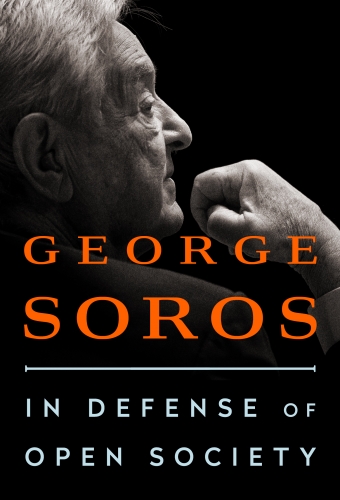
Sociétés ouvertes et fermées : définitions fondamentales
Tout d'abord, Soros fournit des définitions des sociétés "ouvertes" et "fermées". Dans les sociétés ouvertes, l'État protège la liberté de l'individu. Dans les sociétés fermées, l'individu sert les intérêts de l'État. En théorie, cela correspond à l'opposition de la démocratie libérale occidentale et de la société traditionnelle (quelle qu'elle soit). De plus, dans le domaine des relations internationales (RI), cela correspond exactement à la polémique entre les libéraux en RI et les réalistes en RI.
Au niveau de la géopolitique, nous avons l'opposition entre la "civilisation de la Mer" et la "civilisation de la Terre". La civilisation de la Mer, c'est la société commerciale, l'oligarchie, le capitalisme, le matérialisme, le développement technique, l'idéal du plaisir charnel égoïste. C'est la démocratie libérale, la construction de la politique par le bas et la destruction de toutes les valeurs traditionnelles - religion, Etat, domaines, famille, moralité. Le symbole d'une telle civilisation est l'ancienne Carthage phénicienne, pôle d'un immense empire colonial de brigands et d'esclaves, avec le culte du Veau d'or, les cultes sanglants de Moloch, le sacrifice des bébés. Carthage était une "société ouverte".
Elle était opposée à Rome, la civilisation de la Terre, une société basée sur l'honneur, la loyauté, les traditions sacrées, l'héroïsme du service et de la hiérarchie, la valeur et la continuité léguée par les anciennes générations. Les Romains vénéraient les dieux pères lumineux du Ciel et rejetaient avec dégoût les cultes sanglants et chthoniens des pirates des mers et des marchands. On pourrait y voir un prototype de "sociétés fermées", fidèles aux racines et aux origines.

Soros est l'incarnation vivante (jusqu'à présent) du libéralisme, de l'atlantisme, du mondialisme et de la thalassocratie ("pouvoir par la Mer"). Dans la bataille de Carthage contre Rome, il est sans équivoque du côté de Carthage. Sa formule, symétrique à celle du sénateur romain Caton l'Ancien, "Carthage doit être détruite", est la suivante: "Non, c'est Rome qui doit être détruite". Dans nos circonstances historiques, nous parlons de la "troisième Rome". Il s'agit de Moscou.
C'est dit et fait. Et Soros crée une opposition libérale artificielle en Russie même, organise et soutient divers régimes, partis, mouvements, organisations non gouvernementales russophobes hostiles à la Russie, à ses traditions et à ses autorités dans tous les pays de la CEI. Car, pour lui, "Rome doit être détruite". Après tout, "Rome" est une "société fermée", et la "société fermée" est l'ennemi de la "société ouverte". Et les ennemis doivent être détruits. Sinon, ils vous détruiront. Une logique simple mais claire, qui guide les élites libérales mondialistes de l'Occident et leurs "proxies" et filiales dans le monde entier. Et ceux qui, en Occident même, ne sont pas d'accord avec Soros, comme par exemple Donald Trump et ses électeurs, sont immédiatement déclarés "nazis", discriminés, "annulés". De plus, les "nazis" selon Soros sont tous ceux qui s'opposent à lui. Si un terroriste ukrainien avec une croix gammée et des bras trempés de sang jusqu'au coude s'oppose à Rome, il n'est plus un "nazi", mais simplement un "ce ne sont que des enfants". Celui qui est pour Rome est donc définitivement un "nazi". Trump, Poutine, Xin Jinping, Erdogan, les ayatollahs iraniens, les populistes européens. Double logique manichéenne, mais c'est ce qui guide les élites mondiales d'aujourd'hui.
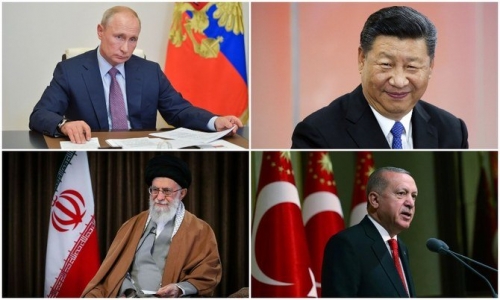
Des puissances hésitantes
Après avoir divisé les principaux acteurs en deux camps, Soros inspecte les régimes qui se trouvent au milieu - entre la Carthage (les États-Unis et les satellites), qui lui tient à cœur, et la Rome haïe (Moscou et les satellites). Telle est l'Inde de Modi, qui, d'une part, a rejoint l'alliance atlantique QUAD (Carthage) et, d'autre part, achète activement du pétrole russe (donc, selon Soros, reste en coopération avec Rome).
Tel est le cas de la Turquie d'Erdogan. La Turquie est à la fois un membre de l'OTAN et, en même temps, garde une ligne dure contre les terroristes kurdes que Soros soutient activement. Erdogan devrait, dans son esprit, être en train de détruire son propre État de ses propres mains - il serait alors un "bon gars" sur toute la ligne, c'est-à-dire un "bon gars" qui s'est mis du côté de la "société ouverte". En attendant, lui et Modi sont des "demi-nazis". Discrètement, Soros suggère de renverser Modi et Erdogan et de provoquer un chaos sanglant en Inde et en Turquie. Ainsi, les sociétés "mi-fermées/mi-ouvertes" deviendront pleinement "ouvertes". Pas étonnant qu'Erdogan n'écoute pas de tels conseils, et s'il les entend, il fait tout le contraire.
Modi commence à comprendre cela aussi. Mais pas de manière aussi tranchée.
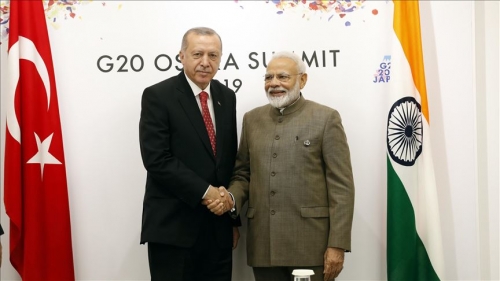
Le même choix entre l'obéissance servile à l'oligarchie libérale mondiale, c'est-à-dire la "société ouverte" et la préservation de la souveraineté ou la participation à des blocs multipolaires (comme les BRICS), Soros le suggère au président de gauche du Brésil récemment réélu, Inacio Lula. Soros menace car, en cas de désobéissance aux mondialistes, donc si Lula accepte le camp des "sociétés fermées", il sera confronté à un chaos sanglant. Soros établit un parallèle entre le soulèvement trumpiste du 6 janvier 2021 à Washington et les émeutes du 8 janvier 2023 déclenchées par des partisans de Jair Bolsonaro au Brésil. Soros met en garde Lula : "Faites comme Biden, et Carthage vous soutiendra. Sinon...". Comme Soros est connu pour son soutien actif aux "révolutions de couleur" (toutes en faveur de la "société ouverte") et son aide directe aux terroristes de tous bords, pour qu'ils s'attaquent à Rome, c'est-à-dire aux "sociétés fermées", ses menaces ne sont pas de vains mots. Il est capable de renverser des gouvernements et des présidents, de faire s'effondrer des monnaies nationales, de déclencher des guerres et de réaliser des coups d'État.
L'Ukraine : le principal avant-poste de l'hégémonie libérale dans la lutte contre la multipolarité
Soros passe ensuite à la guerre en Ukraine. Il affirme ici qu'à l'automne 2022, l'Ukraine avait presque gagné la guerre contre la Russie, ensuite, que, dans un premier temps, les agents de Soros en Russie même agissaient apparemment contre l'action décisive du Kremlin, attendue depuis longtemps. Mais après octobre, quelque chose a mal tourné pour Carthage. Rome a effectué une mobilisation partielle, a procédé à la destruction de l'infrastructure industrielle et énergétique de l'Ukraine, c'est-à-dire qu'elle a commencé à se battre pour de vrai.
Soros s'arrête particulièrement sur la figure d'Evgueni Prigozhin et du groupe Wagner. Selon Soros, il a été le facteur décisif qui a permis de renverser la situation. Cela vaut la peine de se demander: quid si une société militaire privée relativement petite, qui a entrepris de se battre "correctement", a pu changer l'équilibre dans la grande guerre des "sociétés fermées" contre les "sociétés ouvertes" (et cela suppose une échelle mondiale d'opérations de combat en diplomatie, politique, économie, etc.)?
Concernant sa surestimation du danger représenté par Evgeny Prigozhin, j'ai d'abord été enclin à croire qu'ici Soros a tort dans sa quête de symboles tape-à-l'œil. Mais il a trop souvent raison. De plus, il sait ce qu'un groupe de passionnés, petit mais cohérent, est capable de faire. Soutenu par de tels groupes, Soros a à plusieurs reprises mené des coups d'État, gagné des guerres et renversé des dirigeants politiques pour lui indésirables. Et lorsque de tels passionnés sont du côté de Rome, il est temps de s'inquiéter à Carthage.
Soros poursuit en analysant le montant du soutien militaire apporté à Kiev par l'Occident et demande qu'il soit augmenté autant que nécessaire afin de vaincre définitivement la Russie. Ce serait la victoire décisive de la "société ouverte" - le couronnement de l'œuvre de la vie de Soros et l'objectif principal des mondialistes. Soros dit sans ambages que le but de la guerre en Ukraine est "la dissolution de l'empire russe". À cette fin, il est nécessaire de rassembler toutes les forces et de forcer tous les pays de la CEI, notamment Maia Sandu, dépendante de Soros, à se joindre à la guerre contre la Russie. Il faut éliminer Prigozhin et les autres passionnés, et soutenir leurs opposants, tant internes qu'externes.
La Chine et le ballon qui a tout gâché
Soros passe à son deuxième pire ennemi, la Chine, une autre "société fermée". Soros estime que Xi Jinping a commis des erreurs stratégiques dans la lutte contre le Covid-19 (sûrement fabriqué et introduit dans l'humanité sur instruction directe de Soros lui-même et de ses semblables, apôtres de la "société ouverte", pour la rendre encore plus "ouverte" à Big Pharma et au contrôle mondial et à la surveillance totale).
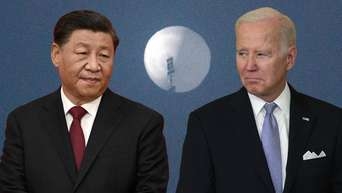
Soros estime que la position de Xi Jinping est affaiblie et pense que, malgré une certaine amélioration des relations avec Washington, l'histoire du ballon chinois abattu entraînera un nouveau refroidissement des relations. La crise de Taïwan est gelée, mais pas résolue. Mais maintenant, tout dépend de la Russie. Une fois que la Russie aura été achevée, alors la Chine cessera d'être un obstacle infranchissable pour une "société ouverte" planétaire. Et les révolutions de couleur pourront commencer là-bas: avec des soulèvements ethniques, des coups d'État et des attaques terroristes - Soros sait comment faire, et l'a probablement enseigné à ceux qui resteront après qu'il soit lui-même parti.
Trump, porte-parole d'une "société fermée" aux États-Unis
Aux États-Unis même, Soros maudit Trump, qu'il considère comme le représentant d'une "société fermée" qui a adopté le modèle de Vladimir Poutine.
Soros rêve que ni Trump ni DeSantis ne soient nommés à la présidence en 2024, mais il va, comme toujours, soutenir ses rêves par des actions. C'est un autre sombre avertissement du Gouvernement Mondial envoyée aux Républicains.
Soros en tant que praticien mondial
Voici la carte du monde, selon le sortant George Soros. Il a passé près de 100 ans de sa vie à travailler dur pour qu'il en soit exactement ainsi. Il a joué un rôle dans la destruction du camp socialiste, dans la révolution antisoviétique de 1991, dans la destruction de l'Union soviétique et dans l'inondation des gouvernements des nouveaux pays post-soviétiques par ses agents. Et dans les années 1990, il a complètement contrôlé les réformateurs russes et le gouvernement d'Eltsine, qui, à l'époque, faisait bruyamment le serment de construire une "société ouverte". Oui, l'arrivée de Poutine lui a arraché la victoire finale. Et lorsque cela est devenu évident, Soros a contribué à transformer l'Ukraine en un zoo sanglant de russophobes et nazis agressifs. C'est un peu en contradiction avec le dogme libéral d'une "société ouverte", mais cela fera tout de même l'affaire dans la lutte contre une "société fermée" aussi dangereuse que l'Empire russe.
Tout se joue en Ukraine, dit Soros. Si la Russie gagne, elle repoussera loin la "société ouverte" et enrayera le triomphe définitif de l'hégémonie libérale mondiale. Si la Russie tombe, malheur aux perdants. La cause de Soros gagnera alors pour de bon. Voilà le résumé géopolitique.
Le "réchauffement" général
Au tout début du discours et à la toute fin de celui-ci, Soros se tourne vers un autre facteur qui constitue une menace pour la "société ouverte". Il s'agit du changement climatique.
La façon dont ils ont été mis sur le même tableau que les grandes transformations, conflits et confrontations géopolitiques et civilisationnelles est expliquée avec esprit par une agence de presse russe, "Eksplikatsiya". Voici le fragment entier emprunté à celle-ci:
"Le 16 février 2023, un spéculateur mondial, un adepte fanatique de l'idéologie extrémiste de la "société ouverte", George Soros, a prononcé un discours liminaire en Allemagne à la Conférence sur la sécurité de Munich. Une grande partie de ce discours a été consacrée à la géopolitique et à la dure confrontation entre l'ordre mondial libéral mondialiste unipolaire avec ce que Soros et les élites mondiales appellent les "sociétés fermées". [...]".
Je me suis toutefois intéressé à la manière dont ces constructions géopolitiques se rapportent au problème du réchauffement climatique, avec lequel Soros a commencé et terminé son discours. En mettant tout cela ensemble, je suis arrivé à la conclusion suivante.
Soros affirme clairement que la fonte des glaces de l'Antarctique et de l'Arctique, ainsi que Poutine, Xin Jinping, Erdogan et Modi, sont de véritables menaces pour une "société ouverte", et l'agenda climatique est intégré directement dans le discours géopolitique et devient un participant à part entière de la grande confrontation.
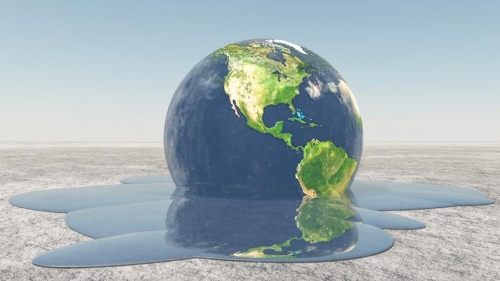
À première vue, cela semble un peu absurde. Comment un hypothétique réchauffement climatique (même si nous l'acceptons comme réel) peut-il être compté parmi les ennemis des mondialistes, et même obtenir le statut de "menace numéro 1", puisque Soros déclare le danger de la fonte des glaces en premier lieu et n'évoque seulement en second lieu Poutine, le Kremlin et les troupes russes en Ukraine.
Rappelons que la géopolitique enseigne la confrontation des "civilisations de la Mer" et des "civilisations de la Terre". En conséquence, tous les principaux centres de l'atlantisme sont situés dans les villes portuaires, sur la côte. C'était le cas de Carthage, Athènes, Venise, Amsterdam, Londres, et aujourd'hui de New York. Cette loi s'étend même à la géopolitique électorale des États-Unis, où les États bleus qui soutiennent traditionnellement les Démocrates, y compris la ville ultra-libérale qu'est New York, sont situés le long des deux côtes - occidentale et orientale, et les États rouges républicains plus traditionnels, dont le soutien a porté Trump, l'ennemi principal de George Soros, au pouvoir, constituent le Heartland américain.
Il en va à peu près de même sur les autres continents. C'est la "civilisation de la Mer" qui a construit cette "société ouverte" que George Soros défend avec ferveur, tandis que les "sociétés fermées" qui s'y opposent sont les civilisations de la Terre, notamment la civilisation russo-eurasienne, chinoise, indienne, latino-américaine, et même le noyau nord-américain (les États rouges). Ainsi, si la glace fond, le niveau des Océans du monde s'élève rapidement. Et cela signifie que les premiers à être submergés seront précisément les pôles de la thalassocratie mondiale - la zone Rimland, les espaces côtiers qui sont les fiefs de l'oligarchie libérale mondiale. Dans ce cas, la société libérale ouverte, également appelée "société liquide" (Sigmund Bauman) sera tout simplement emportée par les flots: il ne restera que des "sociétés fermées", situées dans l'Hinterland - l'intérieur des continents.
Le réchauffement de la terre rendra fertiles de nombreuses zones froides, notamment dans le nord-est de l'Eurasie. En Amérique, seuls les États soutenant les républicains subsisteront. Les bastions démocrates se noieront tous. Et avant que cela n'arrive, le Soros mourant annonce son testament aux mondialistes: "C'est maintenant ou jamais: soit la "société ouverte" gagne aujourd'hui en Russie, en Chine, en Inde, en Turquie, etc., ce qui permettra à l'élite mondialiste de se sauver sur les continents en s'installant dans les régions intérieures, soit la "société ouverte" prendra fin".
C'est la seule façon d'expliquer l'obsession du changement climatique dans l'esprit des mondialistes. Non, ils ne sont pas fous ! Ni Soros, ni Schwab, ni Biden ! Le réchauffement climatique, comme l'a fait le "Général Hiver" une fois pendant la Seconde Guerre mondiale du côté russe dans la lutte contre Hitler, est en train de devenir un facteur dans la politique mondiale, et se trouve maintenant du côté d'un monde multipolaire.
C'est une explication très intelligente. Je n'y avais pas pensé moi-même.
Soros comme réseau neuronal et système d'exploitation de Rome
En conclusion, nous devrions prêter attention à ce qui suit. Les propos de George Soros, lorsque l'on se rappelle qui il est, ce dont il est capable et ce qu'il a déjà fait, ne doivent pas être pris à la légère. Certains critiques observent que "le vieux spéculateur financier a perdu la tête". Soros n'est pas seulement un individu mais une sorte d'"intelligence artificielle" de la civilisation libérale occidentale. Il en est le code, l'algorithme, sur lequel est construite toute la structure de la domination occidentale globale au 21ème siècle. Dans cette approche de domination totale à plusieurs niveaux, l'idéologie est entrelacée avec l'économie, la géopolitique avec l'éducation, la diplomatie avec la culture, les services secrets avec le journalisme, la médecine avec le terrorisme, les armes biologiques avec l'agenda écologique, la politique de genre avec l'industrie lourde et le commerce mondial. Pour Soros, nous avons affaire à un système d'exploitation de "société ouverte" où toutes les réponses, les mouvements, les étapes et les stratégies sont délibérément planifiés. De nouvelles entrées sont introduites dans un système réglé avec précision qui fonctionne comme une horloge, ou plutôt comme un superordinateur, un réseau neuronal mondialiste.
"Une société fermée", c'est-à-dire "nous", doit construire son propre système d'exploitation, créer ses propres codes et algorithmes. Il ne suffit pas de dire "non" à Soros et aux mondialistes. Il est nécessaire de proclamer quelque chose de positif en retour. Et tout aussi cohérent, systémique, fondé, soutenu par des ressources et des capacités. Par essence, un tel système anti-Soros est l'Eurasisme et la Quatrième théorie politique, une philosophie d'un monde multipolaire et une défense à part entière de la tradition sacrée et des valeurs traditionnelles. Face à Soros, il ne faut pas justifier, mais attaquer. Et ce, à tous les niveaux et dans toutes les sphères. Jusqu'à l'environnement. Si Soros pense que le réchauffement de la planète est une menace, alors le réchauffement de la planète est notre allié, tout comme l'était autrefois le "Général Hier". Nous devrions enrôler le réchauffement planétaire - cet hyper-objet non identifié - dans le groupe "Wagner" et lui décerner un prix.
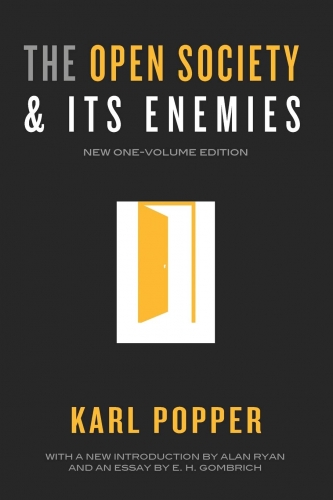
Soros, donne-nous l'argent ! La honte du libéralisme russe
Voici un exemple de ma seule rencontre avec Soros. Au tout début des années 1990, j'ai été invité à une réunion avec Soros dans une certaine salle de conférence à Moscou. Soros était représenté par Maksim Sokolov, un libéral du journal Kommersant, et quelques autres permanents russes non identifiables de la Fondation Soros. La réunion était consacrée à la présentation du livre La société ouverte et ses ennemis de Karl Popper, une sorte d'"écriture sainte" pour Soros, Biden et tous les libéraux contemporains. Au début, ce sont surtout les partisans de Popper qui ont pris la parole. Mais presque tous ont dit la même chose, qui n'avait rien à voir avec Popper du tout, comme : "Cher George Soros, donne-moi de l'argent et autant que tu peux !" La seule variation était : "Ne lui donne pas, il/elle n'est personne, donne-le moi !" Soros s'est presque endormi.
À la toute fin, ils m'ont également donné le micro. Il s'est avéré que j'étais probablement le seul dans le public à avoir lu le livre de Popper dont il était question. Je n'exclus pas la possibilité que Maksim Sokolov l'ait fait aussi. Le reste s'est répété comme une horloge : "Donnez-moi de l'argent, donnez-moi de l'argent". Tels sont nos libéraux. Pas étonnant qu'ils aient changé leurs positions idéologiques tant de fois que cela peut vous faire tourner la tête. Où sont-ils aujourd'hui à l'heure de l'Opération militaire spéciale ? Partout. Aussi bien de ce côté que du nôtre. "Soros, donne-moi de l'argent !" a été facilement remplacé par "Poutine, donne-moi de l'argent !". Mais ce n'est pas si important.
Lorsque j'ai dit tout ce que je pensais de l'incompatibilité des valeurs traditionnelles russes avec l'individualisme de la "société ouverte", Soros s'est réveillé et s'est dressé. Ses joues ridées - même à l'époque, il n'était pas si jeune - ont rougi. Après avoir écouté mon mini-exposé sur le fait que le libéralisme ne gagnerait jamais en Russie, qu'il serait rejeté et piétiné, et que nous reviendrions à notre manière russe originelle et affronterions à nouveau le mondialisme et l'hégémonie occidentale avec toute la force de la Russie (j'ai terminé par un pathétique "Rentrez chez vous, M. Soros ! Le plus tôt sera le mieux !"), Soros a eu le dernier mot. Il a dit à l'audience : "D'après ce que je sais de votre histoire russe, les révolutions commencent avec des gens comme vous (il a désigné la majorité des personnes assises dans la salle) et se terminent avec des gens comme lui (il m'a désigné). Vous n'avez pas dit un mot sur Popper, et il semble que le seul à avoir lu La société ouverte et ses ennemis était un "ennemi de la société ouverte" et m'a simplement dit d'aller me faire foutre. C'est la tragédie du libéralisme en Russie. Vous parlez d'argent, et lui d'idées. Mais j'espère que j'ai tort, et que vous aurez quelque chose". Il a donc terminé son discours et est reparti en Hongrie.
Maintenant, lui et sa Fondation ne sont pas et ne peuvent pas être non seulement en Russie, mais aussi en Hongrie, l'Open Society Foundation est reconnue en Russie comme une dangereuse "organisation terroriste". Ce qu'elle est exactement.
Mais Soros a généralement tout analysé correctement. Les libéraux avaient le pouvoir entre leurs mains dans les années 1990 et progressivement, presque imperceptiblement, ils l'ont perdu.
Et aujourd'hui, nous suivons manifestement la voie russe et luttons pour un monde multipolaire contre l'hégémonie mondiale de la "société ouverte".
Après tout, nous sommes Rome et ils sont Carthage.
14:21 Publié dans Actualité, Nouvelle Droite | Lien permanent | Commentaires (0) | Tags : nouvelle droite russe, russie, georges soros, alexandre douguine, nouvelle droite, société ouverte, société fermée, karl popper, actualité |  |
|  del.icio.us |
del.icio.us |  |
|  Digg |
Digg | ![]() Facebook
Facebook
lundi, 13 février 2023
Le Héros : la métaphysique du malheur
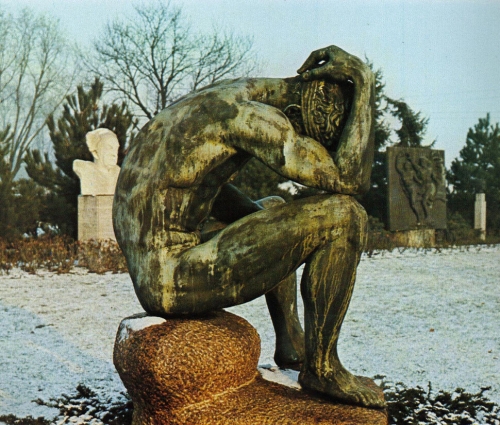
Le Héros : la métaphysique du malheur
Alexandre Douguine
Source: https://www.geopolitika.ru/en/article/hero-metaphysics-unhappiness?fbclid=IwAR0E9JjBdN_McmWtfvWatl4zLqI-IJbHPwGdqLv6P6GZoVK9VNNZ5Yt_cPM
Si nous nous débarrassons de la dimension céleste, alors nous n'avons plus que la dimension humaine. Si nous nous débarrassons de la dimension terrestre, alors nous avons Dieu. Mais c'est dans le héros que nous avons l'intersection entre la terre et le ciel.
Au début, il y a simplement l'humain (un être terrestre), puis il y a le Grec, puis il y a Dieu. Cela revient à dire que le Grec est le chemin vers le héros (la civilisation grecque est la civilisation héroïque) et que le héros est le chemin de l'humain vers Dieu. Il en était ainsi pour Homère et jusqu'aux néoplatoniciens, puis avec certains changements, cela restait vrai dans le christianisme.
Le héros est le chemin de Dieu vers l'humain, et de l'humain vers Dieu. À travers le héros, Dieu peut connaître ce qui ne le caractérise pas, par exemple la souffrance. D'où la notion que les âmes des héros sont les larmes des dieux. Car Dieu est dépassionné, serein, éternel, et rien ne le dérange, alors que l'homme est passionné, a mal, souffre, est tourmenté, connaît le dénuement, l'humiliation, la faiblesse et les doutes. Dieu ne connaîtra jamais la passion, la douleur et la perte, et il ne parviendra pas à connaître l'essence de l'homme sans avoir son propre fils ou sa propre fille héroïque qui permet à Dieu de faire l'expérience du cauchemar, de l'horreur et des profondeurs du dénuement et de la privation inhérents à l'être humain. Dieu ne s'intéresse pas aux personnes prospères et à celles qui réussissent, et leurs réalisations ne sont rien en comparaison de la sienne.
Et pourtant, l'homme, souffrant, tourmenté, aux prises avec son destin, est une énigme pour Dieu.
Et pourtant, Dieu pourrait vouloir se transcender, transcender son propre dépassement, sa propre félicité, et goûter au dénuement - c'est-à-dire transcender l'absence de félicité pour faire l'expérience de la souffrance (πάθος en grec) et de l'affliction. C'est le héros qui permet à Dieu de ressentir la douleur et qui permet à l'être humain de découvrir l'expérience de la béatitude, de la grandeur, de l'immortalité et de la gloire.
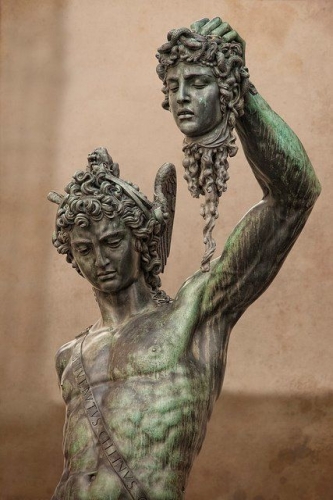
L'héroïcité est donc une instance ontologique et simultanément anthropologique, une verticale le long de laquelle se déroule le dialogue du divin et de l'humain (ou du céleste et du terrestre).
Mais là où il y a un héros, il y a toujours une tragédie. Le héros porte en lui la souffrance, la douleur, la rupture, la tragédie. Il n'existe pas de héros heureux et chanceux, car tous les héros sont nécessairement malheureux et infortunés. Le héros est un malheur malheureux.
Pourquoi ? Parce qu'être à la fois éternel et temporel, dépassionné et souffrant, céleste et terrestre, est l'expérience la plus insupportable pour un être quel qu'il soit, une condition que l'on ne souhaiterait pas à son ennemi.
Dans le christianisme, la place des héros a été prise par les ascètes, les martyrs et les saints. De même, il n'y a pas de moines heureux ou de saints heureux. Ils sont tous humainement, profondément malheureux. Cependant, selon un récit différent, céleste, ils sont bénis. En tant que bienheureux, ils sont les endeuillés, les persécutés, ceux qui souffrent de la calomnie, ceux qui ont faim et soif dans le Sermon sur la Montagne. Ce sont les malheureux bénis.
Un humain est transformé en héros par une pensée qui aspire vers le ciel mais retombe sur terre. Un humain est transformé en héros par la souffrance et le malheur qui le déchirent toujours, le tourmentent, le torturent et le tempèrent. Cela peut se produire dans la guerre ou dans la mort atroce d'un martyr, mais tout aussi bien sans guerre et sans mort.
Le héros cherche sa propre guerre pour lui-même, et s'il ne la trouve pas, il fera place à une cellule, ira rejoindre les ermites et y combattra son propre véritable ennemi. Car la vraie lutte est une lutte spirituelle. Arthur Rimbaud a écrit à ce sujet dans ses Illuminations: "Le combat spirituel est aussi brutal que la bataille des hommes". Il savait de quoi il parlait.
Comme le disait le néoplatonicien Proclus, un héros est égal à une centaine, voire à des milliers d'âmes ordinaires. Le héros est plus grand que l'âme humaine, car il oblige chaque âme à vivre verticalement. C'est la dimension héroïque qui se cache derrière les origines du théâtre et, par essence, l'éthique de notre foi - c'est l'essentiel que nous ne devons pas perdre, que nous devons chérir chez les autres et cultiver en nous-mêmes.
Notre tâche consiste à devenir profondément, fondamentalement et irrévocablement malheureux. Aussi effrayant que cela puisse paraître. Ce n'est que de cette façon que nous pourrons atteindre le salut.
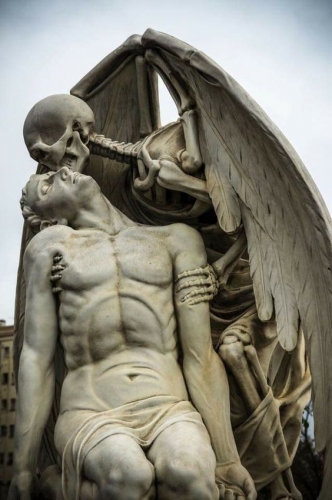
12:15 Publié dans Définitions | Lien permanent | Commentaires (0) | Tags : définition, héros, héroïsme, héroïcité, alexandre douguine, tradition, traditionalisme |  |
|  del.icio.us |
del.icio.us |  |
|  Digg |
Digg | ![]() Facebook
Facebook
jeudi, 02 février 2023
L'ABC des valeurs traditionnelles - Partie 1: La tradition
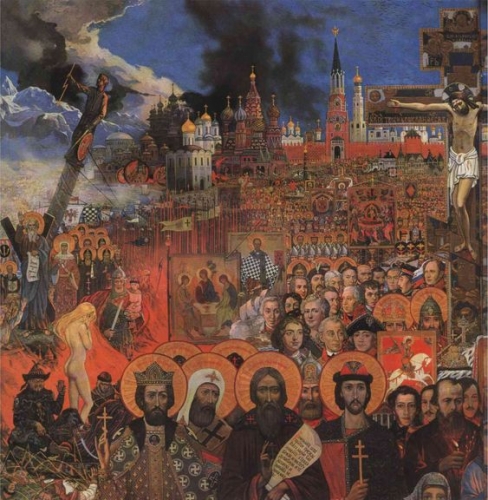
L'ABC des valeurs traditionnelles
Partie 1: La tradition
Konstantin Malofeev, Archiprêtre Andrei Tkatchev & Alexandre Douguine
Source: https://www.geopolitika.ru/en/article/abcs-traditional-values-part-1-tradition
La première chaîne de télévision russe Tsargrad a lancé un nouveau projet télévisé, avec une série intitulée "L'ABC des valeurs traditionnelles". Il s'agit d'une série de conférences données par des experts, trois penseurs russes, sur les fondements de l'existence russe et sur l'avenir de la Russie. Ainsi, Konstantin Malofeev, Alexander Douguine et l'archiprêtre Andrei Tkatchev analysent les fondements de la politique d'État pour la préservation et le renforcement des valeurs spirituelles et morales traditionnelles, approuvés par Vladimir Poutine. La première section, introductive, traite de la Tradition elle-même.
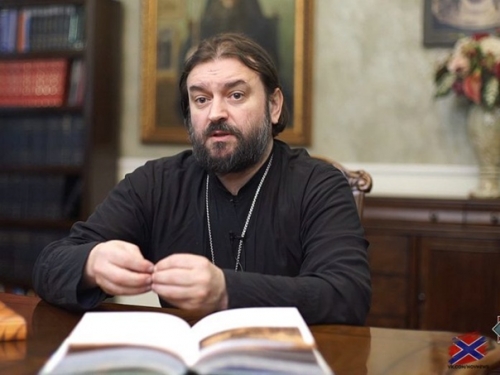
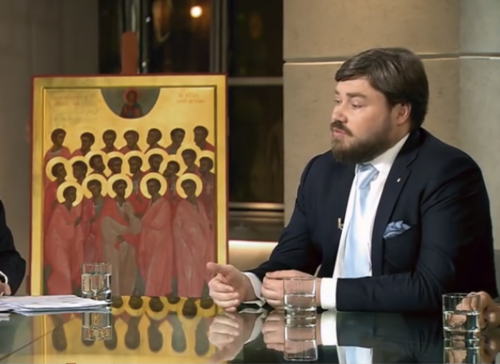
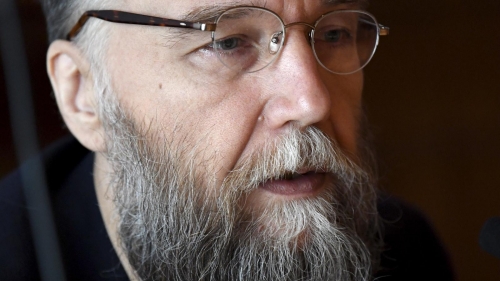
Konstantin Malofeev : Récemment, le décret présidentiel 809 a été publié pour approuver la politique fondamentale de l'État visant la préservation et le renforcement des valeurs spirituelles et morales traditionnelles. Nous aimerions maintenant parler de ces valeurs traditionnelles, les définir. Afin que chacun puisse réfléchir au bouleversement qui s'est produit en Russie, lorsque les abominations libérales ont été remplacées par des valeurs traditionnelles. Mais parlons d'abord de la tradition en tant que telle. Mes interlocuteurs sont Aleksandr Douguine et le père Andrey Tkatchev.
Aleksandr Gel'evič, qu'est-ce que la tradition exactement ?
Alexandre Douguine : La chose la plus importante est de comprendre ce qui s'oppose à la tradition. Si nous comprenons cela, nous comprendrons la signification de la tradition. La tradition s'oppose à la modernité, elle s'oppose à l'idée d'un progrès omnipotent, qui va toujours du moins au plus. Dans une vision matérialiste du monde, nous sommes habitués à voir le monde comme une amélioration constante de l'histoire humaine, mais la tradition dit le contraire : c'est ce qui a précédé qui compte. Ce sont les origines qui sont fondamentales et décisives.
Si nous parlons de valeurs traditionnelles, alors nous défendons ce qui appartient aux racines. Aux pères porteurs de Dieu, au commencement du monde, à ce qui est à la base du monde, son fondement. Et lorsque nous parlons de valeurs contemporaines, cela signifie qu'au contraire, chaque nouvelle édition de celles-ci supplante, remplace la précédente et nous nous rapportons alors à ce qui se passe d'une manière complètement différente. En termes de tradition, ce qui compte, c'est ce qui était là au début et ce qui a toujours été là. En termes de modernité, au contraire, ce qui vient maintenant, ce qui est le dernier élément d'une chaîne d'événements, d'inventions, de découvertes. Le présent remplace ici le passé.
Du point de vue de la tradition, le passé est un point de référence pour le présent. Et si nous regardons l'histoire européenne dans sa transition vers la modernité, nous verrons que la base des valeurs traditionnelles était l'Éternité, tandis que la base des valeurs modernes était le temps. La modernité est basée sur l'hypothèse qu'il n'y a pas d'Éternité, seulement du temps.
La valeur traditionnelle est Dieu et la valeur moderne est l'homme. La valeur traditionnelle est le ciel, la valeur moderne est la terre. La valeur traditionnelle est l'esprit, la valeur moderne est la matière.
Il existe une opposition fondamentale entre la tradition et la modernité, et si nous jurons, comme nous le faisons maintenant, par les valeurs traditionnelles, même s'il existe un tel décret présidentiel - cela bouleverse en fait un mode de pensée habituel. Nous découvrons quelque chose de complètement oublié : la tradition et sa logique, sa structure, sa philosophie.
Archiprêtre Andrei Tkatchev : "Rappelle-toi d'où tu es tombé et repens-toi", dit l'Apocalypse de l'apôtre Jean l'Évangéliste. Ce "souviens-toi d'où tu es tombé" est la mémoire du passé. Mnémosyne règne dans le chœur des muses, elle est la principale égérie de la mémoire. Et cette mémoire vivante, en fait, construit le présent. On a dit aux Juifs : "Regarde le rocher dans lequel tu as été taillé", en se référant à Abraham, mais ensuite l'homme du rocher devient caillou, du caillou devient gravats, et ensuite les gravats deviennent poussière.
C'est là, en fait, le progrès à son pire. En tant que tel, il n'y a pas de progrès du tout. Après tout, il faut en parler haut et fort. Parce que, par exemple, les œuvres de Bach écrites en une nuit étaient données à des groupes d'étudiants qui les apprenaient en deux jours, mais aujourd'hui notre conservatoire les enseigne depuis des années. Et si vous mettez tous les philosophes ensemble, vous n'obtenez que le talon de Platon. Ou l'oreille d'Aristote. C'est-à-dire qu'on peut étudier Aristote toute sa vie et ne pas le comprendre toute sa vie.
Le meilleur, étrangement, a déjà été fait. Nous devons constamment nous mesurer au meilleur. Contrairement au progrès, qui transforme les pierres en tas, les tas en décombres et les décombres en poussière. En réalité, c'est là le progrès qui nous est offert.
K.M. : Ce qui est surprenant, d'un point de vue juridique, c'est que cette tradition n'est apparue que récemment dans notre système juridique. Cette profondeur que vous venez de mentionner n'était pas présente dans notre législation. Et les valeurs traditionnelles sont une sorte d'euphémisme cachant le religieux: l'orthodoxie pour les orthodoxes ou toute autre morale religieuse.
Dans la législation laïque d'aujourd'hui, imprégnée de tous les grands mots, la bureaucratie prédomine. Les mots sublimes ont disparu de notre législation en 1917. Si vous ouvrez le code des lois de l'Empire russe, vous serez étonné de voir à quel point elles sont écrites de manière poétique, et si vous lisez le statut du tsar Alexei Mikhailovich ou les 100 chapitres d'Ivan le Terrible, vous serez étonné de ce qui est écrit, car cela semble très poétique comparé au mode d'écriture de la bureaucratie moderne.
En d'autres termes, les valeurs traditionnelles sont toutes à un niveau élevé dans le droit moderne. Ainsi, pour un avocat, pour tout responsable de l'application de la loi, ce qui est écrit sur les valeurs traditionnelles russes signifie tout ce que vous venez de dire. C'est toute la philosophie, toute la religion et toute la moralité. C'est ainsi que cela est décrit dans le langage sec d'un acte normatif.
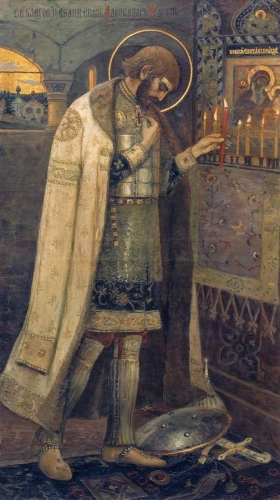
A.D. : Vous avez tout à fait raison au sujet de l'année 1917. Le fait est que, au moins de 1917 à 2022, l'idée de progrès était dominante dans notre société, d'abord dans un contexte bolchevique, puis dans un contexte libéral. En d'autres termes, les idéologies communiste et libérale étaient toutes deux contraires à la tradition. En fait, toutes deux proclament explicitement que la tradition doit être dépassée, éradiquée, libérée. C'est là que le progrès est dogmatique.
Toutes ont pour but délibéré la pulvérisation ultime de ce rocher dont parlait le Père Andrey. Après tout, avant 1917, nous vivions dans une société traditionnelle, ou du moins beaucoup plus traditionnelle qu'ultérieurement. Les principaux points de référence de l'époque étaient la monarchie, l'empire, l'orthodoxie, la nationalité. La philosophie slavophile, la philosophie religieuse russe. Tout cela était orienté vers les valeurs traditionnelles.
Une autre question est qu'il y a une différence entre les valeurs traditionnelles authentiques de la Russie du 17ème siècle et les valeurs traditionnelles qui étaient déjà passées par la modernisation et l'occidentalisation au 18ème et partiellement au 19ème siècle. Tout, à proprement parler, n'était pas vraiment traditionnel dans l'Empire russe à partir de Pierre le Grand, mais la loyauté envers la tradition était toujours énoncée comme un objectif, comme un idéal.
Aujourd'hui, nous ne nous contentons pas de revenir 100 ans en arrière. Grâce au décret 809, nous créons un pont entre notre présent, notre avenir et notre ancienne tradition indigène russe. Et ceci, bien sûr, est pour nous à nouveau centré sur la religion, l'Empire, la Narodnost, le commencement russe, l'identité russe. Tout cela est réaffirmé. C'est un tournant unique, il n'y a rien eu de tel au cours des 100 dernières années.
A.T. : Je pense qu'il s'agit aussi de la préservation de l'homme. Chesterton a écrit un livre intitulé The Eternal Man. Il y exprime l'idée, similaire à celle de St Nicolas de Srpska, qu'autrefois le poète appartenait entièrement à la tradition orale. Plus tard, il a commencé à écrire avec une plume d'oie, puis il a commencé à taper sur les touches d'une machine à écrire et maintenant il est assis devant son clavier. Mais l'essence ne change pas. Cependant, la poésie est un cœur vivant et battant, qui répond à des questions vivantes.
La modernité, c'est l'éloge de l'ordinateur contre la plume d'oie: comment vivait-on avant, sans téléphone portable? L'homme moderne a une certaine confiance vulgaire en sa supériorité sur toutes les générations précédentes, une confiance basée sur le gadget qu'il tient dans sa poche. La vérité est que les gens étaient autrefois beaucoup plus intelligents et plus forts.
Un homme normal est un homme qui aime les enfants, mange du pain, respire de l'air, prie Dieu et cultive le petit bout de terre qu'il lui a été donné de posséder. C'est l'homme traditionnel, "l'homme éternel" selon Chesterton. Les âges changent, le manteau remplace le gilet, la veste remplace le manteau, mais le cœur bat toujours pareil, le cœur humain. L'homme moderne risque l'extinction, car il se nourrira d'on ne sait quoi, il sera incinéré pour on ne sait quoi. Il ne donnera pas naissance, mais changera de sexe et mangera des vers assaisonnés au lieu d'une bonne schnitzel.
C'est-à-dire qu'on se moque tout simplement de lui de tous les côtés, le détruisant exactement en tant qu'homme, et la tradition préserve l'homme tel que Dieu l'a créé. Nous sommes entrés dans une ère de lutte pour l'homme biblique. C'est-à-dire qu'il est nécessaire de préserver l'homme. C'est la tradition - car les musulmans nous comprennent mieux que les athées européens, et les juifs nous comprennent comme les musulmans. Et en général, toute personne qui veut être humaine, quelle que soit sa croyance ou sa vision du monde, nous comprend. De sentir que c'est une période de lutte pour au moins rester tel qu'ils sont.
Oui, notre objectif est d'être transformés, d'être enveloppés. Mais nous devons d'abord rester. Alors nous luttons pour rester humains, capables de nous transformer.
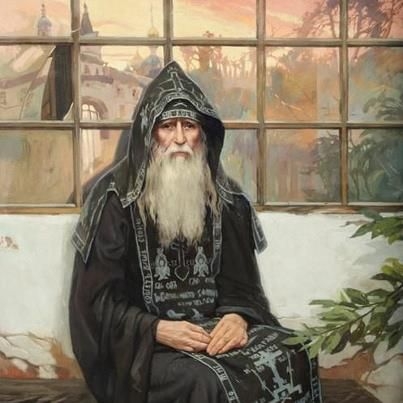
K.M. : Vous avez tout à fait raison. Rappelez-vous la célèbre maxime attribuée au compositeur Mahler selon laquelle la tradition consiste à passer le flambeau, et non à vénérer les cendres. Et ceci est très important à comprendre. La tradition est différente du conservatisme et le traditionalisme, lui aussi, est différent du conservatisme.
Lorsque nous parlons de tradition, nous faisons référence à l'avenir, pas au passé. Il y a des gens qui pensent que si nous devenons un État traditionnel, nous ne parlerons plus que du passé. Que tout le monde se promènera en sabots et que les gadgets seront supprimés. Ce n'est pas vrai. La tradition est une façon de nous regarder, de regarder le monde. Et vous, Monsieur le Président, avez raison lorsque vous dites que la vision traditionnelle est que Dieu est au centre de l'univers. Dans ce cas, la société traditionnelle est une société dans laquelle nous vivons dans l'Éternité et nous nous préparons à l'Éternité. Et nous désirons le Royaume des Cieux, le salut de nos âmes. Cela signifie que notre vie n'est pas pour le plaisir du moment, pas pour la gloire, pas pour le consumérisme, pas pour le confort. Elle est pour l'éternel, pour Dieu. C'est la signification la plus importante de la tradition.
C'est un souffle vivant, réel, palpitant, le souffle de Dieu. Et nous pouvons vivre avec Lui grâce à la tradition. Et grâce à la modernité, nous vivons dans la société de celluloïd dont vous parlez, Père Andrey. Qui mangera bientôt des vers, car elle a déjà oublié toute dignité humaine. Cette dignité que Dieu lui a donnée à son image et à sa ressemblance.
A.T. : L'Eglise, hélas, veut parfois faire de la tradition un dépôt d'antiquité. Nous chantons avec le chant de la bannière, comme cela se faisait autrefois, mais nous ne comprenons pas ce que nous chantons et pourquoi; nous créons des formes architecturales semblables à celles du cinquième siècle, nous reproduisons des basiliques, mais nous ne comprenons pas pourquoi, c'est-à-dire que nous nous mettons dans un lit de Procuste d'imitations. C'est une terrible farce dont nous devons sortir. Car oui, nous conduirons des voitures, mais dans ces voitures, nous chanterons des psaumes. Telle est bien la tradition.
R.D. : Mais il est nécessaire de maintenir le chant znamenny [tradition de chant utilisée par certains orthodoxes. C'est un cato malismatique à l'unisson avec une intonation spécifique, Ndlr]. Il fait partie de notre ancienne tradition spirituelle russe.
A.T. : Je suis d'accord.
K.M. : Le Père Andrei parle du fait que cela doit être compris.
A.D. : Bien sûr, il le faut. En général, tout doit être compris : ce que nous faisons, protégeons, restaurons et affirmons.
K.M. : C'est la tradition. La tradition est de comprendre la langue slave de l'Eglise, qui est plus riche que la langue russe. Elle a plus de nuances.
A.D. : Bien sûr. Sans le slavon de l'Eglise, le russe moderne est incompréhensible. En slavon d'église, nous avons nos racines et nos origines, nos significations originales. Ce que vous, Konstantin Valeryevitch, avez dit sur l'éternité est important. Le fait est que la tradition n'est pas le passé, mais l'éternel; or l'éternel est toujours vivant, toujours frais. L'éternité était, mais est toujours et sera. C'est dans l'éternité que nous puisons le contenu de l'avenir.
Si nous n'avons pas l'Éternité, nous recyclons simplement le passé dans le futur. Les personnes qui aspirent à la modernité, au progrès, au développement, exploitent le passé, le gaspillent tout simplement et n'ont pas d'avenir. C'est-à-dire qu'ils sont beaucoup plus vieux et archaïques que les gens de tradition, qui font face à l'Éternité. Car l'Eternité est toujours fraîche, l'Eternité est toujours nouvelle.
K.M. : L'Éternité est éternelle.
A.D. : Oui, elle est éternelle. Elle nous donne la possibilité de l'avenir.
A.T. : Pour prendre soin d'un arbre, il ne faut pas s'occuper de chaque feuille, il faut arroser et en trouver les racines dans le sol. C'est ce qu'on appelle la tradition - en ce qui concerne l'état, la société et l'homme. Car si nous traitons séparément la médecine, l'éducation, les transports et d'autres choses, par exemple l'écologie, c'est comme si nous enduisions chaque feuille d'une sorte de médicament. Mais si la racine est pourrie, plus rien ne fonctionne. La tradition veut donc que l'on creuse et arrose les racines. Les feuilles feront leur travail.
A.D. : Non seulement la couronne pousse, mais aussi les racines. Donc la tradition est une chose absolument vivante.
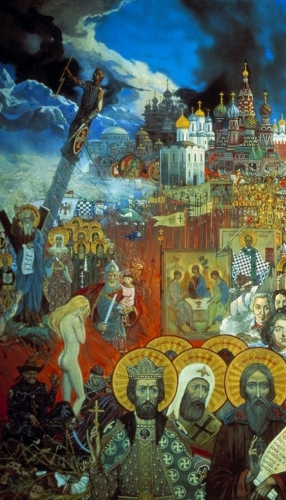
K.M. : Parce que le sol est la foi et le soleil est Dieu. Si nous nous référons à cet exemple, la tradition est tout dans le domaine du religieux. La tradition est tout ce qui concerne la foi. Il y a la tradition au sens philosophique et au sens théologique, mais au sens juridique, la tradition signifie tout ce qui est élevé. Tout ce qui est élevé et noble est appelé "valeurs spirituelles traditionnelles". L'expression "valeurs spirituelles traditionnelles" est utilisée au lieu d'écrire directement sur le début religieux ou orthodoxe, le fondement de la société. Maintenant, avec les Fondements de la politique d'État, nous avons ouvert une fenêtre sur le monde de l'Éternel et du Haut. Nous avons secoué notre législation poussiéreuse et ouvert une fenêtre vers le haut, vers l'Éternité. Et c'est déjà beaucoup.
A.D. : C'est la chose la plus importante. Fondamentalement, il s'agit de regrouper tous les ministères et départements, la culture, l'éducation et la médecine sous une seule autorité suprême. Et la sphère sociale, l'économie, la politique d'information et la sécurité: désormais, tout doit être placé sous le signe de la tradition.
K.M. : Oui. Ceci conclut la première partie de notre discussion. Nous avons parlé de la tradition avec un grand "T".
20:57 Publié dans Traditions | Lien permanent | Commentaires (0) | Tags : konstantin malofeev, andrey tkatchev, alexandre douguine, russie, tradition, traditionalisme |  |
|  del.icio.us |
del.icio.us |  |
|  Digg |
Digg | ![]() Facebook
Facebook
mardi, 31 janvier 2023
La malédiction de l'Occident et le salut de la Russie
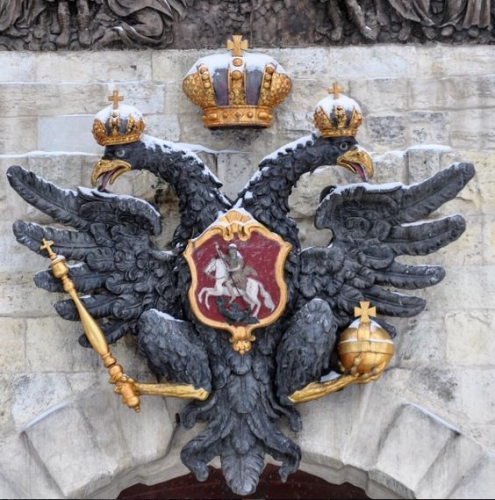
La malédiction de l'Occident et le salut de la Russie
Alexandre Douguine
Source: https://www.geopolitika.ru/it/article/la-maledizione-delloccidente-e-la-salvezza-della-russia
Dans la dernière partie de son étude, le philosophe russe Alexandre Douguine tire des conclusions pessimistes sur l'état de la société moderne en Occident et sur les chances de salut de la Russie en se fondant sur une analyse de fond de la nature humaine.
La modernité à travers les yeux de la tradition
Passons maintenant à une partie absolument différente de l'anthropologie : la manière dont la philosophie et la science de l'Occident moderne présentent l'homme, son essence, sa nature. Nous commençons presque toujours par des notions modernes, que nous tenons pour acquises ("le progrès est obligatoire"), et à travers leur prisme, nous nous tournons vers d'autres notions, par exemple pré-modernes. Avec un certain degré d'indulgence.
Si tel était le cas, toute anthropologie religieuse, et en particulier sa section eschatologique, apparaîtrait comme une généralisation naïve et arbitraire. Or voici ce qui est intéressant. Si nous regardons de l'autre côté et essayons d'évaluer les théories anthropologiques de la modernité à travers les yeux d'un homme de la Tradition, une image choquante s'ouvrira devant nous.
Si l'histoire est le processus de division de l'humanité en moutons et en boucs, c'est-à-dire l'actualisation finale, à travers quelques étapes successives, de la liberté des hommes à choisir soit en faveur des enfants de la lumière soit en faveur des enfants des ténèbres, alors les derniers siècles de la civilisation de l'Europe occidentale, qui se positionne de plus en plus en retrait de Dieu, de la religion, de la foi, du christianisme et de l'éternité, apparaîtront comme un processus continu et croissant de glissement vers l'abîme, un glissement massif vers le côté Denitsa, un vecteur conscient et structurellement vérifié de lutte directe contre Dieu.
La modernité européenne est la "voie des boucs", c'est-à-dire l'invitation compulsive faite aux sociétés et aux peuples à devenir des boucs émissaires lors du Jugement dernier. La civilisation européenne occidentale de la modernité s'est construite dès le départ sur le rejet de la religion: d'abord par la relativisation de ses enseignements (le déisme), puis par un athéisme dogmatique pur et simple.
L'homme est désormais pensé comme un phénomène matériel/psychique indépendant, porteur de rationalité. Dieu apparaît comme une hypothèse abstraite. Dans la culture New Age, ce n'est pas Dieu qui crée l'homme, mais l'homme s'invente un "Dieu", dans la quête naïve d'expliquer l'origine du monde. Avec cette approche, ni les mondes spirituels ni les anges n'ont de place dans l'existence, toute la spiritualité est réduite à l'esprit humain.
En même temps, l'acte même de la création et l'éternité créée sont rejetés; par conséquent, l'idée de la structure du temps et de l'histoire change: le Paradis et le Jugement dernier sont présentés comme des "mythes naïfs" ne méritant aucune considération sérieuse. L'apparition de l'homme est décrite comme une étape dans l'évolution des espèces animales et l'histoire de l'humanité comme un progrès social graduel menant à des formes d'organisation sociale considérées toujours plus parfaites, avec des niveaux de confort et de développement technologique toujours plus élevés.
Cette image du monde et de l'homme nous est si familière que nous réfléchissons rarement à ses origines ou aux hypothèses sur lesquelles elle repose, mais si nous nous y intéressons quand même, nous voyons qu'il s'agit d'un rejet radical de l'ontologie du salut, d'une volonté d'interdire catégoriquement à l'homme de créer son être dans les domaines propres aux moutons de l'eschatologie. Le paradigme de la modernité tourne le dos à Dieu et au ciel et, par conséquent, se dirige vers l'intérieur.
Dans la topologie religieuse, c'est un choix sans équivoque en faveur de l'enfer, un glissement dans l'abîme d'Avaddon. Dans l'ordre mondial formellement athée et laïc, l'image de l'ange déchu devient de plus en plus claire. Le diable a attiré l'humanité à lui à travers toutes les phases de l'histoire sainte, en commençant par le paradis terrestre. Mais ce n'est qu'à l'époque moderne qu'il parvient à prendre le pouvoir sur l'humanité et à devenir le véritable "prince de ce monde" et le "dieu de ce temps".
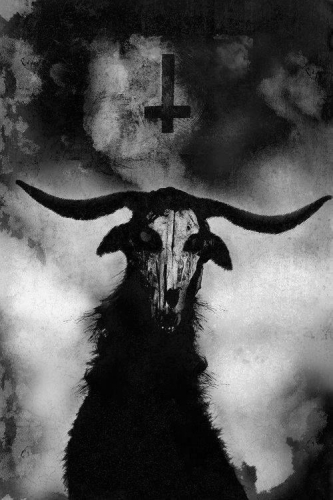
Postmodernité : le retour du diable
La transformation de l'anthropologie dans un sens ouvertement satanique est particulièrement évidente dans ses dernières étapes, dans ce que l'on appelle communément le Postmoderne. Ici, l'optimisme de la modernité est remplacé par le pessimisme et l'humanisme est totalement écarté.
Si la modernité (l'ère moderne) s'est rebellés contre Dieu, la religion et le sacré, le postmodernisme va plus loin encore et appelle à l'élimination de l'homme (de tout anthropocentrisme), à la rationalité scientifique et à la destruction ultime des institutions sociales - États, familles - en passant par le rejet du genre (politique du genre) et le passage au transhumanisme (transfert de l'initiative à l'intelligence artificielle, création de chimères et de cyborgs par génie génétique, etc.)
Si dans la Modernité, le mouvement menant à la civilisation du diable était planifié et s'exprimait par le démantèlement de la société traditionnelle, la Postmodernité, elle, pousse cette tendance jusqu'à sa conclusion logique en mettant directement en œuvre un programme d'abolition définitive de l'humanité.
Ce programme, en tant que triomphe du matérialisme, est présenté de manière particulièrement vivante dans l'orientation moderne de la philosophie occidentale - le réalisme critique, ou ontologie orientée objet (OO).
Il proclame ouvertement le démantèlement de la subjectivité et l'appel à l'Absolu extérieur (C. Meillas) comme fondement ultime de la réalité. En outre, de nombreux philosophes de cette tendance identifient directement la figure de l'Absolu extérieur à Satan ou à ses homologues dans d'autres religions - en particulier, à l'Ahriman zoroastrien (voir Reza Negarestani à ce sujet).
Ainsi, ensemble, la modernité et la postmodernité représentent une seule et même tendance qui vise à mettre l'humanité sur la voie de la victime rejetée, du bouc émissaire, et au moment du Jugement dernier, lequel est nié, à la plonger dans l'abîme de la damnation irréversible.
Le déni de l'anthropologie religieuse et de son apothéose eschatologique contiennent déjà un programme de désignation de boucs émissaires, et à mesure que la culture séculière s'enracine, se développe et s'explicite, notamment dans le postmodernisme et le transhumanisme, ce programme devient explicite et transparent. Nous pouvons dire, en simplifiant, que d'abord l'âge moderne se moque de l'existence de Dieu et du diable, rejetant l'existence de la verticalité comme axe de la création, puis, dans la Postmodernité, le diable et la moitié inférieure de la verticale reviennent et se font pleinement connaître.
Cependant, il n'y a plus de Dieu (Dieu est mort, s'exclame Nietzsche, nous l'avons tué) qui puisse aider l'humanité. Le divin est écarté à un stade antérieur et, partant, ce rejet du divin reste un thème indiscutable du postmodernisme. Il n'y a que le diable qui conduit l'humanité sur le large chemin de la damnation, cyniquement (Satan aime plaisanter) appelé "progrès".
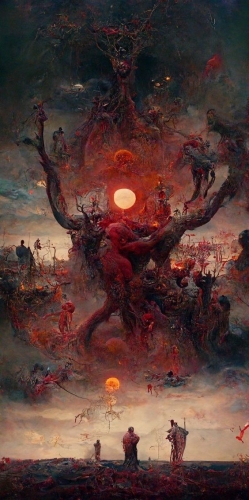
L'Armageddon de nos cœurs
Si nous combinons maintenant ces deux perspectives, l'anthropologie eschatologique et les conceptions de l'homme dans la modernité et surtout dans la postmodernité, nous obtenons un tableau assez vaste. Il apparaîtra clairement que nous sommes dans la phase finale de la fin des temps, à proximité immédiate du moment du Jugement dernier. Il n'y a rien d'arbitraire ou de spéculatif dans cette déclaration. Sur le plan vertical du monde, l'humanité se trouve dans cette position à chaque moment de son histoire: le Jugement dernier et la résurrection des morts sont toujours proches de Dieu et sont présents à chaque instant et dans chaque lieu de vie.
Dans l'ensemble, cependant, en ce qui concerne l'humanité, cet événement se produit une fois pour toutes: lorsque les deux dimensions, la verticale et l'horizontale, se rencontrent de la manière la plus complète et la plus pure. Si, lors du grand jugement, il y a beaucoup de gens qui ne sont pas du tout préparés à cela, qui ont même été élevés avec l'idée que rien de tel ne peut se produire, parce que seule la matière et ses dérivés existent, ils peuvent se retrouver parmi ceux qui seront envoyés à l'abîme.
Surtout ceux qui, en succombant à l'hypnose du progrès, iront si loin sur la voie de la déshumanisation qu'ils perdront complètement contact avec leur propre nature humaine, et donc avec la possibilité de choisir le bon côté, ce qui est toujours possible lorsqu'on a affaire à des humains - aussi difficile que ce choix puisse être dans certaines circonstances. Mais lorsque le projet transhumaniste sera pleinement réalisé et que l'humanité aura irréversiblement migré dans la zone de la post-humanité (ce que les futurologues modernes appellent le moment de la singularité), en coupant les liens avec sa nature, la paix et l'histoire prendront fin, car un témoin sera retiré du centre de la réalité.
Ce ne sera pas le vide, mais le déploiement de la création éternelle et de la verticale angélique dans son intégralité: ce sera le temps de la seconde venue, de la résurrection des morts et du jugement dernier. En attendant que ce moment arrive, la division de l'humanité en moutons et en boucs prend une expression dramatique, particulièrement intense. De plus en plus de personnes deviennent des "enfants des ténèbres" et se détournent de la foi en la vraie lumière de Dieu. En face d'eux se trouvent les "enfants de lumière" qui, malgré tout, restent fidèles à Dieu, au Sauveur, à la verticale...
Les deux catégories, consciemment ou inconsciemment, bien que la figure de l'ange ait depuis longtemps disparu de l'image holistique du monde, se retrouvent tout près des pôles angéliques, séparés de l'éternité et de la fin du monde aussi loin que possible. Pour les boucs, cela signifie qu'ils deviennent littéralement possédées par le diable, se transformant en son instrument impuissant et perdant toute autonomie.

C'est cela que signifie devenir des "enfants des ténèbres", des boucs émissaires, un sacrifice rejeté par Dieu. Mais il est également extrêmement difficile de rester fidèle au ciel et à la lumière dans une situation aussi extrême, et cette position désespérée du "petit troupeau" nécessite le soutien et la protection spéciale de Dieu et des anges dévoués. À un certain moment, la bataille des anges éternellement justes coïncide avec la dernière guerre de l'humanité, dans laquelle les "enfants de la lumière" s'opposent directement aux "enfants des ténèbres" dans l'imminence du Jugement dernier. C'est exactement ce que la Bible décrit comme la bataille d'Armageddon. Il est impossible de la décrire en termes rationnels purement terrestres, car elle comprend les expressions ultimes du contenu théologique, métaphysique et ontologique.
VO, soit l'ontologie vraie, l'ontologie orientée vers la vérité, a la relation la plus directe avec l'anthropologie eschatologique. Personne ne connaît son moment exact, notamment parce qu'il ne s'agit pas d'un événement situé dans le temps, mais de cet état du monde difficile à imaginer dans lequel le temps entre directement en collision avec l'éternité et, par conséquent, l'éternité cesse d'être le temps qu'elle était auparavant. Ici commence un "âge futur" qui fait face à la verticale de l'existence. Tout cela s'est déjà produit et se produit maintenant, mais sera pleinement révélé au cours de l'Apocalypse, qui signifie en grec "révélation", "découverte".
Le caché devient manifeste. C'est ainsi que le mystère de la dualité de l'homme est résolu, et que chaque homme en devient un participant direct - car la ligne de front ne passe pas seulement par la géographie terrestre, mais strictement par notre cœur.
Partie I - Le problème anthropologique en eschatologie
Partie II - Le dualisme du monde spirituel
Partie III - La division finale entre les Fils de la Lumière et les Fils des Ténèbres
23:55 Publié dans Traditions | Lien permanent | Commentaires (0) | Tags : tradition, apocalypse, jugement dernier, eschatologie, alexandre douguine, théologie |  |
|  del.icio.us |
del.icio.us |  |
|  Digg |
Digg | ![]() Facebook
Facebook
mercredi, 25 janvier 2023
Douguine: Le problème anthropologique en eschatologie
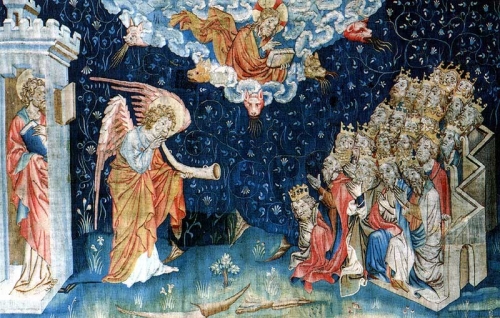
Douguine: Le problème anthropologique en eschatologie
Alexandre Douguine
La question de l'homme
À notre époque, il est de plus en plus clair que l'homme lui-même, son existence même, est en question, et il est de plus en plus clair que nous vivons un moment critique, extrêmement critique de l'histoire, et il est possible (et même probable) que nous vivions la fin des temps.
Les épidémies et les guerres déciment des millions de vies et, suite à l'Opération militaire spéciale, le monde a été amené au bord d'une guerre nucléaire qui, une fois déclenchée, pourrait mettre fin à l'existence de l'humanité.
Dans le même temps, les horizons du futur post-humain se précisent dans la philosophie et la science. La théorie de la singularité, le transfert de l'initiative à l'intelligence artificielle, les progrès du génie génétique, le raffinement de la robotique, les tentatives de fusion de l'homme et de la machine (création de cyborgs) - tout cela remet en question l'existence même de l'homme, suggérant que nous devrions tourner cette page de l'histoire et entrer résolument dans l'ère du post-humanisme, du transhumanisme.
Dans une telle situation, il est extrêmement important d'aborder à nouveau les questions anthropologiques, avec le plus grand sérieux. Si l'homme est au bord de l'extinction, de l'anéantissement, de la mutation fondamentale et irréversible, alors qu'est-il ? Qu'était-il ? Quelle est son essence et sa mission ? En s'approchant de la limite, l'homme peut mieux réviser ses formes et ainsi connaître son essence, son eidos.
Cette révision peut se faire de différentes manières. Tout dépend du point de vue initial. Chaque paradigme scientifique ou idéologique procédera à partir de ses propres structures. Dans cet article, nous visons à donner un sens à l'homme avant tout dans le contexte de l'eschatologie chrétienne, mais afin de clarifier la manière dont la doctrine chrétienne représente l'homme, sa nature et son destin dans les derniers temps, une excursion dans un problème plus général de l'anthropologie religieuse en général est d'abord nécessaire.
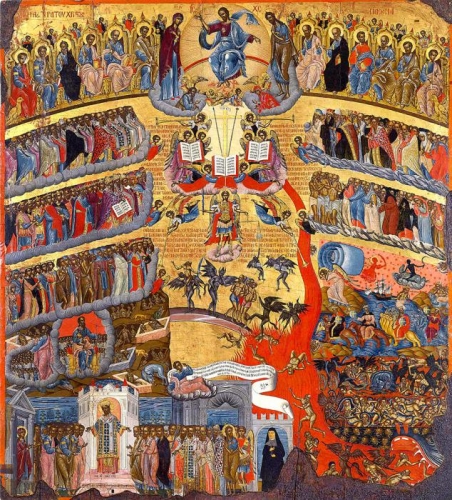
Le dualisme de l'humanité dans le Jugement dernier
La fin du monde dans la tradition chrétienne (ainsi que dans d'autres versions du monothéisme) est décrite en détail. Le point culminant de toute l'histoire du monde sera le moment du Jugement dernier. Et nous rencontrons ici une caractéristique principale de l'anthropologie eschatologique : le dualisme, la division finale de l'humanité en deux groupes, représentés par les images des agneaux (bétail, troupeau - πρόβατον) et des boucs (ἔριφος). Les agneaux sont les élus qui recevront une bonne réponse lors du Jugement dernier. Les boucs sont les damnés, destinés à la destruction éternelle. Les agneaux vont à droite, vers le salut, les boucs vont à gauche, vers la damnation.
L'Évangile de Matthieu [ch. 25, versets 31-36] décrit cette division de la manière suivante :
31. Quand le Fils de l'homme viendra dans sa gloire, et tous les saints anges avec lui, il s'assiéra sur son trône glorieux, et toutes les nations seront rassemblées devant lui ;
32. Il séparera les uns des autres comme un berger sépare les moutons des chèvres ;
33. Il placera les brebis à sa droite et les boucs à sa gauche.
34. Alors le Roi dira à ceux qui seront à sa droite : "Venez, les bénis de mon Père, recevez en héritage le royaume qui vous a été préparé dès la fondation du monde" ;
35. Car j'avais faim et vous m'avez donné à manger, j'avais soif et vous m'avez donné à boire, j'étais un étranger et vous m'avez accueilli ;
36. J'étais nu et vous m'avez habillé, j'étais malade et vous m'avez visité, j'étais en prison et vous êtes venus à moi.
L'Évangile de Matthieu [ch. 25, versets 31-36].
31. ὅταν δὲ ἔλθη̨ ὁ υἱòς του̃ ἀνθρώπου ἐν τη̨̃ δόξη̨ αὐτου̃ καὶ πάντες οἱ ἄγγελοι μετ' αὐτου̃ τότε καθίσει ἐπὶ θρόνου δόξης αὐτου̃
32. καὶ συναχθήσονται ἔμπροσθεν αὐτου̃ πάντα τὰ ἔθνη καὶ ἀφορίσει αὐτοὺς ἀπ' ἀλλήλων ὥσπερ ὁ ποιμὴν ἀφορίζει τὰ πρόβατα ἀπò τω̃ν ἐρίφων
33. καὶ στήσει τὰ μὲν πρόβατα ἐκ δεξιω̃ν αὐτου̃ τὰ δὲ ἐρίφια ἐξ εὐωνύμων
34. τότε ἐρει̃ ὁ βασιλεὺς τοι̃ς ἐκ δεξιω̃ν αὐτου̃ δευ̃τε οἱ εὐλογημένοι του̃ πατρός μου κληρονομήσατε τὴν ἡτοιμασμένην ὑμι̃ν βασιλείαν ἀπò καταβολη̃ς κόσμου
35. ἐπείνασα γὰρ καὶ ἐδώκατέ μοι φαγει̃ν ἐδίψησα καὶ ἐποτίσατέ με ξένος ἤμην καὶ συνηγάγετέ με
36. γυμνòς καὶ περιεβάλετέ με ἠσθένησα καὶ ἐπεσκέψασθέ με ἐν φυλακη̨̃ ἤμην καὶ ἤλθατε πρός με.
Cette formulation suggère que la division se produit entre les nations (πάντα τὰ ἔθνη), mais la tradition l'interprète comme une division entre les personnes sur un principe plus profond - ontologique. Les brebis sont celles dont la nature s'avère être bonne. Les boucs - et ici la référence au rite juif du bannissement expiatoire du bouc est claire - sont ceux qui se sont tournés de manière décisive du côté du mal.
L'eschatologie voit donc la fin de l'histoire humaine non pas comme une unité, non pas ex pluribus unum, mais précisément comme une division, une bifurcation, un carrefour fondamental.
L'humanité bifurque lors du Jugement dernier, de manière complète et irréversible. Le résultat de son existence dans le temps est la répartition en deux ensembles, qui dans cet état de bifurcation entrent dans l'éternité. Ce n'est plus une étape, ni une position intermédiaire, mais précisément une fin irréversible. La fin de l'homme est la décision absolue et irrévocable de Dieu lors du Jugement dernier.
Ainsi, l'eschatologie affirme strictement que le point oméga de l'humanité sera sa bifurcation, sa division en moutons et boucs. Sur les damnés - en tant que boucs émissaires - seront placés symboliquement tous les péchés de l'humanité, et en tant que tels, ils seront séparés des autres, dont les péchés seront au contraire pardonnés par la Grâce divine.
L'unité particulière de l'Église
Ainsi, la fin de l'homme sera sa bifurcation. Selon la tradition biblique, l'histoire humaine commence avec Adam et le Paradis. L'homme a été créé comme un tout et sa division en homme et femme (création d'Eve) était le prélude à la chute dans le péché et à une plus grande fragmentation. Le résultat final de l'ensemble du processus historique sera le Jugement dernier. On peut dire que le vecteur général de l'histoire passe de l'unité à la dualité.
L'enseignement chrétien se fonde sur le fait que, dans les dernières étapes de l'histoire sainte, le processus de chute dans le péché a été surmonté par le sacrifice volontaire du Fils de Dieu, le Christ, qui a rétabli - mais à un autre niveau ontologique - l'unité originelle, en unissant les peuples dispersés en une nouvelle totalité - l'Église du Christ. L'unité de l'Église restaure l'unité d'Adam et transforme cette partie de l'humanité qui, au Jugement dernier, sera comptée parmi les brebis, le troupeau du Christ.
Cependant, cette unité n'est pas mécanique, elle n'est pas le résultat de la somme de tous. L'unité et l'intégrité de l'Église, comme le souligne le Credo ("Je crois en l'Église une, sainte, catholique et apostolique"), n'inclut que ceux qui sont sauvés. C'est ce que raconte la parabole de l'Évangile sur les invités au banquet de noces : "Nombreux sont les invités, mais rares sont les élus" (Matthieu 22:14).
En fin de compte, l'unité de l'Église consiste en la communion des élus - les saints, les sauvés, ceux qui ont accepté le Christ et sont restés fidèles à ce choix jusqu'à leur dernier souffle. Les pécheurs n'hériteront pas du royaume de Dieu, mais en seront chassés ; ils n'ont aucune part dans le "prochain âge". Leur destin est la ruine totale, le naufrage dans l'abîme. Par conséquent, l'unité de l'Église n'inclut pas ceux qui s'en sont éloignés de leur propre chef.
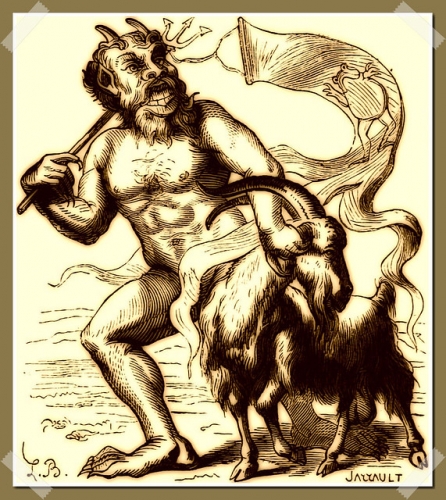
Le bouc émissaire
Il convient d'examiner de plus près l'image évangélique de la division en brebis et en boucs. Il est évident qu'il y a ici une référence claire au rite du sacrifice de l'Ancien Testament, dans lequel un animal (brebis et taureaux) était séparé des animaux sacrifiés, qui devenait le "bouc émissaire" (en hébreu "azazel" - עֲזָאזֵֽל ; l'expression לַעֲזָאזֵֽל est littéralement "pour une élimination complète"). Dans la Septante, cette expression était traduite par ἀποπομπαῖος τράγος, en latin caper emissarius.
Le livre du Lévitique donne cette description du sacrifice d'Aaron :
21. Aaron posera ses deux mains sur la tête du bouc vivant, il confessera sur lui toutes les iniquités des enfants d'Israël et tous leurs péchés, il les mettra sur la tête du bouc, et il l'enverra avec un messager dans le désert :
22. Le bouc portera toutes leurs iniquités dans le pays impénétrable, et il enverra le bouc dans le désert.
L'Évangile de Matthieu. [ch. 22:14].
21. καὶ ἐπιθήσει αρων τὰς χεῖρας αὐτοῦ ἐπὶ τὴν κεφαλὴν τοῦ χιμάρου τοῦ ζῶντος καὶ ἐξαγορεύσει ἐπ' αὐτοῦ πάσας τὰς ἀνομίας τῶν υἱῶν ισραηλ καὶ πάσας τὰς ἀδικίας αὐτῶν καὶ πάσας τὰς ἁμαρτίας αὐτῶν καὶ ἐπιθήσει αὐτὰς ἐπὶ τὴν κεφαλὴν τοῦ χιμάρου τοῦ ζῶντος καὶ ἐξαποστελεῖ ἐν χειρὶ ἀνθρώπου ἑτοίμου εἰς τὴν ἔρημον
22. καὶ λήμψεται ὁ χίμαρος ἐφ' ἑαυτῷ τὰς ἀδικίας αὐτῶν εἰς γῆν ἄβατον καὶ ἐξαποστελεῖ τὸν χίμαρον εἰς τὴν ἔρημον
וְסָמַךְ אַהֲרֹן אֶת-שְׁתֵּי [יָדֹו כ] (יָדָיו ק) עַל רֹאשׁ הַשָּׂעִיר הַחַי וְהִתְוַדָּה עָלָיו אֶת-כָּל-עֲוֹנֹת בְּנֵי יִשְׂרָאֵל וְאֶת-כָּל-פִּשְׁעֵיהֶם לְכָל-חַטֹּאתָם וְנָתַן אֹתָם עַל-רֹאשׁ הַשָּׂעִיר וְשִׁלַּח בְּיַד-אִישׁ עִתִּי הַמִּדְבָּרָה׃
וְנָשָׂא הַשָּׂעִיר עָלָיו אֶת-כָּל-עֲוֹנֹתָם אֶל-אֶרֶץ גְּזֵרָה וְשִׁלַּח אֶת-הַשָּׂעִיר בַּמִּדְבָּר׃
En d'autres occasions, le " bouc émissaire " était jeté du haut d'une falaise. Ce rituel entre clairement en résonance avec le récit évangélique de la façon dont le Christ a guéri un homme possédé dans le village de Gardarins en ordonnant aux démons de sortir de lui et d'habiter un troupeau de porcs voisin. Les démons ont obéi, puis le troupeau s'est hâté vers le précipice et est tombé dans l'abîme. Dans ce cas, le rôle du bouc émissaire était celui d'un troupeau de porcs, qui prenait sur lui les péchés pour lesquels la personne possédée souffrait.
Selon la tradition, un morceau de laine rouge était attaché au bouc pour être envoyé dans le désert. Le prêtre de l'Ancien Testament en arrachait une partie lorsque le bouc passait les portes de la ville et la suspendait à la vue de tous. Si Dieu avait accepté le sacrifice de purification, le tissu serait miraculeusement devenu blanc.
Il est important de noter que le bouc émissaire était distinct des animaux sacrifiés, qui étaient considérés comme purs, et représentait un sacrifice spécial. Le symbolisme complexe du bouc émissaire l'associait à l'ange déchu, Satan, mais restait entièrement dans la structure du monothéisme juif. Dans le livre apocryphe d'Enoch (Livre d'Enoch, chapitre 8:1), Azazel apparaît comme le nom de l'un des "anges déchus".
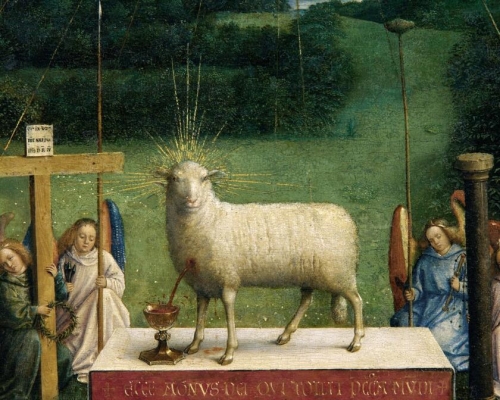
Dans la Grèce antique, un rite similaire était associé à l'exécution rituelle d'un criminel qui emportait les péchés de la communauté (φαρμακός, κάθαρμα, περίψημα). En cela, nous pouvons probablement reconnaître des échos des anciens cultes de Dionysos (le philosophe français René Girard a fondé son système philosophique sur une analyse de la figure du bouc émissaire). Il faut souligner ici que le destin final de l'humanité lors du Jugement dernier la divise en un sacrifice agréable à Dieu (les brebis, et ce n'est pas un hasard si l'agneau symbolise le Christ lui-même), et ceux qui sont retirés, séparés, retranchés, déchus du troupeau principal (l'humanité). Les boucs ne plaisent pas à Dieu, ne sont pas acceptées par Lui et sont donc rejetées - elles périssent sans laisser de trace dans le désert ou tombent dans l'abîme.
On peut se rappeler l'histoire des deux fils d'Adam (l'unité de l'humanité), Abel et Caïn. Le sacrifice d'Abel est accepté et celui de Caïn est rejeté. La création d'Eve (la division de l'humanité), la consommation du fruit défendu de l'arbre de la connaissance du bien et du mal (à nouveau la dualité opposée à l'unité de l'arbre de vie) et la naissance de Caïn et Abel (l'histoire du premier meurtre) sont autant de prototypes initiaux de la fin de l'histoire humaine, du sacrifice final lors du Jugement dernier.
Ainsi, à la fin du monde, la dualité de l'humanité, manifestée dans sa division irréversible, devient pleinement explicite mais implicitement cette division commence déjà au paradis.
23:55 Publié dans Traditions | Lien permanent | Commentaires (1) | Tags : tradition, apocalypse, bouc émissaire, traditionalisme, alexandre douguine |  |
|  del.icio.us |
del.icio.us |  |
|  Digg |
Digg | ![]() Facebook
Facebook
lundi, 16 janvier 2023
Alexandre Douguine: les conditions de notre victoire
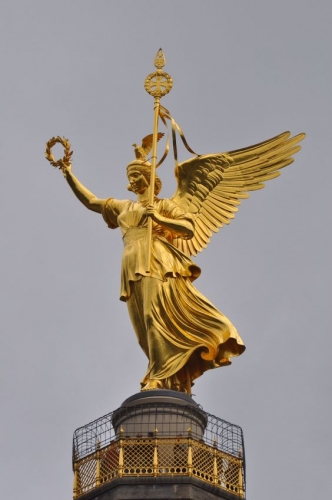
Les conditions de notre victoire
Alexandre Douguine
Source: https://www.geopolitika.ru/article/usloviya-nashey-pobedy
Note du traducteur: Dans ce texte, qui a valeur de manifeste, Alexandre Douguine propose les mesures qui permettront de sortir la Russie de certaines impasses en lesquelles elle se trouve encore, en dépit de vingt ans de gestion poutinienne. Ces axes de réflexion valent également pour les pays d'Europe occidentale et centrale, Ukraine comprise. A chacun d'entre nous, en chacun de nos pays, d'adapter ces consignes à nos réalités nationales ou transrégionales (Euro-Regio, SarLorLux, Benelux, etc.).
Quels sont les changements dont nous avons besoin pour la Victoire ?
Je vais résumer ce que chacun pense et dit à ce propos.
1.
Il nous faut une transition qui parte de la domination de l'État pour aboutir à une alliance entre l'État et le peuple. L'unité organique du pouvoir avec le peuple. D'où, ipso facto, le passage de la manipulation à l'honnêteté.
2.
Transition du paradigme libéral au paradigme socialiste-populaire - les personnes du secteur public et les pauvres reçoivent un niveau élevé de soutien matériel.
3.
Changement de la prédominance du grand capital (oligarchie) en une véritable concurrence entre les représentants des petites et moyennes entreprises (les grandes entreprises, elles, sont nationalisées).
4.
Déplacement du centre de l'industrie, c'est-à-dire passage d'un commerce axé sur les seules matières premières vers une production reposant sur des réalisations à forte intensité de connaissances et vers le renouveau des zones rurales.
5.
Implantation de grandes agglomérations urbaines et nouveau développement des terres agricoles russes. Des mégapoles actuelles, nous passerons au renouveau des petites villes et à des centres ruraux d'un nouveau type.
6.
Rejet du principe d'immunité et de promotion des managers corrompus et totalement inefficaces et introduction, à la place, du principe de méritocratie (pouvoir des dignes qui ont prouvé leur dignité dans la pratique).
7.
Passage de la RP à une société entièrement idéologique: les propagandistes ne défendent plus ce qui leur est commandé sur le moment, mais ce en quoi ils croient vraiment.
8.
Rejet de la culture du divertissement au profit de la culture classique - formatrice, édifiante, féconde.
9.
L'historicité du régime politique : la définition précise de la place de la Russie contemporaine dans la structure de l'histoire russe - en rendant hommage à l'Ancienne Rus', au Royaume de Moscou, à l'Empire russe, à l'URSS avec la malédiction sans équivoque du Temps des troubles et des infâmes années 1990.
(Ndt: Ailleurs qu'en Russie, cela implique l'imbrication des peuples dans leur histoire et, simultanément, une malédiction pour les années de troubles et les siècles de malheur).
10.
La protection des valeurs traditionnelles dans leur intégralité et, simultanément, l'éradication des valeurs non traditionnelles sont confiées aux porteurs organiques de ces valeurs traditionnelles, et non à des gestionnaires aléatoires.
11.
Construire une société solidaire avec
- la classe spirituelle comme boussole morale,
- les guerriers héroïques en tant qu'élite politique et sociale (la nouvelle noblesse ou, si vous voulez, la nomenclature du parti) ,
- les travailleurs honnêtes (y compris les entrepreneurs honnêtes) comme norme de l'homme commun.
12.
La création rapide d'une élite intellectuelle russe, indépendante des normes et stratégies de la civilisation occidentale.
(Ndt: En Europe, cela signifie la réémergence d'une élite reposant sur les ordres de chevalerie, sur l'Ordre de la Toison d'Or, sur l'idée impériale traditionnelle, le tout assorti d'un rejet des logiciels culturels/politiques issus de l'iconoclasme du 16ème siècle et donc du puritanisme anglo-saxon, rationalisé en idéologie whig, et des dérives de la révolution française, dont le fatras républicain qui mine la France depuis de nombreuses décennies).
13.
Un retour au modèle de la société traditionnelle avec une famille forte - un rejet des interprétations séculières, contractuelles et individualistes du mariage.
Toutes ces étapes, pratiquement évidentes, sont autant de conditions nécessaires à la Victoire. Sans y passer, c'est-à-dire si on laisse tout en l'état, nous sommes condamnés. Le modèle existant, qui était relativement efficace dans la période d'avant-guerre, ne répond plus aux exigences historiques. L'Opération militaire spéciale a commencé à le révéler. Cela a mis en évidence nos failles fondamentales. Dans la confrontation directe et frontale avec la civilisation occidentale, nos faiblesses ne sont pas seulement devenues manifestes mais fatales. Si nous voulons gagner, et nous n'avons pas d'autre option, nous devons changer fondamentalement le système actuel. Nous avons besoin d'un nouvel État et de nouvelles politiques. Nous n'avons pas beaucoup de temps. Je pense qu'il faut un an tout au plus pour faire des percées majeures dans ces directions.
20:51 Publié dans Actualité, Nouvelle Droite | Lien permanent | Commentaires (0) | Tags : alexandre douguine, nouvelle droite, nouvelle droite russe, russie, actualité, politique internationale |  |
|  del.icio.us |
del.icio.us |  |
|  Digg |
Digg | ![]() Facebook
Facebook
vendredi, 13 janvier 2023
La Russie et la Chine dans le nouvel ordre mondial - examen des théories d'Aleksandr Dugin et de Jiang Shigong
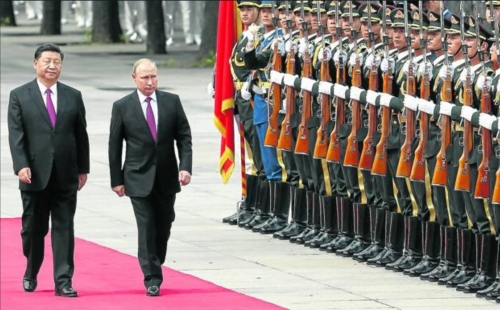
La Russie et la Chine dans le nouvel ordre mondial - examen des théories d'Aleksandr Dugin et de Jiang Shigong
Markku Siira
Source: https://markkusiira.com/2023/01/05/venaja-ja-kiina-uudessa-maailmanjarjestyksessa-aleksandr-duginin-ja-jiang-shigongin-teorioiden-tarkastelua/
Alors que le nouvel ordre mondial prend forme face au Grand Jeu géopolitique et à la "tempête parfaite" de l'économie mondiale, les conservateurs de l'Ouest se demandent également ce qui va se passer. Jonathan Culbreath s'est aventuré dans les théories russes et chinoises d'un ordre mondial multipolaire dans The European Conservative.
Il passe en revue l'histoire récente et reconnaît qu'après la Seconde Guerre mondiale, les États-Unis, avides de victoire, ont commencé à remodeler le monde à leur propre image. Le triomphe de la démocratie libérale sur les puissances de l'Axe a marqué une nouvelle phase de l'histoire. Après la chute de l'Union soviétique, l'idéologie et la forme politique américaines, ainsi que le système économique qu'elle avait hérité de son prédécesseur britannique, ont cherché à se mondialiser. C'était une ère monopolaire d'hégémonie américaine.
Le développement économique dans le monde entier s'est fait selon les termes définis par les institutions créées par le nouvel hégémon. Même les grands pays comme la Russie et la Chine ont dû se plier aux règles de l'Occident. Pour beaucoup, ce capitalisme mondial était considéré comme du "colonialisme américain", admet Culbreath.
Depuis lors, la Chine s'est imposée comme la deuxième superpuissance et la plus grande économie du monde. Contrairement aux attentes occidentales, la commercialisation et l'ouverture de la Chine au monde n'ont pas conduit à une libéralisation idéologique de la Chine, mais ont permis à Pékin de devenir le principal challenger de l'hégémonie occidentale.
Bien que la reprise économique de la Russie depuis l'effondrement de l'Union soviétique n'ait pas été aussi impressionnante pour Culbreath que celle de la Chine, la Russie est devenue une source d'énergie essentielle pour une grande partie de l'Occident et du reste du monde. Comme les événements récents l'ont clairement démontré, la Russie dispose également d'un levier géopolitique. Comme la Chine, elle est donc un concurrent majeur de la puissance anglo-américaine.
Après l'effondrement de l'Union soviétique, la Russie a été plongée dans le chaos sous la présidence de Boris Eltsine. La transition d'une économie socialiste planifiée vers une économie de marché capitaliste et une démocratie libérale a conduit à l'inflation et à l'austérité, causées par l'application accélérée de la thérapie de choc économique néolibérale occidentale dans la grande puissance de l'Est.
Depuis lors, pendant les années de l'administration du président Vladimir Poutine, la Russie a réintégré le marché mondial de manière impressionnante, principalement grâce à la grande quantité de ses importantes ressources naturelles. Cela a conduit à une forte reprise économique. Le mépris affiché par l'Occident a également donné naissance à de nouvelles tendances idéologiques en Russie.
Culbreath estime que l'objectif de la Russie est de redevenir - sans l'aide de l'Occident - "une grande civilisation indépendante, ancrée dans une nouvelle conscience de l'unicité politique, économique et culturelle de la Russie".
Bien que la Russie et la Chine soient très proches dans leur opposition à l'autocratie occidentale, les superpuissances ont considéré différemment le monde multipolaire émergent. Les différentes circonstances ont également influencé les idéologies qui ont émergé sur le sol russe et chinois.
Culbreath cite Aleksandr Douguine et Jiang Shigong comme exemples dont les théories peuvent être utilisées pour comprendre les différentes formations idéologiques de la Russie et de la Chine contemporaines.
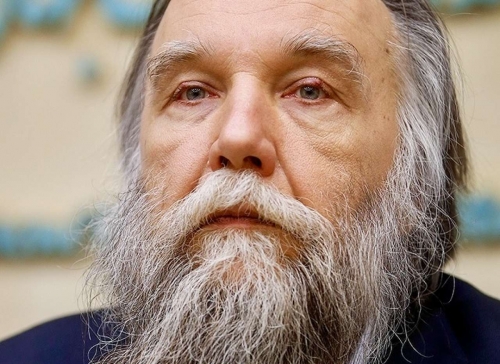
L'idéologie eurasienne d'Aleksandr Douguine
Le politologue Aleksandr Douguine a formulé une nouvelle idéologie russe dans le cadre de la "multipolarité". Son courant de pensée, qui s'inscrit dans le cadre général de la "quatrième théorie politique", cherche à envisager l'avenir mondial d'un point de vue russe - ou plus largement eurasien - dans un monde post-occidental centré et post-unipolaire.
Après le système anglo-américain, le globe dans la vision de Douguine est divisé en plusieurs "grands espaces", chacun avec ses propres systèmes politiques, économiques et culturels uniques. Ici, Douguine suit explicitement la théorie du Großraum, le grand espace, de l'Allemand Carl Schmitt, qui sous-tend également les théories "réalistes" des relations internationales avancées par John Mearsheimer et d'autres chercheurs.
Pour sa théorie d'un monde multipolaire, Douguine se considère redevable au politologue américain Samuel P. Huntington, qui a écrit son ouvrage controversé Le choc des civilisations et la refonte de l'ordre mondial, en protestation contre la thèse triomphaliste de Francis Fukuyama sur la "fin de l'histoire".
Douguine est d'accord avec l'argument de Huntington selon lequel la fin de la guerre froide n'a pas signifié la victoire du modèle démocratique libéral de gouvernement et de ses formes économiques et culturelles associées sur le reste du monde. Au contraire, l'effondrement du système bipolaire américano-soviétique n'a fait qu'ouvrir la voie à l'émergence d'un monde multipolaire, dans lequel des civilisations indépendantes deviendraient de nouveaux acteurs de l'histoire mondiale et des sources potentielles de nouveaux conflits.
Le monde de la mondo-civilisation est en train d'émerger dans l'ère post-monopole, comme une conséquence inévitable du rejet de l'hégémonie américaine et de la désintégration du monde mono-polaire en un ensemble d'États civilisés recherchant la souveraineté dans leurs propres cadres politiques, économiques et culturels.
Dans la pensée idéaliste de Douguine, la multipolarité russe cherche non seulement à relever sa propre tête géopolitique, mais aussi à libérer les civilisations naissantes du monde en Afrique, en Inde, en Chine, en Amérique du Sud et ailleurs de l'assaut du globalisme américain et à donner aux civilisations séparées leur propre souveraineté.
D'autre part, les détracteurs de Douguine pensent toujours qu'il prône le leadership russe dans le nouvel ordre. Ses anciens écrits ont peut-être une influence sur la façon dont l'eurasianisme de Douguine est considéré par certains comme une version réactionnaire du néoconservatisme américain.
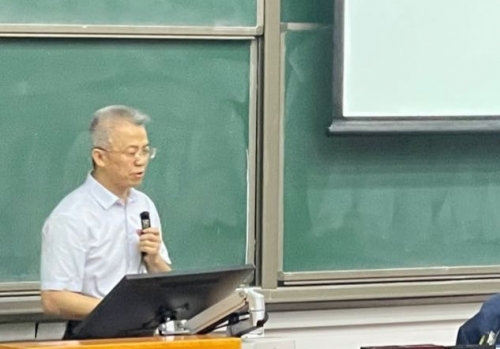
Jiang Shigong et le mondialisme chinois
La commercialisation de la Chine dans les années 1980, une période de modernisation et d'ouverture, a suivi une trajectoire très différente de celle de la Russie, affirme Culbreath. L'économie de la Russie a été soumise à une "thérapie de choc" ultra-libérale dont elle ne s'est toujours pas totalement remise, mais le communisme de marché de la Chine a permis une forte accélération de la croissance de sa productivité économique, faisant de la Chine l'un des pays les plus riches du monde en quelques décennies.
Alors que les comptes rendus occidentaux typiques lors de la réforme et de l'ouverture de la Chine sous Deng Xiaoping la décrivent comme en écart par rapport à la vision maoïste antérieure du socialisme chinois, il existe un autre point de vue qui considère cette période de l'histoire chinoise comme un retour à l'approche scientifique marxiste-léniniste préconisée par Mao Zedong lui-même.
Selon cette interprétation, le capitalisme lui-même remplit un objectif spécifique dans la progression historique vers le socialisme et le communisme. En effet, les écrits de Vladimir Lénine sont pleins de répétitions de cette formulation de base: le socialisme lui-même dépend du capitalisme pour le développement des moyens de production, conformément aux lois du développement capitaliste telles qu'exposées par Karl Marx.
La politique de réforme de la Chine était en contradiction avec la "thérapie de choc" qui a paralysé la Russie. Au lieu de libéraliser tous les prix en une seule fois, la direction communiste a décidé de libéraliser les prix progressivement dans le cadre de son propre système. Cette approche plus prudente de la commercialisation a permis à l'appareil central de contrôler les réformes et même d'encourager la création de nouveaux marchés et zones de production - avec pour effet notable que la prospérité de la Chine a commencé à croître.
Les capitaux ont également commencé à affluer en Chine depuis l'Occident, contribuant à son essor au cours des trois décennies suivantes, rappelle l'Américain Culbreath. La Chine est devenue une destination privilégiée pour l'externalisation/délocalisation occidentale, la transformant en une "usine du monde" super-industrielle. La Chine est devenue non seulement un membre pleinement intégré de la communauté mondiale, mais aussi le principal producteur mondial de biens de consommation bon marché et de produits "plus lourds" comme l'acier. En un sens, le monde entier est devenu dépendant de la Chine.
Le processus de transformation de la Chine a donné lieu à une compréhension idéologique particulière de son rôle dans l'histoire mondiale. Le président Xi Jinping incarne cette idéologie dans sa philosophie de gouvernement. L'explication et la défense la plus autorisée de la pensée de Xi, selon Culbreath, vient de Jiang Shigong, un éminent spécialiste du droit constitutionnel à l'Université de Pékin.
Certains des écrits de Jiang ont été publiés en anglais sur le site Reading the China Dream, ainsi que des essais et des discours d'autres éminents spécialistes du développement moderne de la Chine. Jiang Shigong explique les idées de Xi Jinping - ou, plus largement, l'idéologie du socialisme chinois - et la décrit en termes marxistes comme une "superstructure idéologique naturelle qui complète la base matérielle du socialisme chinois".
Jiang conteste l'interprétation courante qui tente de voir une contradiction entre les époques de Mao Zedong et de Deng Xiaoping. Il décrit plutôt le développement historique de Mao à Deng et Xi Jinping comme une évolution continue et cohérente en trois étapes: sous Mao, la Chine "s'est levée"; sous Deng, elle "s'est enrichie"; et sous Xi, la République populaire, qui s'étend dans l'espace, "devient forte".
Tout comme le Russe Alexandre Douguine dans sa théorie de la multipolarité, Jiang présente l'idéologie du socialisme chinois comme une alternative radicale à la théorisation de Fukuyama sur la fin de l'histoire dominée par les Américains. Jiang partage la vision de Douguine et d'autres théoriciens de la multipolarité de la fin de la domination du monde et du capitalisme occidentaux.
Cependant, l'approche de Jiang à l'égard de la mondialisation diffère de celle de Douguine parce que le mondialisme est vraiment central dans son récit du développement de la Chine. Jiang estime que la position unique de la Chine dans le système international lui confère une responsabilité particulière envers l'ensemble de l'humanité, qui ne se limite pas aux frontières de la Chine.
Devenue la deuxième plus grande économie du monde, la Chine est désormais au centre de la scène mondiale et, selon Jiang, elle ne peut ignorer ses responsabilités envers le reste du monde en se concentrant uniquement sur son propre destin. La Chine doit "équilibrer ses relations avec le monde et lier la construction du socialisme au développement du monde entier à la manière chinoise, et participer activement à la gouvernance mondiale".
Jiang Shigong voit la progression de l'histoire du monde à partir d'unités politiques plus petites vers des conglomérats plus grands, ou empires, pour aboutir à la dernière phase de l'"empire mondial", actuellement dirigé par les États-Unis.
Dans ce récit, la direction irréversible de l'histoire va vers un "ordre universel des choses". Le ton de Jiang est presque fataliste: chaque pays, y compris la Chine, aura inévitablement un rôle à jouer dans la construction de cet empire mondial.
Ainsi, l'interprétation de Jiang d'un monde multipolaire n'est pas un retour à l'ère des empires civilisationnels régionaux, mais une lutte pour le leadership économique et politique après la réalisation d'un empire mondial.
Il s'agit d'une variation du schéma marxiste classique de la lutte des classes, la Chine elle-même jouant le rôle implicite du prolétariat luttant contre la bourgeoisie, que l'Amérique personnifie à son tour. La prise de pouvoir des capitalistes de l'Ouest est en réalité l'établissement d'une "dictature du prolétariat" mondiale.
Jiang n'hésite pas à suggérer que les propres aspirations de la Chine vont précisément dans ce sens, d'autant plus qu'il semble que "nous vivons dans une ère de chaos, de conflits et de changements massifs, avec l'empire mondial 1.0 [c'est-à-dire l'empire mondial américain] en déclin et en effondrement".
Les écrits de Jiang peuvent être interprétés comme signifiant qu'il estime qu'il incombe à la Chine de jouer un rôle de premier plan dans "l'empire mondial 2.0" pour faciliter le développement de toutes les nations, au-delà du modèle de développement capitaliste unilatéral qui a dominé le système occidental-centrique.
La multipolarité continue de jouer un rôle à ce stade, la Chine encourageant tous les pays en développement à ouvrir leurs propres voies vers la modernisation. Comme l'a affirmé Xi Jinping, la Chine offre "une nouvelle alternative aux autres pays et nations qui veulent accélérer leur développement tout en maintenant leur indépendance".
Jiang réitère et développe cette idée en affirmant que l'objectif de la Chine n'est pas de forcer les autres pays à suivre un modèle unique de développement économique, comme l'a fait l'Occident, mais précisément de faciliter leur développement le long de leurs propres voies régionales, déterminées par leurs propres contraintes politiques et culturelles locales.
Son souci du développement des économies régionales reflète également la "confiance communiste" caractéristique de la Chine dans le potentiel de développement de l'humanité dans son ensemble, et ses aspirations sont donc clairement universelles et cosmopolites, et non simplement nationalistes.
Le mondialisme, ou l'universalité, reste la clé de la conception que la Chine a d'elle-même et de son destin historique, qui est conforme non seulement à son idéologie communiste actuelle, mais aussi au concept cosmologique confucéen classique de tianxia (天下), ou "tout sous le ciel".
Les conclusions de Culbreath
Aleksandr Douguine envisage un ordre mondial défini par plusieurs civilisations indépendantes. Cette vision est incompatible avec un ordre mondial universel (à moins que Douguine ne veuille vraiment que Russki mir, le "monde russe", finisse par diriger la planète d'une manière ou d'une autre).
Selon Jiang Shigong, l'ordre correspondant est dirigé par "un souverain universel mais bienveillant, dont le but est de permettre aux différents peuples placés sous sa providence de poursuivre leur prospérité selon leurs propres voies de développement distinctes".
Alors que la vision de Douguine d'un monde multipolaire avec une entité politique gouvernant chaque civilisation tente, d'une manière presque hégélienne, de fusionner les différentes caractéristiques des États pré-modernes, la vision de Jiang du prochain ordre mondial parvient même à fusionner le mondialisme avec un communisme confucéen qui l'englobe.
La Russie et la Chine ont leur propre rôle important à jouer dans la définition des paramètres idéologiques ou théoriques au sein desquels tous les pays doivent considérer la question de leur avenir dans les tendances plus larges de l'histoire mondiale. Cette réflexion dépasse les frontières des idéologies politiques traditionnelles.
La question de savoir à quoi ressemblera le monde de l'après "fin de l'histoire" est une question qui concerne tout le monde. C'est pourquoi les théories politico-philosophiques de la multipolarité formulées dans les pays opposés à l'autocratie américaine, comme la Russie et la Chine, doivent, selon Culbreath, être prises au sérieux.
19:56 Publié dans Actualité | Lien permanent | Commentaires (0) | Tags : jiang shigong, alexandre douguine, russie, chine, politique internationale, civilisations |  |
|  del.icio.us |
del.icio.us |  |
|  Digg |
Digg | ![]() Facebook
Facebook
dimanche, 01 janvier 2023
Alexandre Douguine: Ordre katéchonique
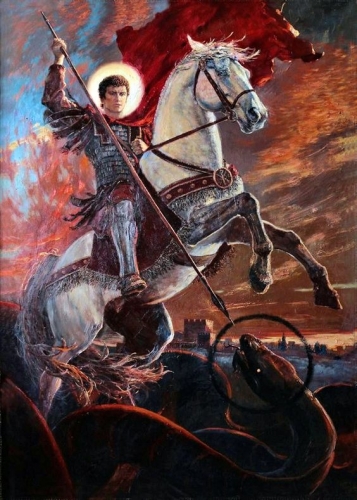
Ordre katéchonique
Alexandre Douguine
Source: https://www.geopolitika.ru/article/katehonicheskiy-poryadok
La Russie dans une bataille avec une civilisation du chaos
Si nous considérons le problème du chaos dans une perspective philosophique et historique, il devient tout à fait clair que l'Opération militaire spéciale (OMS) relève de la lutte de la Russie contre la civilisation du chaos, qui est, en fait, la "nouvelle démocratie", représentée par l'Occident collectif et sa proxy-structure enragée (l'Ukraine). Les paramètres de cette civilisation, son profil historique et culturel, son idéologie en général sont assez faciles à identifier. Nous pouvons reconnaître le mouvement vers le chaos dès la première rébellion contre l'orbitalité, la hiérarchie, le volume pyramidal ontologique qui incarnait l'ordre de la civilisation traditionnelle. En outre, le désir d'horizontalité et d'égalitarisme dans tous les domaines n'a fait qu'augmenter. Enfin, la "nouvelle démocratie" et le globalisme représentent le triomphe de systèmes chaotiques que l'Occident peine encore à contrôler, mais qui prennent de plus en plus le dessus et imposent leurs propres algorithmes chaotiques à l'humanité. L'histoire de l'Occident à l'époque moderne et jusqu'à ce moment est une histoire de la croissance du chaos - sa puissance, son intensité et sa radicalité.
La Russie - peut-être pas sur la base d'un choix clair et conscient - s'est retrouvée en opposition à la civilisation du chaos. Et ceci est devenu un fait irréversible et indiscutable immédiatement après le début de l'OMS. Le profil métaphysique de l'adversaire est généralement clair. Mais la question de savoir ce qui constitue la Russie elle-même dans ce conflit, et comment elle peut vaincre le chaos, compte tenu de ses fondements ontologiques fondamentaux, est loin d'être simple.
Quelque chose de bien plus sérieux que le réalisme
Nous avons vu que formellement, du point de vue de la théorie des relations internationales, il s'agit d'une confrontation entre deux types d'ordre: l'unipolaire (l'Occident) et le multipolaire (la Russie et ses alliés prudents et souvent hésitants). Une analyse plus approfondie révèle que l'unipolarité est un triomphe de la "nouvelle démocratie" et donc du chaos, tandis que la multipolarité, fondée sur le principe des civilisations souveraines, tout en étant un ordre, ne révèle rien sur l'essence de l'ordre proposé. En outre, la notion classique de souveraineté, telle qu'elle est comprise par l'école réaliste des relations internationales, présuppose elle-même le chaos entre les États, ce qui sape le fondement philosophique si nous considérons la confrontation avec l'unipolarité et le mondialisme comme une lutte précisément pour l'ordre et contre le chaos.
Évidemment, en première approximation, la Russie n'attend rien d'autre que la reconnaissance de sa souveraineté en tant qu'État-nation et la protection de ses intérêts nationaux, et le fait qu'elle ait dû affronter le chaos modéré du mondialisme pour y parvenir a été en quelque sorte une surprise pour Moscou, qui a entamé l'OMS avec des objectifs beaucoup plus concrets et pragmatiques. L'intention des dirigeants russes était uniquement de contrer le réalisme dans les relations internationales par le libéralisme, et les dirigeants russes ne s'attendaient pas ou même ne soupçonnaient pas une confrontation sérieuse avec l'institution du chaos - surtout sous sa forme aggravée. Et pourtant, nous nous trouvons dans cette même situation. La Russie est en guerre contre le chaos dans tous les sens de ce phénomène aux multiples facettes, ce qui signifie que toute cette lutte revêt une nature métaphysique. Si nous voulons gagner, nous devons vaincre le chaos. Et cela signifie également que nous nous positionnons dès le départ comme l'antithèse du chaos, c'est-à-dire comme le commencement qui en est l'opposé.
C'est le bon moment pour revoir les définitions fondamentales du chaos.
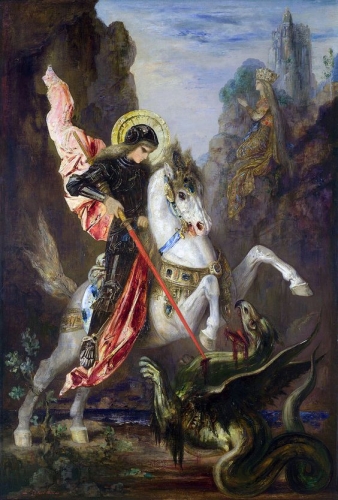
Les limites du chaos
Premièrement, dans l'interprétation grecque originale, le chaos était un vide, un territoire où l'ordre n'a pas encore été établi. Bien sûr, ce n'est pas à cela que ressemble le chaos moderne de la civilisation occidentale - ce n'est pas un vide, au contraire, c'est une explosion de matérialité omniprésente; mais face à un véritable ordre ontologique, il n'est, en effet, rien, sa signification et son contenu spirituel tendent vers zéro.
Deuxièmement, le chaos est un mélange, et ce mélange est basé sur la disharmonie, les conflits désordonnés et les affrontements agressifs. Dans les systèmes chaotiques, l'imprévisibilité prévaut, car tous les éléments ne sont pas à leur place. La dé-centricité, l'excentricité devient le moteur de tous les processus. Les choses du monde se rebellent contre l'ordre et tendent à renverser toute construction ou structure logique.
Troisièmement, l'histoire de la civilisation ouest-européenne révèle une inflation constante d'un degré de chaos, c'est-à-dire une accumulation progressive de chaos - comme un vide, une agression par mélange et fractionnement de particules de plus en plus petites. Et ceci est accepté comme le vecteur moral du développement de la civilisation et de la culture.
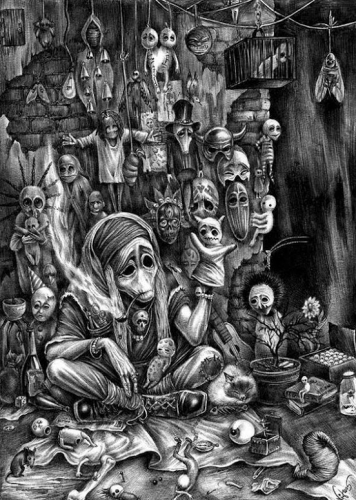
Le mondialisme est le stade final de ce processus, où toutes ces tendances atteignent leur plus haut degré de saturation et d'intensité.
Le grand vide nécessite un grand ordre.
La Russie dans l'OMS remet en question l'ensemble de ce processus - métaphysique et historique. Par conséquent, dans tous les sens, il parle au nom d'une alternative au chaos.
Cela signifie que la Russie doit proposer un modèle capable de combler ce vide croissant. De plus, le volume du vide est corrélé à la force et à la puissance intérieure de l'ordre qui prétend le remplacer. Un grand vide nécessite un grand ordre. En fait, elle correspond à l'acte de naissance d'Eros ou de Psyché entre le Ciel et la Terre. Ou le phénomène de l'homme comme médiateur entre les principaux pôles ontologiques. Nous avons affaire à une nouvelle création, à une affirmation de l'ordre là où il n'existe plus, là où il a été renversé.
Pour établir l'ordre dans une telle situation, il est nécessaire de soumettre les éléments libérés de la matérialité. C'est-à-dire faire face aux torrents d'un pouvoir fragmenté et fracturé, vaincre les résultats d'un égalitarisme porté à sa limite logique. Par conséquent, la Russie doit être inspirée par un principe céleste supérieur qui est seul capable de soumettre la rébellion chtonique.
Et cette mission métaphysique fondamentale doit être accomplie dans une confrontation directe avec la civilisation occidentale, qui est la somme historique de l'escalade du chaos.
Pour vaincre les puissances titanesques de la Terre, il est nécessaire d'être des représentants du Ciel, d'avoir une quantité critique de son soutien de leur côté.
Il est clair que la Russie moderne en tant qu'État et société ne peut prétendre être déjà l'incarnation d'un tel élément comique organisateur. Elle est elle-même imprégnée d'influences occidentales et tente de défendre uniquement sa souveraineté sans remettre en question la théorie du progrès, les fondements matérialistes des sciences naturelles du Nouvel Âge, les inventions techniques, le capitalisme ou le modèle occidental de démocratie libérale. Mais comme l'Occident mondialiste moderne refuse à la Russie toute souveraineté, même relative, il l'oblige à faire monter les enchères sans cesse. Elle se retrouve ainsi dans la position d'une société en rébellion contre le monde moderne, contre le chaos égalitaire, contre la croissance rapide du vide et l'accélération de la dissipation.
N'étant pas encore vraiment un ordre, la Russie a affronté le chaos dans une bataille mortelle.
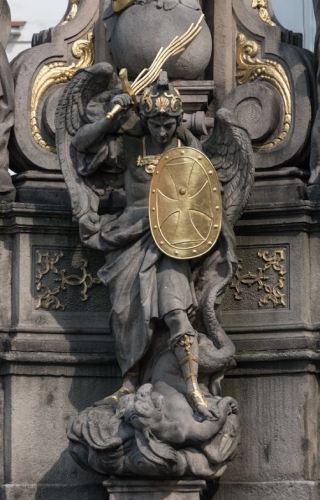
Katechon - la troisième Rome
Dans une telle situation, la Russie n'a tout simplement pas d'autre choix que de devenir ce qu'elle n'est pas en ce moment, mais doit en conséquence prendre une position qu'elle est bien forcée de prendre par le hasard même des circonstances. La plate-forme pour une telle confrontation, dans les racines de l'histoire et de la culture russes, existe certainement. C'est avant tout l'orthodoxie, les valeurs sacrées et l'idéal élevé d'un Empire doté d'une fonction katéchonique, qui doivent être considérés comme un rempart contre le chaos [1]. Dans une mesure résiduelle, la société a conservé les concepts d'harmonie, de justice et de préservation des institutions traditionnelles - famille, communauté, moralité, qui ont survécu à plusieurs siècles de modernisation et d'occidentalisation, et surtout à la dernière époque athée et matérialiste. Toutefois, cela est loin d'être suffisant. Pour résister à la puissance du chaos de manière vraiment efficace, il faut un réveil spirituel à grande échelle, une transformation profonde et un renouveau des fondements, principes et priorités spirituels de l'ordre sacré.
La Russie doit rapidement affirmer en son sein les prémices de l'ordre katéchonique sacré, qui s'est établi au 15ème siècle dans la continuité de l'héritage byzantin, et dans la proclamation de Moscou comme la Troisième Rome.
Seule une Rome éternelle peut s'opposer au flux tout à fait destructeur du temps libéré. Mais pour cela, elle doit elle-même être une projection terrestre de la verticale céleste.
Etymasia
Dans l'art ecclésiastique, il existe un thème appelé "Trône préparé" -- en grec Etymasia, ἑτοιμασία. Cette iconographie nous montre un trône vide flanqué d'anges, de saints ou de souverains. Cette image symbolise le trône de Jésus-Christ, sur lequel il s'assiéra pour juger les nations lors de la seconde venue. Pour l'instant - jusqu'à la seconde venue - le trône est vide. Pas entièrement. La Croix est placée dessus.
Cette image fait référence à la pratique byzantine et romaine plus ancienne consistant à placer une lance ou une épée sur le trône au moment où l'empereur quitte la capitale, par exemple pour une guerre. L'arme montre que le trône n'est pas vide. L'Empereur n'est pas là, mais sa présence l'est. Et personne ne peut empiéter sur le pouvoir suprême en toute impunité.
Dans la tradition chrétienne, cela a été réinterprété dans le contexte du royaume des cieux et donc du trône de Dieu lui-même. Après l'Ascension, le Christ s'est retiré au ciel, mais cela ne signifie pas qu'il n'existe pas. Il est, et Il est le seul à être vraiment. Et son royaume "n'a pas de fin". Elle est dans l'éternité - pas dans le temps. C'est pourquoi les Vieux Croyants ont tant insisté sur l'ancienne version du Credo en russe - "Son Royaume n'a pas de fin", et non "il n'y aura pas de fin". Le Christ habite sur son trône pour toujours. Mais pour nous, mortels, terrestres, dans une certaine période historique - entre la Première et la Seconde Venue - elle devient imperceptible. Et comme un rappel de la principale figure absente (pour nous, l'humanité), la Croix est placée sur le trône. En contemplant la Croix, nous voyons le Crucifié. En pensant au Crucifié, nous connaissons le Ressuscité. En tournant nos cœurs vers le Ressuscité, nous le voyons se lever, revenir. "Le Trône préparé" est Son royaume, Sa puissance. Tant lorsqu'Il y est présent que lorsqu'Il s'en retire. Il reviendra. Car tout ceci est un mouvement au sein de l'éternité... En dernière analyse, Son règne n'a jamais été interrompu.
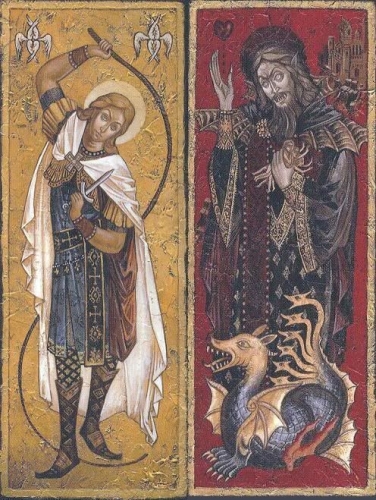
La Russie, qui entre aujourd'hui dans la bataille finale contre le chaos, se trouve dans la position de celle qui combat l'anti-Christ lui-même. Mais combien nous sommes loin de ce haut idéal, que la radicalité de la bataille finale exige. Et pourtant... la Russie est le "trône préparé". Il peut sembler de l'extérieur qu'il est vide. Mais ce n'est pas le cas. Le peuple russe et l'État russe portent les catéchumènes. C'est à nous aujourd'hui que s'appliquent les mots de la liturgie "Comme le Tsar qui élève tout". Avec un effort extraordinaire de volonté et d'esprit, nous nous chargeons du fardeau du Titulaire. Et cette action de notre part ne sera jamais vaine.
Contre le chaos, nous n'avons pas seulement besoin de notre ordre, nous avons besoin de Son ordre, de Son autorité, de Son royaume. Nous, les Russes, portons sur nous le "Trône des Préparés". Et dans l'histoire de l'humanité, il n'y a pas de mission plus sacrée, plus élevée, plus sacrificielle, que d'élever le Christ, le Roi des rois, sur nos épaules.
Mais tant qu'il y a une Croix sur le trône. Il s'agit de la Croix russe. La Russie y est crucifiée. Elle saigne avec ses fils et ses filles. Et tout cela pour une raison... Nous sommes sur le droit chemin de la résurrection des morts. Et nous jouerons un rôle essentiel dans ce mystère mondial. Car nous sommes les gardiens du trône. Les soldats du Katechon.
Note:
[1] Douguine A.G. Genèse et Empire. MOSCOU : AST, 2022.
20:05 Publié dans Actualité, Philosophie, Théorie politique | Lien permanent | Commentaires (0) | Tags : russie, katechon, alexandre douguine, théologie, théologie politique, théorie politique, philosophie, philosophie politique |  |
|  del.icio.us |
del.icio.us |  |
|  Digg |
Digg | ![]() Facebook
Facebook
dimanche, 18 décembre 2022
Alexandre Douguine: Un nouveau chaos mondial
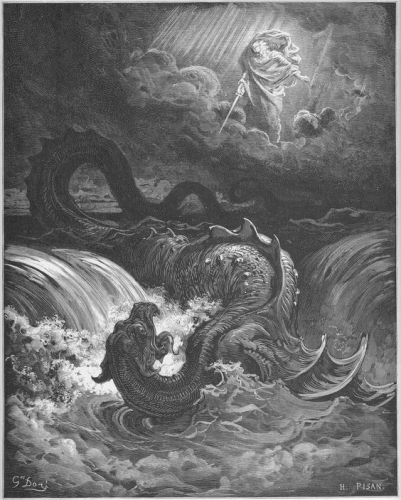
Un nouveau chaos mondial
Alexandre Douguine
Source: https://www.geopolitika.ru/article/novyy-mirovoy-haos
Le conflit de deux ordres mondiaux
Il semblerait que l'Opération militaire spéciale (OMS) fasse référence à un conflit entre deux ordres mondiaux - un ordre unipolaire, représenté par l'Occident collectif et l'Ukraine, et un ordre multipolaire, défendu par la Russie et ceux qui sont en quelque sorte de son côté (principalement la Chine, l'Iran, la Corée du Nord, certains États islamiques, en partie l'Inde, la Turquie, mais aussi des pays d'Amérique latine en Afrique). C'est précisément le cas. Mais examinons le problème d'un point de vue qui nous intéresse et découvrons le rôle que joue ici le chaos.
Soulignons immédiatement que le terme d'ordre mondial, world order, fait clairement appel à la structure explicite, c'est-à-dire qu'il est l'antithèse du chaos. Nous avons donc affaire à deux modèles de cosmos - l'unipolaire et le multipolaire. Si c'est le cas, il s'agit d'une collision entre des mondes, entre des ordres, des structures, et le chaos n'a rien à voir avec cela.
L'Occident propose sa propre version - où il constitue le centre et le reste du monde, la périphérie, où le centre est donc lui-même et son système de valeurs. La Russie et (plus souvent passivement) les pays qui la soutiennent prônent un cosmos alternatif: autant de civilisations, autant de mondes. Une hiérarchie contre plusieurs civilisations, organisées sur des principes autonomes. Le plus souvent sur une base historico-religieuse. C'est exactement la façon dont Huntington envisageait l'avenir.
Le choc des civilisations est une compétition entre mondes, entre ordres. Il existe un modèle centré sur l'Occident et un modèle pluraliste.
Dans ce contexte, la situation conflictuelle d'aujourd'hui apparaît comme quelque chose de tout à fait logique et rationnel. Le monde unipolaire, presque établi après l'effondrement du modèle bipolaire en 1991, ne veut pas renoncer à sa position de leader. De nouveaux centres de pouvoir luttent pour se libérer du pouvoir d'un hegemon en déclin. Même la Russie pourrait être pressée de le défier directement. Mais vous ne savez jamais à quel point il est vraiment faible (ou fort) jusqu'à ce que vous essayiez. Quoi qu'il en soit, c'est assez clair : il y a deux modèles du cosmos qui s'affrontent - un avec un centre clair et un avec plusieurs.
Quoi qu'il en soit, il n'y a pas de chaos ici. Et si nous rencontrons quelque chose comme ça, ce n'est que comme une situation de transition de phase. Cela expliquerait en partie la situation en Ukraine, où le chaos se fait pleinement sentir. Mais le problème comporte également d'autres dimensions.
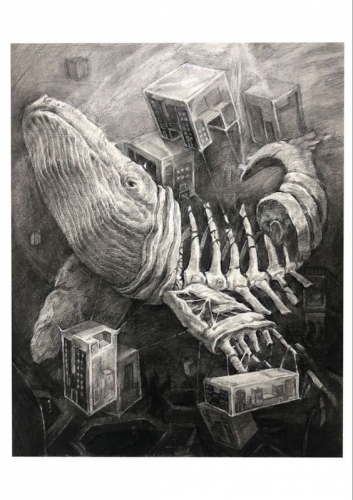
Le chaos hobbesien : l'État naturel et le Léviathan
Examinons de plus près ce qui constitue un ordre mondial unipolaire centré sur l'Occident. Il ne s'agit pas seulement de la domination militaire et politique des États-Unis et des États vassaux - surtout les pays de l'OTAN. C'est aussi la mise en œuvre d'un projet idéologique. Ce projet idéologique correspond à une démocratie dite progressiste. La signification de la démocratie dite progressiste est qu'il devrait y avoir de plus en plus de démocratie de ce genre dans le monde, et que le modèle vertical de la société devrait être remplacé par un modèle horizontal - dans le cas extrême, un modèle en réseau, un modèle rhizomatique.
Thomas Hobbes, le fondateur de la science politique occidentale, a imaginé l'histoire de la société comme suit. Dans la première phase, les gens vivent à l'état naturel. Donc "l'homme est un loup pour l'homme" (homo homini lupus est). C'est un chaos social initial, agressif, basé sur l'égoïsme, la cruauté et le pouvoir. D'où le principe de la guerre de tous contre tous. Ceci, selon Hobbes, est la nature de l'homme, car l'homme est intrinsèquement mauvais. Maléfique, mais aussi intelligent.
L'intelligence de l'homme lui a dit que s'il continuait à être dans son état naturel, les gens s'entretueraient tous tôt ou tard. Il a donc été décidé de créer une terrible idole artificielle, le Léviathan, qui imposerait les règles et les lois et s'assurerait que tout le monde les respecte. Ainsi, l'humanité a résolu le problème de la coexistence des loups. Le Léviathan est un super-loup, certainement plus fort et plus cruel, que n'importe quel homme. Le Léviathan est un État.
La tradition du réalisme politique - tout d'abord dans les relations internationales - s'arrête là. Il n'y a que l'état naturel et le Léviathan. Vous ne voulez pas l'un, vous obtenez l'autre.
Le chaos dans les relations internationales dans la tradition du réalisme
Ce modèle est finalement assez matérialiste. L'état naturel correspond au chaos agressif, à l'inimitié (νεῖκος) - celui qui représente l'alternative d'Empédocle à l'amour/amitié. L'introduction du Léviathan équilibre l'inimitié en imposant à tous les "loups" des règles et des normes qu'ils n'osent pas enfreindre sous peine de sanction et à la limite de la mort. D'où la formule avancée par Max Weber bien plus tard - "l'État est le seul sujet de la violence légitime". Le Léviathan est sciemment plus fort et plus terrible que n'importe quel prédateur et est donc capable d'arrêter une série d'agressions irréversibles. Mais le Léviathan n'est pas l'amour, n'est pas l'Eros, n'est pas la psyché. Il s'agit seulement d'une nouvelle expression de l'inimitié, une inimitié totale élevée à un degré supérieur.
D'où le droit de tout État souverain (et le Léviathan est souverain et c'est sa principale caractéristique) de déclencher une guerre avec un autre État. Ayant pacifié l'inimitié intérieure, le Léviathan est libre de déclencher une guerre à l'extérieur.
C'est ce droit de faire la guerre qui devient la base du chaos dans les relations internationales, selon l'école du réalisme. Les relations internationales sont un chaos précisément parce qu'aucune autorité suprême ne peut exister entre plusieurs Léviathans. Ils répètent au niveau macroscopique l'état naturel: l'état est égoïste et mauvais parce que l'homme qui l'a fondé est égoïste et mauvais. Le chaos intérieur est gelé pour se révéler, à l'extérieur, dans la guerre entre états.
A ce jour, le réalisme politique n'a pas non plus été totalement dépassé dans les démocraties et est considéré comme un point de vue légitime dans les relations internationales.
L'ordre de Locke
Mais ce n'est pas tout. Hobbes a été suivi par un autre penseur important, John Locke, qui a formulé une école différente de pensée politique - le libéralisme. Locke croyait que l'homme lui-même n'était pas mauvais, mais plutôt éthiquement neutre. Il est tabula rasa - une ardoise vierge. Si le Léviathan est mauvais, ses citoyens le seront aussi. Mais si le Léviathan change son tempérament et ses orientations, il est capable de transformer la nature des gens. Les gens en eux-mêmes ne sont rien - vous pouvez en faire des loups et vous pouvez en faire des moutons. Il ne s'agit que de l'élite dirigeante.
Si Hobbes pense à l'État avant l'État et a prédéterminé son caractère monstrueux (d'où le chaos hobbesien) et le compare à l'État, Locke examine l'État déjà existant et ce qui pourrait suivre, si l'État lui-même cesse d'être un monstre maléfique et devient une source de moralité et d'éducation, puis disparaît tout court, ayant passé l'initiative à des citoyens rééduqués - éclairés. Hobbes pense en termes de passé/présent. Locke pense en catégories présent/futur. Dans le présent, l'État est mauvais - égoïste et cruel (d'où les guerres et le chaos dans les relations internationales). À l'avenir, cependant, il est destiné à devenir bon, ce qui signifie que ses citoyens cesseront d'être des loups et que les guerres cesseront car la compréhension mutuelle prévaudra dans les relations internationales. En d'autres termes, Hobbes propose une dialectique du chaos et de sa suppression relative dans le Léviathan (avec une nouvelle invasion des relations interétatiques), tandis que Locke propose de réparer la nature violente de l'État en refaisant (en rééduquant, en éclairant) ses citoyens et en abolissant la guerre entre les nations. Quant à l'inimitié inhérente chez Hobbes, Locke propose de la remplacer non pas par l'amour et l'ordre, mais par le commerce, les échanges, la spéculation. Le marchand (et non le prophète, le prêtre ou le poète) remplace le guerrier. Dans le même temps, le commerce est appelé "doux commerce", gentle commerce. Elle est douce comparée à la saisie brutale du butin par le guerrier après la capture de la ville. Mais sa brutalité est cependant mise en évidence dans Le Marchand de Venise de Shakespeare.
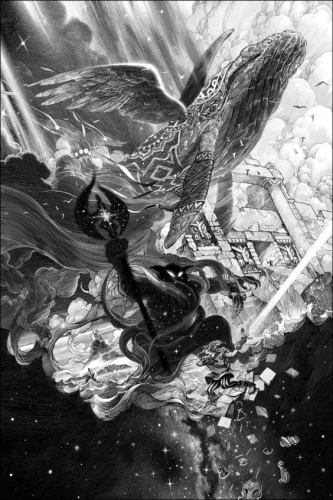
Il est important de noter que Locke considère l'ordre commercial pur et post-étatique comme quelque chose qui suit l'âge des États. Cela signifie que l'esprit collectif hypostasié dans le Léviathan n'est nullement aboli, mais seulement ramené à un niveau inférieur. Un citoyen rééduqué et éclairé (un ancien loup) est maintenant un Léviathan lui-même. Mais seulement un nouveau. En rééduquant ses sujets, le monarque éclairé (synonyme d'État éclairé) se rééduque lui-même.
Le gouvernement mondial comme projet des Lumières
C'est à partir de là que commence la théorie de la démocratie politique. L'État éduque ses citoyens, déracine l'agressivité et l'égoïsme, et devient lui-même altruiste et pacifiste. D'où la principale loi des relations internationales: les démocraties ne se combattent pas entre elles.
Et plus loin. - Si les États ne sont plus égoïstes (c'est-à-dire souverains), ils sont capables d'établir démocratiquement une autorité supranationale, un Gouvernement mondial. Il veillera à ce que toutes les sociétés soient bonnes, ne commercent qu'entre elles et ne se fassent jamais la guerre. Peu à peu, les États seront abolis et un seul monde, une société civile mondiale, verra le jour.
Économie: le chaos de Locke
Il semblerait que chez Locke et dans la tradition ultérieure du libéralisme qui poursuivit ses idées, le chaos a été supprimé. Mais ce n'est pas le cas. Il n'y a pas de chaos militaire mais il y a un chaos économique. Par conséquent, il n'y a pas d'agression, mais le chaos demeure. Oui, et l'agression et l'hostilité demeurent, mais acquièrent un caractère différent - à savoir celui qui a été imposé à la société par l'État commercial (capitaliste). Plus précisément, l'État d'Europe occidentale des temps modernes.
Que le marché doit être libre et l'économie déréglementée est la thèse centrale du libéralisme, c'est-à-dire de la démocratie moderne. Ainsi, le chaos est réintroduit, mais seulement pris dans une section transversale différente - avec l'agression atténuée et l'égoïsme pur et simple omniprésent. Le Léviathan est identifié à la raison (il a été établi sur sa base), et la raison est considérée comme quelque chose d'universel. D'où Kant, son raisonnement transcendantal et ses appels à la paix universelle. Ce raisonnement n'est pas aboli (en même temps que le dépassement du Léviathan), mais transformé, adouci, collectivisé (le Léviathan est collectif), puis atomisé en de nombreuses unités, écrites sur des ardoises vierges, celles d'individus atomiques. L'homme post-état se distingue de l'homme pré-état en ce que l'esprit est désormais son domaine individuel. C'est ainsi que Hegel comprenait la société civile. La rationalité commune de l'ancienne monarchie y est transmise à la multitude des citoyens - les bourgeois, les citadins.
Par conséquent, dans la théorie libérale, puisque le Léviathan est la rationalité, la distribution de la rationalité à tous les individus en supprime la nécessité. La société sera pacifique comme elle l'est (ce qui a été prévu par le Léviathan plus tôt) et elle réalisera ses tendances louvoyantes sous la forme supprimée - via la concurrence commerciale. Le théoricien libéral raciste du darwinisme social, Spencer, dit la même chose sous une forme sévère.
Le doux commerce, c'est le doux chaos, le chaos dans le contexte de la démocratie libérale.
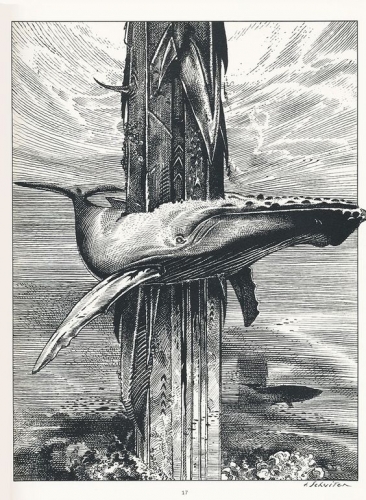
Nouvelle démocratie et gouvernance : le doux chaos de la dissipation
En Occident, il y a un équilibre entre Hobbes et Locke, une compréhension pessimiste et rétrospective de l'État (et de la nature humaine elle-même) et une compréhension progressiste et optimiste. La première est appelée réalisme, la seconde libéralisme (ndt: au sens anglo-saxon du terme). Les deux théories modernes, occidentalo-centriques et modernistes coïncident en général, mais diffèrent dans leurs particularités. Tout d'abord dans l'interprétation du chaos. Pour les réalistes, le chaos est intrinsèquement mauvais et agressif. Et c'est pour la combattre que l'État a été créé - le Léviathan. Mais le chaos n'a pas disparu, et le chaos interne est devenu externe. D'où l'interprétation de la nature de la guerre dans le réalisme.
Le libéralisme partage l'interprétation de la genèse de l'État, mais croit que le mal en l'homme peut être vaincu. Avec l'aide de l'État, qui se transforme (s'éclaire) puis éclaire aussi ses citoyens - jusqu'à pénétrer leur code, leur nature. En cela, l'État, surtout l'État éclairé, agit comme un programmeur pour installer un nouveau système d'exploitation dans la société.
Avec le succès du libéralisme, la théorie d'une nouvelle démocratie ou du mondialisme a commencé à prendre forme. Son essence réside dans le fait que les États-nations y sont abolis et que les guerres disparaissent avec eux, tandis que la nature agressive et égoïste de l'homme est modifiée par l'ingénierie sociale, qui transforme l'homme - qui, en d'autres mots, transforme le loup en mouton. Le Léviathan n'existe plus, et l'ancien chaos, militaro-agressif, est aboli. Le chaos du commerce mondial, le mélange des cultures et des peuples, les flux migratoires incontrôlés, le multiculturalisme, le mélange de tout et de tous en un seul monde commencent.
Mais cela crée un nouveau chaos. Pas agressif, mais doux, "gentil". Dans le même temps, le contrôle n'est pas aboli, mais descendu à un niveau inférieur. Alors que le gouvernement (governement), même dans l'ancienne démocratie, était une structure élue mais hiérarchique et verticale, c'est maintenant la gouvernance, où le pouvoir entre à l'intérieur du sujet gouverné, fusionnant avec lui jusqu'à devenir indiscernable. Pas de censure mais d'autocensure. Pas un contrôle d'en haut, mais un contrôle de soi. Ainsi le Léviathan vertical plasmate dans l'horizon des individus atomisés et dispersés et entre en chacun d'eux. C'est un hybride du chaos (état naturel) et du Léviathan (rationalité universelle). En fait, c'est ainsi que Kant pensait la société civile. L'universel déborde sur les atomes, et maintenant ce n'est plus une instance extérieure, mais le propre raisonnement individuel du citoyen éclairé qui freine sa propre agressivité et modère son propre égoïsme. C'est ainsi que la violence est placée à l'intérieur de l'individu. Le chaos ne divise pas le pouvoir et les masses, pas les États entre eux, mais l'homme lui-même. C'est la société du risque (Risikogesellschaft) d'Ulrich Beck: le danger émane désormais du moi et de ses propres dédoublements schizophréniques, qui deviennent la norme. Nous arrivons ainsi à l'individu schizo-individuel, porteur du chaos particulier de la nouvelle démocratie libérale et progressiste. Au lieu de faire du mal aux autres, le libéral "chaotique" se fait du mal à lui-même, se bat contre lui-même, se divise et se sépare. La chirurgie de réassignation de genre et la promotion des minorités sexuelles en général n'auraient pas pu arriver à un meilleur moment. L'optionalité du genre, la liberté de choix, oppose deux identités autonomes chez le même individu. La politique du genre permet au "chaotisme" de prendre toute sa dimension.
Mais il s'agit d'un chaos particulier, dépourvu de formalisation sous forme d'agression et de guerre.
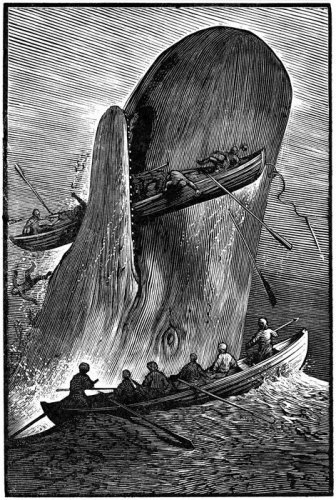
Une "Chaotique" comme norme humaine de la nouvelle démocratie
C'est précisément cet ordre de la nouvelle démocratie que l'Occident cherche à imposer à l'humanité. Le mondialisme insiste sur le chaos commercial (marché libre) combiné à l'idéologie LGBT+, qui normalise la scission au sein de l'individu, postule le "chaotisme" comme modèle anthropologique. Cela suppose que la rationalité et l'interdiction de l'agression sont déjà incluses dans le "chaotisme" - par la diabolisation massive du nationalisme et du communisme (surtout dans la version soviétique, stalinienne).
Il s'avère que le monde unipolaire et l'ordre mondial correspondant sont un ordre de chaos progressiste. Ce n'est pas le chaos pur, mais ce n'est pas un ordre au sens plein du terme. Il s'agit d'une "gouvernance" qui tend à se déployer horizontalement. Ainsi, la thèse d'un gouvernement mondial s'avère être trop hiérarchique - un Léviathan. Il est plus correct de parler d'un Gouvernement Mondial, d'un Gouvernement Mondial, qui est invisible, implicite. Gilles Deleuze a souligné à juste titre qu'à l'époque du capitalisme classique, l'image de la taupe est optimale: le capital travaille de manière invisible pour saper les structures traditionnelles et pré-modernes et construire sa propre hiérarchie. L'image du serpent convient mieux à la nouvelle démocratie. Sa flexibilité et ses frétillements indiquent la puissance cachée qui a pénétré dans la masse atomisée des libéraux cosmopolite. Chacun d'entre eux est individuellement porteur de spontanéité et d'imprévisibilité chaotique (bifurcation). Mais en même temps, un programme rigide est construit en eux, qui prédétermine toute la structure du désir, du comportement et de la fixation des objectifs - comme une usine avec des machines à désirer qui fonctionnent. Plus l'atome est libre par rapport à la constellation, plus sa trajectoire devient prévisible. C'est ce que Poutine a voulu dire en citant Les Possédés de Dostoïevski dans son passage sur Chigaliev: "Je commence par une liberté absolue et je finis par un esclavage absolu". Le Léviathan en tant qu'idole mondiale, que démon omnipotent créé par l'homme, n'est plus nécessaire, puisque les individus libéraux deviennent de petits "Léviathans" - des "chaotiques" exemplaires, libérés de la religion, des classes, de la nation, du sexe. Et l'hégémonie d'un tel Occident progressiste-démocratique ne représente pas seulement l'ordre au sens ancien ou même l'ordre démocratique, mais précisément l'hégémonie du chaos "pacifique".
Les pacifistes vont au front
Dans quelle mesure ce chaos lockien est-il pacifique ? Au point qu'il ne rencontre aucune alternative - c'est-à-dire aucun ordre. Il peut s'agir d'ordres occidentaux, voire de la vieille démocratie hobbesienne (que l'on pourrait appeler collectivement le trumpisme ou le vieux libéralisme), et encore d'autres types d'ordres, généralement non démocratiques, que l'Occident appelle collectivement "autoritarisme", c'est-à-dire les régimes de la Russie, de la Chine, de nombreux pays arabes, etc. Partout, nous voyons d'autres articulations de l'ordre qui s'opposent ouvertement et explicitement au chaos.
Et voici un point intéressant : lorsqu'il est confronté à l'opposition, le pacifiste libéral néo-démocrate de l'Ouest devient fou et devient extrêmement militant. Oui, les démocraties ne se battent pas entre elles, mais avec les régimes non démocratiques, au contraire, la guerre doit être sans pitié. Seul un "chaotique" sans identité de genre ou autre identité collective est un être humain, du moins un être humain au sens progressiste du terme. Tous les autres relèvent des masses arriérées et non éclairées sur lesquelles repose un ordre vertical, soit un Léviathan cynique, soit des versions encore plus autonomes et autarciques de l'ordre. Et ils doivent être détruits.
Post-ordre
Ainsi, le monde unipolaire entre dans une bataille décisive avec le monde multipolaire, précisément parce que l'unipolarité est l'aboutissement d'une volonté de mettre fin à l'ordre tout court, en le remplaçant par un post-ordre, un Nouveau Chaos Mondial. L'intériorisation de l'agression et la schizo-civilisation du "chaos" ne sont possibles que lorsqu'il n'y a pas de frontières dans le monde - pas de nations, pas d'États, pas de "Léviathan", c'est-à-dire pas d'ordre en tant que tel. Et tant qu'il n'y en a pas, le pacifisme reste totalement militant. Les transgenres et les pervers sont dotés d'uniformes et envoyés au combat eschatologique avec les adversaires du chaos.
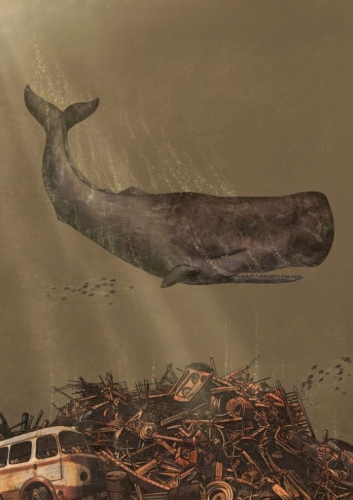
Chaos des cochons de Gardarinsky
Tout ceci jette une nouvelle lumière conceptuelle sur l'Opération militaire spéciale en Ukraine, la guerre de civilisation entre la Russie et l'Occident, la guerre contre l'unipolarité et pour la multipolarité. L'agression est ici multidimensionnelle et comporte différents niveaux. D'une part, la Russie prouve sa souveraineté, ce qui signifie qu'elle accepte la règle du chaos dans les relations internationales. Quelle que soit la façon dont vous la regardez, il s'agit d'une véritable guerre, même si elle n'est pas reconnue par Moscou. Moscou hésite pour une raison : il ne s'agit pas d'un conflit militaire classique entre deux États-nations, c'est autre chose - c'est une bataille de l'ordre multipolaire contre le chaos unipolaire, et le territoire de l'Ukraine est précisément la frontière conceptuelle ici. L'Ukraine n'est ni l'ordre, ni le chaos, ni un État, ni un territoire, ni une nation, ni un peuple. C'est un brouillard conceptuel, un bouillon philosophique dans lequel se déroulent les processus fondamentaux de la phase de transition. Tout peut naître de ce brouillard, mais jusqu'à présent, il s'agit d'une superposition de différents chaos, ce qui rend ce conflit unique.
Si l'on considère la Russie et Poutine comme des réalistes, l'OMS est une continuation de la bataille pour consolider la souveraineté. Mais elle implique une thèse réaliste du chaos des relations internationales et donc la légitimation de la guerre. Pour un État véritablement souverain, personne ne peut interdire de faire ou de ne pas faire quelque chose, car cela contredirait la notion même de souveraineté.
Mais la Russie se bat clairement non seulement pour un ordre national contre le chaos géré des mondialistes, mais aussi pour la multipolarité, c'est-à-dire le droit des différentes civilisations à construire leurs propres ordres, c'est-à-dire à surmonter le chaos par leurs propres méthodes. Ainsi, la Russie est en guerre contre le Nouveau Chaos Mondial (NCM) juste pour le principe de l'ordre - pas seulement pour le sien, le russe, mais l'ordre en tant que tel. En d'autres termes, la Russie cherche à défendre l'ordre mondial même qui s'oppose à l'hégémonie occidentale, à savoir l'hégémonie du chaos intériorisé, c'est-à-dire le mondialisme.
Et il y a un autre point important. L'Ukraine elle-même est une entité purement chaotique. Et pas seulement maintenant - dans son histoire, l'Ukraine a été un territoire d'anarchie, une zone où l'"état naturel" prévalait. Un Ukrainien est un loup pour un Ukrainien. Et d'autant plus un loup pour un Moscovite ou un Yabloko. L'Ukraine est une zone naturelle de libre arbitre anarchique, un champ de Cocktail total, où des autonomistes atomisés sont à la recherche de profit ou d'aventure, sans être contraints par aucun cadre. L'Ukraine aussi est un chaos, hideux, inhumain et insensé. Elle est ingouvernable et peu maniable.
Ce sont les cochons de Gardar, dans lesquels sont entrés les démons chassés par le Christ, et qui se sont précipités dans l'abîme. Le destin de l'Ukraine - en tant qu'idée et projet - se résume à ce symbole.
OMS - la guerre du chaos polysémantique
Il n'est donc pas surprenant que différents types de chaos se soient heurtés notamment en Ukraine. D'une part, le chaos contrôlé mondial de la nouvelle démocratie occidentale a soutenu et orienté les "chaotistes" ukrainiens dans leur confrontation avec l'ordre russe. Oui, cet ordre n'est encore qu'une promesse, qu'un espoir. Mais la Russie, de temps en temps, se comporte précisément comme son porteur. Nous parlons d'empire, de multipolarité et de confrontation frontale avec l'Occident. Le plus souvent, cependant, ce vecteur est couché sous la forme de la souveraineté (réalisme), qui a rendu possible le NCM. Il ne faut pas perdre de vue la profonde pénétration de l'Occident à l'intérieur de la société russe - le chaos en Russie même a son propre support sérieux, qui sape le vecteur d'identité de la Russie et l'affirmation de son ordre. Les cinquième et sixième colonnes en Russie sont des partisans du chaos occidental. Ils aiguisent et corrodent à la fois la volonté de l'État et du peuple de gagner face au NCM.
Par conséquent, la Russie au sein de ce NCM, étant placée du côté de l'ordre, agit parfois selon les règles du chaos, imposées à la fois par l'Occident (Nouveau Chaos Mondial) et par la nature même de l'ennemi.
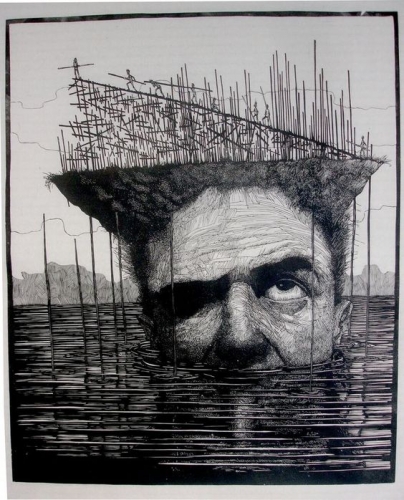
Le chaos russe
Le chaos russe. Il doit gagner, en créant un ordre russe.
Et la dernière chose. La société russe porte en elle un début chaotique. Mais c'est un autre chaos - le chaos russe. Et ce chaos a ses propres caractéristiques - ses propres structures. Il est à l'opposé du Nouveau Chaos Mondial des libéraux, car il n'est pas individualiste et matérialiste. Il est également différent du chaos lourd, obèse, corporellement sadique des Ukrainiens, qui engendre naturellement la violence, le terrorisme, foulant aux pieds toutes les normes de l'humanité. Le chaos russe est spécial, il a son propre code. Et ce code ne coïncide pas avec l'État, il est structuré de manière totalement indépendante de celui-ci. Ce chaos russe est le plus proche de l'original grec, qui est un vide entre le Ciel et la Terre, qui n'est pas encore rempli. Il ne s'agit pas tant d'un mélange de graines de choses qui se font la guerre (comme dans Ovide) que d'un avant-goût de quelque chose de grand - la naissance de l'Amour, une apparition de l'Âme. Les Russes sont un peuple précoce pour quelque chose qui ne s'est pas encore totalement manifesté. Et c'est précisément ce genre de chaos spécial, porteur de nouvelles pensées et de nouveaux actes, que le peuple russe porte en lui.
Pour un tel chaos russe, le cadre de l'État russe moderne est étroit, voire ridicule. Il porte les graines d'une grande réalité inconcevable et impossible. Une étoile de la danse russe.
Et le fait que le Nouvel Ordre mondal (NOM) n'inclut pas seulement l'État, mais le peuple russe lui-même, rend tout encore plus complexe et compliqué. L'Occident, c'est le chaos. L'Ukraine, c'est le chaos. Le peuple russe est le chaos. L'Occident a l'ordre dans le passé, nous avons l'ordre dans le futur. Et ces éléments d'ordre - fragments de l'ordre du passé, éléments du futur, ébauches d'alternatives, bords conflictuels de projets - se mêlent à la bataille du chaos.
Pas étonnant que l'OMS ait l'air si chaotique. C'est une guerre du chaos, avec le chaos, pour le chaos et contre le chaos.
Le chaos russe. C'est lui qui doit gagner, en créant un Ordre russe.
19:17 Publié dans Actualité | Lien permanent | Commentaires (0) | Tags : chaos, actualité, alexandre douguine, nouvelle droite russe |  |
|  del.icio.us |
del.icio.us |  |
|  Digg |
Digg | ![]() Facebook
Facebook
mercredi, 14 décembre 2022
Une brève histoire du chaos : de la Grèce antique au postmoderne - Partie 1

Une brève histoire du chaos : de la Grèce antique au postmoderne
Partie 1
Alexandre Douguine
Source: https://www.geopolitika.ru/article/kratkaya-istoriya-haosa-ot-drevney-grecii-k-postmodernu-chast-1
Le facteur chaos dans l'Opération militaire spéciale en Ukraine
Les participants les plus réfléchis au front ukrainien notent le caractère particulier de cette guerre: le facteur chaos s'y est incroyablement développé. Elle s'applique à tous les aspects de l'OMS (Opération militaire spéciale), tant aux actions et stratégies de l'ennemi qu'à notre commandement, tant au rôle fortement accru de la technologie (drones et engins sans pilote de toutes sortes) qu'au soutien intensif de l'information en ligne, où il est presque impossible de distinguer le fictif du réel. C'est une guerre du chaos. Il est temps de revoir ce concept fondamental.
Le chaos chez les Grecs
Si le mot χάος est grec, son sens doit être originellement grec, lié à la sémantique et au mythe, et donc à la philosophie.
La racine même du mot "chaos" est "béance", "bâillement", c'est-à-dire un endroit vide situé entre deux pôles - le plus souvent entre le Ciel et la Terre. Parfois (chez Hésiode) entre la Terre et le Tartare, c'est-à-dire la zone située sous l'Enfer (Hades).
Entre le Ciel et la Terre se trouve l'air, aussi, dans certains systèmes ultérieurs de philosophie naturelle, le chaos est-il identifié à l'air.
En ce sens, le chaos représente le territoire encore non structuré de la relation entre les polarités ontologiques et les autres polarités cosmogoniques. C'est à la place du chaos qu'apparaît l'ordre (le sens originel du mot κόσμος est beauté, harmonie, ordre). L'ordre est une relation structurée entre les polarités.
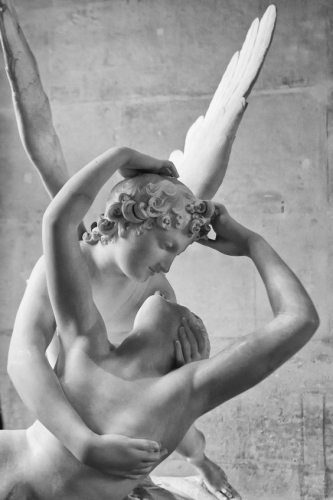
Le cosmos érotico-psychique
Dans le mythe, Eros et/ou Psyché apparaît (devient, surgit) dans le territoire précédemment occupé par le chaos. Eros est le fils de la plénitude (Porus, le Ciel) et de la pauvreté (Phenia, la Terre) dans le Pyrrhus de Platon. Eros relie les opposés et les sépare. De même, Psyché, l'âme, se situe entre le mental, l'esprit, d'une part, et le corps, la matière, d'autre part. Ils arrivent à l'endroit où le chaos régnait auparavant, et celui-ci disparaît, recule, s'efface, percé par les rayons de la nouvelle structure. C'est la structure d'un complexe érotique-psychique ! - qui commande.
Ainsi, le chaos est l'antithèse de l'amour et de l'âme. Le chaos règne là où il n'y a pas d'amour. Mais en même temps, c'est précisément à l'endroit du chaos - dans la même zone d'être - que naît le cosmos. Il existe donc une contradiction sémantique ainsi qu'une affinité topologique entre le chaos et ses antipodes - l'ordre, Eros, l'âme. Ils occupent le même endroit - l'endroit entre. Ma fille Daria avait appelé ce domaine la "frontière métaphysique" et l'avait thématisé sous différents horizons dans ses récents écrits et discours. Entre l'un et l'autre, il existe une "zone grise" dans laquelle il faut chercher les racines de toute structure. C'est ce que Nietzsche voulait dire, quand il nous disait que "seul le porteur du chaos dans l'âme est capable de donner naissance à une étoile dansante". L'étoile chez Platon, et plus tard chez beaucoup d'autres, est le symbole le plus contrasté de l'âme humaine.
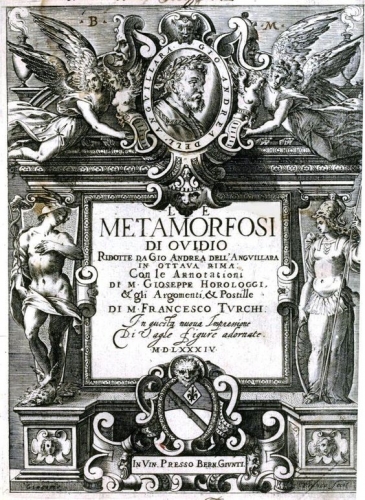
Le chaos chez Ovide
La deuxième signification, que l'on peut déjà deviner chez les Grecs, mais qu'ils ne décrivent pas trop strictement, se trouve chez Ovide. Dans les Métamorphoses, il définit le chaos par les termes suivants: une masse grossière et indivise (rudis indigestaque moles) composée de semences de choses mal combinées et en guerre (non bene iunctarum discordia semina rerum), n'ayant d'autre propriété que la gravité inerte (nec quicquam nisi pondus iners). Une telle définition est beaucoup plus proche de la χόρα de Platon, "le réceptacle du devenir", que du chaos originel, et entre en résonance avec la notion de matière. C'est le mélange des éléments qui est mis en avant dans une matière aussi chaotique. Cela aussi -- l'antithèse de l'ordre et de l'harmonie, d'où la discordia d'Ovide -- l'inimitié, qui renvoie à Empédocle et à ses cycles d'amour (φιλότης)/guerre, inimitié (νεῖκος). Le Chaos, comme l'inimitié, est à nouveau opposé à l'amour, φιλία. Mais ici, l'accent n'est pas mis sur le vide, mais plutôt sur une plénitude ultime mais dénuée de sens, non organisée - d'où la "gravité inerte" d'Ovide.
Les sens grec et gréco-romain opposent le chaos à l'ordre dans la même mesure, mais ils le font différemment. Au départ (chez les premiers Grecs), il s'agit plutôt d'un vide aussi léger que l'air, dont le caractère sinistre se révèle dans la gueule béante d'un lion qui attaque ou dans la contemplation d'un abîme sans fond. Dans l'hellénisme romain, la propriété de lourdeur et de mélange est mise en avant. Plutôt que de l'air, c'est de l'eau, ou même de la lave volcanique noire et rouge en ébullition.
Le chaos aux origines de la cosmogonie
La cosmogonie et parfois la théogonie de la religion gréco-romaine commence par cette instance - par le chaos. Dieu crée l'ordre à partir du chaos. Le chaos est primordial. Mais Dieu est plus primitif. Et il construit l'univers entre lui-même et ce qui n'est pas du tout lui-même. Après tout, si Dieu est une affirmation éternelle, vous pouvez avoir une négation éternelle. Il peut y avoir deux types de relations entre les deux - soit le chaos, soit l'ordre. La séquence peut être l'une ou l'autre - si c'est le chaos maintenant, il y aura de l'ordre dans le futur. S'il y a de l'ordre maintenant - il se détériorera probablement à l'avenir et le monde sombrera dans le chaos. Et alors Dieu rétablira l'ordre. Et cela dans une période donnée. D'où la théorie des cycles cosmiques, clairement énoncée dans la "Politique"(l "République") de Platon, mais plus développée dans l'hindouisme et le bouddhisme. D'où l'alternance continuelle des époques de guerre et d'amour d'Empédocle.
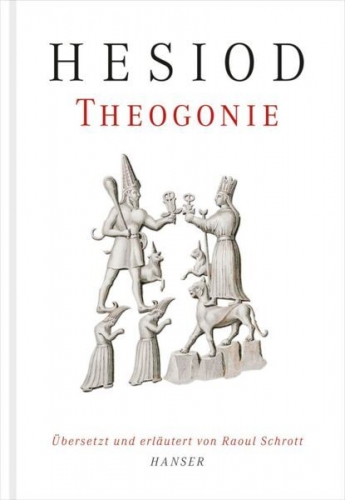
Chez Hésiode, la cosmogonie commence par le chaos. A Therakides avec ordre (Zas, Zeus). Le temps peut être décompté à partir du matin comme les Iraniens, ou à partir du soir comme les Sémites. Le chaos ne s'oppose pas au dieu. Il est opposé au monde de Dieu.
Tant qu'il n'y a pas d'ordre, la Terre ne sait pas qu'elle est la Terre. Car il n'y a pas de distance établie. Et c'est ainsi qu'elle fusionne avec le chaos. La Terre devient Terre lorsque le Ciel la demande en mariage et lui offre un voile de mariée. C'est le cosmos, le décor derrière lequel se cache le chaos. Il en va de même pour Ferekid - dans son mythe philosophique patriarcal charmant.
La disparition du chaos dans le christianisme - mais rappel de la notion juive de "tohu va bohu"
Dans le christianisme, le chaos disparaît. Le christianisme ne connaît qu'un seul Dieu et sa création, c'est-à-dire l'ordre, la paix. Autrefois, "la terre était sans vue et vide, et les ténèbres régnaient sur l'abîme" [1] (תֹ֙הוּ֙ וָבֹ֔הוּ וְחֹ֖שֶׁךְ עַל-פְּנֵ֣י תְהֹ֑ום ). Le terme hébreu tohu signifie précisément vide, absence, et s'accorde bien avec le concept grec de chaos. Déjà dans cette phrase, avec laquelle commence la première section de l'Ancien Testament, tohu est mentionné deux fois, ce qui s'est complètement perdu dans la traduction - la première fois, il est rendu par "sans vue", et la deuxième fois au pluriel (עַל-פְּנֵ֣י תְהֹ֑ום) dans la combinaison "sur le gouffre", littéralement "sur la face de tohu"). Le mot bohu (בֹ֔הוּ) dans la combinaison tohu va bohu (תֹ֙הוּ֙ וָבֹ֔הוּ) n'est plus utilisé dans la Bible (sauf Isaïe 34:11), qui cite simplement l'expression du début de la Genèse. Ainsi, littéralement, "la terre n'était que chaos et ?, et les ténèbres (hsd) sur la face du chaos (ou dans la face du chaos)". Au sens grec, on pourrait dire que "la terre était cachée par le chaos", ce qui l'empêchait de voir (le ciel, créé dans la première ligne de la Genèse) que la terre était la terre.
Ici, Dieu crée clairement non pas à partir du chaos, mais à partir du néant. Et il crée à la fois un esprit léger (le Ciel) et une chair sombre (la Terre). Le chaos est ce qui se trouve entre eux, ce qui cache leur véritable relation.
L'homme est à la place du cosmos. Ne glissez pas dans l'abîme.
Le reste du processus de création transforme déjà le chaos en cosmos. L'Esprit de Dieu, planant au-dessus des eaux, construit l'ordre à la place du désordre. C'est ainsi qu'apparaissent les lumières, les plantes, les animaux, les personnes et les poissons. Mais cet acte cosmogonique ne présentait pas un grand intérêt pour les Juifs (contrairement aux Grecs). Leur religion traitait d'un monde déjà créé (le cosmos), qui avait besoin de construire une relation juste avec Dieu le Créateur à travers l'homme. L'homme se tenait à la place du chaos. Il pourrait se glisser dans l'abîme d'Abbadon [2] ou s'élever vers les cieux - comme Elijah. Dans le livre de Job (28:22), Abaddon - comme la terre, Chthonia, dans Herekid - est mentionné dans le contexte du voile. Le voile est le cosmos. L'homme est le monde, mais il est basé sur le chaos. C'est vrai, mais la théologie juive et plus tard chrétienne ne fait presque jamais référence au chaos. Ici, tout est personnifié - et même l'ennemi humain, le diable, n'est pas un élément pré-existant, mais la personnalité bien distincte d'un ange déchu. À l'ère chrétienne, le chaos recule à la périphérie, suivant en de nombreux points le judaïsme - surtout le dernier.
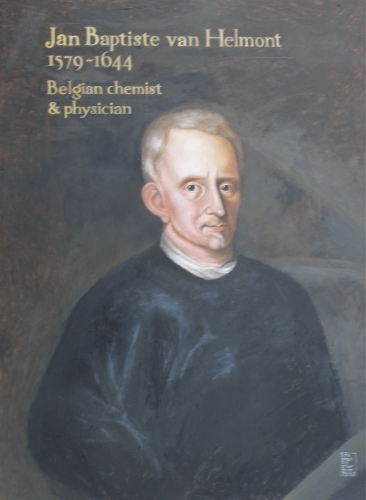
Le gaz : le chaos des alchimistes néerlandais
On constate un certain intérêt pour le chaos à la Renaissance, et notamment chez les alchimistes. Ainsi, le mot "gaz" vient de l'alchimiste néerlandais Van Helmont, qui le comprenait comme un "état gazeux de la matière" et, en néerlandais, comme "chaos". À ce titre plus prosaïque, le chaos-gaz trouve sa place dans la chimie et la physique modernes. Mais il n'a pas grand-chose en commun avec le concept cosmogonique et même ontologique grandiose de la métaphysique antique.
Le chaos : l'essence inavouée du matérialisme
Une nouvelle vague de fascination pour le chaos se manifeste déjà au vingtième siècle. Avec l'attention croissante portée à la culture pré-chrétienne - principalement gréco-romaine - de nombreuses théories et concepts anciens ont été redécouverts. Parmi eux, la notion complexe de chaos, qui offrait un mouvement de pensée cosmogonique très différent du récit créationniste du christianisme, sur le renversement duquel repose la science matérialiste moderne. Nous avons vu combien l'interprétation primitive du chaos était proche de la matière. Et il est même étrange que les matérialistes aient si longtemps refusé de le voir, malgré le fait que les parallèles entre les idées sur la matière et sur le chaos soient étonnamment consonants et similaires. Mais malgré la fascination pour le chaos, aucune conclusion à part entière n'a été tirée de cette interprétation du matérialisme, et l'étude du chaos s'est déroulée à la périphérie de la philosophie.
Imprévisibilité
En physique, la théorie du chaos a commencé à prendre forme dans la seconde moitié du vingtième siècle parmi les scientifiques qui s'intéressaient principalement aux états de non-équilibre, aux processus non linéaires, aux équations non intégrables et aux séries divergentes. À cette époque, la science physique et mathématique distinguait un vaste domaine qui ne se prêtait pas aux modèles de calcul classiques. D'une manière générale, on pourrait appeler cela "l'imprévisibilité". Un exemple de cette imprévisibilité est une bifurcation - un état d'un certain processus (par exemple le mouvement d'une particule) qui, avec exactement le même degré de probabilité à un moment donné, peut s'écouler à la fois dans une direction ou dans une direction entièrement différente. Si la science classique expliquait une telle situation par une compréhension insuffisante du processus ou une connaissance insuffisante de l'ensemble des paramètres du fonctionnement du système, le concept de bifurcation suggérait de considérer une telle situation comme une donnée scientifique et de passer à de nouvelles formalisations et méthodes de calcul, qui permettraient dans un premier temps de telles situations et en général s'en inspireraient exactement. Cela a été résolu à la fois par la référence au calcul probabiliste, à la logique modale, à la construction d'un modèle à 10 dimensions du World-Sheet (dans la théorie des supercordes), à l'inclusion d'un vecteur de temps irréversible à l'intérieur d'un processus physique (plutôt que comme temps absolu newtonien ou même comme temps de compréhension dans le système quadridimensionnel d'Einstein). Toute cette zone est ce que l'on peut appeler le "chaos" en physique moderne. Dans ce cas, le "chaos" ne fait pas référence aux systèmes qui ne peuvent pas du tout être calculés et dans lesquels il n'y a pas de modèle. Le chaos peut être calculé, influencé, expliqué et modélisé - comme tous les autres processus physiques - mais seulement avec des constructions mathématiques plus sophistiquées, des opérations et des méthodes spéciales.
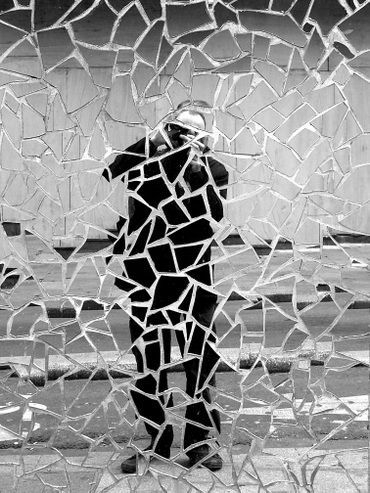
Subjuguer le chaos sans construire l'ordre
Nous pouvons définir tout ce domaine de recherche sur les processus chaotiques (tels qu'ils sont compris par les physiciens contemporains) comme la quête de la maîtrise du chaos. Il est important de noter qu'il ne s'agit pas de construire un cosmos à partir du chaos. C'est plutôt le contraire - la construction du chaos à partir des restes, des ruines de l'espace. Le chaos n'était pas censé être déraciné, mais être saisi et partiellement approfondi. Pour contrôler et modérer, pas pour vaincre. Et puisque le niveau du chaos était loin d'être avancé partout, il fallait aussi induire artificiellement le chaos, en poussant vers lui, un ordre rationaliste en décomposition. Ainsi, l'étude du chaos a acquis une sorte de dimension morale : le passage à des systèmes chaotiques et l'art de les gérer étaient perçus comme un signe de progrès - scientifique, technique et, par la suite, social, culturel et politique.
La nouvelle démocratie comme chaos social
De la physique fondamentale et de la philosophie du mythe, les théories du chaos se déplacent maintenant progressivement vers le niveau sociopolitique. Alors que la démocratie classique supposait un système hiérarchique basé uniquement sur les décisions de la majorité, la nouvelle démocratie a cherché à déléguer le plus de pouvoir possible aux individus. Cela conduit inévitablement à une société chaotique et modifie les critères de progrès politique. Au lieu de l'ordonner, les progressistes cherchent de nouvelles formes de contrôle - et ces nouvelles formes s'éloignent de plus en plus des hiérarchies et taxonomies classiques et convergent progressivement vers les paradigmes de la nouvelle physique avec sa priorité donnée à l'étude de la sphère du chaos.
Postmodernité : le chaos attaque
Dans la culture, les représentants du réalisme postmoderne et critique ont embrassé cette idée et ont commencé avec enthousiasme à appliquer les théories physiques à la société. Dans ce cas, il y a eu une transition du modèle quantique, qui n'a pas été projeté sur la société, à la synergétique et à la théorie du chaos. La société n'a désormais plus besoin de créer le moindre système hiérarchique normatif, passant à un principe de réseau - au concept de rhizome (Deleuze/Guattari). Le modèle était des situations dans lesquelles les malades mentaux prenaient le pouvoir contre les médecins de la clinique et construisaient leurs propres systèmes libérés. En cela, les progressistes voient l'idéal d'une "société ouverte" - généralement libre de règles et de lois strictes, et changeant d'attitude sur des impulsions purement aléatoires. La bifurcation deviendrait une situation typique, et l'imprévisibilité générale des masses schizomiques serait placée dans des théories non linéaires complexes. De telles masses pourraient être contrôlées, non pas directement, mais indirectement - en modérant leurs pensées, leurs désirs, leurs impulsions et leurs reptations apparemment spontanés, mais en fait strictement prédéterminés. La démocratie était désormais synonyme de chaos. Les masses ne choisissaient pas simplement l'ordre, elles le subvertissaient, menant la matière au désordre total.
Le pacifisme et l'intériorisation du chaos
Nous en arrivons ainsi au lien entre le chaos et la guerre. Les progressistes ont traditionnellement rejeté la guerre, insistant sur la thèse historiquement assez douteuse selon laquelle "les démocraties ne se combattent pas". Si la démocratie consiste intrinsèquement à saper la normativité et l'ordre, la hiérarchie et l'organisation cosmique de la société, alors tôt ou tard, l'histoire conduira la démocratie au chaos pur (c'est exactement ce que Platon et Aristote croyaient, démontrant de manière convaincante que c'est logiquement inévitable). Ainsi, l'abolition des États, suivant la notion pacifiste selon laquelle la guerre est une partie inhérente de l'État, devrait conduire à la paix universelle, puisque de facto et de jure les instances légitimes de la guerre disparaîtraient. Cependant, les États ont pour fonction d'harmoniser le chaos et, à cette fin, ils déchargent parfois leurs énergies destructrices vers l'extérieur, en direction de l'ennemi. Ainsi, la guerre à l'extérieur contribue à maintenir la paix à l'intérieur. Mais tout cela est dans la démocratie classique - et surtout dans les théories réalistes.
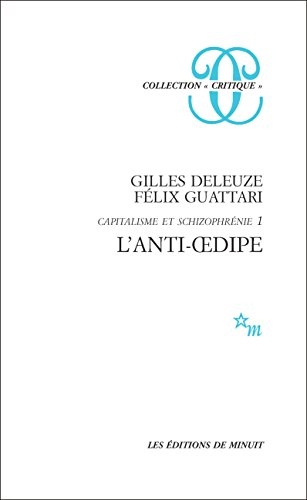
La nouvelle démocratie rejette la pratique consistant à extérioriser le côté sombre de l'homme dans le cadre d'une mobilisation nationale. Au contraire, les philosophes les plus responsables (comme Ulrich Beck, par exemple) proposent d'intérioriser l'ennemi, de mettre l'Autre à l'intérieur du soi. Il s'agit en fait d'un appel à la schizophrénie sociale (tout à fait dans l'esprit de Deleuze et Guattari), à un schisme de la conscience. Si la démocratie devient le chaos, le citoyen normatif de cette démocratie devient un individu chaotique. Il ne va pas vers un nouveau cosmos ; au contraire, il expulse les vestiges du cosmos, des taxonomies et de l'ordre - y compris le genre, la famille, la rationalité, les espèces, etc. -- hors de lui-même de manière définitive. Il devient un porteur de chaos, mais -- contrairement à la formule de Nietzsche -- les progressistes interdisent l'acte de donner naissance à une "étoile dansante" -- à moins que nous ne parlions d'un bar à strip-tease, d'Hollywood ou de Broadway. Le citoyen schizo ne devrait pas construire un nouveau cosmos sous n'importe quel prétexte - ce n'est pas pour cela que l'ancien a été si durement gagné. La démocratie du chaos est un post-ordre, un post-cosmos. En détruisant l'ancien, on se propose non pas de construire quelque chose de nouveau, mais de sombrer dans le plaisir de la déchéance, de succomber à l'attrait des ruines, des débris, des fragments et encore des fragments. Ici, aux niveaux inférieurs de la dégénérescence et de la dégradation, s'ouvrent de nouveaux horizons de métamorphose et de transformation. Puisqu'il n'y a plus de hiérarchie entre la bassesse et l'héroïsme, le plaisir et la douleur, l'intelligence et l'idiotie, ce qui compte c'est le flux lui-même, le fait d'être dedans, l'état d'être connecté au réseau, au rhizome. Ici, tout est proche et en même temps infiniment éloigné.
Schizoïdes
En même temps, la guerre ne disparaît pas, mais est placée à l'intérieur de l'individu. L'individu chaotique est en guerre contre lui-même, il exacerbe le fossé. Étymologiquement, schizophrénie signifie "dissection", "coupe", "démembrement" de la conscience. Le schizophrène - même apparemment pacifique - vit dans un état de rupture violent. Il laisse entrer la guerre en lui. C'est ainsi que l'hypothèse de Thomas Hobbes sur "l'état naturel" de l'humanité, décrit par cet auteur comme le chaos et la guerre de tous contre tous, est justifiée dans un nouveau tournant. Seulement, il ne s'agit pas d'un état "naturel" précoce, mais d'un état ultérieur, qui ne précède pas la construction de types hiérarchiques de sociétés et d'États, mais qui suit leur effondrement. Nous avons vu que le chaos est le contraire du cosmos, tout comme l'inimitié est le contraire de l'amour chez Empédocle. Nous avons également vu qu'Eros et le chaos sont des états alternatifs au topos du grand entre-deux. Donc : le chaos est la guerre. Mais pas toutes les guerres. Car la création de l'ordre est aussi une guerre, la violence et le fait de dompter les éléments et de les mettre en ordre. Le chaos est une guerre spéciale, une guerre totale, qui pénètre profondément à l'intérieur. C'est une guerre schizoïde, qui capture la personne entière dans son filet rhizomatique.
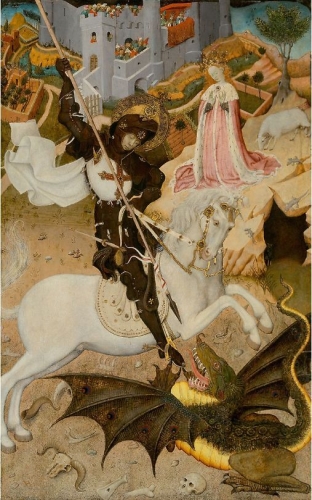
La guerre totale en tant que guerre du chaos
Cette guerre schizophrénique totale n'a pas de territoire strictement défini. Un tournoi de chevalerie n'était possible qu'après avoir délimité l'espace. Les guerres classiques avaient des théâtres de guerre et des champs de bataille. Au-delà de ces limites, il y avait l'espace. Le chaos s'était vu attribuer des zones de paix strictement désignées. La guerre moderne de la démocratie chaotique ne connaît pas de frontières. Elle se déroule partout à travers les réseaux d'information, les drones, les autres engins sans pilote, et à travers les états d'esprit des blogueurs qui laissent transparaître le clivage sous-jacent.
La guerre moderne est une guerre du chaos par définition. C'est maintenant que s'ouvre le concept de discordia, d'"inimitié", que nous trouvons chez Ovide et qui est inhérent à certaines interprétations - plutôt anciennes - du chaos. Le chaos se fonde précisément sur l'inimitié - et non sur l'inimitié de certains contre d'autres, mais de tous contre tous. Et le but de la guerre du chaos n'est pas la paix ou un nouvel ordre, mais d'approfondir l'inimitié jusqu'aux dernières couches de la personnalité humaine. Une telle guerre veut priver l'homme de son lien avec le cosmos, et ce faisant, le priver du pouvoir créatif de créer un nouveau cosmos, la naissance d'une nouvelle étoile.
C'est la nature démocratique de la guerre. Elle est menée non pas tant par des États que par des individus hystériquement divisés. Tout y est déformé: la stratégie, la tactique, le rapport entre la technique et l'humain, la vitesse, le geste, l'action, l'ordre, la discipline, etc. Tout cela a déjà été systématisé dans la théorie de la guerre réseau-centrée. Depuis le début des années 90, les dirigeants de l'armée américaine visent à mettre en œuvre la théorie du chaos dans l'art de la guerre. En 30 ans, ce processus est déjà passé par de nombreuses étapes.
La guerre en Ukraine a précisément apporté avec elle cette expérience - l'expérience directe de la confrontation avec le chaos.
Notes:
[1] Livre de la Genèse 1:2.
[2] Le lien entre l'abîme Avaddon, qui se situe sous l'enfer, le sheol (comme l'analogue du Tartare chez les Grecs), et le glissement, est parfaitement démontré dans ses travaux par E.A. Avdeenko. Voir Avdeyenko E. A. Psaumes : une vision du monde biblique. Moscou : Classis, 2016.
[1] Книга Бытия 1:2.
[2] Связь между бездной Аваддон, расположенной ниже ада, шеола (как аналог Тартара у греков) и скольжением прекрасно показывает в своих работах Е.А.Авдеенко. См. Авдеенко Е.А. Псалмы: библейское мировоззрение. М.: Классис, 2016.
20:17 Publié dans Nouvelle Droite, Philosophie | Lien permanent | Commentaires (0) | Tags : alexandre douguine, philosophie, chaos, nouvelle droite, nouvelle droite russe |  |
|  del.icio.us |
del.icio.us |  |
|  Digg |
Digg | ![]() Facebook
Facebook
dimanche, 04 décembre 2022
Le deuxième monde, la semi-périphérie et l'État-civilisation dans la théorie du monde multipolaire (II & III)
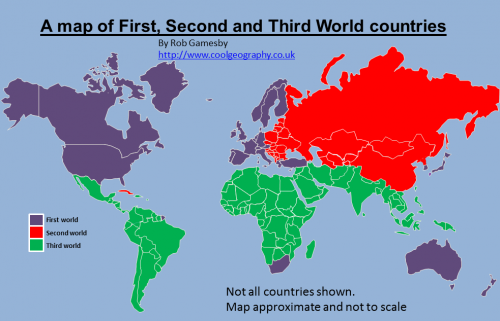
Le deuxième monde, la semi-périphérie et l'État-civilisation dans la théorie du monde multipolaire
Deuxième & troisième parties
première partie: http://euro-synergies.hautetfort.com/archive/2022/11/25/l...
Alexandre Douguine
Source: https://katehon.com/ru/article/vtoroy-mir-poluperiferiya-i-gosudarstvo-civilizaciya-v-teorii-mnogopolyarnogo-mira-vtoraya?fbclid=IwAR3cg5zBUT8dFXL1uOgOyvc4uJg0QcLu_KiLg1zz-l-gR-nl_4Dea9e--P8
Semi-périphérie
Passons maintenant à une théorie différente - l'"analyse du système mondial" construite par Immanuel Wallerstein [1]. Immanuel Wallerstein, représentant de l'école marxiste des relations internationales (principalement dans son interprétation trotskiste), s'appuyant sur la doctrine de "la grande durée" (F. Braudel [2]) et les théoriciens latino-américains de l'économie structurelle (R. Prebisch [3], S. Furtado [4]), a développé un modèle de zonage du monde en fonction du niveau de développement du capitalisme. Cette vision représente un développement des idées de Vladimir Lénine sur l'impérialisme [5] en tant que stade de développement le plus élevé du capitalisme, selon lequel le système capitaliste gravite naturellement vers la mondialisation et l'extension de son influence sur toute l'humanité. Les guerres coloniales entre les puissances développées ne sont que la phase initiale. Le capitalisme réalise progressivement l'unité de ses objectifs supranationaux et forme le noyau d'un gouvernement mondial. Cela est tout à fait cohérent avec la théorie libérale des relations internationales, où le phénomène de l'"impérialisme", compris de manière critique par les marxistes, est décrit en termes apologétiques comme l'objectif d'une "société globale", d'un seul monde.
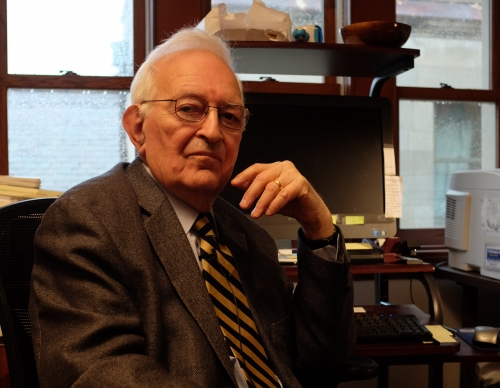
Immanuel Wallerstein.
L'expression géographique de la théorie du système mondial est l'identification de trois couches [6].
Le centre, le noyau ou le "Nord riche", constitue la zone du plus haut développement du capitalisme. L'Amérique du Nord et l'Europe occidentale correspondent au noyau, c'est-à-dire à l'atlantisme et à la civilisation ouest-européenne qui lui correspond, dont le pôle s'est déplacé au XXe siècle vers les États-Unis. Le cœur du système mondial de Wallerstein coïncide avec le "premier monde".
Autour du noyau se trouve le premier anneau, qui dans la théorie de Wallerstein est appelé "semi-périphérie". Elle comprend des pays qui sont inférieurs au noyau dur en termes de développement mais qui cherchent désespérément à rattraper ce qu'ils considèrent comme le modèle. Les pays de la semi-périphérie sont également capitalistes, mais adaptent les modèles de capitalisme à leurs caractéristiques nationales. En règle générale, ce sont des régimes "césaristes" (selon la nomenclature d'A.Gramsci [7]) qui s'y forment, c'est-à-dire que l'hégémonie libérale n'est acceptée que partiellement - principalement dans l'économie, les technologies et les modèles d'industrialisation, tandis que des modèles locaux correspondant à des modèles précapitalistes ou non-capitalistes continuent de dominer le système politique, la culture et la conscience sociale.
La semi-périphérie de Wallerstein comprend les pays les plus développés d'Amérique latine - surtout le Brésil, l'Inde, la Chine et la Russie. En d'autres termes, nous obtenons à nouveau approximativement les pays du club BRIC ou BRICS, c'est-à-dire le "deuxième monde".
La périphérie de Wallerstein correspond à ce que l'on appelait à l'origine le "tiers monde", avec les mêmes caractéristiques de base - sous-développement, retard, inefficacité, archaïsme, non-compétitivité, corruption, etc. C'est ce qu'on appelle aussi le "Sud pauvre".
Dans la théorie des systèmes mondiaux de Wallerstein, il y a une déclaration sur la tendance principale du développement. Elle découle de la croyance marxiste dans le progrès et le changement des formations économiques. Cela signifie que des relations non seulement spatiales mais aussi historiques et temporelles existent entre le noyau, la semi-périphérie et la périphérie.
La périphérie correspond au passé, à l'ordre archaïque pré-capitaliste.
Le noyau incarne le futur universel, le capitalisme mondial (donc la mondialisation).
Et la semi-périphérie est la zone dans laquelle la décomposition doit se faire en ce qui retourne au noyau et ce qui s'effondre dans la périphérie. Selon Wallerstein, la semi-périphérie n'est pas une alternative au capitalisme, mais seulement son stade retardé. Il s'agit d'un avenir différé. Wallerstein lui-même ne s'est donc pas particulièrement intéressé à la semi-périphérie, ne retraçant que les tendances qui confirmaient la scission de ces sociétés en une élite libérale mondialiste et des masses de plus en plus archaïques et prolétarisées. Wallerstein a prédit que la semi-périphérie se diviserait bientôt en un noyau et une périphérie et cesserait d'exister.
Une fois la semi-périphérie disparue, le monde entier sera global : le Nord riche interagira directement avec le Sud pauvre, où à nouveau les élites seront incorporées au noyau, et les masses se mêleront aux masses des autres zones dans une migration globale et deviendront le prolétariat international global. C'est alors que commencera la révolution prolétarienne prédite par Marx, la crise du système capitaliste mondial, et plus tard le communisme. Et cela ne devrait se produire qu'après l'achèvement du processus de mondialisation capitaliste, et donc après l'abolition de la semi-périphérie. En tant que trotskiste et anti-stalinien, Wallerstein pensait que le socialisme ne pouvait pas être construit dans un seul pays - ni en URSS ni en Chine, ce ne serait qu'un report de la mondialisation, et donc de la révolution mondiale qui lui succéderait. Tout comme Marx et Engels, dans leur Manifeste du Parti communiste [8], ont souligné que pendant que la bourgeoisie se débat avec des institutions médiévales, les communistes devraient la soutenir, et qu'ensuite seulement, après le succès des révolutions bourgeoises, ils devraient entrer en confrontation directe avec les capitalistes, De même, Wallerstein et la majorité des marxistes culturels et des gauchistes contemporains sont en faveur de la mondialisation contre la préservation de la souveraineté par les puissances individuelles, afin de ne les affronter de manière décisive qu'après la victoire totale des libéraux et des mondialistes. C'est pourquoi ils ne qualifient pas leur doctrine d'antimondialiste mais d'altermondialiste, mettant en avant des projets de post-libéralisme plutôt que d'anti-libéralisme [9].
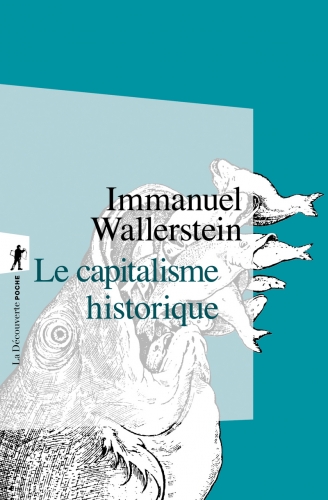
Une lecture multipolaire du semi-polarisme
Dans le contexte d'un monde multipolaire, le système mondial de Wallerstein en tant qu'ensemble complet est plutôt une antithèse. La multipolarité voit le phénomène même de la semi-périphérie tout à fait différemment. Il ne s'agit pas simplement d'une condition temporaire des sociétés arriérées qui ne sont pas encore incluses dans le noyau, mais de la possibilité d'un cours alternatif de l'histoire qui rejette l'universalité du capitalisme et de la mondialisation libérale et refuse au noyau le droit d'être synonyme d'avenir et un exemple de destinée universelle. La semi-périphérie est prise ici non pas comme un phénomène intermédiaire entre le noyau et la périphérie, mais comme une combinaison indépendante d'une identité civilisationnelle sous-jacente qui reste inchangée et d'un processus de modernisation.
Huntington [10], qui a parlé d'un choc des civilisations pour remplacer le monde bipolaire, a utilisé l'expression "modernisation sans occidentalisation". Il s'agit d'une stratégie consciente des élites de la semi-périphérie, qui choisissent de ne pas s'intégrer aux élites mondiales du noyau, mais de rester la classe dominante dans le contexte civilisationnel de la semi-périphérie. C'est ce que nous voyons en Chine, dans les pays islamiques, et en partie en Russie.
Le concept de la semi-périphérie, détaché du contexte marxiste-trotskiste de la théorie du système mondial, s'avère être identique au "deuxième monde". Cela nous permet de nous concentrer plus précisément et plus en détail sur les vecteurs des relations entre les pays de la semi-périphérie (BRICS) et les pays du noyau dur et les pays de la périphérie nette.
En combinant le potentiel des pays de la semi-périphérie et en établissant un dialogue intellectuel entre les élites qui ont consciemment décidé de ne pas s'intégrer au noyau du capitalisme libéral mondial, nous obtenons un projet aux ressources comparables et même supérieures au potentiel global du noyau ("premier monde"), mais avec un vecteur de développement complètement différent. Intellectuellement, la semi-périphérie n'agit pas ici comme une zone de "futur différé", mais comme une zone de libre choix, qui peut à tout moment combiner souverainement des éléments du "futur" et du "passé" dans n'importe quelle proportion. Il suffit d'abandonner le dogme libéral et marxiste du temps linéaire et du progrès socio-technique. Mais ce n'est pas aussi difficile qu'il y paraît, car les théories confucianistes, islamiques, orthodoxes, catholiques et hindoues du temps ne connaissent pas le dogme du progrès, et voient l'avenir sur lequel les capitalistes et les marxistes insistent de manière purement négative, comme un scénario apocalyptique eschatologique, ou en ont une vision entièrement différente.
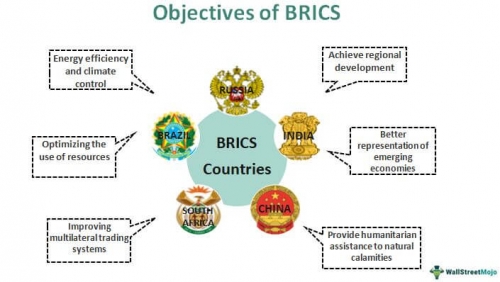
La semi-périphérie ("le deuxième monde") cesse alors d'être un stade intermédiaire et une zone grise entre "progrès" et "sauvagerie", "civilisation" et "archaïsme", mais s'affirme comme un champ de civilisations souveraines qui établissent elles-mêmes des critères, des normes et des mesures de base - en ce qui concerne la nature humaine, Dieu, l'immortalité, le temps, l'âme, la religion, le sexe, la famille, la société, la justice, le développement, etc.
Le noyau lui-même perd alors son statut d'objectif universel et devient une civilisation parmi d'autres. "Le deuxième monde" l'affirme : tout est une semi-périphérie, à partir de laquelle on peut aller soit vers le noyau, soit vers la périphérie. Et les pays centraux eux-mêmes ne sont pas un exemple abstrait d'un avenir universel, mais seulement une des régions de l'humanité, une de ses provinces, qui a fait son choix, mais ce choix doit rester à l'intérieur de ses frontières.
Notes:
[1] Wallerstein I. The Modern World-System: Capitalist Agriculture and the Emergence of the European World Economy in the Sixteenth Century. New York: Academic Press, 1976
[2] Braudel F. Le Temps du Monde. Paris: Armand Colin, 1979.
[3] Prebisch R. Capitalismo periférico. Crisis y transformación, Santiago de Chile: CEPAL,1981.
[4] Furtado C. Desenvolvimento e subdesenvolvimento. Rio de Janeiro: Fundo de Cultura, 1961.
[5] Ленин В.И. Империализм, как высшая стадия капитализма. Популярный очерк/ Ленин В.И. Полное собрание сочинений. 5-издание. Т. 27. М.: Политиздат, 1969.
[6] Wallerstein I. World-Systems Analysis: An Introduction. Durham, North Carolina: Duke University Press. 2004.
[7] Грамши А. Избранные произведения: Т. 1—3. — М.: Изд. иностранной литературы, 1957—1959.
[8] Маркс К., Энгельс Ф. Манифест коммунистической партии/ Маркс К., Энгельс Ф. Сочинения. Т. 4. М.: государственное издательство политической литературы, 1955.
[9] Wallerstein I. After Liberalism. New York: New Press, 1995.
[10] Huntington S. The Clash of Civilizations and the Remaking of World Order. New York : Simon & Schuster, 1996.
* * *
Second monde, semi-périphérie et civilisation d'État dans une théorie du monde multipolaire
Troisième partie
Alexandre Douguine
Source: https://www.geopolitika.ru/en/article/second-world-semi-periphery-and-state-civilisation-multipolar-world-theory-part-three
Etats-Civilisation
Nous en arrivons à un troisième concept, crucial pour comprendre la transition d'un monde unipolaire à un monde multipolaire et la place des pays BRICS dans ce processus. Il s'agit du concept d'État-civilisation. Cette idée a été formulée par des universitaires chinois (notamment par le professeur Zhang Weiwei [1]) et le plus souvent, le concept d'État-civilisation est appliqué à la Chine moderne, puis par analogie à la Russie, à l'Inde, etc.
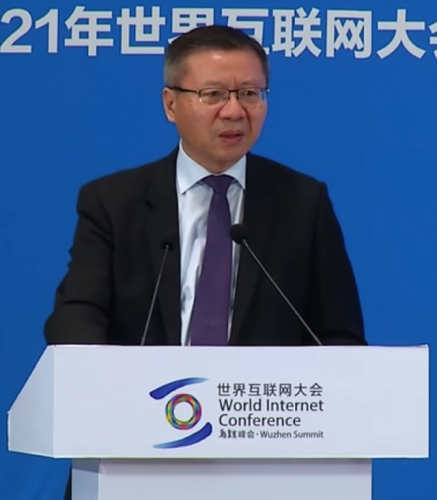
Zhang Weiwei.
Dans le contexte russe, une théorie similaire a été mise en avant par les Eurasistes, qui ont proposé le concept d'Etat de paix [2]. En fait, dans ce courant, la Russie était comprise comme une civilisation, et pas seulement comme un des pays, d'où le principal concept eurasien - Russie-Eurasie.
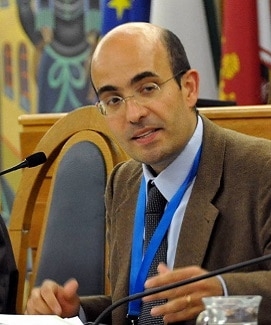
Fabio Petito.
En fait, Samuel Huntington avait déjà suggéré le passage à la civilisation comme nouveau thème des relations internationales dans son article perspicace, voire prémonitoire, intitulé "Le choc des civilisations" [3]. L'expert anglo-italien en relations internationales Fabio Petito [4] a souligné que les relations entre les civilisations n'engendrent pas nécessairement des conflits, tout comme dans la théorie réaliste des relations internationales, une guerre est toujours possible entre n'importe quel État-nation (cela découle de la définition de la souveraineté) mais est loin de toujours se produire dans la pratique. Ce qui importe, c'est le déplacement du thème de la souveraineté, de l'État-nation à la civilisation. C'est exactement ce qu'envisage Huntington.
La civilisation-état est définie par deux négations :
- Ce n'est pas la même chose que l'État-nation (dans la théorie réaliste des RI), et
- Ce n'est pas la même chose qu'un gouvernement mondial unissant l'humanité (dans la théorie des IR propre au libéralisme).
C'est un juste milieu : l'État-civilisation peut englober différents peuples (nations), confessions et même sous-États. Mais il ne prétend jamais à l'unicité et à la portée planétaire. Il est fondamentalement un ensemble de grande échelle et durable, quels que soient les changements d'idéologies, de façades, de cultures et de frontières formelles. L'État-civilisation peut exister sous la forme d'un empire centralisé, ou de ses échos, vestiges, fragments, capables dans certaines circonstances historiques de se réassembler en un tout unique.
L'État-nation est apparu en Europe à l'époque moderne. L'État civilisation existe depuis des temps immémoriaux. Huntington a constaté une nouvelle émergence de la civilisation dans une situation particulière. Dans la seconde moitié du 20ème siècle, les États-nations ont d'abord fusionné en deux blocs idéologiques, capitaliste et socialiste, puis, après l'effondrement de l'URSS, l'ordre libéral a prévalu dans le monde (La fin de l'histoire selon Fukuyama [5]). Huntington pensait que l'unipolarisme et la victoire mondiale de l'Occident libéral capitaliste étaient une illusion à court terme. La propagation mondiale du libéralisme peut achever la décadence des États-nations et abolir l'idéologie communiste, mais elle ne peut remplacer les identités civilisationnelles plus profondes qui ont apparemment disparu depuis longtemps. Progressivement, ce sont les civilisations qui ont prétendu être les principaux acteurs de la politique internationale - ses sujets, mais cela implique de leur conférer le statut de "politisation", d'où le concept d'État-civilisation.
Il existe des forces et des modèles à l'œuvre dans l'État-Civilisation que la science politique occidentale moderne ne parvient pas à saisir. Ils ne sont pas réductibles aux structures de l'État-nation et ne peuvent être compris par une analyse macro- et micro-économique. Les termes "dictature", "démocratie", "autoritarisme", "totalitarisme", "progrès social", "droits de l'homme", etc. n'ont aucune signification ici ou nécessitent une traduction fondamentale. L'identité civique, l'état et la signification sociale de la culture, le poids des valeurs traditionnelles : tous ces aspects sont délibérément écartés par la science politique moderne et ne se révèlent que dans l'étude des sociétés archaïques. Or, ces sociétés sont notoirement faibles politiquement et servent d'objets de recherche ou de modernisation. Les États de civilisation possèdent leur propre pouvoir souverain, leur propre potentiel intellectuel, leur propre forme de conscience de soi. Ils sont des sujets, et non des objets d'étude ou d'"aide au développement" (c'est-à-dire de colonialisme déguisé), ne font que rejeter l'Occident comme modèle universel, mais s'opposent sévèrement à l'influence du soft power occidental à l'intérieur de leurs propres frontières. Ils étendent leur influence au-delà des frontières nationales, non seulement en se défendant mais aussi en contre-attaquant, en proposant leurs propres théories d'intégration et leurs projets ambitieux. Comme l'IRB ou la Communauté économique eurasienne, l'OCS ou les BRICS.
Ce n'est pas pour rien que la Chine est prise comme exemple d'état-civilisation. Son identité et sa puissance sont les plus illustratives. La Russie contemporaine s'est rapprochée de ce statut, et l'opération militaire spéciale en Ukraine, accompagnée de son retrait des réseaux mondiaux, est la preuve de cette volonté profonde et puissante. Mais tandis que la Russie et, dans une large mesure, la Chine construisent avec succès leurs États de civilisation sur la base d'une confrontation directe avec l'Occident, l'Inde (notamment sous le gouvernement nationaliste de Modi) tente d'atteindre le même résultat en s'appuyant sur l'Occident, et de nombreux pays islamiques visant le même objectif (notamment l'Iran, la Turquie, le Pakistan, etc.) combinent les deux stratégies - confrontation (Iran) et alliance (Turquie). Mais partout, ils tendent vers une seule chose : l'établissement d'un État-civilisation.
Le deuxième monde comme nouveau paradigme universel des RI
Rassemblons maintenant ces concepts. Nous avons une série conceptuelle :
deuxième monde - semi-périphérie - état-civilisation
"Second Monde" est une définition qui souligne le caractère intermédiaire des pays qui optent aujourd'hui pour le multipolarisme et rejettent l'unipolarisme et le globalisme, c'est-à-dire l'hégémonie du "premier monde". En termes de niveau de développement économique et de degré de modernisation, le "deuxième monde" correspond à la semi-périphérie de la théorie du système mondial. Toutefois, contrairement à Wallerstein, cette semi-périphérie ne reconnaît pas l'inévitabilité de la scission en une élite intégrée au mondialisme et une masse sauvage et archaïque, mais affirme l'identité et l'unité de la société qui partage une même identité, en haut comme en bas.
- Les pôles du "second monde" (la semi-périphérie) sont les états-civilisation réels (Chine, Russie) ou potentiels (monde islamique, Amérique latine, Afrique).
Armés de cet appareil, nous pouvons maintenant mieux comprendre les BRICS. Jusqu'à présent, il s'agit d'une alliance plutôt conventionnelle, ou plutôt d'un club d'États-civilisation (explicite et implicite), représentant le "deuxième monde" et remplissant les critères de base de la semi-périphérie. Cependant, ce club se trouve dans une situation exceptionnelle dans le contexte actuel : le 20ème siècle a vu une érosion importante de la souveraineté des États-nations, qui ont perdu beaucoup de leur contenu en raison de la formalisation excessive de leur statut au sein des Nations unies et de leur division en camps idéologiques. Dans un système bipolaire, la souveraineté était presque considérée comme acquise en faveur des deux principaux centres de décision - Washington et Moscou. Ce sont ces pôles qui étaient absolument souverains, et tous les autres États-nations l'étaient seulement partiellement et relativement. La fin de l'URSS et la dissolution du Pacte de Varsovie n'ont pas conduit à une nouvelle consolidation des États-nations, mais ont temporairement cimenté le monde unipolaire, qui, dans le cadre de la mondialisation, a tenté d'insister sur le fait que seuls Washington et le système occidental libéral de valeurs et de règles disposaient désormais de la souveraineté à l'échelle universelle.
L'étape logique suivante aurait été la déclaration d'un gouvernement mondial, comme le réclament Fukuyama, Soros et Schwab, le fondateur du Forum de Davos. Mais ce processus a déraillé, à la fois en raison de contradictions internes et - surtout ! - de la rébellion directe de la Russie et de la Chine contre l'unipolarisme établi. C'est donc le "deuxième monde", la semi-périphérie et les États-civilisation qui ont défié le mondialisme et préparé son effondrement, et ce qui semblait être un phénomène temporaire et transitoire - la semi-périphérie, les BRICS - s'est avéré être quelque chose de beaucoup plus solide. Cela a ouvert la voie à un monde multipolaire dans lequel le "deuxième monde", la semi-périphérie et les États-civilisation sont devenus les principaux créateurs de tendances dans la politique mondiale, allant bien au-delà du statut que les théories occidentalo-centriques des relations internationales, y compris la version trotskiste du marxisme (Wallerstein), leur prescrivaient.
- La thèse de l'État-civilisation, si elle est soutenue par les membres du club multipolaire, c'est-à-dire le "deuxième monde" (principalement les pays BRICS), signifierait une restructuration complète de l'image mondiale.
L'Occident, le "premier monde", le noyau, sera transformé d'un centre mondial à un centre régional. Désormais, il ne sera plus la mesure des choses, mais l'un des États-Civilisation, voire deux : l'Amérique du Nord et l'Europe. Mais au-delà, il y aura des États-Civilisation équivalents - Chine, Russie, Inde, monde islamique, Amérique latine, Afrique, etc. - tout à fait compétitifs et de valeur égale dans tous les sens du terme. Rien en eux ne sera futur ou passé, mais tous deviendront des zones de présent et de libre choix.
C'est l'avenir, mais dès à présent, il est clair que si l'on additionne les potentiels des deux États-civilisation, leur potentiel combiné est capable d'équilibrer l'Occident sur les principaux paramètres, ce qui le relativise déjà et réduit ses prétentions mondiales à des frontières régionales assez définies. C'est la définition de ces nouvelles frontières de l'Occident, qui cesse d'être un phénomène mondial et se transforme en une puissance régionale (d'un gouvernement et d'un noyau mondial à un État-civilisation occidental), qui détermine l'opération militaire de la Russie en Ukraine et l'établissement probable d'un contrôle chinois direct sur Taïwan.
Le changement de l'ordre mondial passe souvent (mais pas toujours) par des guerres, y compris des guerres mondiales. La construction d'un monde multipolaire se fera, hélas, par des guerres. Si les guerres en tant que telles ne peuvent être évitées, il est possible de limiter délibérément leur portée, de déterminer leurs règles et d'établir leurs lois. Pour ce faire, il est toutefois nécessaire de reconnaître la logique sur laquelle repose le multipolarisme et, par conséquent, d'examiner les fondements conceptuels et théoriques d'un monde multipolaire.
Notes:
[1] Zhang Weiwei. The China Wave: Rise of a Civilizational State. Singapore: World Scientific Publishing, 2012.
[2] Основы евразийства. М.: Партия «Евразия», 2002.
[3] Huntington S. The Clash of Civilizations and the Remaking of World Order.
[4] Petito F., Michael M.S. (ed.), Civilizational Dialogue and World Order: The Other Politics of Cultures, Religions, and Civilizations in International Relations (Culture and Religion in International Relations). London: Palgrave Macmillan, 2009.
[5]Fukuyama F. The End of History and the Last Man. NY: Free Press, 1992.
13:37 Publié dans Actualité, Théorie politique | Lien permanent | Commentaires (0) | Tags : alexandre douguine, multipolarité, état-civilisation, théorie politique, politologie, sciences politiques, nouvelle droite russe, russie, chine, eurasisme |  |
|  del.icio.us |
del.icio.us |  |
|  Digg |
Digg | ![]() Facebook
Facebook
vendredi, 25 novembre 2022
Le deuxième monde, la semi-périphérie et l'État-civilisation dans la théorie du monde multipolaire
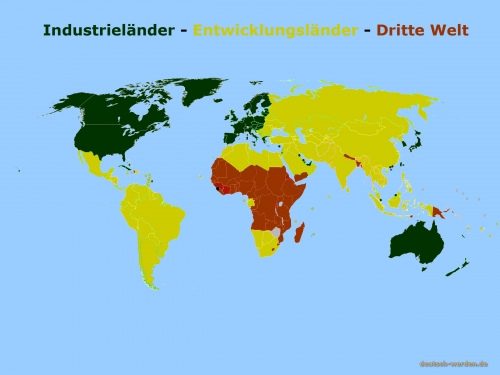
Le deuxième monde, la semi-périphérie et l'État-civilisation dans la théorie du monde multipolaire
Première partie
Alexander Douguine
Source: https://www.geopolitika.ru/article/vtoroy-mir-poluperiferiya-i-gosudarstvo-civilizaciya-v-teorii-mnogopolyarnogo-mira-pervaya
Le présent article examine trois concepts : "second monde", semi-périphérie et État-civilisation comme concepts de base de la théorie du monde multipolaire. La publication de cet essai comportera trois parties.
La transition de la phase de l'unipolarité à la phase de la multipolarité et les trois concepts
Pour comprendre la transformation fondamentale de l'ordre mondial qui se déroule sous nos yeux, et surtout le passage d'un modèle unipolaire (mondialiste) à un modèle multipolaire, différentes unités conceptuelles et méthodes peuvent être utilisées. Ils devraient progressivement se développer en une théorie plus ou moins cohérente d'un monde multipolaire. J'ai proposé la première version de cette théorie dans mes livres "Multi-polar World Theory" [1] et "Multi-polar World Geopolitics" [2]. Mais ce ne sont que les premières approches d'un sujet très sérieux.
Dans cet article, j'ai voulu attirer l'attention sur trois concepts qui aideront le mieux à comprendre le contenu fondamental de la transition globale qui se déroule dans le système des relations internationales. C'est ce qui explique les grandes tendances, les conflits et les problèmes de notre époque - du conflit en Ukraine au problème de Taïwan et bien d'autres plus locaux. Si nous comprenons la structure de la transition par phase, nous comprendrons la signification des événements actuels. Mais cette transition elle-même nécessite également une description conceptuelle. C'est à cela que servent les trois concepts abordés dans cet article.
Le premier, le deuxième et le troisième monde
Tout d'abord, nous devons prêter attention à la théorie quelque peu oubliée aujourd'hui des "trois mondes", populaire à l'époque de la "guerre froide". C'est la base de la notion de "tiers monde" qui est devenue un concept populaire et persistant dans les théories des relations internationales et, plus largement, dans le langage politique [3]. Toutefois, l'expression "premier monde" n'a pas fait l'objet d'une élaboration similaire, tandis que le concept de "deuxième monde" n'a pratiquement jamais été utilisé. Toutefois, c'est le concept de "deuxième monde" et ses principales caractéristiques qui correspondent le mieux à l'ordre multipolaire et décrivent le mieux les principaux acteurs de la multipolarité.
La théorie des "trois mondes" - premier, deuxième et troisième - repose sur une évaluation du niveau de progrès technologique, de l'efficacité économique et des taux de croissance, de l'industrialisation et de la post-industrialisation, ainsi que de la place d'un pays dans la répartition mondiale de la main-d'œuvre.
"Le "premier monde" était considéré, à l'époque de la guerre froide, comme l'Occident, les États-Unis et leurs principaux alliés, y compris le Japon. L'"Occident" était considéré ici non pas géographiquement, mais civilisationnellement. La catégorie du "premier monde" comprenait les pays dotés d'une économie capitaliste développée, de régimes libéraux-démocratiques, d'une forte prévalence de centres urbains et industriels (haut niveau d'urbanisation), mais surtout de taux élevés de croissance économique, de potentiel scientifique et technique, de leadership financier, de possession des dernières formes d'armement, de domination dans la sphère stratégique, de médecine avancée, etc. qui dépassaient les autres "mondes". "Le Premier Monde était considéré comme le modèle ultime de la société humaine, l'avant-garde du progrès et l'expression visible de la destinée de toute l'humanité. Les deux autres mondes étaient considérés comme destinés à rattraper le "premier monde", en s'en rapprochant de plus en plus.
Puisque c'est le "premier monde" qui a été pris comme modèle universel, les "deux autres mondes" ont été décrits par comparaison avec lui.
Le "tiers monde" était l'exact opposé du "premier monde". Il s'agissait d'une zone très en retard par rapport à l'Occident, avec une économie stagnante et à faible développement (ou pas de développement du tout), avec un développement scientifique et technologique minimal, avec une monnaie instable, avec un stade initial de démocratie combiné à des institutions politiques archaïques, avec une armée faible et incapable, une faible industrialisation, avec une corruption omniprésente, une médecine peu développée, un analphabétisme généralisé et une population majoritairement rurale [4]. Le "tiers monde" était totalement dépendant du "premier monde" et parfois du "deuxième monde", et la souveraineté des pays appartenant au "tiers monde" était une simple convention sans contenu réel [5]. Le "premier monde" a estimé qu'il était de son devoir de prendre en charge le "tiers monde", d'où la théorie du "développement dépendant" [6], les gigantesques prêts non remboursables, l'instauration d'une curatelle directe sur les élites politiques, économiques et intellectuelles de ces pays, en partie intégrée dans les systèmes éducatifs du "premier monde".
Mais le "deuxième monde" à l'époque de la guerre froide était doté de certaines caractéristiques particulières. Il faisait référence aux régimes socialistes qui, bien que rejetant l'économie politique du capitalisme, c'est-à-dire en opposition idéologique directe avec le "premier monde", ont néanmoins atteint un niveau de développement comparable à celui des pays du "premier monde". Cependant, en termes d'indicateurs agrégés (dont les critères ont été formulés par le Premier Monde, ce qui permet un certain parti pris et une motivation idéologique), le Second Monde était toujours inférieur au Premier Monde. Toutefois, le décalage n'était pas aussi important que dans le cas du "tiers monde".
Le "deuxième monde" était compris comme désignant principalement l'URSS, mais aussi les pays du bloc de l'Est (surtout en Europe de l'Est).
Le concept de "deuxième monde" était important en tant que précédent pour que le "premier monde" reconnaisse que, même en suivant un scénario de développement alternatif au capitalisme libéral, il était possible d'obtenir des résultats cumulativement comparables à ceux de l'Occident. C'est ce qui distingue le "deuxième monde" du "troisième monde". Le "deuxième monde" avait le potentiel de s'opposer efficacement au premier et de contester l'universalité de son modèle. Et cette efficacité s'est traduite très concrètement en termes de taux de croissance économique, de nombre d'armes nucléaires, de niveau de potentiel scientifique, d'éducation, de protection sociale, d'urbanisation, d'industrialisation, etc.
Le "premier monde" correspondait au camp capitaliste occidental, le "second monde" au bloc de l'Est et aux pays socialistes.
Les deux mondes étaient en équilibre instable. Elle était instable parce que le "Premier Monde" insistait sur sa suprématie et que le "Second Monde" n'avait qu'à s'y opposer, en adoptant partiellement du "Premier Monde" certains éléments en matière d'économie, de technologie, etc.
"Le Premier Monde et le Second Monde ont projeté leur influence sur le Tiers Monde, qui était la principale zone de leur affrontement.
Tous les pays du tiers-monde étaient divisés en pays capitalistes et socialistes, bien qu'il existait également un "Mouvement des non-alignés" dont les membres tentaient de justifier leur propre stratégie de développement - sans capitalisme et socialisme dogmatiques. Mais celle-ci ne s'est pas constituée en une théorie indépendante et est devenue un système de compromis et de combinaisons en fonction de la situation spécifique. Les critères du "premier monde" (capitalisme) ou leur réinterprétation doctrinale dans l'idéologie du "second monde" (socialisme) ont tout de même servi de modèle.
L'axe principal de la politique internationale de l'époque de la guerre froide était donc la confrontation entre le "premier monde" et le "second monde". Cela s'est traduit par le modèle bipolaire.
Il est important de noter, comme le fait John Hobbson [7], que ce zonage des types de sociétés correspond à la triade classique de l'anthropologie raciste du 19ème siècle (Morgan [8], Tylor [9], etc.), qui distinguait la "civilisation", la "barbarie" et la "sauvagerie". Dans le même temps, le "blanc" correspondait à la "civilisation", le jaune à la "barbarie" et le noir à la "sauvagerie". Ce modèle n'a été définitivement abandonné dans l'anthropologie occidentale qu'après la Seconde Guerre mondiale, mais il a été conservé dans le but d'évaluer le développement politique et économique des pays et des sociétés.
Ainsi, le "premier monde" en est venu à être identifié aux "civilisations" (auparavant, à "l'homme blanc" et son "fardeau" chez Kipling) ; le "deuxième monde" à la "barbarie" (d'où le proverbe raciste "grattez un Russe et vous trouverez un Tatar") ; le "troisième monde" à la "sauvagerie" - aux "peuples d'Afrique et d'Océanie" (généralement aux "Noirs").
Le deuxième monde : une définition élargie
Une chose à noter ici est qu'à l'époque de la guerre froide, les choses étaient généralement ignorées. L'Empire russe du XVIIIe siècle et du début du XXe siècle était également un tel "deuxième monde" par rapport à l'Occident. Alors que l'industrialisation bat son plein en Europe occidentale, l'Empire russe est encore un pays essentiellement agraire. Le capitalisme et la démocratie bourgeoise sont établis en Europe occidentale, tandis que l'Empire russe maintient la monarchie. Des centres scientifiques autonomes fonctionnaient en Europe occidentale, tandis que l'Empire russe copiait assidûment la science et l'éducation européennes. Mais néanmoins, l'Empire russe était tout à fait capable de tenir tête à l'Occident, de défendre sa souveraineté et son mode de vie, et de gagner des guerres.
Cette observation modifie considérablement le contenu du concept de "deuxième monde". S'il est applicable à la fois à l'URSS et aux pays sous son influence et à l'Empire russe, qui occupaient approximativement le même territoire, il doit être compris comme quelque chose de plus généralisé que l'URSS.
"Le Second Monde", au sens large, est un modèle politico-économique et idéologique alternatif au capitalisme mondial qui conteste la domination et l'hégémonie de l'Occident (le Premier Monde).
En ce sens, la chute de l'URSS, bien qu'elle ait été une catastrophe pour le "deuxième monde" (comme la chute de l'Empire russe avant elle), n'a pas été sa fin. Déjà après 1991, de nouveaux contours du "deuxième monde" ont commencé à se dessiner. Un certain nombre de pays qui avaient été considérés comme le "tiers monde" pendant la guerre froide - la Chine, l'Inde, le Brésil, l'Afrique du Sud - ont fait une percée fulgurante et ont atteint un niveau de développement comparable à celui du "premier monde" en trois décennies. Bien sûr, ils ont surtout utilisé la boîte à outils du capitalisme mondial pour y parvenir, mais ils ont su adapter cette boîte à outils de manière à préserver leur souveraineté et à faire bon usage du capitalisme (plutôt que l'inverse - comme avec les réformes libérales en Europe de l'Est et en Russie dans les années 1990).
Depuis le début des années 2000, avec l'accession au pouvoir de Vladimir Poutine en Russie, la Russie, héritière du "deuxième monde" de l'étape précédente, a progressivement commencé à restaurer sa souveraineté géopolitique. Mais cette fois, un modèle multipolaire plutôt que bipolaire a commencé à prendre forme. Ici, le "premier monde" n'était pas opposé à une seule puissance, mais à plusieurs. Et l'idéologie de cette confrontation (qui s'est réalisée dans chaque centre du "deuxième monde" avec des degrés variables de radicalité et de clarté idéologique) n'était pas le socialisme (à l'exception de la Chine), mais un antimondialisme indéfini et un rejet purement réaliste de l'hégémonie occidentale (principalement nord-américaine).
Les pays du "second monde" ne formaient pas un bloc idéologique. Ils sont devenus une ceinture objective de puissances, revendiquant leur propre voie, qualitativement différente du mondialisme du "premier monde".
Les politologues et les économistes ont constaté ce phénomène comme un fait accompli, réunissant les pays du "deuxième monde" de l'ère post-bipolaire dans la construction conventionnelle du BRIC (Brésil, Russie, Inde, Chine), puis après l'inclusion de l'Afrique du Sud, du BRICS (Brésil, Russie, Inde, Chine, Afrique du Sud).
À un certain moment, les gouvernements des BRICS ont compris le raisonnement objectif derrière ce zonage de la civilisation et ont commencé à développer leurs relations dans le cadre de ce paradigme. Ainsi a commencé la formation prudente et progressive d'un nouveau modèle de "deuxième monde". Cette fois-ci multipolaire, car chaque membre des BRICS est un phénomène souverain, indépendant des autres membres du club.
Dans le système des BRICS, la Russie est le leader militaire incontesté et en partie le leader en matière de ressources.
La Chine est le leader économique incontesté.
L'Inde est le troisième pôle le plus important, avec une infrastructure économique et industrielle solide, une démographie impressionnante et une société hautement consolidée sur le plan politique.
Le Brésil représente symboliquement l'ensemble de l'Amérique latine et son énorme potentiel (pas encore totalement révélé), ainsi qu'une puissance forte à forte composante militaire, commerciale et scientifique.
L'Afrique du Sud, étant l'un des pays les plus développés du continent africain, représente aussi symboliquement la nouvelle Afrique post-coloniale - avec son énorme potentiel.
A suivre
Notes:
[1] Dugin A. The Theory of a Multipolar World. Budapest: Arktos Media Ltd, 2021.
[2] Dugin A. Geopolítica del mundo multipolar Santiago de Chile: . Ignacio Carrera Pinto Ediciones, 2022.
[3] Aijaz Ch. K. The political economy of development and underdevelopment. New York: Random House, 1973.
[4] Rangel C. Third World Ideology and Western Reality. New Brunswick: Transaction Books, 1986.
[5] Krasner S.D. Sovereignty: Organized Hypocrisy. Princeton: Princeton University Press, 1999.
[6] Cardoso F., Falleto E. Dependency and Development in Latin America. Berkeley: University of California Press. 1979; Ghosh, B.N. Dependency Theory Revisited. Farnham, UK: Ashgate Press. 2001.
[7] Hobson J. The Eurocentric Conception of World Politics: Western International Theory,
1760–2010. Cambridge: Cambridge University Press, 2012.
[8] Morgan Lewis Henry. Ancient Society. Tucson: The University of. Arizona Press, 1995.
[9] Tylor Edward Burnett. Researches into the Early History of Mankind and the Development of Civilization. London J. Murray, 1865.
20:05 Publié dans Actualité | Lien permanent | Commentaires (0) | Tags : premier monde, deuxième monde, tiers-monde, alexandre douguine |  |
|  del.icio.us |
del.icio.us |  |
|  Digg |
Digg | ![]() Facebook
Facebook
jeudi, 03 novembre 2022
La grande guerre sainte du sujet radical

La grande guerre sainte du sujet radical
par Rene Henri Manusardi
Source: https://www.ideeazione.com/la-grande-guerra-santa-del-soggetto-radicale/
"Le sujet radical donne à l'homme postmoderne un sentiment de mort, mais aussi de vie - sauf que c'est une vie si frénétique qu'elle est plus terrible que la mort elle-même, une vie qui se déchire. Ce n'est pas la vie normale, qui dans la Tradition rassemble ce qui est épars et dans la modernité traîne l'inertie, mais une vie particulière qui exacerbe la rupture. Mieux vaut ne pas s'en approcher : c'est terrible. Son nom est cette force qui lie tout ensemble, symbolisée par le Fascio Littorio, dont les tiges indiquent les douze signes du zodiaque...".
(Aleksandr Douguine, Le soleil de minuit, l'aube du sujet radical, pp.27-28, AGA Editrice, 2019)
Incipit
Les réflexions contenues dans ce texte et dans d'autres de nos écrits publiés précédemment sur le thème du Sujet radical n'ont pas une priorité didactique d'approfondissement intellectuel, ni une fonction strictement éducative, qui, bien que présentes, ne sont pas le but des écrits eux-mêmes. C'est pour cette raison que nous ne nous attardons délibérément pas sur l'origine historique ou l'étymologie de certains concepts qui sont considérés comme acquis ou qui nécessitent une étude plus approfondie de la part du lecteur, comme celui de guerre sainte ou celui d'ascétisme.
Il est également clair que le canon de rédaction de ces réflexions est principalement anthropologique ainsi que phénoménologique en ce qui concerne l'évidence subjective de l'expérience humaine vécue par le sujet radical. Un canon lié à la globalité de l'Anthropologie en tant que science humaniste qui s'exprime dans ses différentes formes intellectuellement consolidées : ethno-raciales, philosophiques, théologiques, culturelles, mystiques, phénoménologiques et qui, par rapport à d'autres disciplines humanistes, est restée plus à l'abri de la perversion idéologique darwinienne, marxienne et freudienne.
C'est précisément en raison de ces caractéristiques que l'Anthropologie, dans la multiplicité de ses branches, se révèle être un terrain neutre de compréhension et une base objective sûre de connaissance de la Vérité de l'être humain situé dans le cosmos, dans le temps et dans l'espace. Un terrain neutre sur lequel peut converger toute vision philosophique, spirituelle, religieuse ou confessionnelle appartenant à la spécificité de chaque sujet radical individuel, sans considérer cette Weltanschauung comme des superstructures hégéliennes de connaissance naturelle d'ordre anthropologique, mais plutôt comme une intégration et un achèvement métaphysique et spirituel dans l'ordre de l'Être et du Divin.
Les présentes réflexions, en revanche, sont réalisées avant tout comme des articles écrits "pour le bien de la Cause", comme des idées méta-réflexives avec un double objectif évocateur et exhortatif. Evoquer les archétypes symboliques de la Tradition qui sont toujours présents même dans notre ADN postmoderne, les vivre dans une expérience vivante de Dasein, de l'être-là-dans-le-monde ; exhorter et aiguillonner avec une véhémence métapolitique la lutte pour le Grand Réveil, pour la construction d'un nouvel ordre mondial basé sur la civilisation multipolaire.

En parlant d'idées méta-réflexives issues de la contemplation intuitive des symboles de la Tradition, on parle donc d'idées androgynes "au-delà du bien et du mal", c'est-à-dire au-dessus d'une perception purement éthique, ainsi que d'idées apophatiques, échappant ainsi parfois au principe de non-contradiction sur lequel elles reposent pourtant inductivement, puisqu'elles ne sont pas des idées irrationnelles mais supra-rationnelles. C'est pourquoi il sera inutile pour d'éventuels censeurs de chercher des apories ou des antinomies dans ces idées méta-réflexives qui sont certainement présentes, car le mysterium dépasse verticalement l'extension logique horizontale de la pensée, comme le disait aussi saint Thomas d'Aquin à son secrétaire Reginald, qui l'exhortait à écrire à nouveau après avoir eu une vision de Dieu qui a bouleversé sa vie et l'a conduit à la décision irrévocable de poser plume et encrier pour toujours: "Reginaldo je ne peux pas, parce que tout ce que j'ai écrit est comme de la paille pour moi [...] c'est comme de la paille par rapport à ce qui m'a été révélé". (Guillaume de Tocco, Histoire de Saint Thomas, 47)
La grande guerre sainte
"J'affirme donc que le Chevalier du Christ donne avec certitude la mort, mais avec une certitude encore plus grande, il tombe. En mourant, il gagne pour lui-même, en donnant la mort, il gagne pour le Christ. Car ce n'est pas sans raison qu'il porte l'épée : il est le ministre de Dieu pour le châtiment des méchants et la louange des justes (Rom, 13:4 ; I Pet, 2:14). Lorsqu'il tue un malfaiteur, il n'est pas considéré à juste titre comme un meurtrier, mais, si j'ose dire, comme un "malfaiteur" et un vengeur de la part du Christ contre ceux qui font le mal, défenseur du peuple chrétien Et lorsqu'il est tué, on sait qu'il ne périt pas mais qu'il accomplit son dessein (Saint Bernard de Clairvaux, De Laude Novae Militiae, III Dei Cavalieri di Cristo)
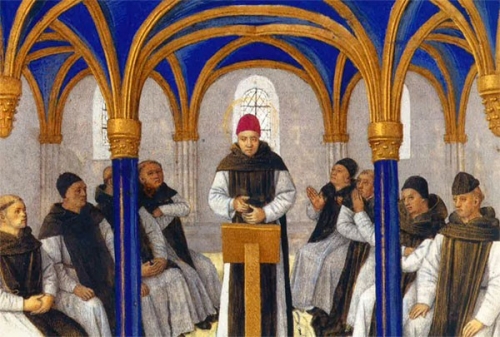
Saint Bernard de Clairvaux, écrit ainsi aux Chevaliers du Temple sur l'esprit qui doit animer leur Croisade, la Petite Guerre Sainte et, de cette manière, il énonce un principe de vérité universelle qui, au-delà de sa forme purement confessionnelle, représente la manière dont l'Homme de la Tradition doit affronter sa lutte contre le mal extérieur et qui peut être pris comme modèle par tout Sujet radical, indépendamment de sa Weltanschauung spécifique.
Si telle est la façon correcte de comprendre la Petite Guerre Sainte, alors la Grande Guerre Sainte, dans sa substance la plus profonde, n'est rien d'autre que l'application pratique du concept bernardien de "malicide" à son intériorité, nécessaire pour tuer son ego et donner naissance au Soi ; c'est la condition incontestable pour tuer son égoïsme et être transféré dans l'altérité du Divin.
Parmi les innombrables formes d'ascèse propres à la spiritualité universelle, la forme propre de l'ascèse guerrière est précisément représentée par la Voie de l'épée qui, dans le Sujet radical, revêt le drame d'un nihilisme intérieur aux accents apocalyptiques et d'un nihilisme extérieur vers la phase finale du Kali Yuga post-moderne, capable de dépasser la définition même du guerrier en celle d'ange destructeur, meurtrier terrifiant et froid, du moins dans la détermination de son mode d'action :
" L'hypostase de l'assassin qui redonne à l'homme le goût de la vie est une fonction fondamentale du Sujet radical. Il n'est pas un guerrier - un concept, à ses yeux, trop plébéien - mais un assassin sans but, froid, dépersonnalisé, à la solde de personne. Il est un ange destructeur, un ange terrifiant". (Aleksandr Douguine, Ibid. p. 27)
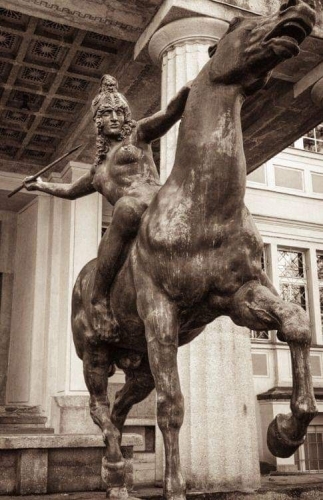
La Voie de l'Épée naît du silence et devient la Parole de vérité et d'accusation contre l'Anti-Tradition présente dans le monde et en nous-mêmes : "Alors qu'un profond silence enveloppait toutes choses, et que la nuit était au milieu de son cours rapide, ta parole toute-puissante venue du ciel, de ton trône royal, guerrier implacable, s'est élancée au milieu de cette terre d'extermination, portant, comme une épée tranchante, ton décret irrévocable, et, s'arrêtant, a tout rempli de mort ; elle a touché le ciel et a eu les pieds sur la terre (Wis. 18:14-16).
Cette même épée de la Parole de vérité entre ensuite en nous-mêmes pour réaliser l'opus magnum de la déification du Sujet radical. Accomplissant par l'alternance de la souffrance et du bouleversement cosmique intérieur total à un silence mystique régénérant et absolu, la destruction progressive de l'égoïsme personnel cristallisé dans les sept vices capitaux : "Car la parole de Dieu est vivante, efficace et plus tranchante qu'aucune épée à deux tranchants ; elle pénètre jusqu'à la limite de l'âme et de l'esprit, jusqu'aux articulations et aux moelles, et elle discerne les sentiments et les pensées du cœur. Il n'y a aucune créature qui puisse se cacher devant Dieu, mais tout est nu et découvert devant celui à qui nous devons rendre des comptes" (Héb. 4:12-13).
La destruction de l'ego, la lutte contre les vices mortels sont équivalents à la mort de l'âme en attendant l'éveil, sa résurrection, la pleine manifestation du Soi, ainsi que du Divin dans son "Soi radical", terme avec lequel Alexandre Douguine préfère définir correctement le Sujet radical dans un sens métaphysique. Dans le HAGAKURE, le livre secret des anciens Samouraïs, les chevaliers du Soleil Levant, il est indiqué :
"J'ai découvert que la Voie du Samouraï est la mort... L'essence du Bushido est de se préparer à la mort, matin et soir, à chaque instant de la journée. Lorsqu'un samouraï est toujours prêt à mourir, il maîtrise la "Voie". (Yamamoto Tsunetomo, HAGAKURE, Mondadori 2001, p. 24)
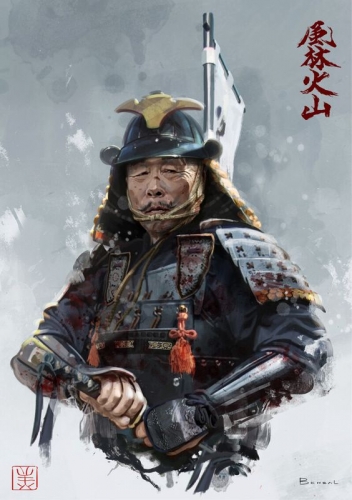
Phénoménologie des qualités d'ultra-guerrier dans la Grande Guerre Sainte
La déclaration métaphorique ultra guerrière de Douguine, concernant l'identité phénoménologique du Sujet radical en tant qu'ange destructeur, meurtrier terrifiant et froid, rappelle à l'écrivain le rude enseignement qui lui a été transmis en 1985 par le défunt maître zen, le père Johannes Baptista Ishii, prêtre catholique et ermite camaldule japonais, né à Tokyo, qui, pour lui faire comprendre la réalité de la propre neutralité technique du zen, a dit d'une manière très déterminée une vérité crue qui, à l'époque, l'a laissé stupéfait pendant de nombreux jours :
"Considéré d'un point de vue purement technique, le Zen est une technique neutre en soi, neutre, sans accroche morale ou religieuse d'aucune sorte. Ne soyez pas effrayé si je vous dis qu'au Japon, la méditation zen est utilisée par les membres des Yakuzas, la mafia japonaise, entre autres, pour être impassibles, froids et déterminés lorsqu'ils tuent leurs ennemis ou leurs victimes". (René Manusardi, Visiologie. Une contribution socioclinique aux neurosciences de la méditation, p. 125, Primiceri Editore, 2018).
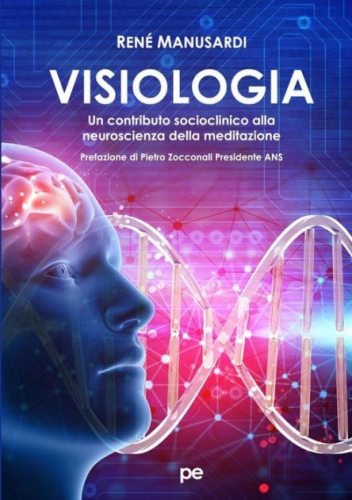
D'autre part, nous sommes conscients que l'alternance entre le bouleversement cosmique intérieur total et le silence mystique régénérateur et absolu, provoqué par le nihilisme intérieur auquel est soumis le Sujet radical dans la Grande Guerre Sainte provoquée avant tout par l'appel du Divin en conjonction avec l'ascèse contre les vices mortels et la pratique de la prière profonde ou des pratiques méditatives apophatiques, c'est-à-dire basées sur le silence intérieur et le vide mental, peut engendrer une série de qualités et d'actions intérieures capables de justifier la vision ultra-guerrière douguinienne.
Avec la pratique constante de l'ascèse, de la prière profonde et/ou des pratiques méditatives apophatiques, des qualités et des actions intérieures singulières sont développées chez le sujet radical, qui par des moyens ordinaires ne pourraient être atteintes qu'après des décennies de maturation personnelle. Ces qualités clés (également appelées effets phénoménologiques primaires) peuvent être encapsulées dans deux macro-zones ou quadrants : le quadrant "existentiel" et le quadrant "action".
Dans le quadrant existentiel, sont développés au maximum : le calme intérieur, le courage, la détermination, l'imperturbabilité, qualités nécessaires à l'acquisition du bien-être intérieur, de la maîtrise de soi et d'une base psychophysique solide ainsi que des relations sociales. Dans le quadrant de l'action, les effets primaires sont l'enracinement d'une nouvelle personnalité dotée d'une intuition profonde, d'une empathie intense, d'une pénétration aiguë, d'une conscience aiguë, qualités intrinsèques nécessaires aux besoins infinis de la guerre totale.
Les deux quadrants ne sont nullement séparés et développent des qualités intérieures et des qualités d'action de manière réticulaire et interdépendante. Ainsi, la croissance d'une qualité spécifique favorise également le développement des autres, de manière progressive et presque simultanée, à mesure que l'engagement envers l'ascèse et les techniques méditatives devient habituel et quotidien. Examinons maintenant brièvement les qualités qui se développent d'abord dans le quadrant existentiel, puis dans le quadrant de l'action.
Qualités pour le bien-être psychophysique et la maîtrise de soi :
Calme intérieur
Aspects anthropologiques et phénoménologiques : le calme ou l'immobilité intérieure est le premier effet palpable de la pratique ascétique et méditative, qui s'obtient par un rééquilibrage énergétique et une domination sereine progressive de l'âme/conscience sur l'esprit et le corps. L'être humain redécouvre son centre de gravité anthropologique et s'ouvre progressivement aux relations interpersonnelles et sociales, amplifiant sa capacité de médiation et tissant des liens de collaboration et de dialogue. Effet neurophysiologique primaire : décharge d'endorphine et de sérotonine.
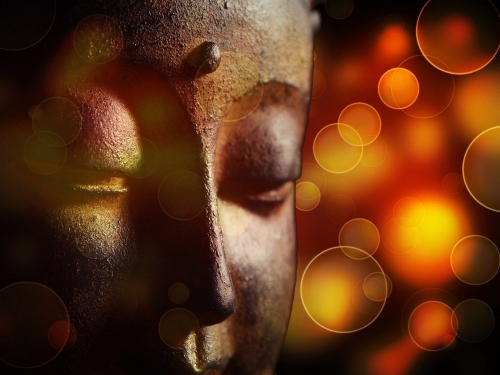
Courage
Aspects anthropologiques et phénoménologiques : la pratique de l'ascèse et de la méditation génère du courage. Observer son chaos mental de manière détachée conduit progressivement à une connaissance profonde de soi et des mécanismes du gouvernement psychophysique. L'émotivité s'apaise, les fantômes de l'esprit sont localisés puis progressivement expulsés. De ce travail intérieur constant émerge le courage de lutter contre ses propres tendances indisciplinées, courage qui émane ensuite de l'extérieur de la personne et implique ses relations sociales et interpersonnelles. Le sentiment de peur envers les autres et les incertitudes de la vie s'estompe de plus en plus. Un contenu de relations sociales basé sur la sincérité, la fierté humble, le sens de la dignité personnelle, le respect des autres et de leurs droits est affirmé. Effet neurophysiologique primaire : montée d'adrénaline avec réponse positive au stimulus primaire de combat/voltige.
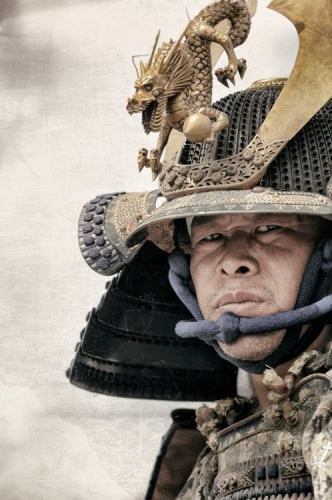
Détermination
Aspects anthropologiques et phénoménologiques : l'ascétisme et les techniques méditatives développent la qualité d'une forte détermination. Le travail intérieur sur soi et le désir de s'améliorer en sortant de ses propres traumatismes et déficits, déclenchent de manière élevée la volonté, la constance, la ténacité, l'entêtement, qui forment le contenu anthropologique et phénoménologique de la détermination comprise comme résilience et capacité de renouvellement personnel, communautaire et social. Effet neurophysiologique primaire : équilibre parfait des sous-systèmes sympathique et parasympathique du système nerveux autonome.
Imperturbabilité
Aspects anthropologiques et phénoménologiques : une approche ascétique-méditative intéressante à bien des égards - du stoïcisme gréco-classique à la littérature orientale la plus récente sur les samouraïs - est l'acquisition de l'imperturbabilité également appelée impassibilité. La pratique de la méditation, qui d'un point de vue phénoménologique crée des personnes qui recherchent la paix, se consacrent à la paix et la construisent, ne peut être dissociée de l'audace poussée au-delà de toutes les limites, qui est nécessaire, comme par exemple dans le cas de Gandhi, pour mener une lutte non violente et efficace. En effet, d'un point de vue anthropologique, l'acquisition de l'imperturbabilité génère une endurance surhumaine à la douleur, une indifférence à son sort, un détachement total de son ego, une apathie ou une froideur à l'égard de la composante sensorielle, émotionnelle et sentimentale qui est réduite par ses excès perceptifs et passionnels. Effet neurophysiologique primaire : anesthésie neuromusculaire provoquée par l'élévation du seuil de résistance à la douleur et diminution contrôlée de l'état d'éveil psychomoteur.
Les qualités pour réussir dans l'action :
Intuition
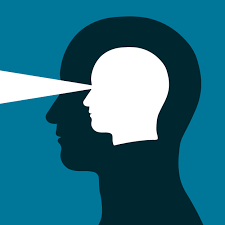 Aspects anthropologiques et phénoménologiques: l'intuition est la qualité première par laquelle la conscience se manifeste par la perception instantanée de réalités non encore manifestées, au moyen de l'illumination et de la vision intérieure, et ce processus est renforcé par la pratique méditative. Le relief phénoménologique le plus perceptible de l'intuition est la capacité de compréhension sans jugement de tout ce qui est ad extra et l'appréciation, le respect et l'intégration de la diversité sociale dans la vision épistémologique d'un corps social articulé. Effet neurosocial primaire: perception aiguë de vérités, d'événements et de faits non encore manifestés.
Aspects anthropologiques et phénoménologiques: l'intuition est la qualité première par laquelle la conscience se manifeste par la perception instantanée de réalités non encore manifestées, au moyen de l'illumination et de la vision intérieure, et ce processus est renforcé par la pratique méditative. Le relief phénoménologique le plus perceptible de l'intuition est la capacité de compréhension sans jugement de tout ce qui est ad extra et l'appréciation, le respect et l'intégration de la diversité sociale dans la vision épistémologique d'un corps social articulé. Effet neurosocial primaire: perception aiguë de vérités, d'événements et de faits non encore manifestés.
Empathie
Aspects anthropologiques et phénoménologiques : fortement intensifiée par la pratique méditative, l'empathie est anthropologiquement la connaissance des autres comme conséquence de la connaissance de soi et donc chargée de compréhension, de tolérance, de générosité, d'amour libre, de compassion. D'un point de vue phénoménologique, la plus grande instance de l'empathie est celle d'être considérée comme une vertu sociale, capable de créer des liens profonds et durables dans la société, dans les corps intermédiaires et dans les relations familiales et interpersonnelles. Effet neurosocial primaire : connaissance progressivement intégrale de la personnalité d'autrui.
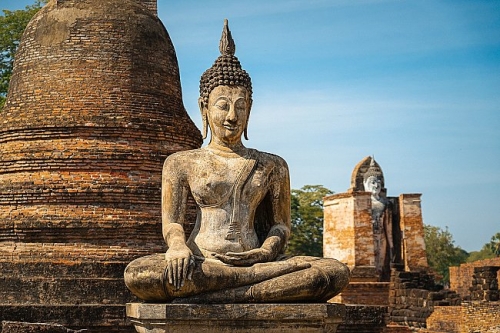
Pénétration
Aspects anthropologiques et phénoménologiques : la qualité de pénétration (paññã/prajna dans le dictionnaire bouddhiste Theravada de la langue Pali), développée avec les techniques méditatives, d'un point de vue anthropologique peut être définie comme l'unification complète de l'intuition et de l'empathie projetées vers l'analyse ad extra. D'un point de vue phénoménologique, elle représente une qualité capable de générer des actes d'observation substantiels, qui nous permettent de saisir des situations et des réalités personnelles, environnementales et sociales par un examen approfondi. Effet neurosocial primaire : vision profonde et globale des choses.
Sensibilisation
Aspects anthropologiques et phénoménologiques: la qualité de la conscience méditative n'est rien d'autre que la pratique anthropologique du hic et nunc, de l'ici et maintenant, capable de relier par un fil d'or la culture philosophique expérimentale et méta-historique commune, qui partant de la métaphysique grecque classique arrive dans la tradition Arya hindoue et bouddhiste des origines. Les implications phénoménologiques de la pleine conscience sont liées au fait que le détachement habituel de soi et l'immersion totale dans la réalité présente font que les personnes se projettent hors de l'axe de leur "moi" afin d'expérimenter pleinement la nouvelle dimension du "nous", de "l'autre", de la "communauté", en perfectionnant pleinement cette "compassion", ce choix d'altruisme déjà construit par la qualité de l'empathie. Effet neurosocial primaire : état de vide, c'est-à-dire état de vacuité mentale.
Concluons ces réflexions en gardant à l'esprit que les qualités d'ultra-guerrier que le Sujet radical acquiert pendant la purification de la Grande Guerre Sainte ne représentent pas la naissance de l'Homme Nouveau, tel que conçu par les trois théories politiques du 20ème siècle, à savoir le libéralisme, le communisme et le fascisme. Mais, comme nous l'enseigne la quatrième théorie politique du multipolarisme, ils nous parlent de l'éternel retour de l'Homme ancestral, l'image du Divin, l'Homme de la Tradition, le Gardien de l'Ordre Divin et du feu sacré de la Tradition, l'Homme qui ne change jamais, qui en tant que Sujet radical sait se repositionner pour surmonter indemne les époques historiques, se réfugiant dans les profondeurs du Chaos primordial pour finalement atteindre les hauteurs du Kosmos, comme nous l'enseigne notre Alexandre Douguine avec cette merveilleuse réflexion :
"Les choses changent, tout change, mais pas le Sujet radical, qui reste le même, traversant les trois paradigmes (Tradition, modernité et postmodernité) comme une ombre. Il ne se perd pas dans ces espaces et ne change pas de nature. Il reste à tous égards toujours lui-même, en passant par les trois phases. Il change de position, passant du centre à la périphérie, mais reste exactement le même, se comportant toujours comme s'il était dans l'espace de la Tradition. C'est un roi mendiant, qui cache son origine royale sous les misérables haillons d'un serviteur". (Aleksandr Douguine, Ibid. p. 26)
14:44 Publié dans Traditions | Lien permanent | Commentaires (1) | Tags : alexandre douguine, tradition, traditionalisme |  |
|  del.icio.us |
del.icio.us |  |
|  Digg |
Digg | ![]() Facebook
Facebook
mardi, 01 novembre 2022
Wang Wen en dialogue avec Douguine: Si la Russie cherche à résoudre des problèmes, elle devrait prendre la Chine comme exemple à étudier
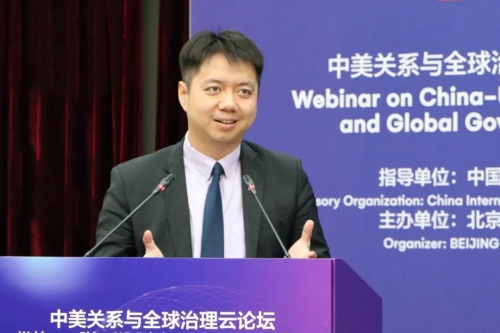
Wang Wen en dialogue avec Douguine: Si la Russie cherche à résoudre des problèmes, elle devrait prendre la Chine comme exemple à étudier
Wang Wen & Alexandre Douguine
Source: https://www.geopolitika.ru/en/article/wang-wen-dialogue-dugin-if-russia-seeks-solve-issues-it-should-take-china-example-be-studied
Ce dialogue a été mené de concert avec le philosophe russe Alexandre Douguine, suite à la mort tragique de sa fille Darya Douguine (Дарья Дугина 1992-2022) dans une attaque terroriste en août. Comment celui que les médias occidentaux ont sans cesse surnommé "le cerveau de Poutine", "le meneur d'un groupe de réflexion russe" et "le professeur d'État", voit-il le conflit russo-ukrainien actuel et la situation actuelle en Russie. Comment évalue-t-il sa relation avec Poutine ? Comment voit-il l'avenir de la Chine après le 20ème Congrès national du Parti communiste chinois ? Quels conseils a-t-il à donner à la jeune génération chinoise ? Le 21 octobre, Wang Wen, doyen exécutif de l'Institut Chonyang pour les études financières de l'Université Renmin de Chine, a accepté l'invitation de Douguine pour un entretien d'une heure dans son bureau. Un synopsis de la conversation est publié dans Global Times, tandis que la version intégrale est autorisée à être publiée sur le site Web Guanchazhe.
Wang Wen : Tout d'abord, permettez-moi de vous rendre hommage au nom de nombreux Chinois et d'exprimer mes condoléances pour le décès malheureux de votre fille bien-aimée Darya. Ces derniers mois, de nombreuses attaques terroristes ont eu lieu en Russie. Comment voyez-vous le développement intérieur de la Russie sous le conflit aujourd'hui ?
Douguine : Je tiens tout d'abord à vous remercier pour votre soutien moral et j'apprécie profondément le chagrin du peuple chinois suite au décès de ma fille Darya Douguina. Elle est désormais un symbole de la lutte de notre âme russe contre un système mondial hégémonique injuste et une victime du terrorisme occidental. Nous savons déjà que cette opération est venue de Kiev, de Zelensky lui-même et du chef des forces spéciales militaires ukrainiennes. Zelensky est responsable de la mort de ma fille et de l'attentat. Bien que les services secrets américains et britanniques aient refusé d'expliquer et de condamner l'attaque terroriste, nous sommes presque certains qu'ils nous visaient, moi et ma fille, parce que nous ne faisons qu'un.
Ce fut le début d'une guerre de terreur contre la Russie, la première fois que des terroristes occidentaux ont attaqué des citoyens russes sur le sol russe. Je tiens à souligner une fois de plus que Darya et moi-même n'occupions aucune fonction officielle et n'avons pas participé à l'opération militaire spéciale (OMS) dans l'est de l'Ukraine. Il est sans précédent que des intellectuels aient été assassinés pour ce qu'ils ont simplement dit et pensé, et ce type de terreur contre les intellectuels est assez inquiétant. Et ce n'est rien d'autre que la guerre.
Cela révèle un tout nouveau chapitre de l'histoire de la guerre: lorsque les idées comptent vraiment, vous êtes assassiné pour vos idées. Cet exemple démontre tragiquement l'importance de la pensée, en jouant avec sa vie. Pourtant, si vous êtes un guerrier, vous devez être prêt à mourir au combat ; si vous prenez des décisions politiques, vous devez être prêt à payer pour vos décisions.
Pendant longtemps, la philosophie théologique s'est préoccupée de la vie humaine. La Russie se trouve dans un état critique, j'aimerais l'appeler "une profonde révolution idéologique en Russie", et le conflit russo-ukrainien marque le début d'un changement complet. Dans les années 1990, la Russie a accepté l'hégémonie occidentale, les systèmes occidentaux, les valeurs occidentales et la démocratie politique occidentale, a suivi l'exemple de l'Occident et a considéré l'Occident comme une seule bouée de sauvetage. C'est la différence entre la Russie et la Chine: la Chine accepte les règles et profite pleinement des règles internationales pour s'imposer, alors qu'en Russie, dans les années 1990, nous avons trahi notre souveraineté nationale. Après son arrivée au pouvoir, Poutine a commencé à se battre pour l'indépendance de la Russie. Mais au cours des 22 dernières années, il a été enchaîné par les règles établies par l'Occident. L'Occident a toujours espéré affaiblir et attaquer la Russie de cette manière.
Poutine a tenté de concilier la contradiction entre l'essor du pays et l'intégration dans la mondialisation, mais cela s'est avéré impossible. Cette inconciliabilité a atteint son paroxysme après le début de l'Opération militaire spéciale. Poutine ne pouvait que réagir par une action violente directe, mais la société russe n'y était pas préparée, car la lutte contre l'Occident est un chemin trop long et trop étroit. La Russie est maintenant dans une guerre contre l'Occident, contre les États-Unis. Nous essayons d'ajuster nos idées sociétales et de nous réévaluer, pour nous adapter à la situation actuelle dans laquelle nous nous trouvons, ce qui est un processus très intense et dramatique.
Wang Wen : Je suis d'accord avec votre analyse et votre prédiction astucieuses. Je me souviens qu'en 2008, vous avez écrit sur l'inévitabilité d'un conflit entre la Russie et l'Occident. Cependant, lorsque les universitaires chinois reconnaissent qu'un conflit sino-américain peut devenir inévitable, ils font généralement de leur mieux pour proposer d'éviter la guerre avec les États-Unis. Par exemple, lorsque le professeur Graham Tillett Allison de l'Université de Harvard a proposé le "piège de Thucydide" entre la Chine et les États-Unis, les érudits chinois le réfutent et tentent de modifier cette "prophétie réalisable".
Ce que je veux savoir, c'est pourquoi les élites russes ne conseillent pas au président Poutine de faire de son mieux pour éviter le conflit, ou de faire quelque chose qui pourrait être mieux qu'une action militaire ad hoc ? En Russie, un sage philosophe politique comme vous doit avoir une meilleure solution, non ?
Douguine : Cela a à voir avec l'équilibre de la conscience entre les individus et les groupes. Ce n'est pas le président Poutine qui a volontairement voulu lancer cette opération militaire spéciale, mais c'est toute la société qui a exigé cette opération spéciale. La société russe est très spéciale et a besoin d'un dirigeant de type "père" (comme un tsar) qui doit également fournir des garanties de sécurité à l'ensemble de la société. Poutine a essayé de réconcilier cette binarité: accepter l'Occident et assurer l'indépendance de la Russie. Ces deux options constituent toutefois un noeud de contradictions. Poutine espère concilier cette contradiction et maintenir un certain équilibre, mais cet équilibre est très fragile.
Poutine a toujours essayé de procéder de manière pacifique, sans utiliser de moyens militaires, pour éviter une escalade du conflit avec l'Occident. Depuis que la Crimée est "revenue à la Russie", nous avons remarqué très tôt que la Russie peut facilement libérer l'est de l'Ukraine, mais le président Poutine a toujours refusé de le faire. Il a cru pendant un temps aux assurances données par l'Occident, mais l'Occident a trompé la Russie. Poutine veut éviter la guerre, mais la guerre est de plus en plus inévitable. Il est dommage que nous n'ayons pas été pleinement préparés à cette opération militaire spéciale sur le plan politique, économique, culturel et militaire. En fait, nous aurions dû être mieux préparés.
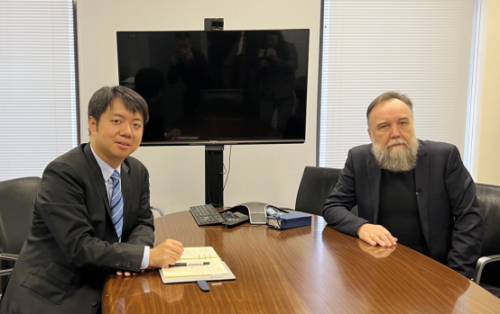
Wang Wen : Oui. Mais je suis très inquiet, si la Russie se détache complètement de l'Occident à l'avenir, pourra-t-elle continuer à se développer rapidement à court terme ? Nous pensons tous que l'Occident s'affaiblit, mais pour l'instant, l'hégémonie occidentale a encore une influence significative dans des domaines tels que la haute technologie et le commerce économique.
Le maintien de la coopération avec l'Occident semble être un "choix rationnel et pragmatique". La Russie sera-t-elle réduite à rien de plus qu'un "grand Iran", si elle est complètement coupée de l'Occident ? J'ai voyagé en Iran à de nombreuses reprises. L'Iran présente un énorme potentiel et de riches ressources. Dans les années 1970, l'économie iranienne a connu une croissance rapide. Cependant, après avoir été sanctionné par l'Occident pendant 40 ans, le développement de l'Iran a été fortement affecté. La Russie répétera-t-elle les erreurs de l'Iran ?
Douguine : J'aimerais bien savoir quelle est votre définition du mot "Occident". L'Occident n'est pas seulement synonyme de développement économique et technologique, l'Occident représente une sorte de conscience, comprenant hégémonie, racisme et ontologie, qui peut être étendue au colonialisme et à l'unipolarité. C'est l'essence même de l'Occident. La Russie a "déclaré la guerre" à l'Occident et a été forcée de couper la coopération avec l'Occident. Nous espérons qu'en vainquant l'hégémonie occidentale, l'"Occident" deviendra une province du monde, et non le centre du monde. Pour y parvenir, nous devons non seulement nous élever et nous "désoccidentaliser", mais aussi marginaliser l'Occident. La Russie seule ne peut pas atteindre cet objectif. Nous espérons travailler avec d'autres pays non occidentaux dans le monde pour résister à l'hégémonie occidentale. Si nous nous unissons, nous serons peut-être en mesure de les vaincre. Il s'agit d'une guerre de la multipolarité contre l'unipolarité.
Wang Wen : Selon votre logique, le monde se divise progressivement en deux pôles, et une nouvelle "guerre froide" commence. Vous avez souligné dans votre article que le monde est au bord d'une troisième guerre mondiale.
La Chine ne veut pas entrer dans une nouvelle guerre froide ; elle préfère se développer dans un environnement mondialisé. Bien que la Chine soit en concurrence avec les États-Unis, elle fait de son mieux pour trouver un nouvel équilibre parmi les contradictions féroces. Je pense que l'Inde, le Brésil et les autres pays du BRICS ne veulent pas vraiment entamer une "nouvelle guerre froide" avec l'Occident, et qu'ils sont tous prudents et se protègent contre une éventuelle "troisième guerre mondiale".
Douguine : Maintenant, la situation n'est pas déterminée unilatéralement par la Russie. Avec l'Opération militaire spéciale, nous avons "franchi le Rubicon" pour affronter l'Occident. La Russie et l'Occident peuvent se comprendre, mais les deux ne peuvent coexister, comme le détermine la structure géopolitique. D'un point de vue géopolitique, les autres pays n'ont que deux options : soit être contrôlés par un État qui est une puissance maritime, soit se battre pour devenir un État qui est puissance terrestre, c'est-à-dire en soutenant la Russie pour pousser le monde vers la multipolarisation et devenir une région du Heartland.
L'indépendance de la Chine est basée sur l'équilibre. Dans cette perspective, si la Russie ne peut pas contrôler et équilibrer l'hégémonie américaine, alors la Chine sera victime d'un conflit militaire offensif avec des puissances maritimes, même si vous ne voulez que la souveraineté et la prospérité. Maintenant, l'Inde, le Brésil, l'Afrique du Sud et le monde islamique, tout aussi indépendants, font tous des choix, mais le résultat de leur choix dépend de la force à l'autre bout de l'échelle.
Pour que la stratégie gagnant-gagnant de la mondialisation représentée par la Chine soit parfaitement réalisée, il faut une condition invisible, à savoir la résistance de l'État puissance terrestre qu'est la Russie à l'État puissance maritime. Si la Russie perd l'opération militaire spéciale et perd son cœur, alors l'Inde et la Chine seront confrontées à la même situation que la Russie actuellement et deviendront les prochaines victimes directes de la guerre froide et même du conflit militaire.
L'Occident peut utiliser le détroit de Taiwan et les militants musulmans comme points d'entrée pour attaquer la Chine. L'Occident est une force radicale et agressive. D'autres pays peuvent éviter un conflit frontal uniquement parce que la Russie existe toujours et parce que la Russie se bat. Les autres nations n'ont que deux options : soit survivre dans l'ombre du monde occidental, soit se battre comme la Russie. Cette analyse géopolitique est très importante.
Bien que les résultats de l'analyse ne soient pas entièrement conformes à l'interprétation officielle chinoise, je crois que les stratèges du Parti communiste chinois, en tant que véritables maîtres de la stratégie internationale, peuvent comprendre pleinement les conclusions de l'analyse posée ci-dessus et éviter que la Chine ne tombe dans la situation de la Russie.
Je reconnais intensément les grandes réalisations de la Chine. Que ce soit pour la Russie, ou pour l'Inde, l'Iran et les pays arabes, la Chine est le principal espoir. Il existe un différend frontalier entre la Chine et l'Inde, mais je voudrais rappeler à l'Inde que si l'Inde et l'Occident luttent ensemble contre la Chine, une fois que la Chine et la Russie auront perdu, l'Occident se retournera pour affronter l'Inde et détruire l'Inde - en fait, Soros se prépare déjà à le faire.
En bref, nous ne voulons pas affronter l'Occident, nous affrontons "l'Occident" qui prétend diriger le monde mais qui n'a pas joué un bon rôle de modèle. Ce que nous devrions rechercher, c'est la multipolarité plutôt que l'unipolarité. L'Occident veut démembrer la Russie, nous sommes le numéro un sur leur liste, vous êtes le suivant. Bien sûr, c'est mon analyse, et je ne veux pas l'imposer aux autres.
Wang Wen : Tout d'abord, nous avons confiance en la Russie. La Russie ne sera pas vaincue par l'Occident. Bien que l'OTAN soutienne pleinement l'Ukraine, la Russie a un énorme avantage en termes de profondeur stratégique, de potentiel et de ressources.
Bien sûr, je suis également d'accord avec vous pour dire que si la Russie est vaincue par l'Occident, la Chine sera la prochaine cible de l'Occident. À cet égard, la Chine est psychologiquement préparée. La réponse de la Chine est basée sur plus de 2.000 ans de sagesse traditionnelle et sur un engagement à trouver des solutions modérées et diverses. Ces dernières années, la Chine a obtenu de bons résultats sur de nombreux "champs de bataille" tels que les guerres commerciales, les guerres technologiques, les guerres de l'opinion publique, les guerres médiatiques et la question du détroit de Taiwan.
Ce que je veux discuter avec vous, c'est de la manière de traiter l'Occident de manière plus intelligente. Si la troisième guerre mondiale ou une guerre nucléaire d'une certaine ampleur se produit réellement comme vous le prédisez, cela signifierait la destruction de toute l'humanité. Selon vous, est-il possible d'employer une panoplie de mesures diversifiées pour résoudre le problème ?
Douguine : La solution du fait accompli est du type de l'Opération militaire spéciale. Nous n'avons pas utilisé d'autres approches plus diversifiées, et nous ne pouvions pas faire autrement. L'Opération militaire spéciale actuelle est très nécessaire, et bien que la situation de guerre actuelle soit mauvaise, elle est meilleure qu'une situation pire (par exemple: être détruit).
Je suis sûr que le Parti communiste chinois a adopté un bon modèle de prise de décision, en prenant des décisions avec prudence et circonspection, en intégrant les intérêts nationaux à la mondialisation, et en maintenant une politique indépendante et conservatrice.Tout en garantissant la démocratie et la libéralisation sociale et économique, la Chine maintient également le contrôle absolu du gouvernement central sur le pays, en veillant à ce que l'Occident ne puisse pas détruire le Parti communiste chinois au moyen de méthodes culturelles et d'Internet, et en sauvant le pays du chaos et même de la destruction.
La situation en Russie est tout à fait opposée. L'Occident détruit le contrôle absolu du gouvernement russe, en essayant de pousser le gouvernement contre le peuple. Sous Eltsine, le peuple a été la victime de cet assaut occidental.
Poutine essaie d'empêcher et d'inverser cette situation et de permettre à la Russie de se sauver par la réforme et la reconstruction. À un moment donné, il a essayé de changer pacifiquement l'héritage du gouvernement d'Eltsine (1931-2007), mais il n'y est pas parvenu en raison de l'obstruction de certaines élites politiques. Ces élites politiques sont des traîtres au pays. C'est la différence entre la Chine et la Russie. L'élite politique chinoise est l'épine dorsale du pays, mais nous n'avons que le poison laissé par l'ère soviétique. Après l'effondrement de l'Union soviétique, ces élites politiques sont entrées dans le gouvernement russe, et elles n'ont pas permis au pays de se transformer et de se développer par des moyens pacifiques. C'est exactement mon interprétation des différences politiques entre la Chine et la Russie.
Nous n'avons pas la possibilité de changer ou de réorganiser pacifiquement la Russie, et de parvenir à la réconciliation avec l'Ukraine et l'Occident par des moyens pacifiques. Poutine est notre espoir. Il est du côté du peuple et du côté de l'histoire. L'Opération militaire spéciale était sa façon de résister, bien que ce ne soit pas de la meilleure façon. Nous plaçons maintenant tous nos espoirs dans le pétrole et le gaz et attendons que l'Occident s'effondre ou fasse des compromis sur les questions énergétiques. Ils tentent de sortir de la crise de pénurie énergétique, ce qui nous oblige également à résoudre le problème sous d'autres angles. À cette fin, nous devrions prendre la Chine comme exemple à étudier.
Wang Wen : Merci de votre intérêt pour la Chine. En tant qu'universitaires et animateurs de think tanks, nous réfléchissons également tous les jours à la situation de la Chine et nous nous efforçons de résoudre les problèmes nationaux. À mon avis, les dilemmes internationaux ne peuvent être mieux traités que sur la base de la résolution des problèmes domestiques. Je pense que vous avez également remarqué que le rapport du 20ème Congrès national du Parti communiste chinois met clairement en avant la stratégie de développement national à long terme de la Chine pour 2035 et 2050. Vous vous êtes déjà rendu en Chine. En tant que philosophe politique, sur la base de votre compréhension de la Chine, comment voyez-vous l'avenir de la Chine ? Les objectifs actuels de la Chine peuvent-ils être atteints comme prévu ?
Douguine : Tout d'abord, j'aime beaucoup la Chine et j'apprécie la gouvernance de la Chine par le Parti communiste chinois sous la direction du secrétaire général Xi Jinping. Le président Xi est un leader exceptionnel de classe mondiale. Votre pays est entré dans l'histoire. Je pense que les objectifs de la Chine sont pragmatiques. Le 20ème Congrès national du Parti communiste chinois que vous avez organisé est un exemple réussi de coordination des questions nationales et internationales. L'Assemblée générale dirige le pays en formulant des plans. En fait, ni la société occidentale ni la Russie ne comprennent assez bien la structure politique et sociale de la Chine.
À mon avis, la Chine est composée du peuple, du gouvernement et d'autres éléments culturels tels que le socialisme aux caractéristiques chinoises, la culture confucéenne, etc. Ces éléments culturels jouent un rôle dans la gouvernance du gouvernement. Si le gouvernement ne parvient pas à assurer la sécurité culturelle, la société se désintégrera. Les analyses occidentales et russes de la Chine ignorent presque la partie spéciale de la culture, qui est en fait une ressource importante pour le peuple chinois.
Deuxièmement, la Chine est très particulière en ce qui concerne l'établissement de priorités. La Chine ne va pas intensifier les conflits, mais les modérer et les résoudre grâce à l'expérience de la construction de la civilisation. Cette culture n'est pas entièrement issue du confucianisme, mais aussi du taoïsme. La culture politique occidentale, y compris la Russie, est trop radicale, trop obsédée par le noir et le blanc absolus, le bien et le mal. Pour nous, le mal est le mal, et nous ne céderons jamais au mal.
Wang Wen : Oui, la théorie du Yin et du Yang dans la culture chinoise provient d'une autre école de philosophie. Nous espérons être capables de transformer le négatif en positif, le bien en mal, le bon en mauvais. Aux yeux des Chinois, les bonnes choses ne sont pas entièrement bonnes, et les mauvaises choses ne sont pas entièrement mauvaises. Il existe une relation d'attachement et de transformation entre les deux. C'est compliqué.
Douguine : Oui, la Chine ne promeut pas une politique étrangère de conflit culturel. Dans une autre culture différente de la Chine, il existe des frontières claires entre le bien et le mal, le bon et le mauvais, la lumière et l'obscurité, et la culture russe contient ce gène. Du point de vue de la Russie, le monde est soit unipolaire (il y a un pays avec la plus forte puissance mondiale, comme les États-Unis), soit multipolaire (l'Occident, la Russie et la Chine essaient tous de parvenir à une situation gagnant-gagnant dans ce monde). Une structure mondiale multipolaire est également une chose vers laquelle la Chine doit tendre. La Chine observe le monde avec sa propre perspective et ses propres pensées, et les autres pays observent également la Chine avec leur propre pensée et leur propre vision du monde. Cela va dans les deux sens.
Certaines de ces pensées et perspectives sont anormales, voire pathologiques. La pensée et la vision du monde chinoises sont saines, mais la pensée et la vision du monde occidentales ne le sont pas autant. Nous devrions essayer de comprendre ces modes de pensée pathologiques, et non pas les expliquer avec notre pensée intrinsèque.
Wang Wen : Discutons de l'avenir de la Russie et de la Chine. Les tensions dans les relations de la Russie avec l'Occident vont probablement continuer à pousser les relations sino-russes à se réchauffer. Cette fois, j'ai visité plus de 20 villes en Russie, j'ai parlé avec de nombreux responsables locaux et j'ai discuté de la manière de renforcer les relations entre les deux pays à différents niveaux tels que le niveau local, le niveau civil, le niveau de l'élite, etc. La Chine et la Russie ont des perceptions différentes l'une de l'autre à tous les niveaux. Du point de vue du sommet, la conscience stratégique de la confiance et de la coopération entre la Chine et la Russie est suffisante et ferme ; cependant, aux niveaux non gouvernemental et de l'élite, les gens ont des opinions très diverses sur la coopération sino-russe, et certaines idées ne sont pas propices à la coopération bilatérale. Que pensez-vous de cela ?
Douguine : Tout d'abord, je pense que les relations sino-russes se sont en fait considérablement améliorées sur les deux plans. Nos deux pays ont certainement de nombreux problèmes à surmonter, comme les différences culturelles entre les deux parties. Nous devrions passer plus de temps à comprendre les attributs respectifs de la Chine et de la Russie, à comprendre le code de la civilisation de l'autre, à ouvrir davantage le "dialogue à deux voies" et à approfondir la coopération bilatérale.
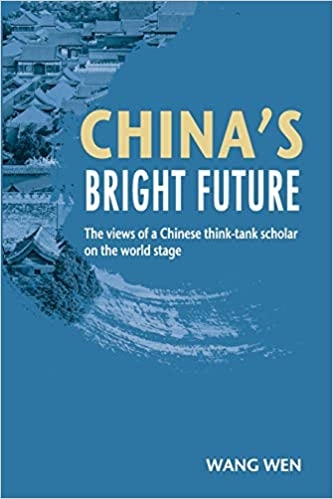 La compréhension mutuelle entre les dirigeants des deux pays a été "parfaite", et la coopération entre le président Xi et le président Poutine est la pierre angulaire de la Chine et de la Russie, créant l'avenir des relations bilatérales. Mais nous devrions également accorder plus d'attention à l'institutionnalisation des relations entre les deux pays, proposer des plans pour renforcer la coopération et la compréhension mutuelle aux niveaux supérieur, intermédiaire et de base, et réajuster le système de coopération aux niveaux intermédiaire et de base.
La compréhension mutuelle entre les dirigeants des deux pays a été "parfaite", et la coopération entre le président Xi et le président Poutine est la pierre angulaire de la Chine et de la Russie, créant l'avenir des relations bilatérales. Mais nous devrions également accorder plus d'attention à l'institutionnalisation des relations entre les deux pays, proposer des plans pour renforcer la coopération et la compréhension mutuelle aux niveaux supérieur, intermédiaire et de base, et réajuster le système de coopération aux niveaux intermédiaire et de base.
À mon avis, l'avenir de l'humanité dépend de la coopération approfondie entre la Chine et la Russie. Plus que jamais, nous devons apprendre à nous connaître efficacement. Nous sommes déjà deux pôles dans un monde multipolaire. Les peuples des deux pays doivent continuer à se battre pour le développement de la Russie et de la Chine, afin que les relations entre les deux pays soient plus harmonieuses.
Wang Wen : Une plateforme importante pour la coopération sino-russe est la connexion entre l'initiative "Belt and Road" et l'Union économique européenne. Aux yeux de nombreuses personnes, la théorie du Grand Eurasisme que vous avez défendue pendant de nombreuses années a contribué à promouvoir la coopération sino-russe, en particulier l'intégration économique eurasienne. Mais les choses semblent changer. Ces dernières années, avez-vous acquis de nouvelles connaissances dans l'étude de l'intégration eurasienne ? Que pensez-vous de l'intégration eurasienne et de l'initiative "Belt and Road" ?
Douguine : Le contenu de la théorie du Grand Eurasisme couvre le contenu de l'Union économique eurasienne et de l'initiative "Ceinture et Route". La Chine et la Russie ont la capacité d'intégrer harmonieusement deux initiatives majeures pour promouvoir le développement de l'Eurasie et ainsi réaliser la construction du monde. À l'avenir, l'Eurasie devrait inclure l'Europe, l'Inde et de nombreux autres pays. Nous devrions élargir nos horizons pour inclure tous les pays de l'ensemble du continent eurasien. En termes de mise en œuvre spécifique, nous devrions avoir une compréhension plus profonde de la signification de "Ceinture et Route" et des différents rôles que l'"Union économique eurasienne" de la Russie devrait jouer et adapter et accepter ces rôles.
Nous devrions présenter la véritable théorie de l'intégration eurasienne aux élites chinoises, et non la version mal interprétée. En Russie, certains considèrent l'eurasisme comme du néocolonialisme, tandis qu'en Chine, d'autres y voient la version russe de l'impérialisme. Nous devrions trouver différentes façons de nous comprendre. La théorie de la Grande Eurasie inclut non seulement la coopération économique entre la Russie et la Chine, mais aussi la coopération approfondie entre l'Inde, l'Asie du Sud-Est et l'Asie occidentale. Nous devrions réfléchir à ce concept et le généraliser, renforcer les échanges culturels, comprendre son identité, son but et sa motivation.
Afin d'atteindre les objectifs ci-dessus, nous devons avoir une compréhension plus profonde de la culture de l'autre et comprendre réellement la cohérence interne du pragmatisme, du matérialisme, du réalisme et d'autres logiques, ce qui exige que nous ayons un dialogue au niveau de la linguistique interlinguale. Sinon, il nous est difficile de parvenir à des opinions similaires sur une même chose.
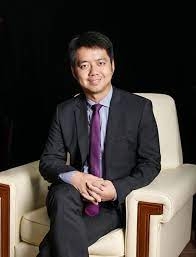 Wang Wen : Dans la stratégie étrangère de la Russie de ces dernières années, on peut voir l'ombre de la théorie du "Grand Eurasianisme". Par conséquent, des rumeurs ont circulé ces dernières années selon lesquelles vous faites partie de l'état-major du président Poutine, ou même que vous êtes le "cerveau de Poutine" ; certaines personnes disent que vous étiez le pont entre le président Poutine et le président Trump au cours de ces années-là. Comment réagissez-vous à cela ?
Wang Wen : Dans la stratégie étrangère de la Russie de ces dernières années, on peut voir l'ombre de la théorie du "Grand Eurasianisme". Par conséquent, des rumeurs ont circulé ces dernières années selon lesquelles vous faites partie de l'état-major du président Poutine, ou même que vous êtes le "cerveau de Poutine" ; certaines personnes disent que vous étiez le pont entre le président Poutine et le président Trump au cours de ces années-là. Comment réagissez-vous à cela ?
Douguine : Je soutiens beaucoup Poutine, notre esprit est similaire, mais je n'ai pas d'autre relation avec lui.
Je devrais connaître le peuple russe et l'histoire russe mieux que quiconque ici. C'est peut-être un peu humiliant de dire cela, mais j'ai un amour profond pour le peuple russe et l'histoire russe. Je comprends la logique derrière tout cela mieux que quiconque, ainsi que la stratégie étrangère nationale actuelle que les gens peuvent approuver et soutenir.
Wang Wen : Avez-vous des conseils à donner aux jeunes, en particulier à leurs homologues chinois ?
Douguine : Afin de comprendre le monde, vous devez d'abord devenir un Chinois plus authentique. Si vous ne vous comprenez pas vous-même, vous ne pouvez pas comprendre les autres. Si vous n'avez pas confiance en vous et que vous n'avez pas votre propre identité, il est impossible de comprendre l'identité des autres pays et l'avenir de la multipolarité. Pour comprendre le monde, vous devez d'abord vous comprendre vous-même.
* * *
(Zhang Huimin张慧敏 de l'Université de Moscou et Feng Shide冯士德 de l'Académie des sciences de Russie ont participé au dialogue et ont procédé à un examen préliminaire du contenu du dialogue)
Rédacteur responsable : Liu Xiaoyun 刘啸云
Traducteur anglais : Liviu Florea
20:33 Publié dans Actualité, Eurasisme, Géopolitique | Lien permanent | Commentaires (0) | Tags : alexandre douguine, wang wen, chine, russie, politique internationale, géopolitique, eurasisme e |  |
|  del.icio.us |
del.icio.us |  |
|  Digg |
Digg | ![]() Facebook
Facebook
dimanche, 30 octobre 2022
Alexandre Douguine: La nécessité d'une langue souveraine

La nécessité d'une langue souveraine
par Aleksandr Douguine
Source: https://www.ideeazione.com/il-bisogno-di-una-lingua-sovrana/
Quand on parle de narration, c'est une catégorie philosophique qu'il faut connaître, parce que la notion de narration est un élément de la philosophie postmoderne qui se base sur la linguistique structurale, sur le structuralisme, sur Ferdinand de Saussure, le linguiste structural qui a séparé le discours et la langue. Cet aspect est très important.
Qu'est-ce que la langue ? Le langage est fait de règles. Nous ne parlons pas, nous utilisons le langage, mais le langage ne parle jamais de lui-même, il est dans les dictionnaires, dans la syntaxe - c'est ce qu'on appelle le niveau paradigmatique, et un récit, ou un discours, est ce qui est construit à partir du langage, de son vocabulaire, de sa syntaxe, de ses lois.
Les récits sont infinis. La langue est une.
Lorsque nous parlons de souveraineté spirituelle, culturelle et civilisationnelle - ce dont parle le président Vladimir Poutine dans ses discours - elle devient chaque jour plus pertinente. Nous ne parlons pas de récits souverains, mais d'une langue souveraine dans laquelle des milliards de récits souverains peuvent être exprimés.
Si la langue est souveraine, alors le discours sera souverain. En utilisant la langue libérale et mondialiste de l'Europe occidentale, on peut certes formuler un discours souverain russe dans cette langue, ou deux, ou trois, ou dix. Mais c'est pour résoudre des tâches immédiates, pour la substitution des importations dans le récit à très court terme. Et ce qui compte, c'est de savoir si et pour combien de temps nous allons dire adieu à l'Occident collectif. Ou voulons-nous revenir à ce langage global, en laissant l'écran de fumée des récits souverainistes se lever un peu.
Je pense que c'est ce que l'élite russe veut faire: parler pendant un certain temps, puis faire marche arrière et dire: "OK, nous acceptons votre langue et votre mondialisation, mais pas comme ça, donnez-nous une place dans tout ça". Elle est condamnée non pas parce que nous sommes prêts et qu'ils ne le sont pas.
Nous avons été coupés, sevrés brutalement de cet Occident, et nous serons ramenés dans cet Occident pour parler la même langue après être tombés en dessous des dernières limites et avoir dit : nous nous rendons. Notre défaite sera la condition pour nous ramener à cette langue occidentale car, que nous le voulions ou non, que nous le comprenions ou non, nous devrions impérativement nous destiner à développer une langue souveraine russe. La Russie est une civilisation indépendante, qui ne fait pas partie de la civilisation occidentale ; elle ne coïncide avec aucune civilisation, ni orientale, ni chinoise, ni islamique, mais elle est égale à la civilisation occidentale ou chinoise. Cela décrit dans les grandes lignes la structure de notre langage souverain, mais pas notre récit souverain.
Quand nous parlerons cette langue russe, tout ce que nous dirons sera souverain et ce que signifiera "narratif" dans ce sens ne sera pas seulement le discours du narrateur à la télévision, ce ne sera pas seulement la structure que nous donnerons à notre système d'éducation, ce ne sera pas seulement la communauté des experts qui sera forcée de parler cette langue souveraine, ce sera aussi notre science, ce sera notre science humaniste aujourd'hui et notre science naturelle demain. Car la science naturelle, comme le savent les plus grands scientifiques tels que Schrödinger et Heisenberg, est aussi un langage dans la vision de la science naturelle.
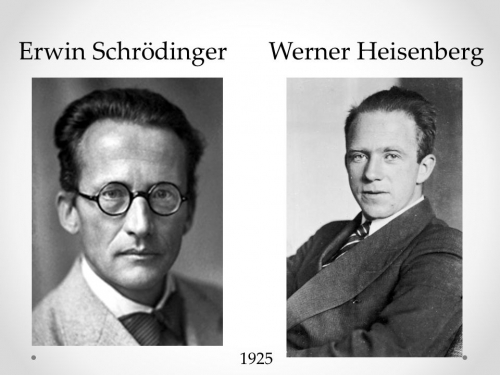
Nous avons donc besoin d'une langue civile, mais d'une langue civile qui nous est propre. Nous ne la parlons pas, nous ne le connaissons pas, nous parlons un anglais pidgin, qui est la base de notre terminologie, de nos experts, de nos iPhones, de nos technologies dans nos fusées - tout cela relève d'un anglais pidgin. Je veux dire que, même si ces technologies sont présentes en Russie, la structure de ces processeurs et codes est, hélas, issue d'un paradigme différent.
C'est un énorme défi que nous devons relever et, enfin, la tâche commence à être prise en compte par nos autorités.
Aussi étrange que cela puisse paraître, le peuple est bien mieux préparé que l'élite. Les gens ne saisissent tout simplement pas les impulsions venant d'en haut de manière très profonde: on leur a dit "communisme" - ils ont pensé quelque chose de leur côté, on leur a dit "libéralisme" - ils ont pensé quelque chose de leur côté, on leur a dit "patriotisme" - ils ont pensé quelque chose de leur côté, ce qui signifie qu'ils ne s'habituent pas à ces jeux narratifs aussi profondément que l'élite, alors que l'élite - si elle dit "allez à l'ouest", alors allez-y.
Il appartient donc à l'élite de changer la langue.
Pour créer un système de récits souverains, il est nécessaire d'établir les paramètres de cette langue souveraine. Quels sont ces paramètres ? Nous avons une conception très différente de l'homme. Dans chaque culture, dans chaque langue, il y a l'homme. Il y a l'homme islamique, il y a l'homme chinois, il y a l'homme d'Europe occidentale, qui est un homme post-genre, un homme qui se transforme en intelligence artificielle, en mutant, en cyborg. Un batteur de transformation et de libération. Il se libère de toute forme d'identité collective - c'est son but, sa tâche - pour ne plus avoir de religion, de nation, de communauté, puis de sexe et, demain, d'appartenance au genre humain, et c'est aujourd'hui le programme de l'Européen occidental.
Les Chinois ont une manière différente de faire les choses en général. Même dans la tradition islamique, les choses se font différemment, parce qu'il s'agit fondamentalement de la relation de l'individu avec Allah, et que tout le reste ne l'inclut ni en tant que liberté ni en tant qu'être humain - c'est une anthropologie complètement différente dans tout ce monde islamique d'un milliard d'hommes. Ils peuvent être formellement d'accord avec certains modèles occidentaux, mais en réalité, soit ils ne les comprennent pas, soit ils les réinterprètent, ils ont leur propre langage, profondément enraciné. Dans la région de la Volga et dans le Caucase du Nord, ils continuent à la promouvoir. C'est pourquoi ils sont immunisés contre l'Occident. L'Inde, l'Afrique et l'Amérique latine ont également leur propre homme.
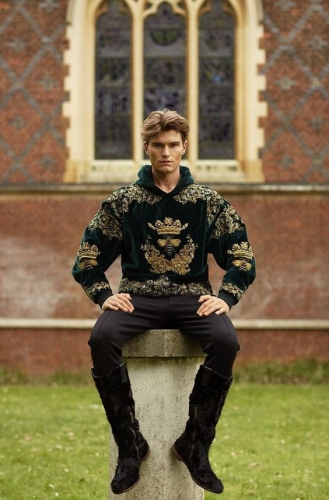
Nous avons besoin d'une conception de l'homme russe, nous avons besoin d'une justification de l'homme russe, et c'est Dostoïevski, c'est notre philosophie, c'est Florensky, c'est le slavophile, c'est Soloviev, c'est aussi Berdiaev, mais l'homme russe est, avant tout, l'homme conciliaire - c'est la chose la plus importante. Pas un individu. Pour nous, l'homme est une famille, un clan, une nation, une relation avec Dieu, une personnalité. Pas un individu, mais une personnalité.
C'est là que s'arrête notre présence à la Cour européenne des droits de l'homme, car il y a une divergence sur le concept fondamental de l'être humain. Pour la Cour européenne des droits de l'homme et l'idéologie libérale occidentale, le droit de l'homme est individuel, pour nous il ne l'est pas, en termes de langage souverain.
Pouvez-vous imaginer comment la science humaine, c'est-à-dire les sciences humaines, change après que nous ayons modifié l'élément de base? Considérer tout différemment, réécrire tous les manuels de sociologie, d'anthropologie, de sciences politiques, de psychologie à la manière russe.
Oui, nous avons eu notre philosophie à la fin du 19ème et au début du 20ème siècle. Mais nous devons nous refaire une idée de la personne russe qui est différente des autres - et immédiatement en tirer une langue différente.
La deuxième chose est l'idée du monde. C'est la chose la plus difficile. Nous pensons que les sciences naturelles sont universelles. Non, elles sont centrées sur l'Occident. Ce cosmos auquel nous avons affaire a été introduit et intégré dans notre conscience depuis l'Occident dans les Temps Modernes, en ignorant délibérément toutes les autres images du monde.
Le cosmos russe est semblable au cosmos européen médiéval - et complètement différent de celui de l'Occident moderne ; il est différent, même de Fyodorov ou de Tsiolkovsky, et nos recherches les plus intéressantes et les plus avant-gardistes dans les disciplines des sciences naturelles ont procédé d'intuitions fondamentalement différentes de la structure de la réalité.
Si, dans les sciences humaines, nous prenons essentiellement notre tradition philosophique, rejetons tout ce qui est libéral, tout le langage libéral, et mettons l'homme russe au centre, nous obtenons une nouvelle langue. Et dans les sciences physiques, cette tâche est bien plus compliquée : nous n'en sommes qu'au début et beaucoup de travail nous attend.
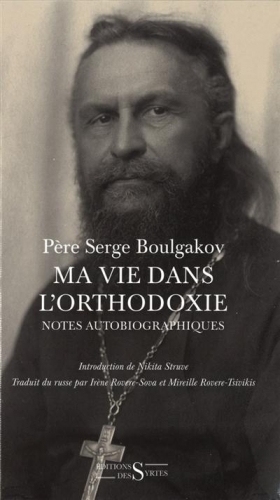 Et, bien sûr, l'action est le verbe. Si nous parlons de la langue, nous avons une conception de l'action très différente de celle de la tradition d'Europe occidentale. Il s'agit davantage d'une praxis aristotélicienne que technologique. C'est la philosophie de la cause commune de Serge Boulgakov, car les Russes ne font pas les choses comme tout le monde. La notion aristotélicienne selon laquelle la praxis est le résultat de la libre créativité du maître et non l'exécution technique de la tâche d'un autre nous convient et telle est l'idée principale de la philosophie de l'économie, ce qui signifie que notre économie est différente. Nous avons donc une science différente et une pratique différente. Cela signifie que nous avons une dimension éthique de l'action, et non une simple dimension pragmatique/utilitaire et optimiste, ce qui signifie que nous faisons quelque chose dans un but éthique. C'est-à-dire que ce que nous faisons, nous le faisons, par exemple, parce que c'est bien, pour rendre ce quelque chose meilleur, beau, pour le rendre plus juste.
Et, bien sûr, l'action est le verbe. Si nous parlons de la langue, nous avons une conception de l'action très différente de celle de la tradition d'Europe occidentale. Il s'agit davantage d'une praxis aristotélicienne que technologique. C'est la philosophie de la cause commune de Serge Boulgakov, car les Russes ne font pas les choses comme tout le monde. La notion aristotélicienne selon laquelle la praxis est le résultat de la libre créativité du maître et non l'exécution technique de la tâche d'un autre nous convient et telle est l'idée principale de la philosophie de l'économie, ce qui signifie que notre économie est différente. Nous avons donc une science différente et une pratique différente. Cela signifie que nous avons une dimension éthique de l'action, et non une simple dimension pragmatique/utilitaire et optimiste, ce qui signifie que nous faisons quelque chose dans un but éthique. C'est-à-dire que ce que nous faisons, nous le faisons, par exemple, parce que c'est bien, pour rendre ce quelque chose meilleur, beau, pour le rendre plus juste.
Changer le récit face aux défis fondamentaux auxquels notre pays est confronté sera impossible sans changer de langage.
19:12 Publié dans Nouvelle Droite, Philosophie | Lien permanent | Commentaires (0) | Tags : alexandre douguine, nouvelle droite, philosophie, nouvelle droite russe |  |
|  del.icio.us |
del.icio.us |  |
|  Digg |
Digg | ![]() Facebook
Facebook
lundi, 24 octobre 2022
Dromocratie. La vitesse comme puissance
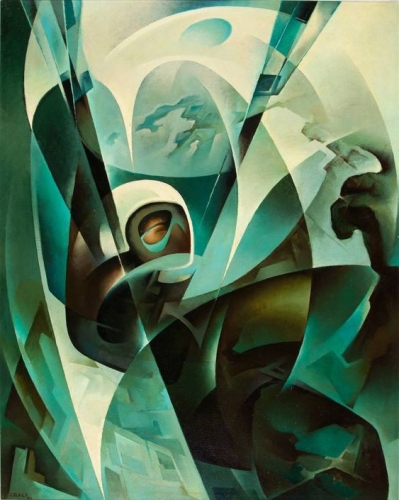
Dromocratie. La vitesse comme puissance
Alexander Douguine
Source: https://www.geopolitika.ru/article/dromokratiya-skorost-kak-vlast
Dans le monde d'aujourd'hui, la vitesse joue un rôle énorme. En tout. Dans l'opération militaire spéciale en Ukraine, nous, Russes, avons constaté que dans la guerre - dans la guerre moderne - c'est également l'un des facteurs clés. Beaucoup, beaucoup - presque tout - dépend de la rapidité avec laquelle on peut obtenir les renseignements, les communiquer au commandement de l'unité de tir et prendre la décision de frapper, ainsi que de changer rapidement et de quitter l'endroit d'où les moyens de tir viennent d'être localisés. D'où le rôle énorme des drones, des communications par satellite, du temps de transmission des coordonnées de l'ennemi, de la mobilité des unités de combat et de la rapidité de la communication des ordres à l'exécutant. De toute évidence, cet aspect a été sous-estimé lors des préparatifs de l'opération militaire spéciale, et nous devons maintenant le rattraper dans un environnement critique.
De même, nous avons sous-estimé notre dépendance vis-à-vis de l'Occident pour la technologie numérique, les puces et la fabrication de matériels de précision. Se préparer à une confrontation frontale avec l'OTAN et, dans le même temps, s'appuyer sur des éléments technologiques développés et produits soit dans les pays de l'OTAN, soit dans des États dépendants de l'Occident, n'est pas une preuve de grande intelligence.
Mais il ne s'agit pas de la dépendance occidentale dans le propos du présent article, mais du facteur vitesse. Le philosophe français Paul Virilio, qui a étudié l'importance de la vitesse pour la civilisation technique moderne, a proposé un terme spécial - la dromocratie. Du grec dromos (vitesse) et kratos (force, puissance). La théorie de Virilio repose sur l'affirmation que dans les nouvelles conditions de civilisation, le gagnant n'est pas celui qui est le plus fort, le plus intelligent ou le mieux équipé, mais celui qui est le plus rapide. La vitesse est ce qui décide de tout. D'où la volonté d'augmenter par tous les moyens la vitesse des processeurs et, par conséquent, de toutes les opérations numériques. C'est le point central de la plupart des réflexions sur l'innovation technique aujourd'hui. Tout le monde rivalise précisément en vitesse.
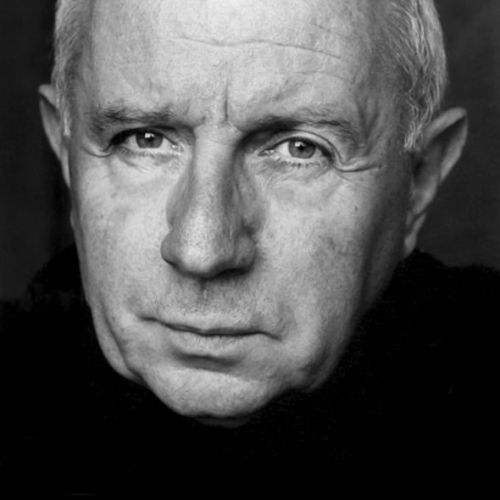
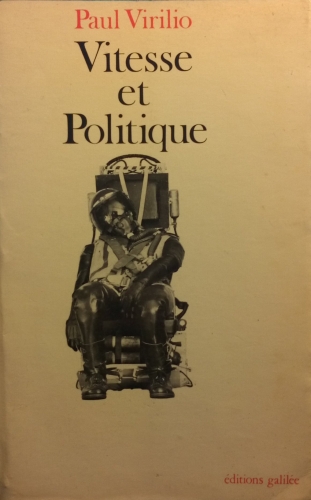
Le monde d'aujourd'hui est une lutte pour la vitesse. Et celui qui s'avère être le plus rapide remporte le prix ultime - le pouvoir. Dans tous ses sens et dimensions - politique, militaire, technologique, économique, culturel.
Pendant ce temps, dans la structure de la dromocratie, la chose la plus précieuse est l'information. C'est la vitesse de transmission des informations qui est l'expression concrète de la puissance. Cela s'applique aussi bien au fonctionnement des bourses mondiales qu'à la conduite de la guerre. Celui qui est capable de faire quelque chose plus rapidement acquiert un pouvoir total sur celui qui hésite.
En même temps, la dromocratie, en tant que stratégie consciemment choisie, c'est-à-dire une tentative de dominer le temps en tant que tel, peut également conduire à des effets étranges. Le facteur de l'avenir entre en jeu. D'où le phénomène des transactions à terme et des fonds de couverture associés, ainsi que d'autres mécanismes financiers de nature similaire dans lesquels les principales transactions sont effectuées avec quelque chose qui n'existe pas encore.
L'idéal de la dromocratie médiatique serait d'être le premier à rendre compte d'un événement qui ne s'est pas encore produit, mais qui est très probablement sur le point de se produire. Ce n'est pas seulement du faux, c'est travailler avec le domaine du possible, du pro-bable. Si nous prenons un événement futur probable comme quelque chose qui s'est déjà produit, nous gagnons du temps et donc du pouvoir. Une autre chose est que cela peut ne pas se produire. Oui, et c'est possible, mais parfois l'échec de l'attente s'avère peu critique, et inversement, une prédiction confirmée, prise au préalable comme un fait accompli, offre d'énormes avantages.
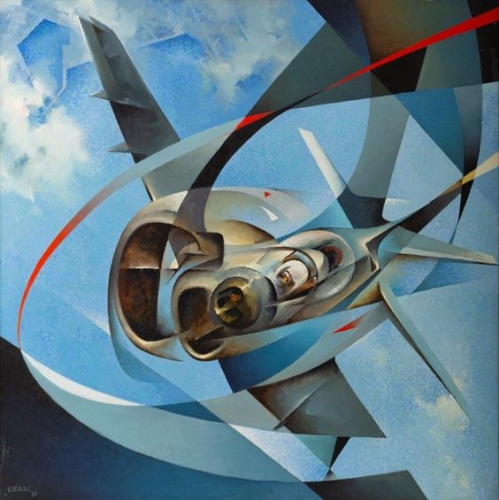
C'est l'essence de la dromocratie : l'élément temps n'est pas très simple et celui qui parvient à le soumettre obtient le pouvoir global total. Dans le développement des supers vitesses, la réalité elle-même est déformée et les lois de la physique non classique - préfigurées dans la théorie de la relativité d'Einstein et, dans une plus large mesure encore, dans la physique quantique - entrent en jeu. Les vitesses limites modifient les lois de la physique. Et c'est dans ce domaine que, selon Virilio, la lutte planétaire pour le pouvoir se joue aujourd'hui.
On retrouve des théories similaires dans le domaine plus appliqué et moins philosophique de la guerre réseau-centrée. Et c'est précisément ce type de guerre réseau-centrée que nous avons rencontré au cours de l'Opération militaire spéciale en Ukraine. La principale caractéristique d'une telle guerre est le transfert rapide d'informations entre les unités individuelles et les centres de commandement. Pour ce faire, les soldats et autres unités de combat sont équipés de multiples caméras et autres capteurs, dont les informations convergent vers un point unique. S'y ajoutent les données provenant des hélicoptères, des drones et des satellites. Ils sont intégrés directement aux unités de combat et de tir. Et cette intégration complète du réseau fournit l'avantage le plus important - l'avantage de la vitesse. C'est ainsi que fonctionnent les HIMARS, les tactiques de groupe mobile et les DRG. Les communications par satellite Starlink ont également été utilisées à cette fin.
Les théories de la guerre réseau-centrée reconnaissent que la rapidité de la prise de décision se fait souvent au détriment de la justification. Il y a beaucoup d'erreurs de calcul. Mais si vous agissez rapidement, même si vous avez commis une erreur, il est toujours temps de la corriger. Le principe du piratage ou des attaques DoS est utilisé ici - l'essentiel est de pilonner l'ensemble de la position des troupes de l'ennemi, en recherchant les points faibles, la porte dérobée. Les pertes peuvent être assez élevées, mais les résultats, en cas de succès, sont très importants.
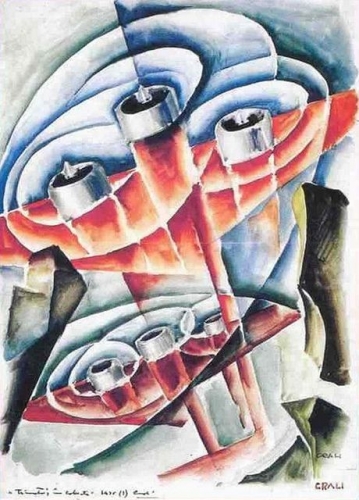
En outre, la guerre réseau-centrée inclut, comme composante intégrale, les canaux d'information ouverts - en premier lieu, les réseaux sociaux. Ils ne se contentent pas d'accompagner la conduite des hostilités, en ne communiquant, bien sûr, que ce qui est bénéfique et ce qui ne l'est pas, en cachant ou en déformant au-delà de toute reconnaissance, mais ils opèrent également avec un avenir probabiliste. Encore le principe de la dromocratie. Ce que nous percevons comme des faux aujourd'hui n'est rien d'autre que le sondage et la stimulation artificielle d'un futur possible. De nombreuses contrefaçons s'avèrent vaines, tout comme les tentatives de percer les défenses de piratage sont souvent futiles, mais elles atteignent parfois leur but - et le système peut alors être détourné et subjugué.
La dromocratie dans la sphère politique permet de s'écarter des règles idéologiques rigides. En Occident même, par exemple, le racisme et le nazisme ne sont pas, c'est le moins qu'on puisse dire, ouvertement encouragés. Mais une exception est faite dans le cas de l'Ukraine et de quelques autres sociétés orientées vers la défense des intérêts géopolitiques de l'Occident. Le nazisme anti-russe et la russophobie sont florissants en Ukraine, mais l'Occident lui-même ne le remarque pas, l'évitant habilement. Le fait est que pour la construction rapide de la nation là où elle n'a jamais existé, et lorsqu'il y a en fait deux peuples sur un même territoire, on ne peut se passer du nationalisme, comme levier d'Archimède. Pour y parvenir le plus rapidement possible, des formes extrêmes sont nécessaires, y compris le nazisme et le racisme purs et simples. Et c'est à nouveau une question de dromocratie. Un simulacre de nation doit être créé rapidement. À cette fin, l'idéologie radicale, toutes les images et tous les mythes sur la propre exclusivité, même les plus ridicules, sont pris et tout cela est rapidement réalisé (avec un contrôle total de la sphère de l'information, en conséquence, les sociétés de l'Ouest ne le remarquent tout simplement pas).
L'étape suivante est la propagande tout aussi rapide de ces idées, qui n'ont rien à voir avec la démocratie libérale occidentale. Ce qui suit est la guerre, et les agresseurs sont dépeints comme des victimes et les sauveurs comme des bourreaux. L'essentiel est de contrôler l'information. Et si tout se déroule selon le plan des mondialistes, une résolution rapide suit, et après cela, les structures néo-nazies elles-mêmes sont tout aussi rapidement éliminées. C'est presque la même chose que ce que nous avons vu en Croatie lors de l'éclatement de la Yougoslavie. D'abord, l'Occident aide les ultra-nationalistes croates - les néo-Ustachistes - et les arme contre les Serbes, puis il les nettoie lui-même pour qu'il n'y ait plus aucune trace d'eux. L'important est de tout faire très, très vite. Rapidement, le néonazisme est apparu, a rapidement rempli son rôle, a rapidement disparu. Comme si cela n'était jamais arrivé.
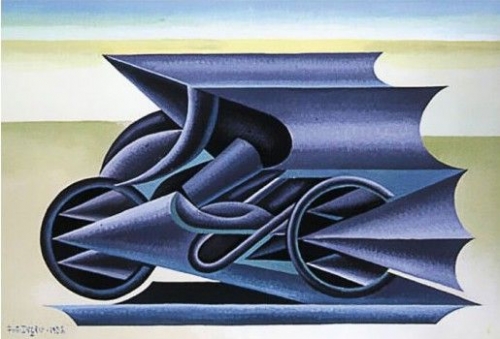
C'est exactement le secret de Zelensky. Ce comédien mercurial comme meneur n'a pas été choisi par hasard. Sa psyché est volatile et sujette à des changements rapides. Le politicien parfait pour une société fluide. Un moment, il dit et fait une chose, le moment suivant, il fait quelque chose de complètement différent. Et personne ne se souvient de ce qui s'est passé il y a une seconde, car la vitesse de circulation des informations ne cesse d'augmenter.
Et sur cette toile de fond, à quoi ressemblons-nous ? Dès que nous avons commencé à agir de manière rapide, décisive et presque spontanée (la première phase de l'opération militaire spéciale), un succès énorme a suivi. Près de la moitié de l'Ukraine est tombée sous notre contrôle.
Dès que nous avons commencé à ralentir l'opération, l'initiative a commencé à passer à l'ennemi. C'est là qu'il s'est avéré que la nature réseau-centrée de la guerre moderne et les lois de la dromocratie n'avaient pas été correctement prises en compte. Dès que nous avons adopté une position réactive, que nous sommes passés à la défensive et au retranchement, nous avons perdu le facteur vitesse. Oui, les victoires ukrainiennes sont pour la plupart virtuelles, mais dans un monde où la queue remue le chien, où presque tout est virtuel (y compris les finances, les services, l'information, etc.), cela ne suffit guère. L'anecdote des deux parachutistes russes sur les ruines de Washington se plaignant - "nous avons perdu la guerre de l'information" - est drôle, mais ambiguë. Après tout, il s'agit aussi de quelque chose de virtuel, d'une tentative de codage pro-babylistique de l'avenir. Cependant, lorsqu'il s'agit de vérifier la réalité, tout n'est pas aussi lisse. Ici, il faut soit abattre toute la dromocratie, la virtualité, toute la postmodernité centrée sur les réseaux, c'est-à-dire toute la modernité et tout le vecteur de l'Occident moderne (mais comment le faire en même temps ?), soit accepter - même si c'est en partie - les règles de l'ennemi, c'est-à-dire nous accélérer nous-mêmes. La question de savoir si nous, les Russes, serons capables d'entrer dans le royaume de la dromocratie et d'apprendre à gagner des guerres réseau-centrées (y compris l'information !) n'est pas une abstraction. Notre victoire en dépend directement.
Pour cela, nous devons tout d'abord comprendre - de manière russe et patriotique - la nature du temps. Combien nous sommes lents à tout comprendre, combien nous sommes arriérés, et combien nous sommes lents à mettre en pratique - cela semble même démentir le proverbe selon lequel "les Russes mettent longtemps à s'atteler, mais ils roulent vite". C'est maintenant le moment où, si nous n'allons pas très vite, la situation pourrait devenir très dangereuse.
Plus vite on le fait, plus vite on réparera les dégâts. Je ne parle même pas de doter nos soldats d'attributs de réseau, d'accélérer le processus de commandement et d'introduire des mesures efficaces de sécurité de l'information. Mais il est tout simplement nécessaire d'être à la hauteur d'un ennemi bien équipé.
Et encore : si la spéculation sur le prix des uniformes minimaux des mobilisés n'a pas été immédiatement suivie d'une vague rapide de représailles directes de la part des autorités, c'est un très mauvais signe. Quelqu'un au pouvoir s'imagine que nous sommes encore en train d'atteler, alors que nous nous précipitons déjà à pleine vitesse. Il est urgent d'y réfléchir. Sinon, nous risquons de nous précipiter, comment dire gentiment... Un peu dans la mauvaise direction.
La Dromocratie n'est pas une blague. Il ne s'agit pas de dépasser l'Occident. Il faut l'emporter sur son hubris vertigineux, mais pour ce faire, nous devons agir à la vitesse de l'éclair. Et de manière raisonnable. La Russie n'a plus le droit ni le temps de s'endormir et de se laisser aller à la léthargie.
13:55 Publié dans Actualité, Nouvelle Droite, Philosophie | Lien permanent | Commentaires (0) | Tags : alexandre douguine, actualité, vitesse, dromocratie, paul virilio, russie, philosophie, nouvelle droite, nouvelle droite russe |  |
|  del.icio.us |
del.icio.us |  |
|  Digg |
Digg | ![]() Facebook
Facebook



